Hi, dear flight-report members and readers!
In my second FR here I want to present a detailed review of Asiana A380-800 on the flight from Tokyo Narita (NRT) to Seoul Incheon (ICN) - then world's shortest A380 flight, taken in December 2024. Actually I took this flight (OZ101) even twice - 4 and 18 December 2024, coincidentally on the same A380 (HL7640) and both in upper-deck economy. This FR is devoted to the second flight, but I will complement it with some photos from the first flight. It was worth it, because from June 2025 OZ withdrew their whalejets from Narita flights and currently these flights are served by mix of B777-200ERs, A350-900s and A330-300s.
The price for the one-way flight was reasonable - 115EUR for basic economy fare + 20EUR for reserving upped deck seat.
Intro
A380 phenomena
Let's have a brief look on A380 phenomena and it's effect on civil aviation. We know that A380 was a commercial failure for Airbus and know why - it came too early in terms of engine technology (GP7270 and RR Trent 900 are one generation behind GEnX powering B747-8, which came later) and it came too late in terms of world's passenger traffic distribution, which started fragmenting more and more due to availability of mid- and mid-to-large sized twinjets, which enabled more hub-spoke character of flying than hub2hub. Also A380-800 was too beefed up in terms of MZFW and MTOW, because Airbus was hoping to develop stretched A380-900, which never came to fruition (as well as ideas to upgrade A380 with newer gen engines or densify economy to 3-5-3 on the lower deck and to 3-3-3 on the upper deck). Eventually the last A380 was delivered in 2021 to Emirates (with its 100+ strong fleet, EK is the only airline who enabled economy of scale for A380), 4 years after the last 747-8i was delivered to Korean Air, thus spelling the end to the production of passenger quads.
Being the widest and tallest (but not the longest - A380 is shorter than B779, B748, A346, B77W and A35K) passenger jet ever built, A380 is absolutely unparalleled in terms of space and comfort for every class of service - from first to economy. It's the only jet that can accomodate 3-4-3 economy layout (on the lower deck) with ample seatwidth. In any other smaller jet (starting from B748) 3-4-3 layout is tight seatwidth-wise. Moreover, half of active A380 operators also have (usually relatively small) economy cabin on the upper deck, where layout is 2-4-2 with the same ample seatwidth as in the lower-deck cabin.
A380 operators and layouts
Let's review the remaining active A380 operators and their layouts.
Emirates (no alliance member) operates A380 since 2008 and has by far the world's largest A380 fleet of 116 units (21 are grounded). EK operates the world's longest A380 route DXB-AKL. Most units are GP-powered, but the newer ones are RR-powered. EK has large variety of A380 layouts. There are:
Two 4-class layouts: F14_C76_W56_Y338 and F14_C76_W56_Y341 feature first class in the front part of the upper deck, business in the remaining part of the upper deck, premium economy in the front part of the lower deck and economy in the remaining most part of the lower deck. These whalejet feature the EK's newest hard product in all the classes;
Five quite similar 3-class layouts: F14_C76_Y399, F14_C76_Y401, F14_C76_Y427, F14_C76_Y429, F14_C76_Y426, where first class is located in the front part of the upper deck, business class is located in the remaining part of the upper deck, and economy cabin occupies the entire lower deck. Some of these whalejets feature newer economy seats (based on Safran Z300), some feature older economy seats (based on Weber 5751).
One unique 2-class layout C58_Y557 with the world's largest seat count (615) for A380, where economy occupies the entire lower deck and front part (!) of the upper deck, and business is located in the rear part of the upper deck.
All the EK A380 layouts with first class feature lavatories with showers for F passengers.
Singapore Airlines (Star Alliance member) operates A380 since 2007 and has 12 RR-powered units. Their layout is 4-class F6_C78_W44_Y343 with first class located in the front part of the upper deck, business class located in the remaining part of the upper deck, premium economy in the front part of the lower deck and economy in the remaining (most) part of the lower deck. After refurbishment economy seats are infamous uncomfortable Recaro CL3710.
British Airways (Oneworld member) operates A380 since 2013 and has 12 RR-powered units. Their layout is 4-class F14_C97_W55_Y303 with first class in the front part of the lower deck, business in the middle part of the lower deck and in the first half of the upper deck, premium economy on the upper deck after business, and economy in the rear half of the lower deck and in the rear of the upper deck. The rearmost part of the upper-deck economy formates a small intimate cabin. The economy seat model is Recaro CL3620, which is quite uncomfortable and has underseat IFE power boxes (for window seats).
Qantas (Oneworld member) operates A380 since 2008 and has 10 RR-powered units. Their layout is 4-class F14_C70_W60_Y341 with first class located in the front part of the lower deck, business in the front 2/3 part of the upper deck, premium economy on the rest of upper deck and economy on the rest of the lower deck. Economy feature bespoke Recaro seat, which can be quite uncomfortable.
Etihad Airways (no alliance member) operates A380 since 2014 and has 9 GP-powered units. Their layout is 3.5-class F11_C70_Y405 with first class located in the front part of the upper deck (and the very first left suite is the famous "The residence"), business on the rest part of the upper deck and economy on the entire lower deck. First class lavatories feature showers. The economy seats are Safran Z300.
Qatar Airways (Oneworld member) operates A380 since 2014 and has 8 GP-powered units. Their layout is 3-class F8_C48_Y461 with first class in the front part of the upper deck, business in the middle part of the upper deck and economy occupying the entire lower deck and the rear part of the upper deck. The economy seat model is infamous Recaro CL3710.
Lufthansa (Star Alliance member) operates A380 since 2010 and has 8 RR-powered units. Their layout is 4-class F8_C78_W52_Y371 with first class in the front part of the upper deck, business in the middle and middle-to-rear part of the upper deck, premium economy in the front part of the lower deck, and economy on the rest part of the lower deck and the rearmost part (small intimate cabin) of the upper deck. The economy seat model is very outdated and uncomfortable Recaro CL3520.
Korean Air (Skyteam member) operates A380 since 2011 and has 7 GP-powered units. Their layout is 3-class F12_C94_Y301 with first class in the front part of the upper deck, business on the entire upper deck and economy on the rest part of the lower deck. The economy seat model is very comfortable Weber 5751.
Asiana Airlines (Star alliance member) operates A380 since 2014 and has 6 RR-powered units (2013-built HL7625, 2014-built HL7626 and HL7634, 2015-built HL7635 and 2016-built HL7640 and HL7641). Their layout is 3-class F12_C66_Y417 with first class in the front part of the lower deck, business in the front and middle part of the upper deck and economy on the rest parts of the lower and upper decks. The economy seat model is Safran Z300.
All Nippon Airways (Star alliance member) operates A380 since 2019 and has just 3 RR-powered units, featuring special "Flying Honu" liveries (blue, green and orange) and flying exclusively between NRT and HNL. Their layout is 4-class F8_C56_W73_Y383 with first class in the front part of the upper deck, business in the middle part of the upper deck, premium economy in the rest part of the upper deck and economy occupying the entire lower deck. The last 6 economy rows can be converted into "ANA Couchii" seats, if one buys entire 3- or 4-seater block. The economy seat model is Zimflexible.
World's A380 outstanding flights
The world's currently longest A380 flight from Dubai (DXB) to Auckland (AKL) is operated by Emirates.
The world's currently shortest A380 flights are Bangkok (BKK) - Hong Kong (HKG) (as a tag-on to DXB-BKK flight) and Dubai (DXB) - Jeddah (JED), also operated by Emirates.
Asiana OZ101/102 flights between Seoul (ICN) and Tokyo Narita (NRT) were world's shortest A380 flights until June 2025.
The world's southernmost passenger flight is Sydney (SYD) to Johannesburg (JNB), operated by Qantas. Due to 4 engines A380 can fly close to Antarctica.
Tokyo airports
Having finished with the introduction, let's start with the flight.
I spent the day and the night before flight in the Narita town, which is often overlooked by tourist, but definitely Worth visiting due to its gem - ancient Narita temple, one of the most interesting in Japan. Due to the distance from Tokyo, NRT sometimes is used as an acronym to "Not Really Tokyo", but if you're staying in Narita town, the airport is just a short train ride away. The main Tokyo airport is Haneda (HND), located in the Tokyo bay much closer to the city centre with much faster access. HND has the most JAL's and ANA's domestic traffic and most flights of EU and Asian carriers (including the most prestigious flights of JAL and ANA). The biggest aircraft HND can handle is Boeing 747-8i (Lufthansa flies it to HND). Narita airport handles cargo traffic, low-cost flights, part of Asian airlines flights and a small fraction of EU airlines' flights. In contrast to HND, NRT can handle A380.
Narita Terminal 1
Asiana flights (as well as most other airlines) are operated from Terminal 1.
Upon entering T1 from the railways station one can see an A380 model with a pleasant wish:
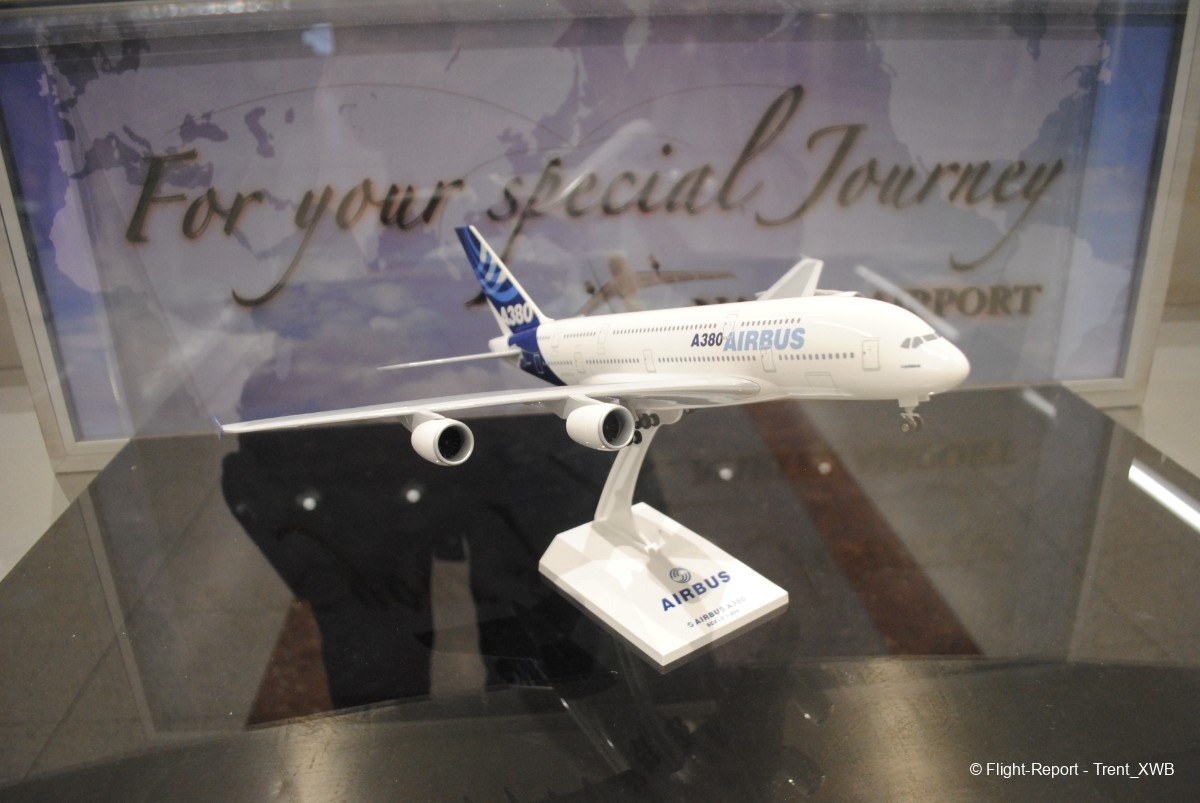
T1 architecture is not outstanding at all, but it's quite airy and has excellent views of the tarmac. Some nice Christmas arts in the check-in hall:
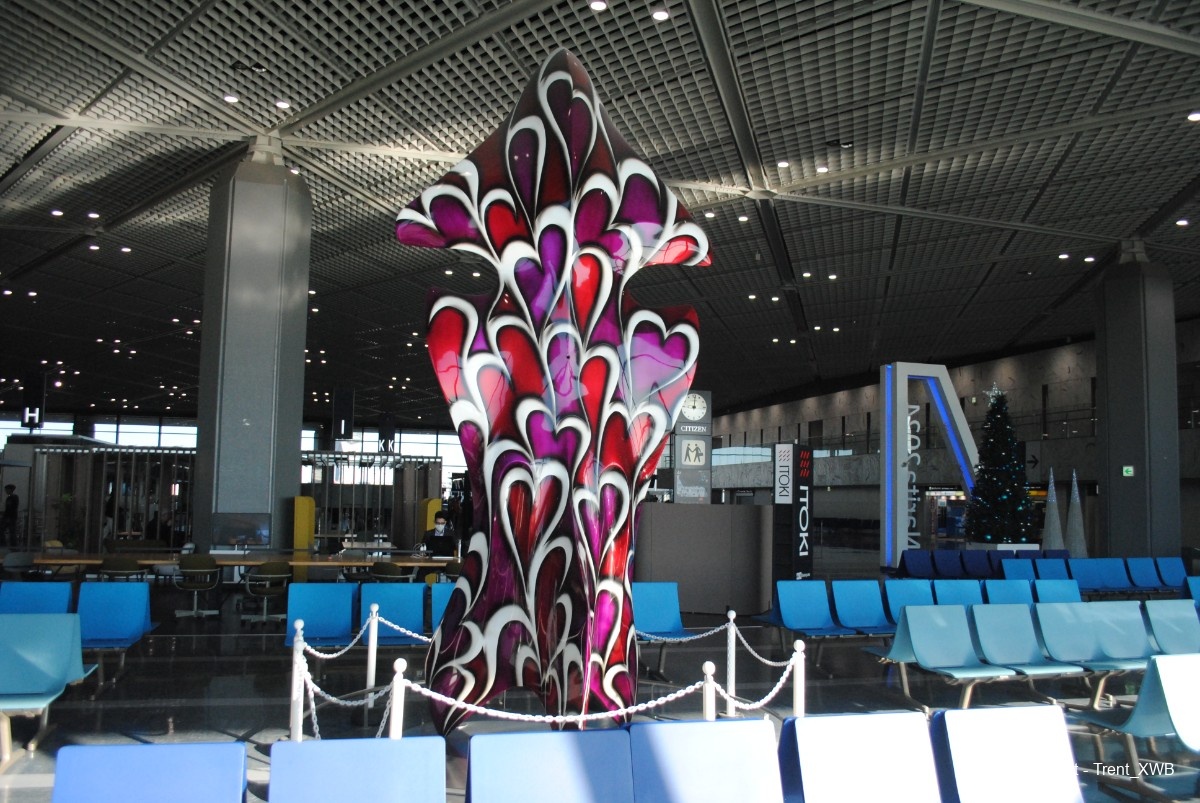
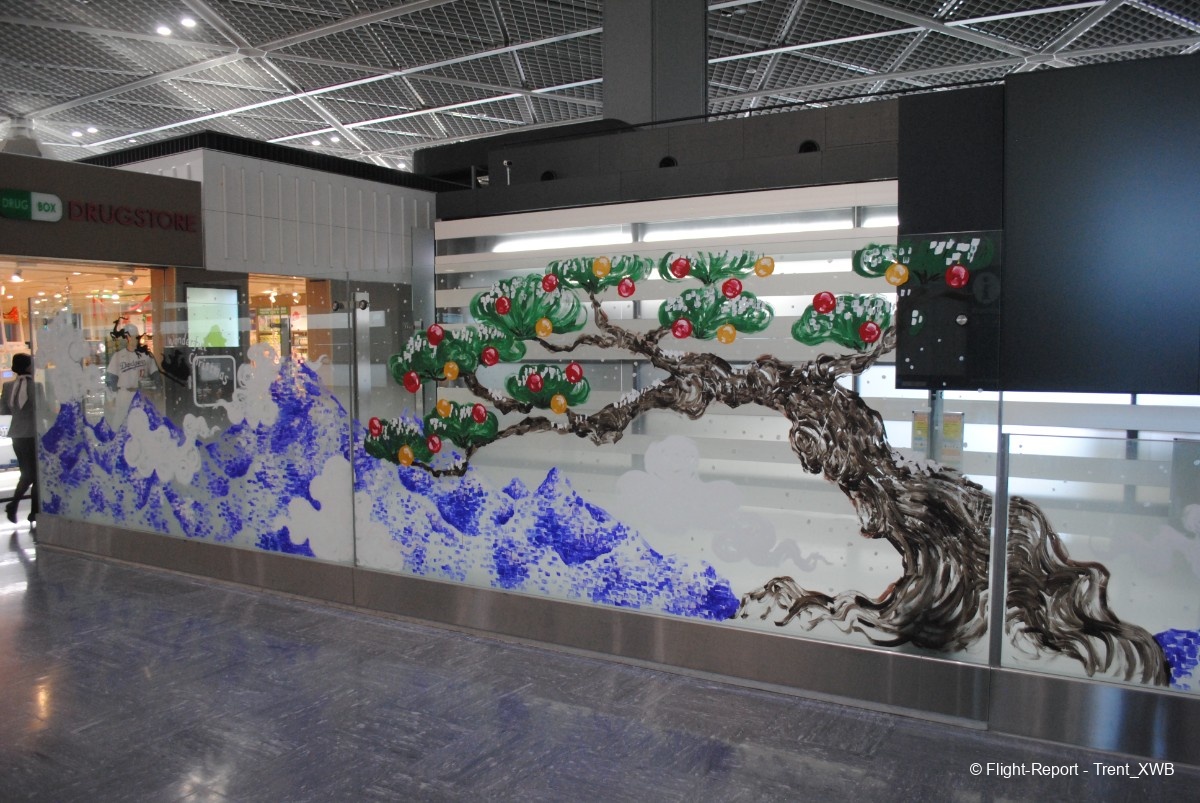
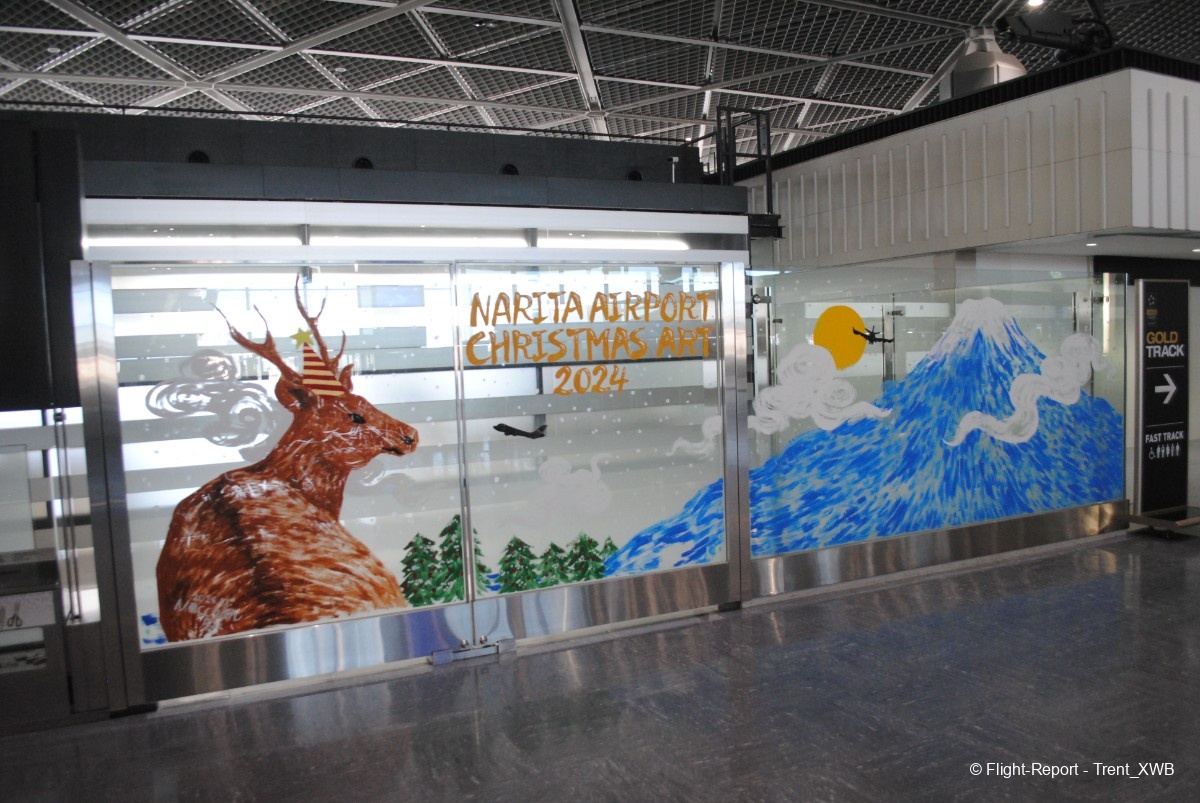
Time to go airside.
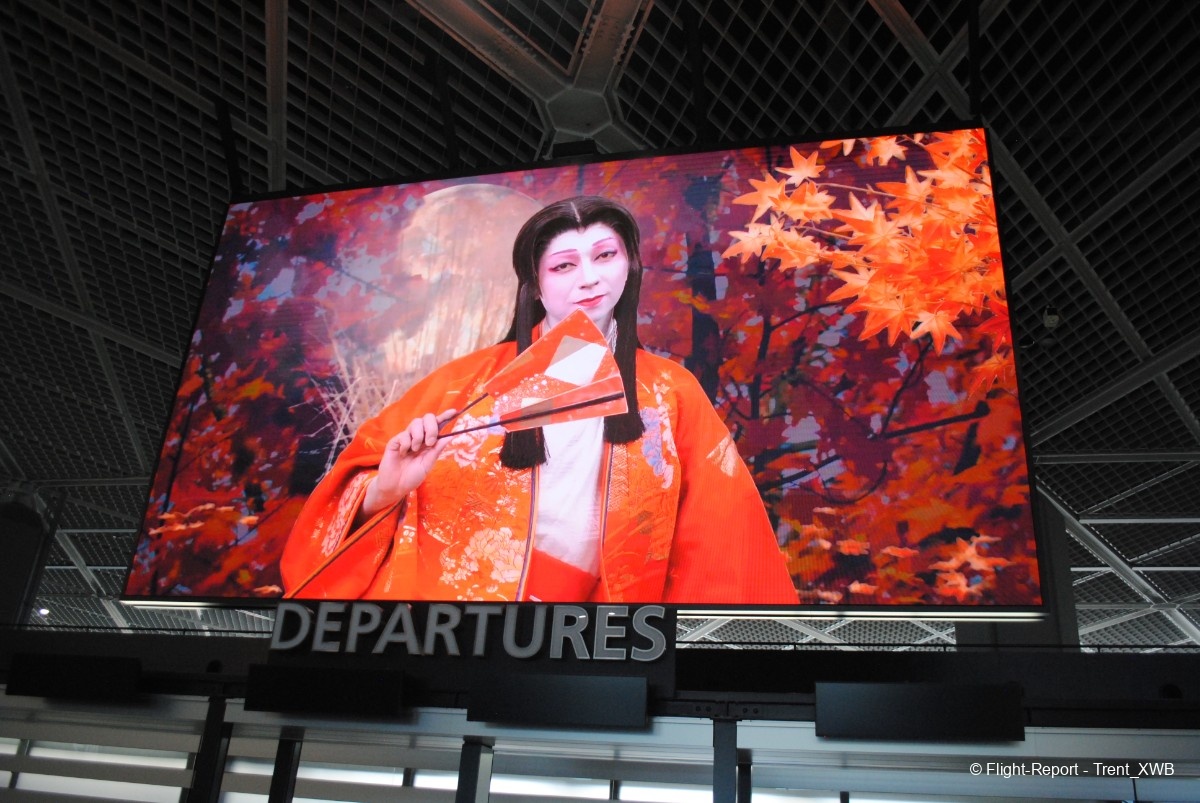
Airside has a lot of seating, shops and cafes.
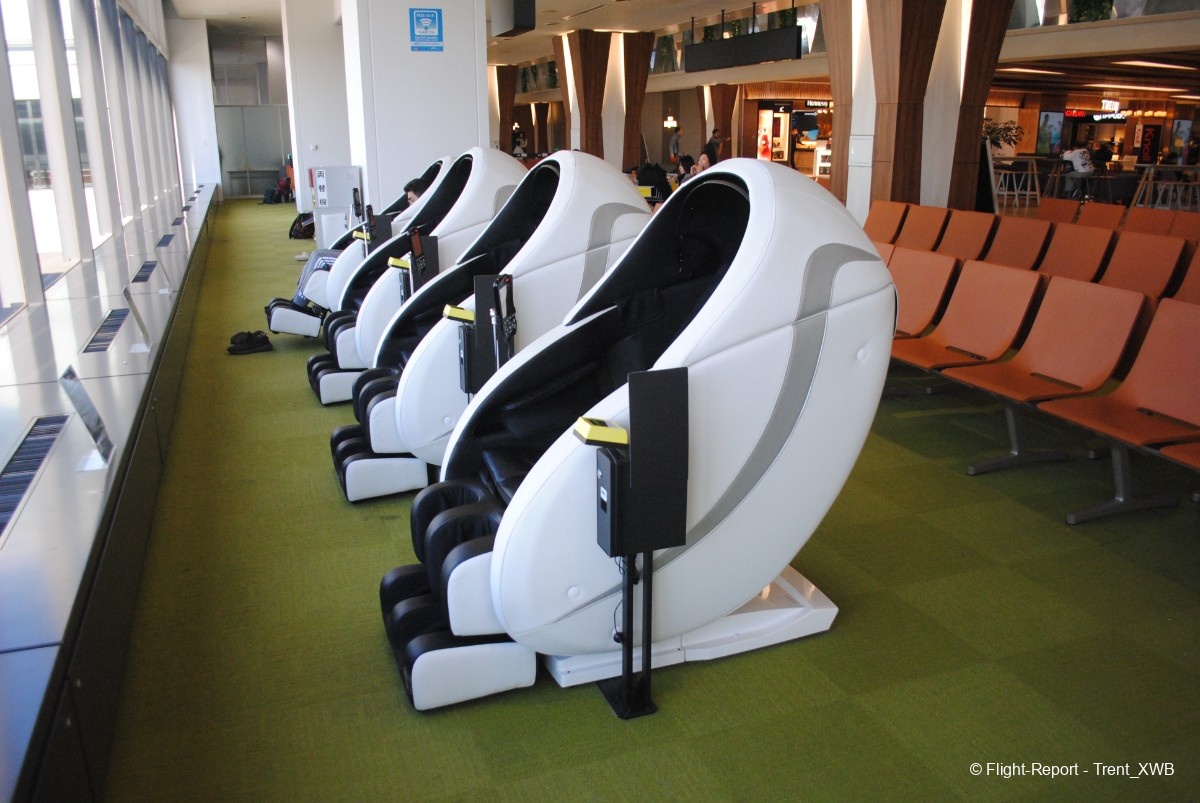
Planespotting from NRT T1
Spotting in T1 NRT is quite interesting, though not as various and extensive as in, for example, ICN.
United operates some interesting flights in East Asia on B738s from its base in Guam and also some 5th freedom intra-Asian routes.
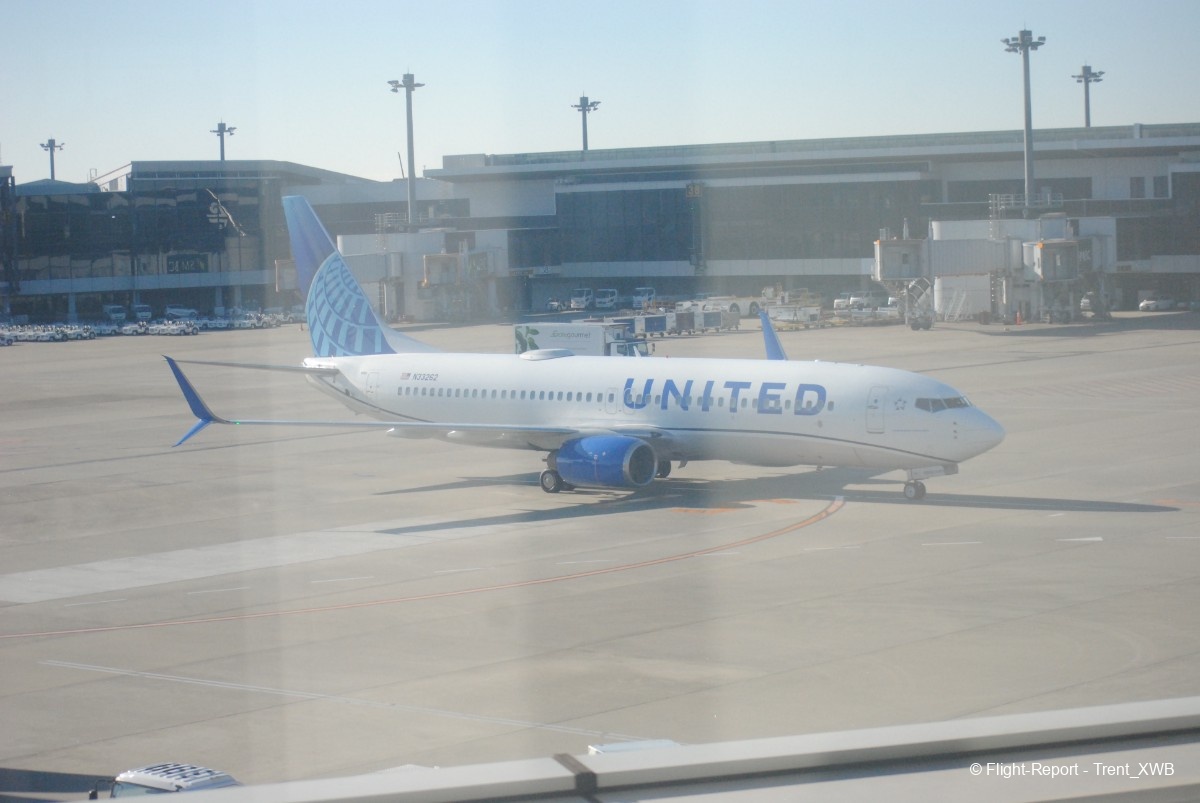
A20N Royal Brunei from Bandar-Seri-Begawan (BWN)
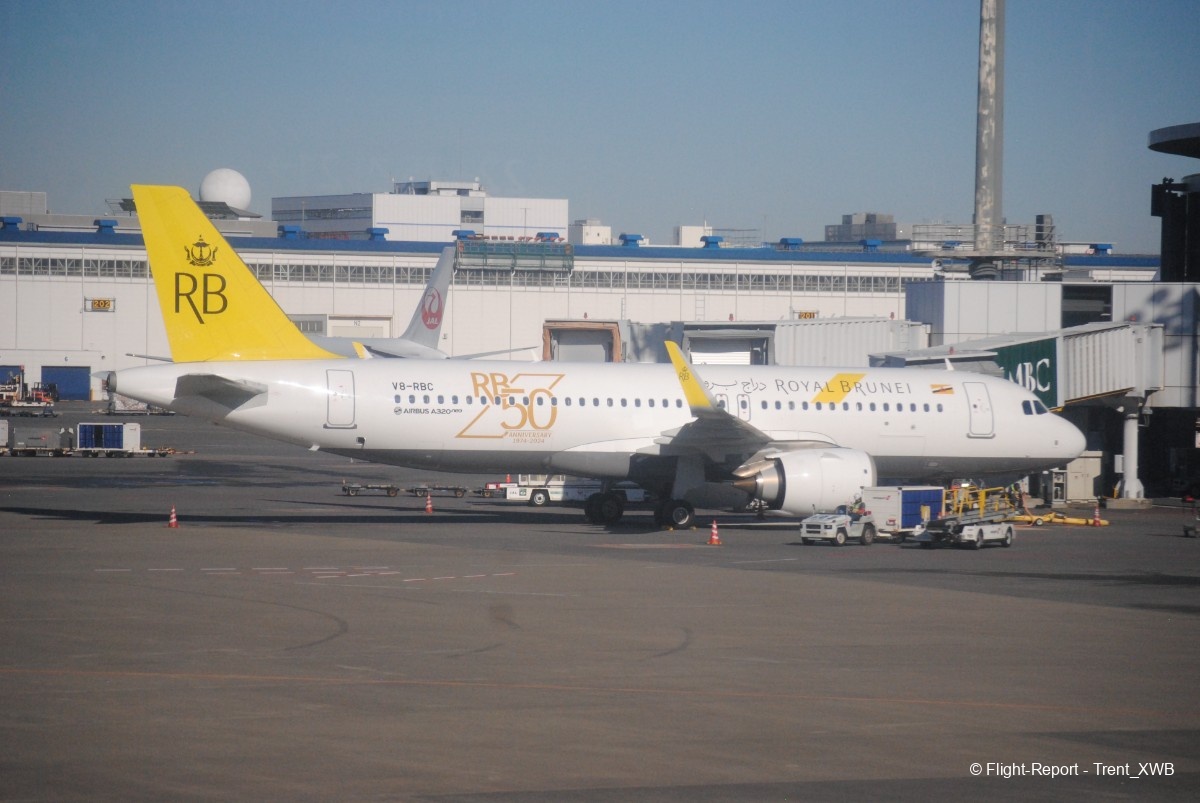
B748F Polar Air Cargo
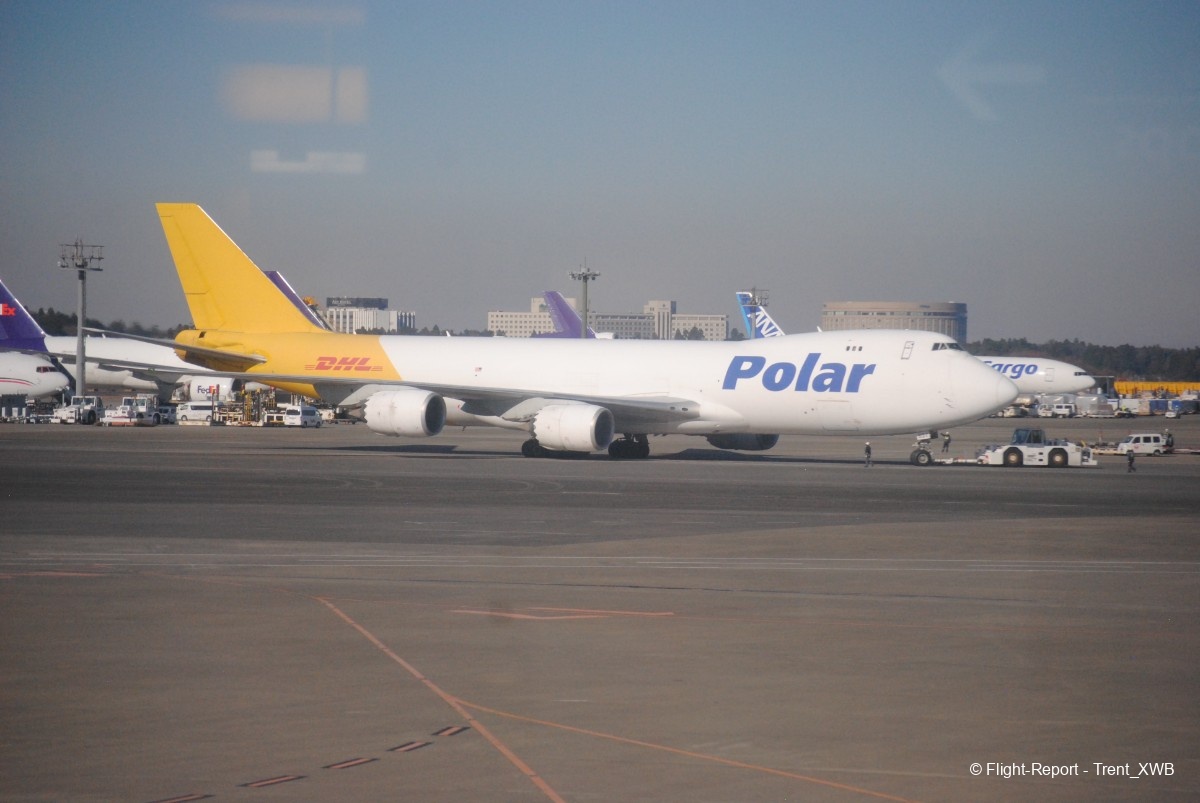
B77F ANA Cargo
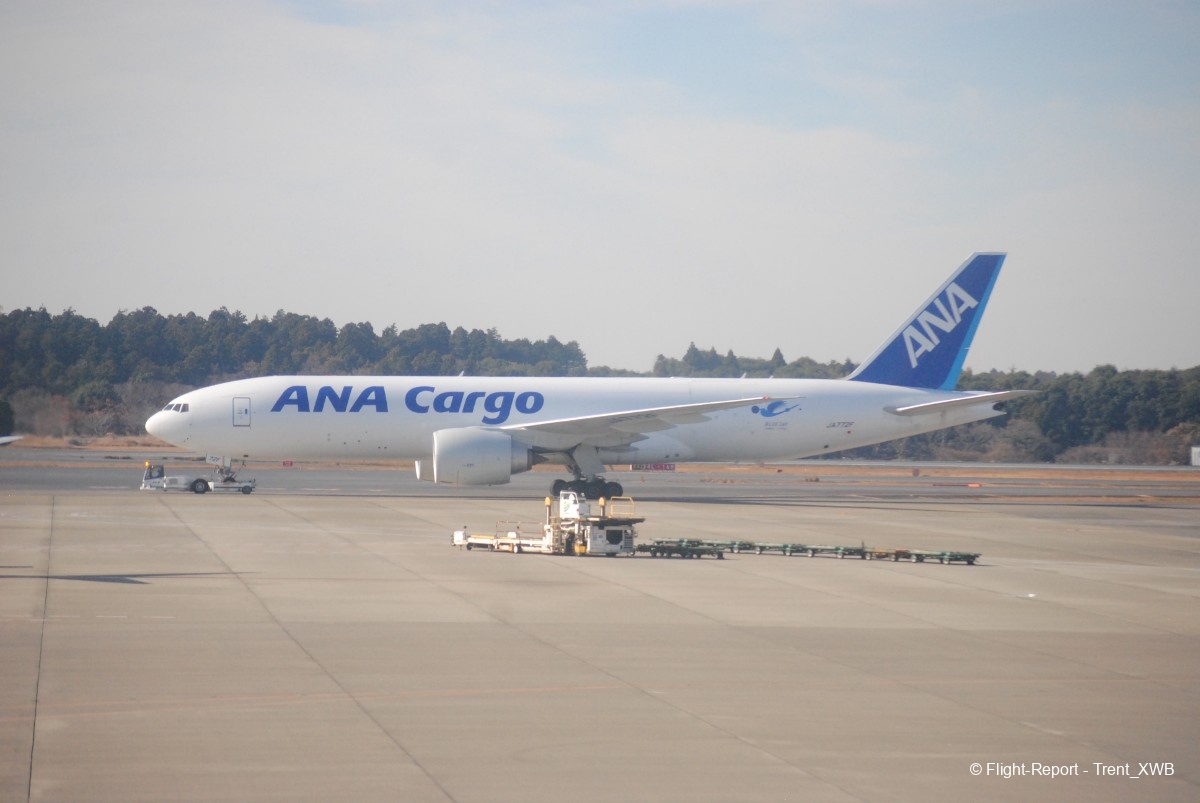
B763F JAL Cargo
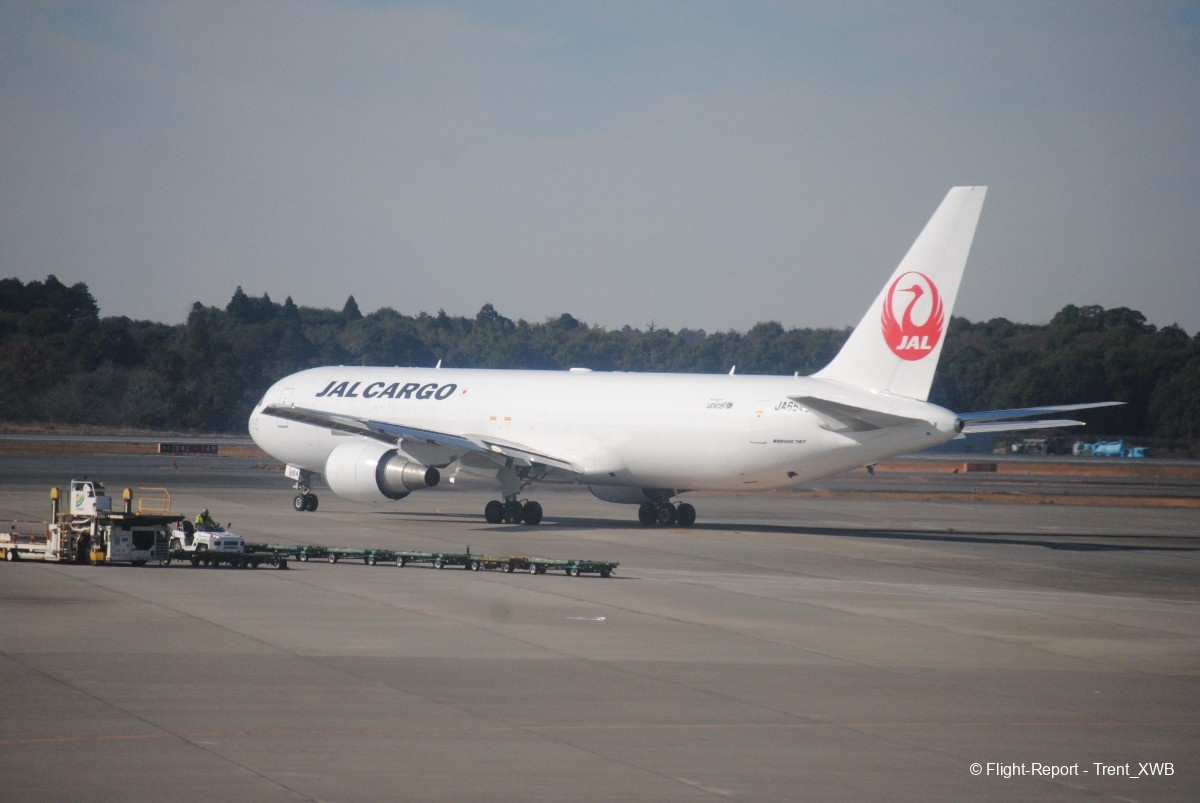
B748F Nippon Cargo
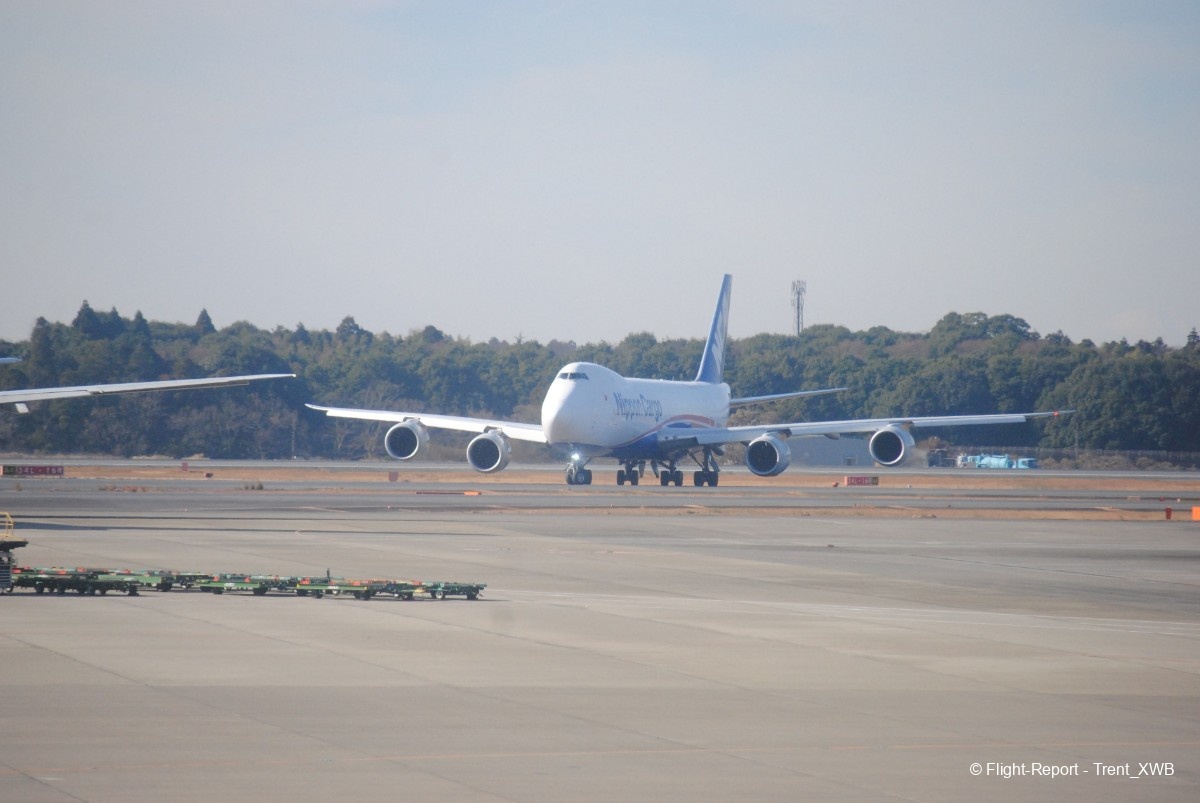
B788 Zipair - JL's lowcost subsidiary, featuring lie-flat business, but no IFE in both business and economy
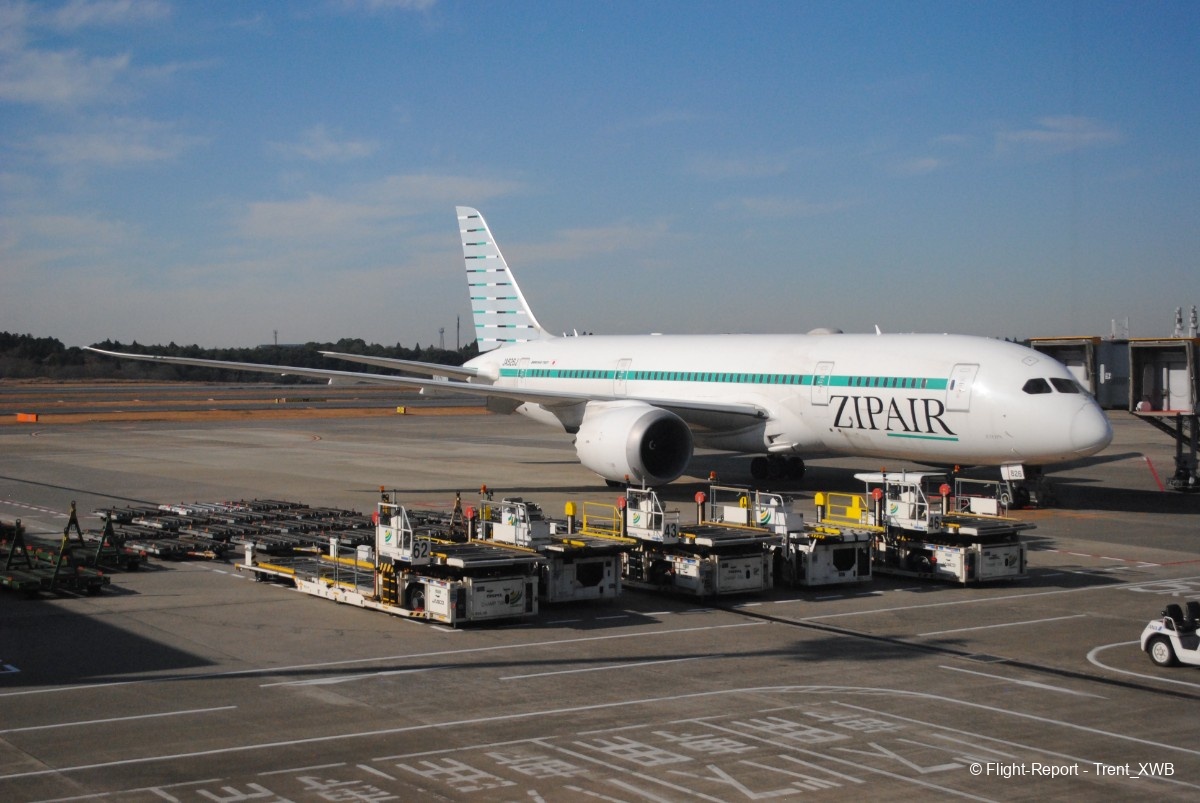
A333 Garuda Indonesia, departing for Jakarta (CGK) and A320 Peach (lowcost subsidiary of ANA) taking off
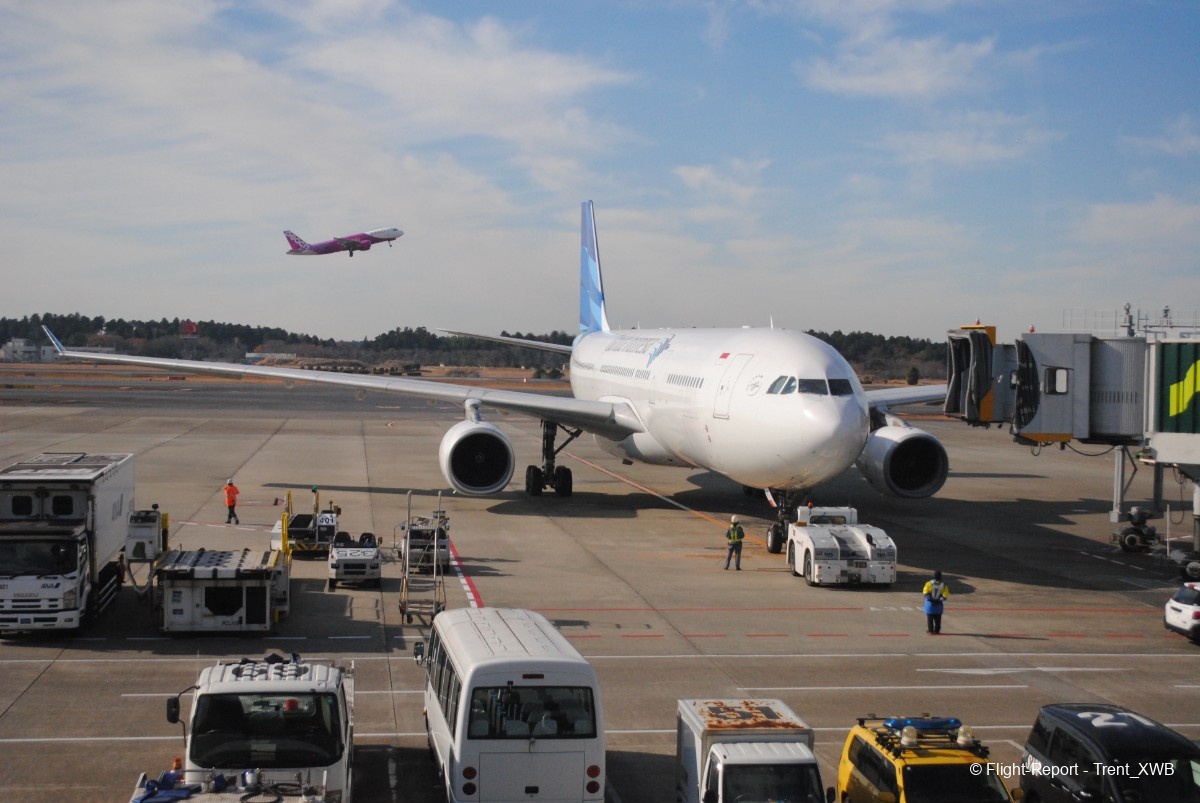
B77W Air New Zealand, bound for Auckland (AKL)
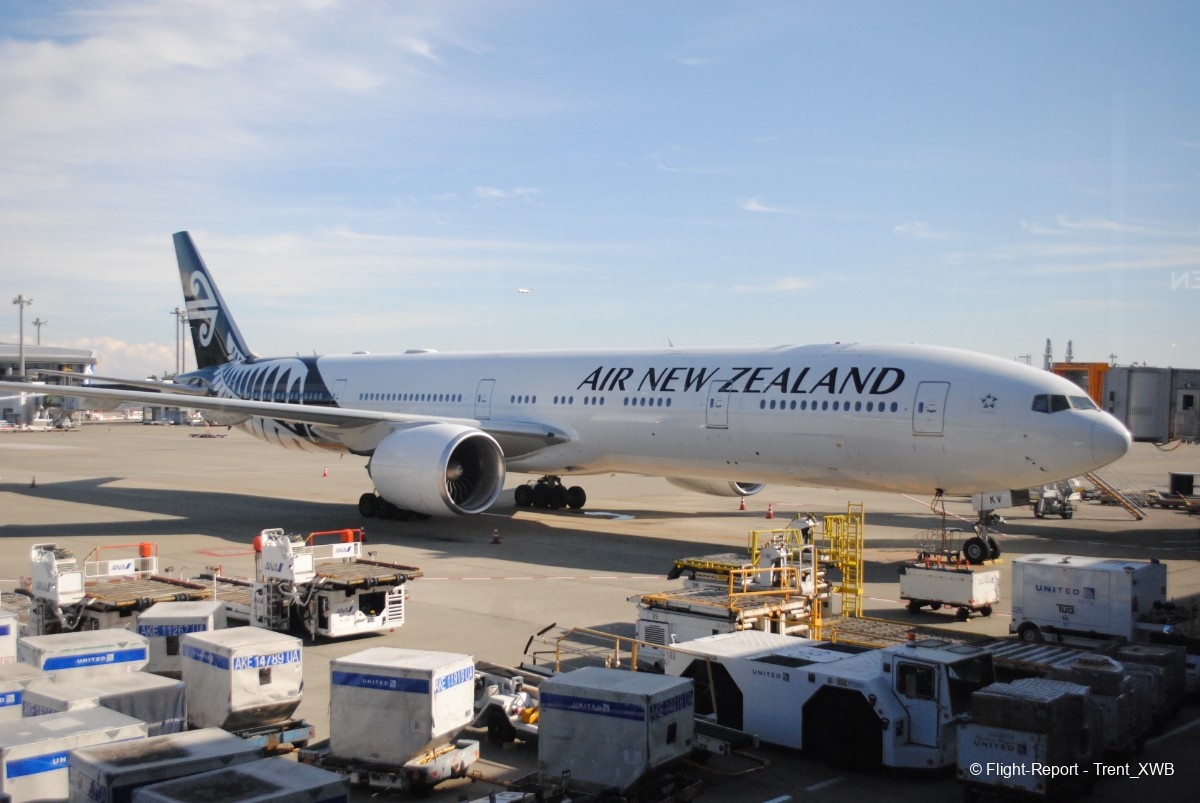
B788 Scoot in Pikachu Jet livery. The presence of lowcost carriers in NRT is significant.
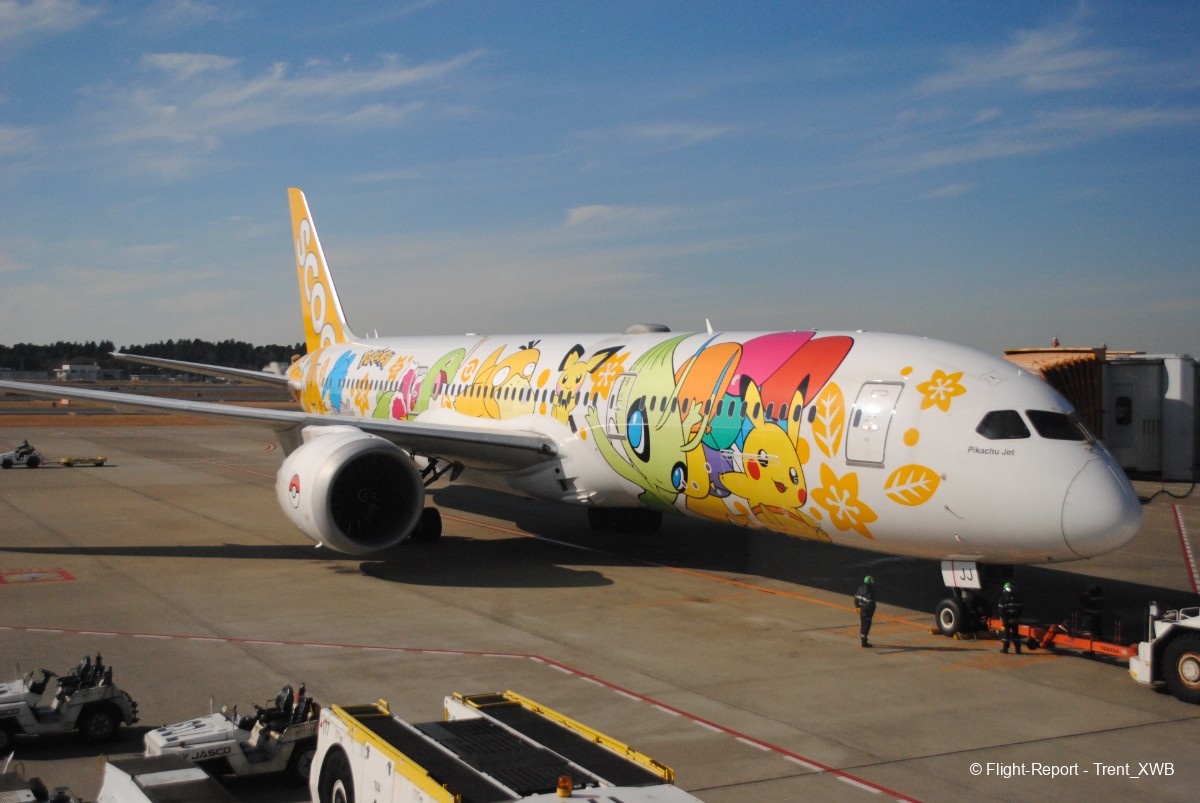
B77W Thai Airways, bound for Bangkok (BKK)
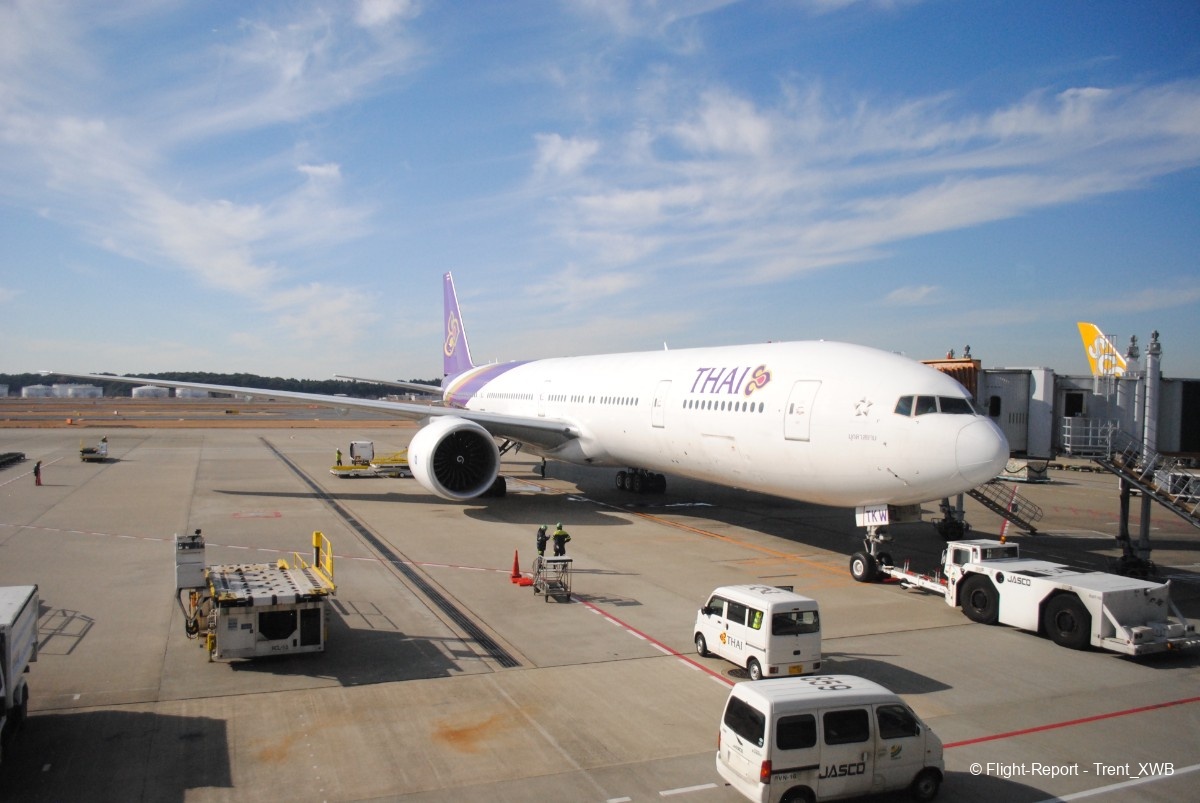
The Aircraft
And here comes the aircraft of today - 2016-built A380-841 HL7640, landing from ICN. Only inner engines have thrust reverse and that's enough to slow down the giant.
Length: 72.72 m, wingspan: 79.75 m, height: 24.09 m, engines: 4x RR Trent 900 with 75.12 lbf of thrust each.
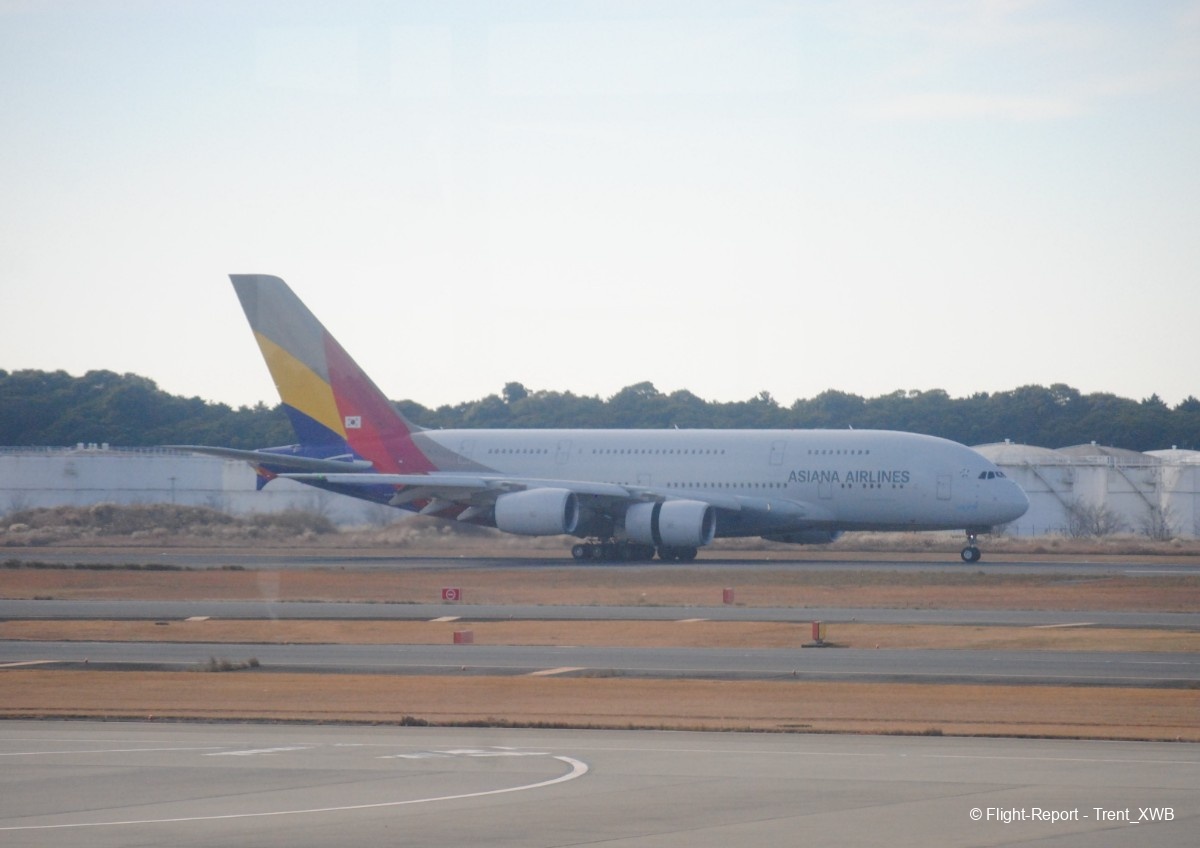
As the whalejet taxies to the gate 45, it's possible to make its shots from different angles:
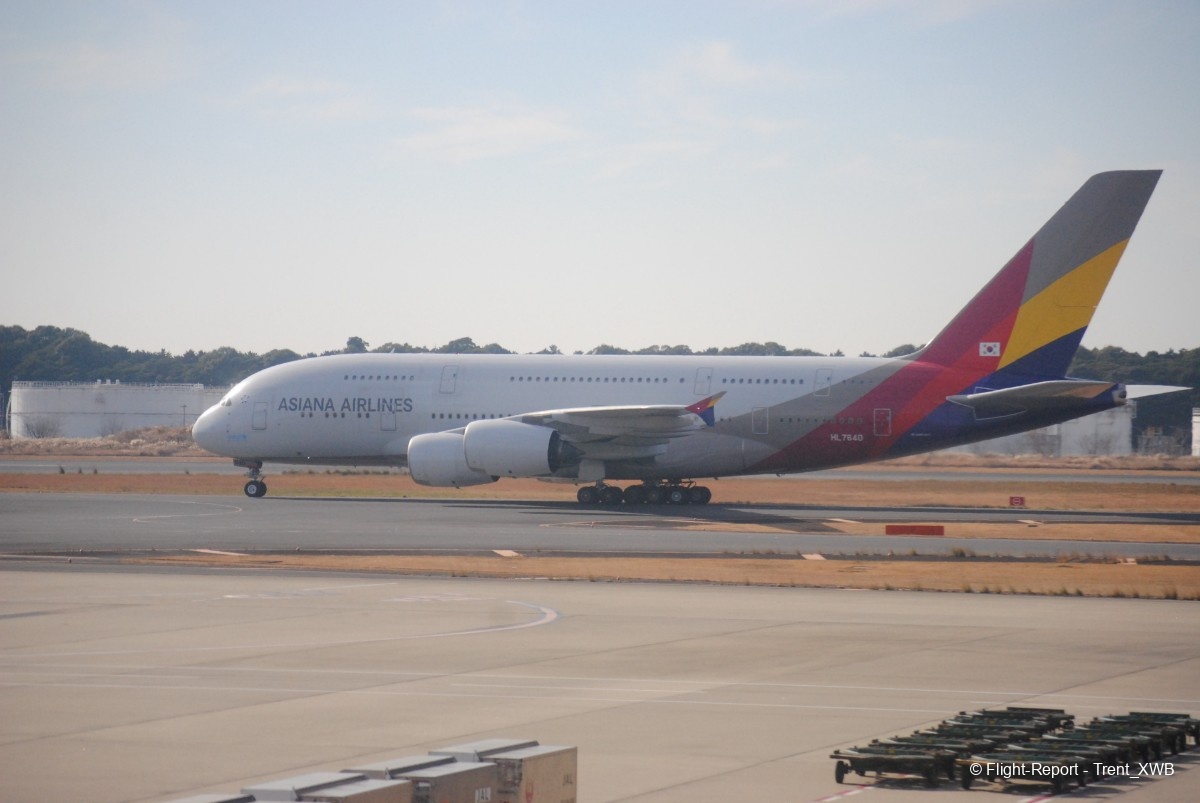
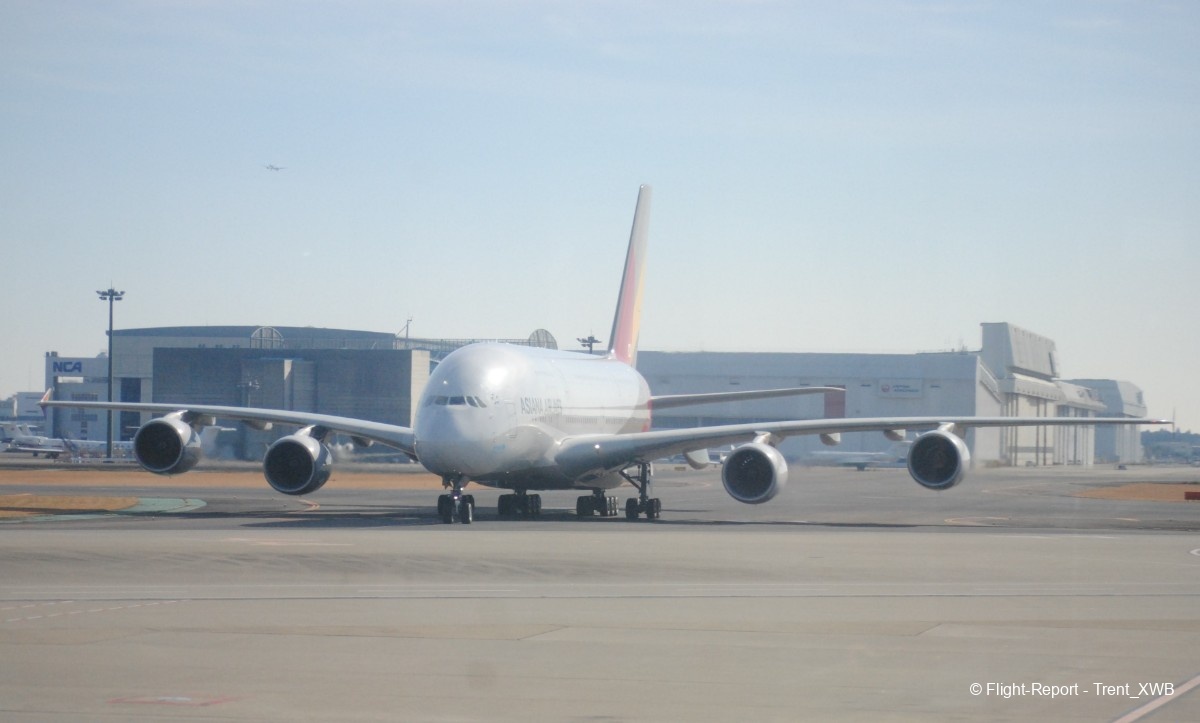
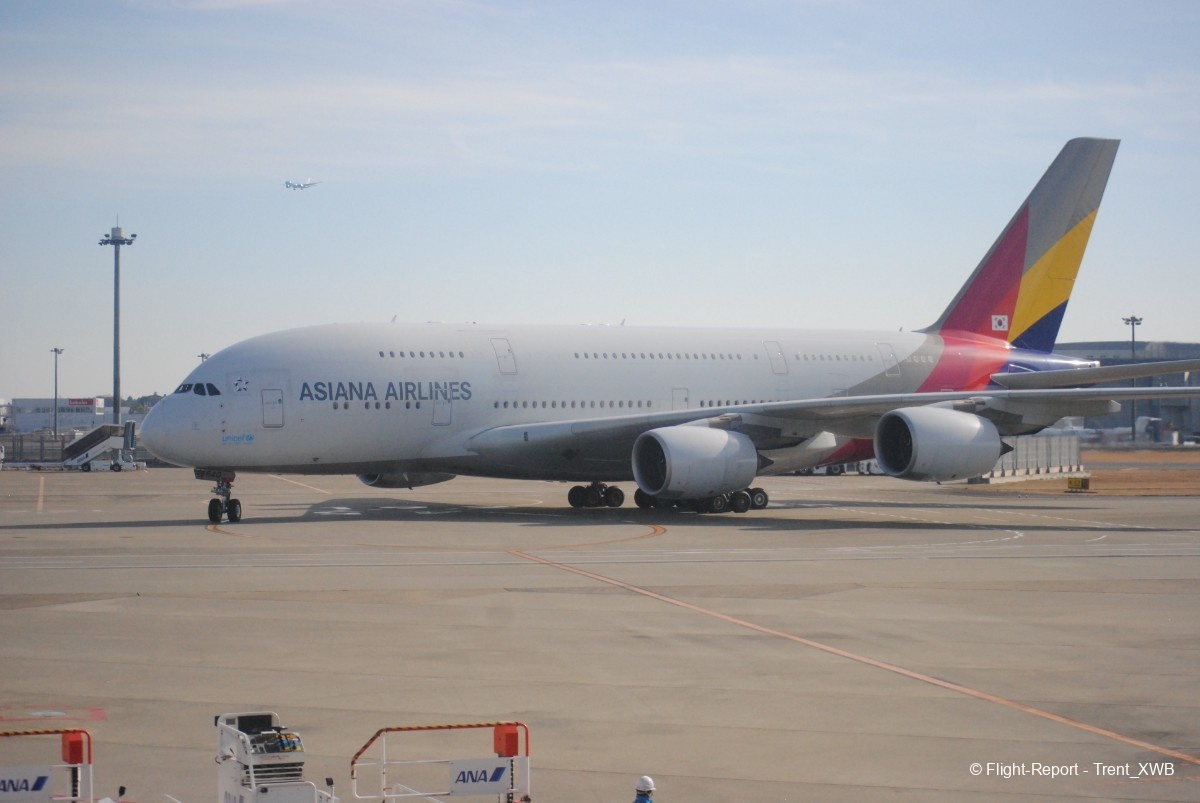
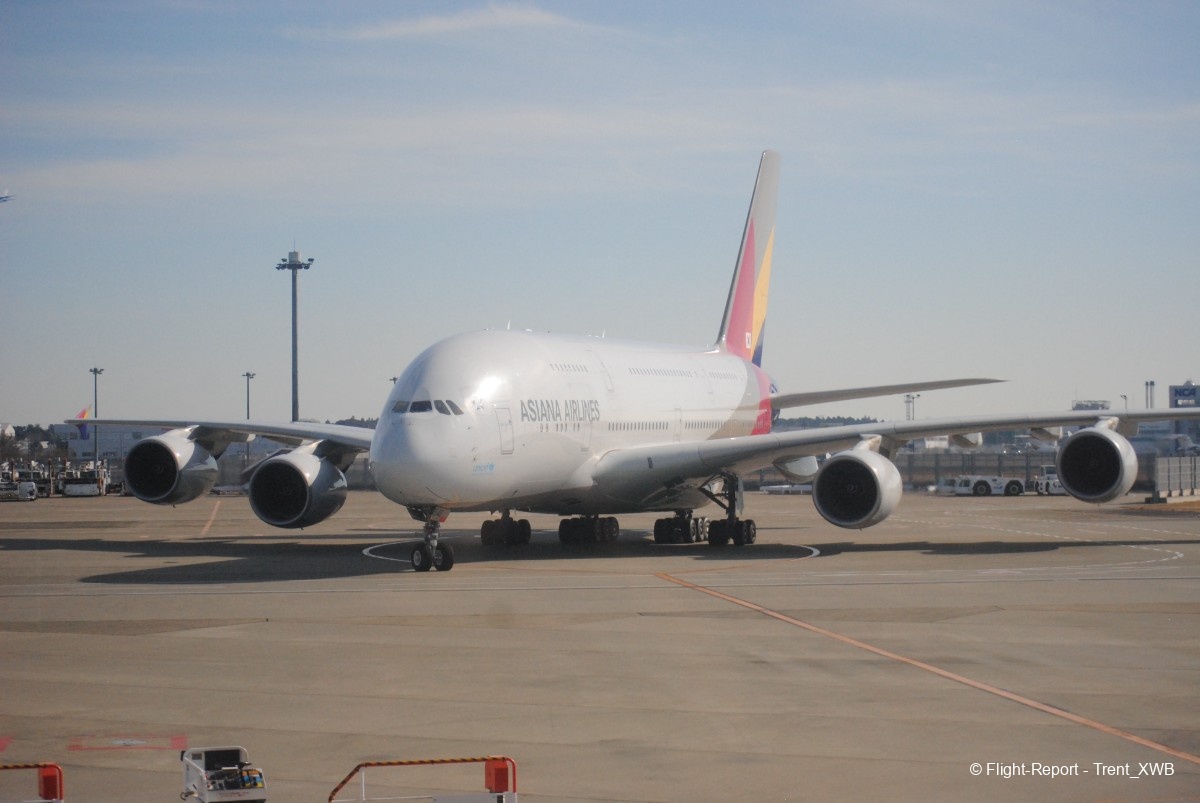
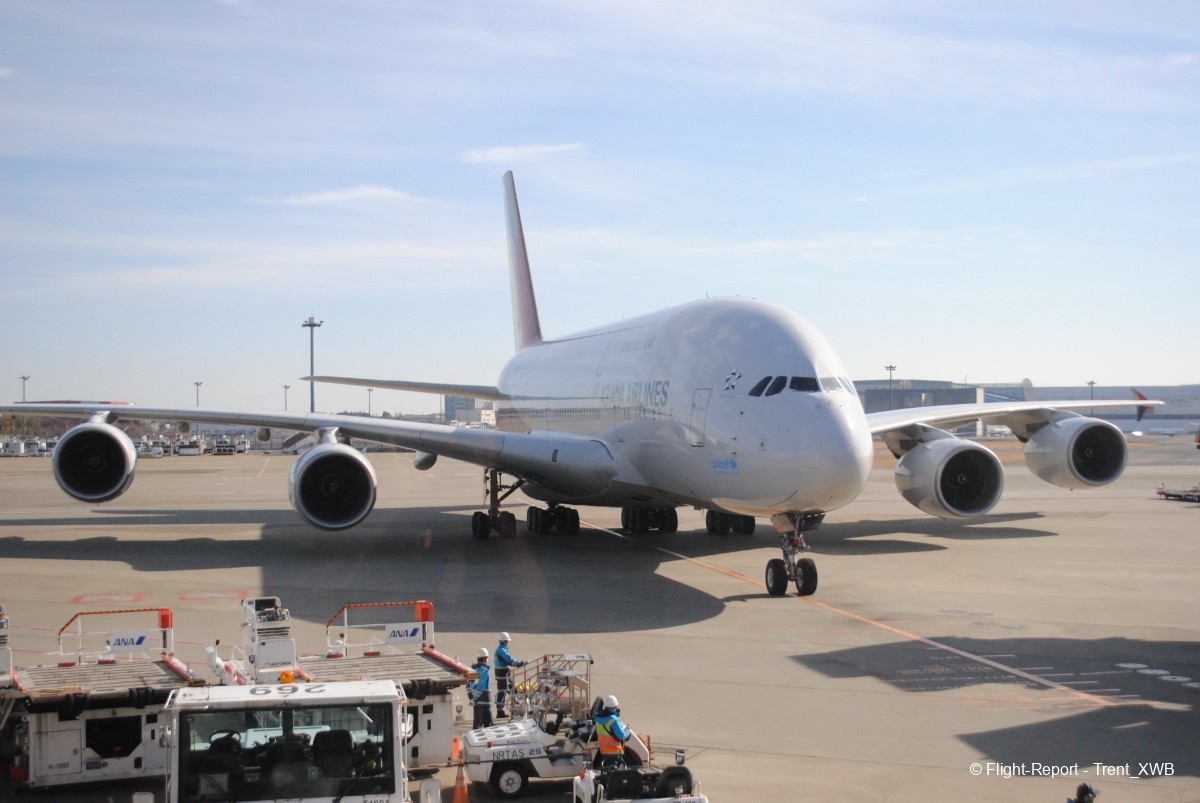
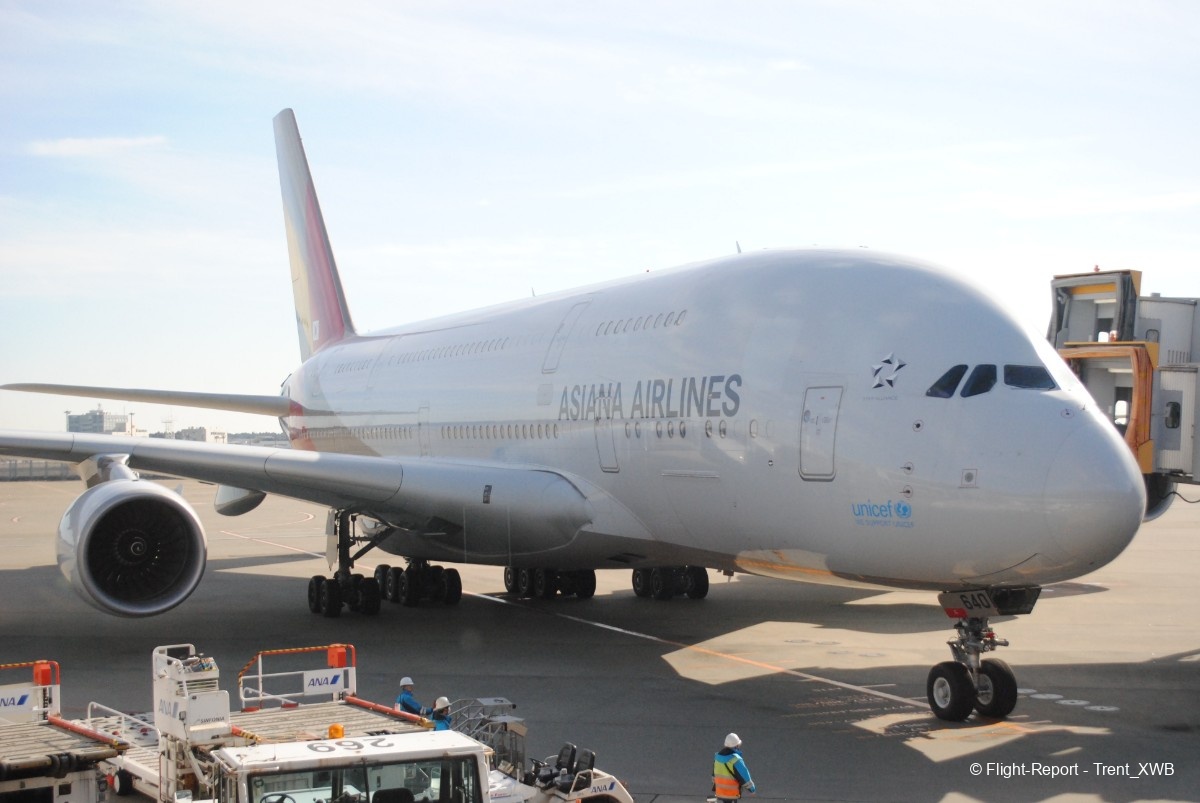
Boarding
Display at the gate emphasizes the speciality of this flight.
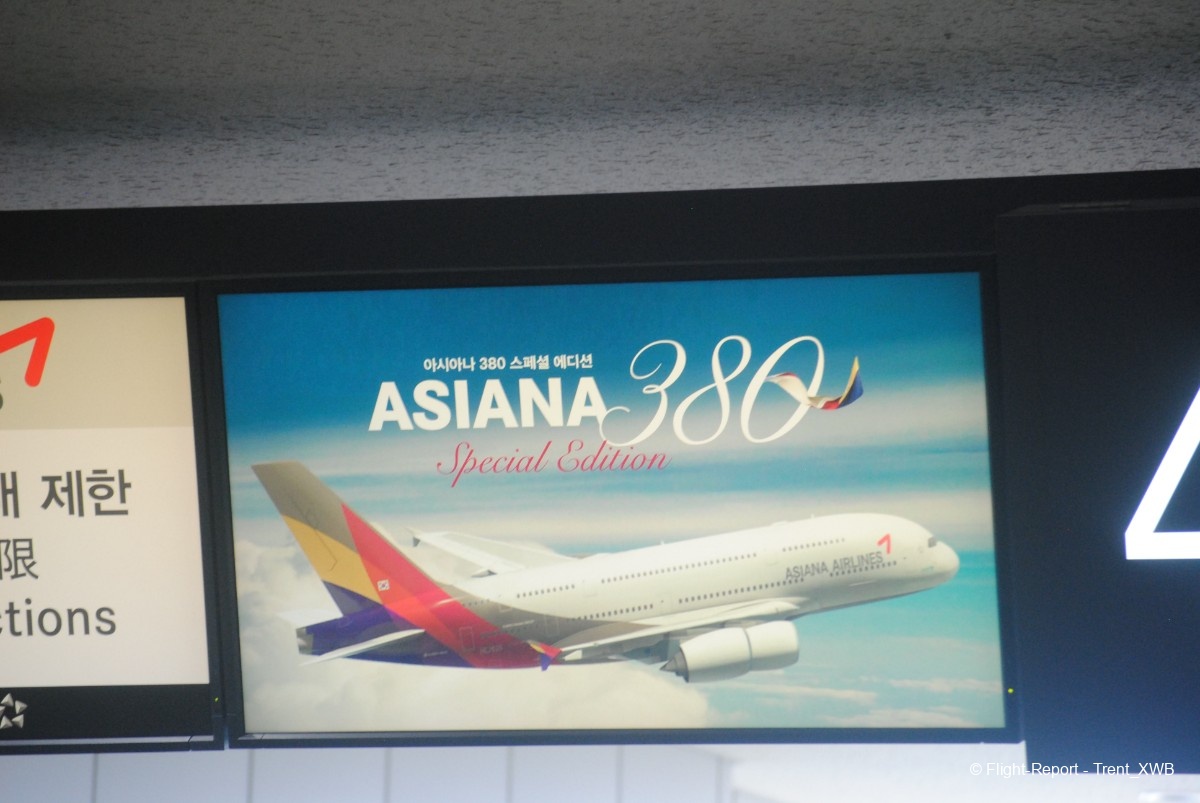
Time to board the whalejet. I'm boarding via bridge, connected to the upper deck.
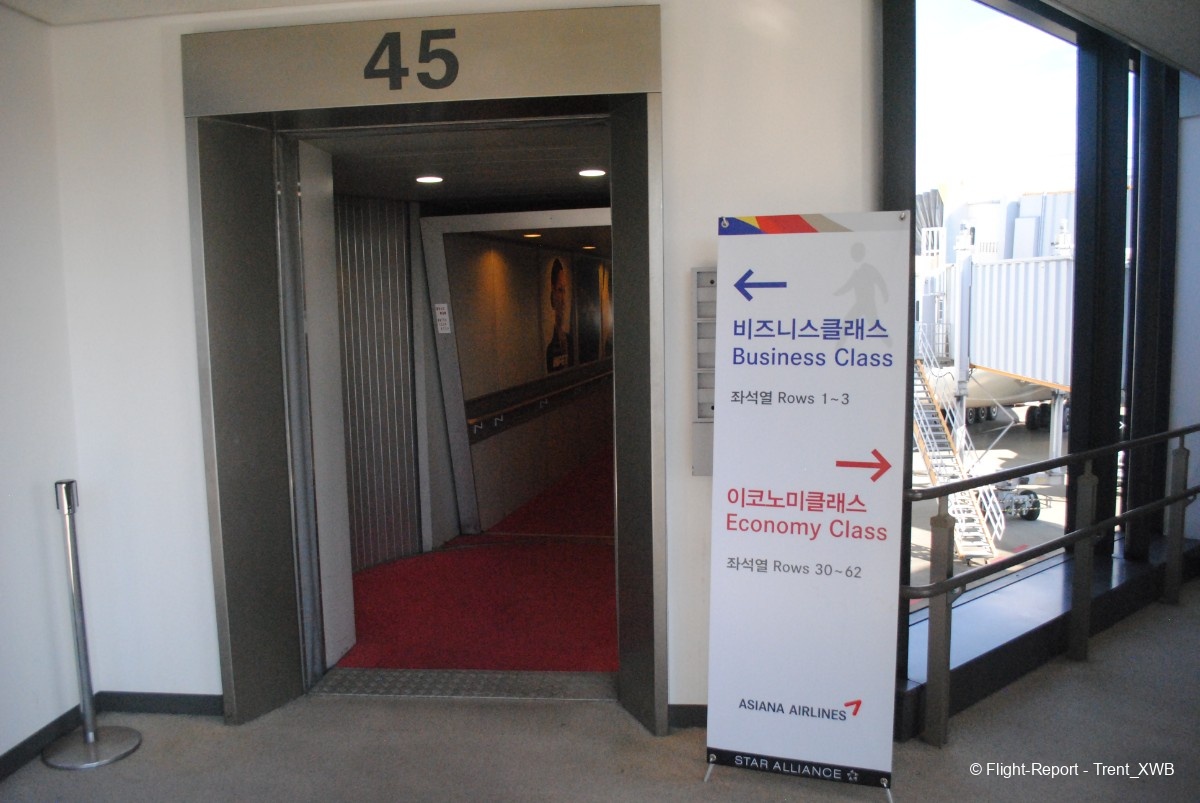
Door U1L
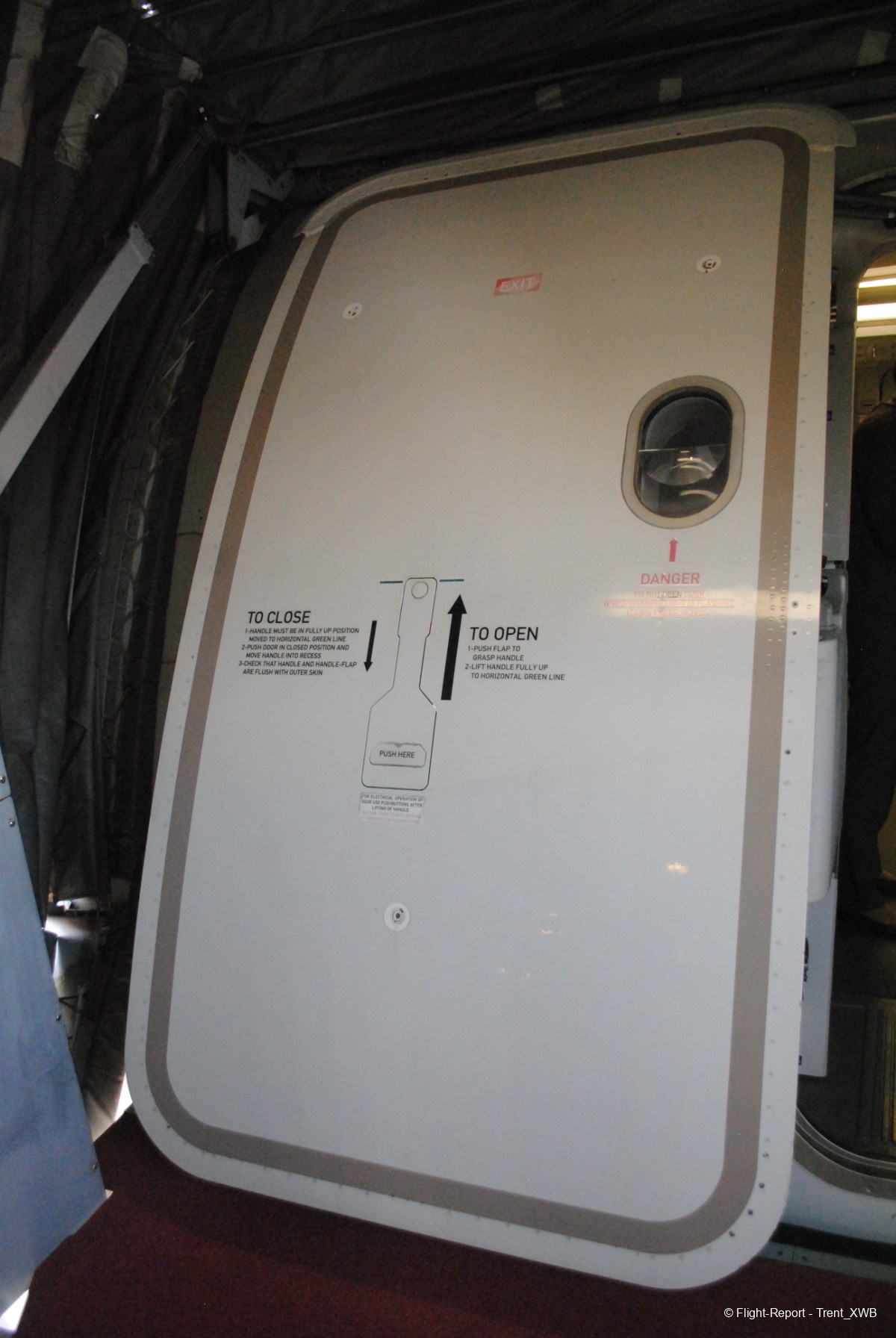
And here begins my mission: I'll try to make full circuit around both decks during the boarding (when both stairs are open) to make detailed review of all the cabins.
The Second Business Cabin
Quick pass via second business cabin (between U1 and U2 door pairs), which I'll show in details further.
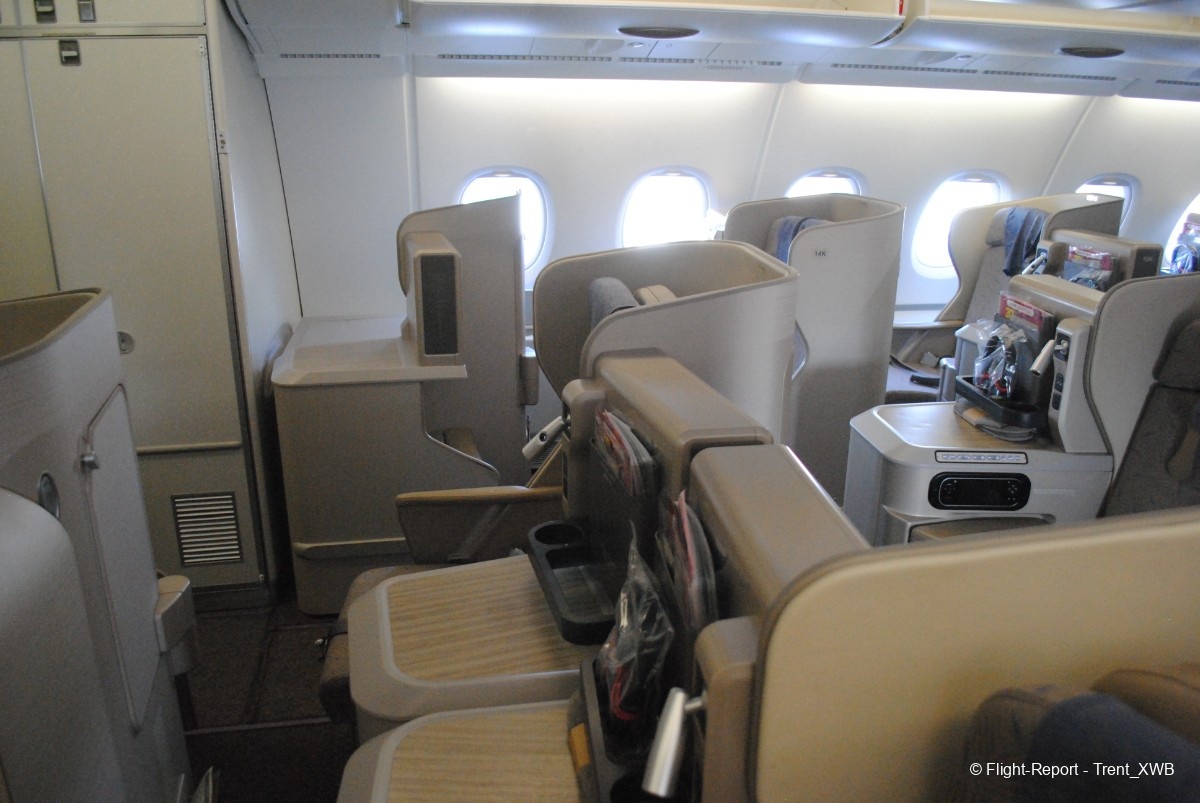
The Upper-Deck Economy
The upper-deck economy cabin consists of 106 seat in 2-4-2 layout. Unlike British Airways A380, there is no partition into 2 cabins by a lavatory between U3 doors pair. Just one relatively long cabin. Please note that exit row seats 80A/K near U3 doors don't have windows (and seats 70A/K near U2 doors as well). Overhead bins in economy are of A330ceo-type (relatively small).
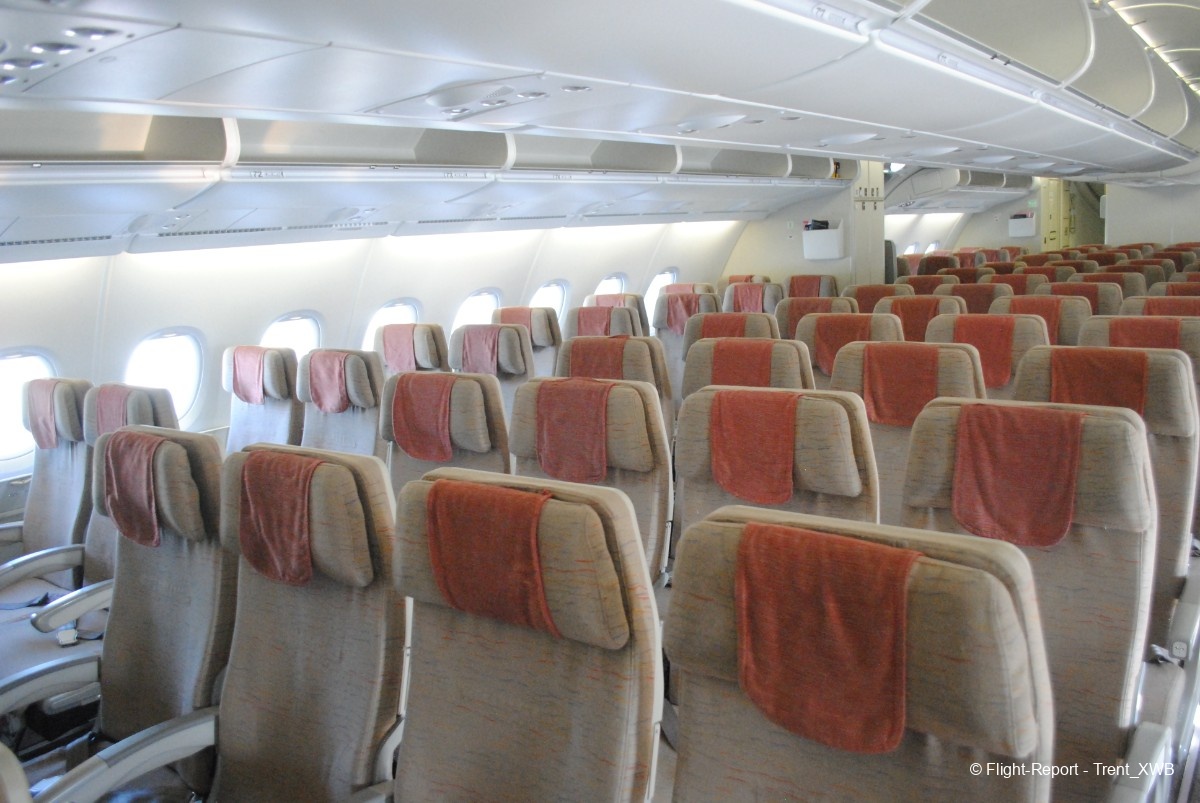
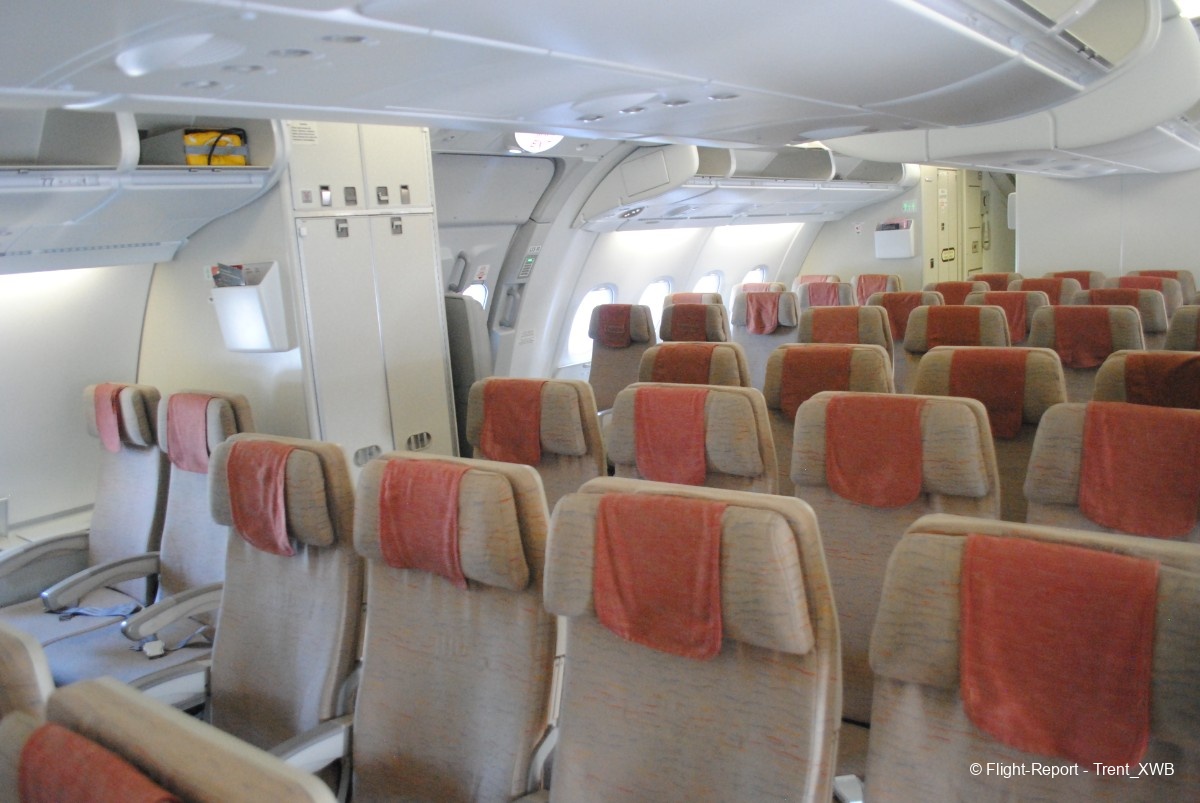
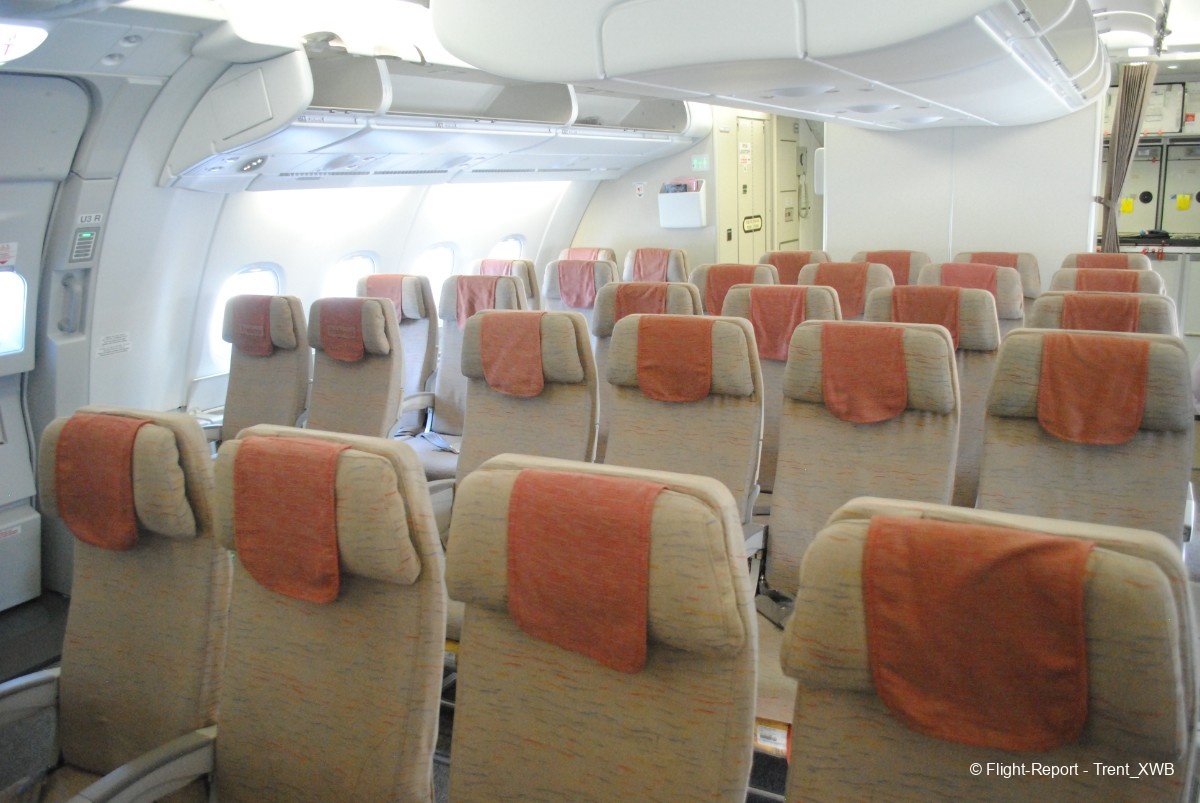
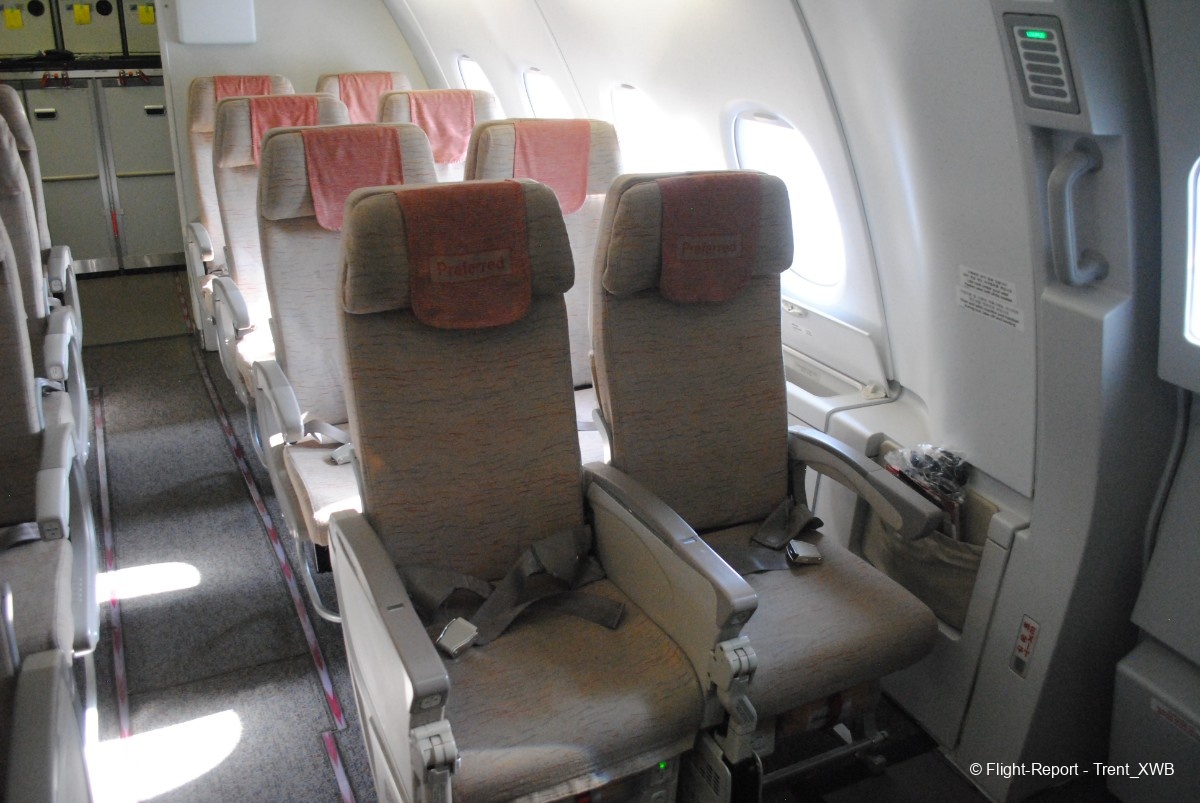
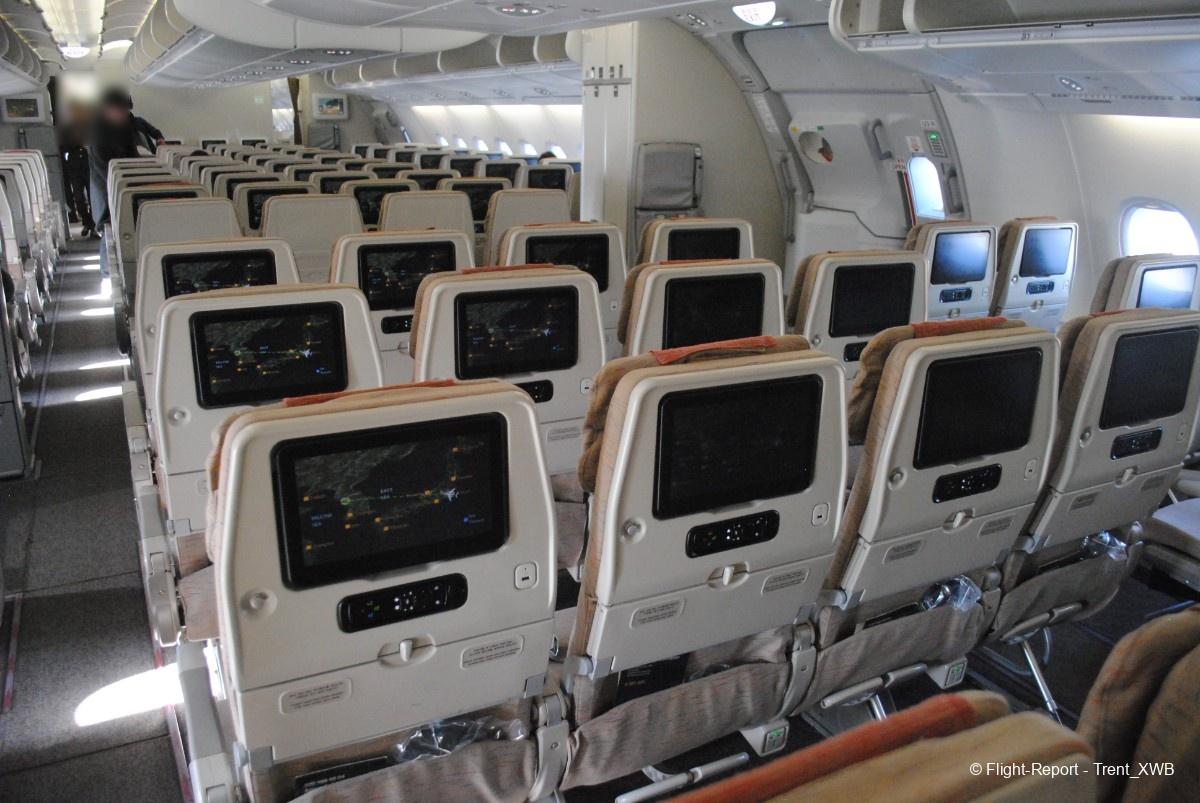
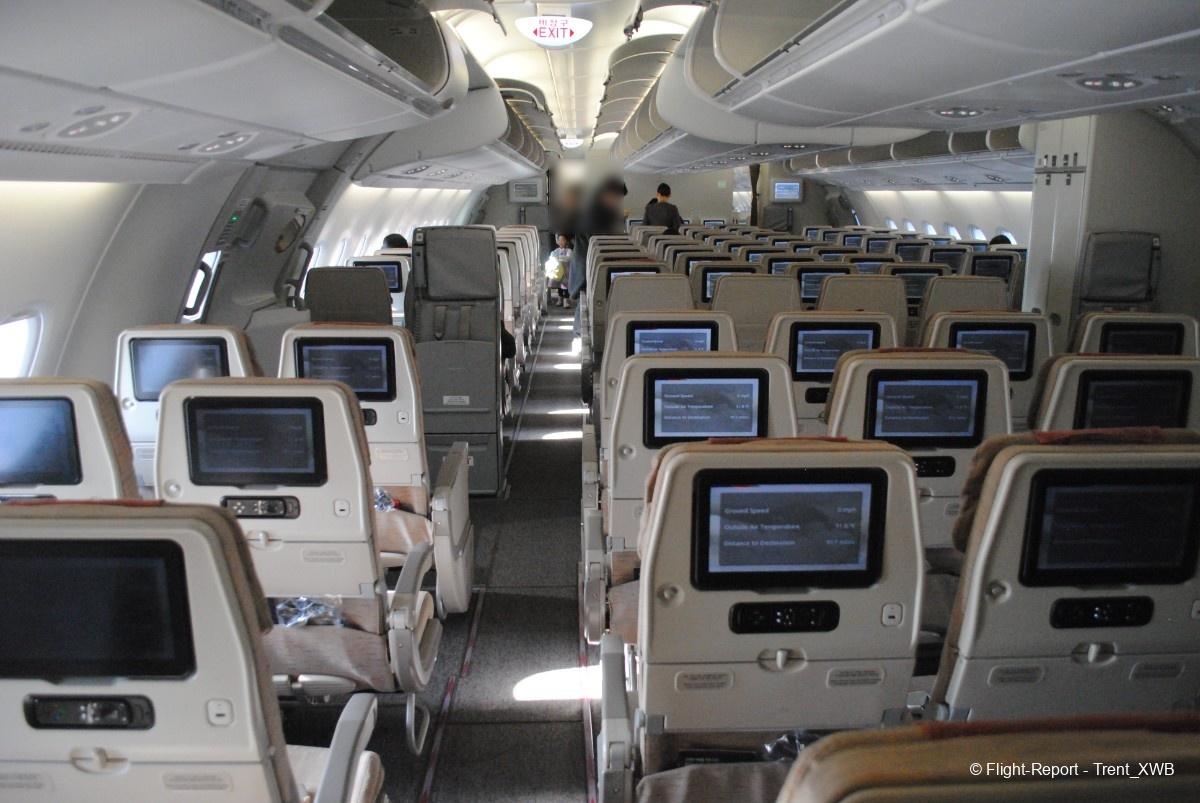
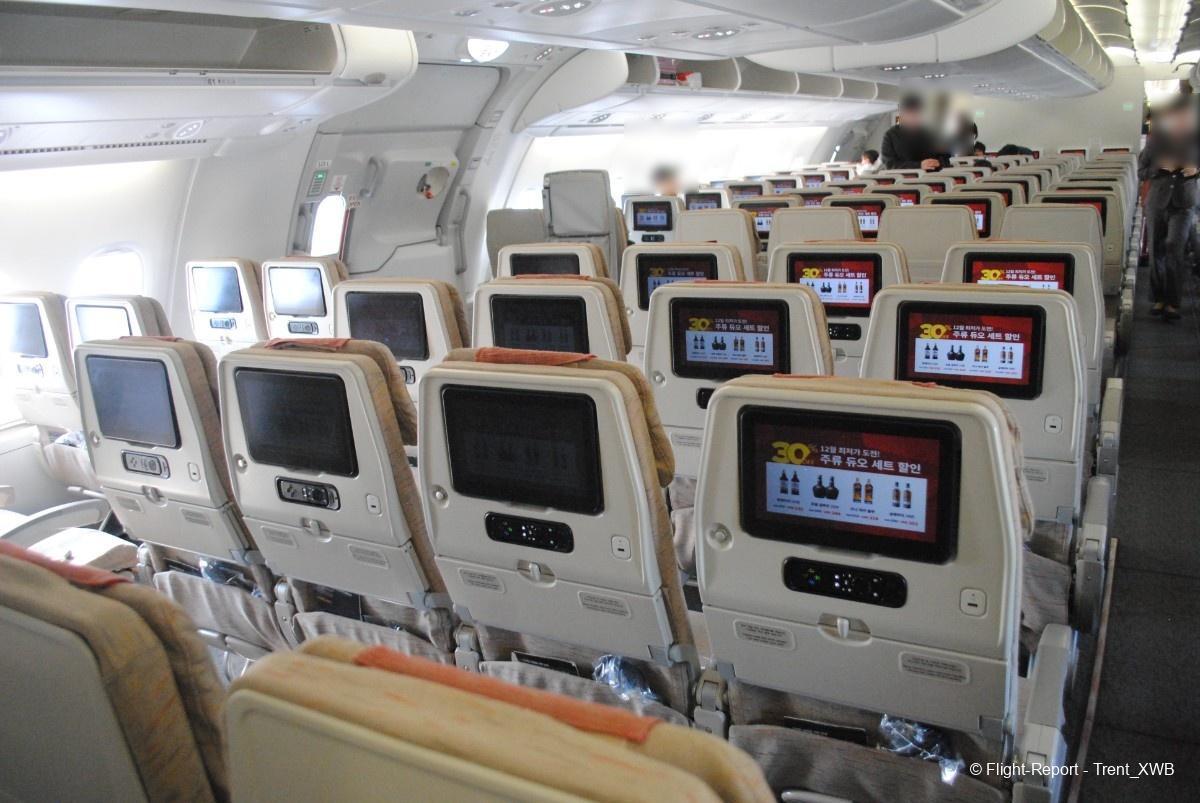
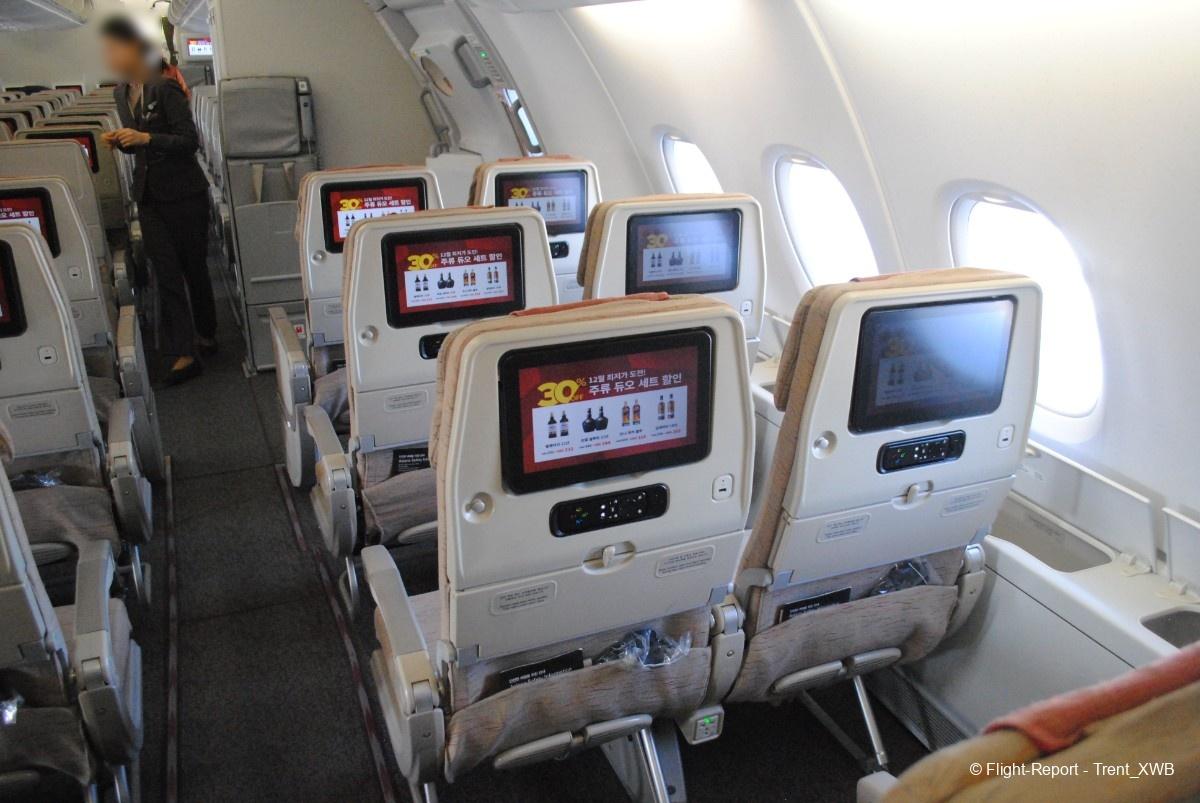
The Rear Stair
The rear A380 staircase is spiral.
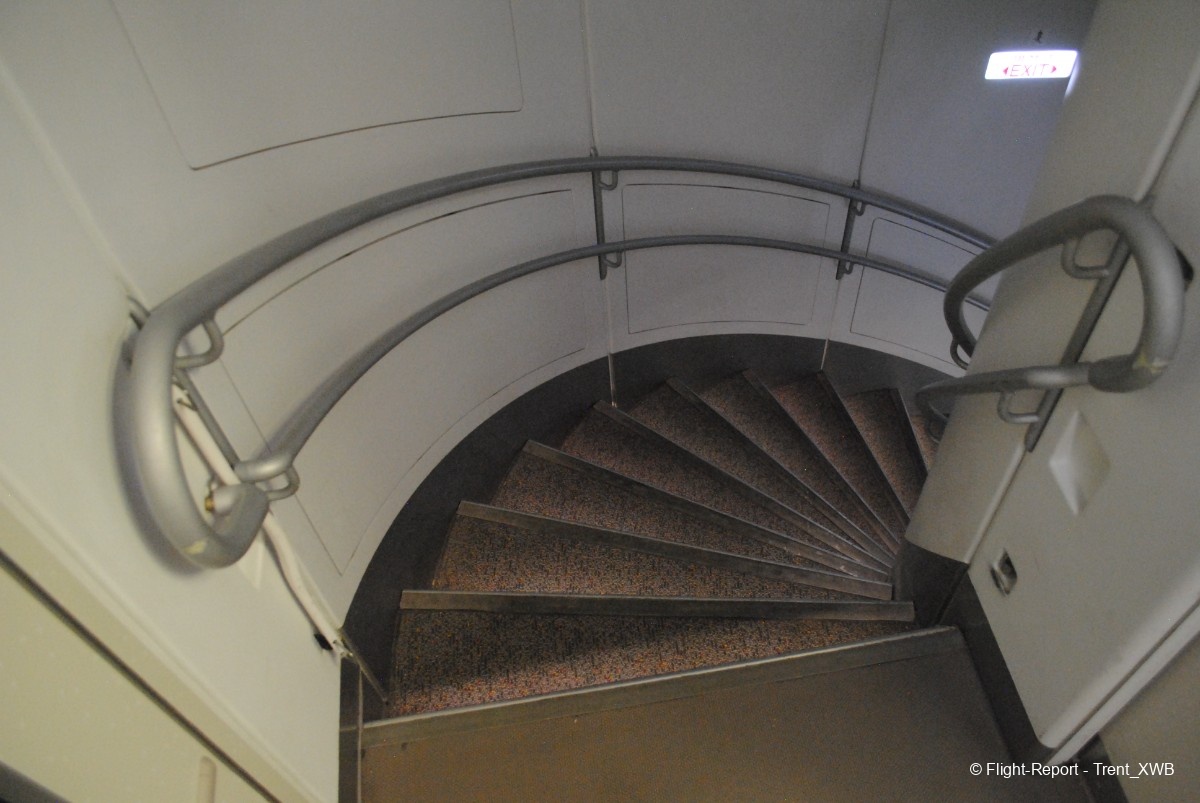
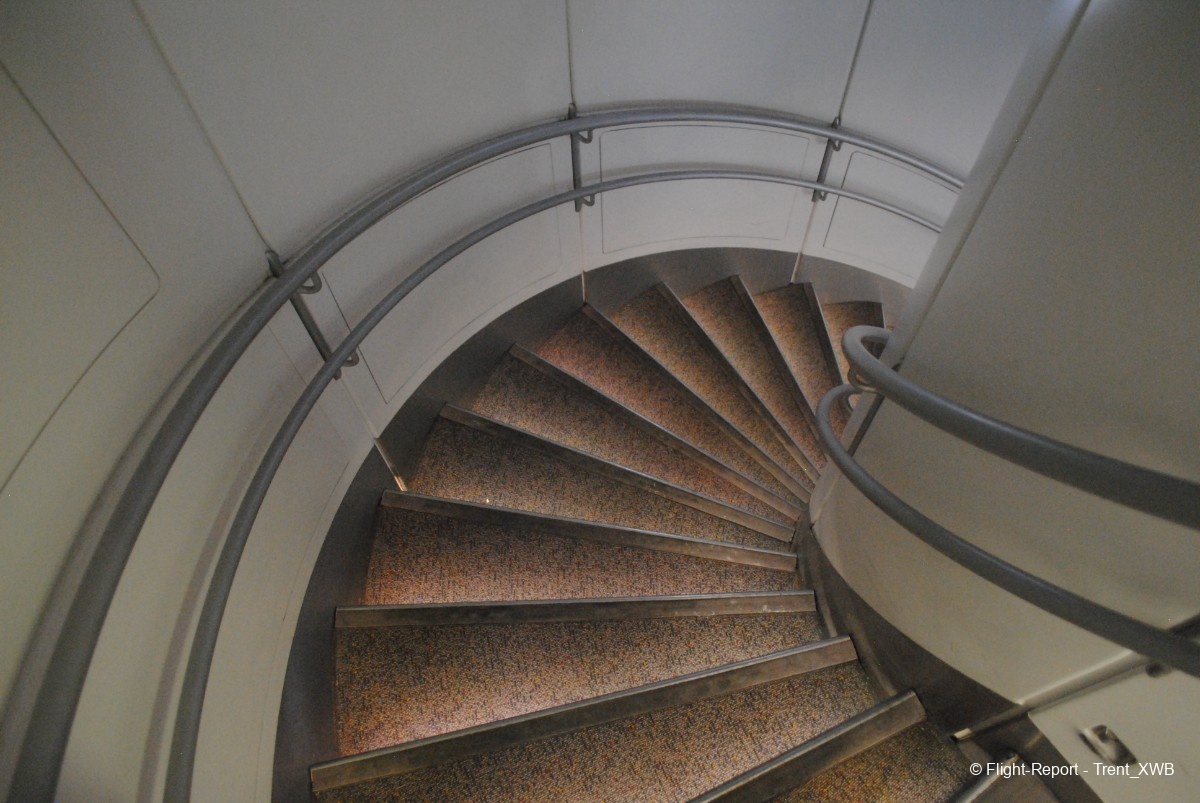
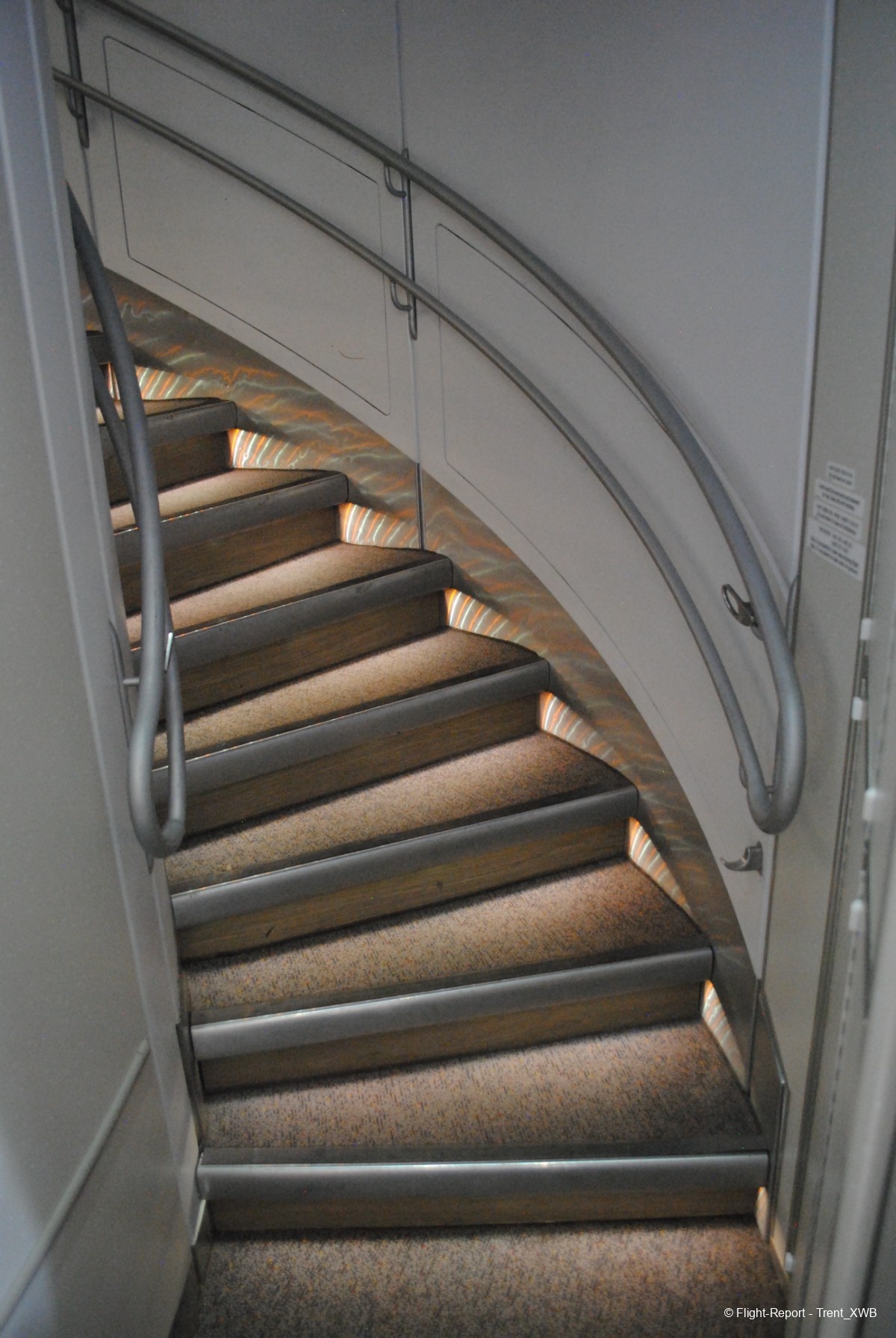
The Lower-Deck Economy
Going down the stair, here we are in the vast lower deck economy, which consists of 311 seats in 3-4-3 layout.
Door M5R
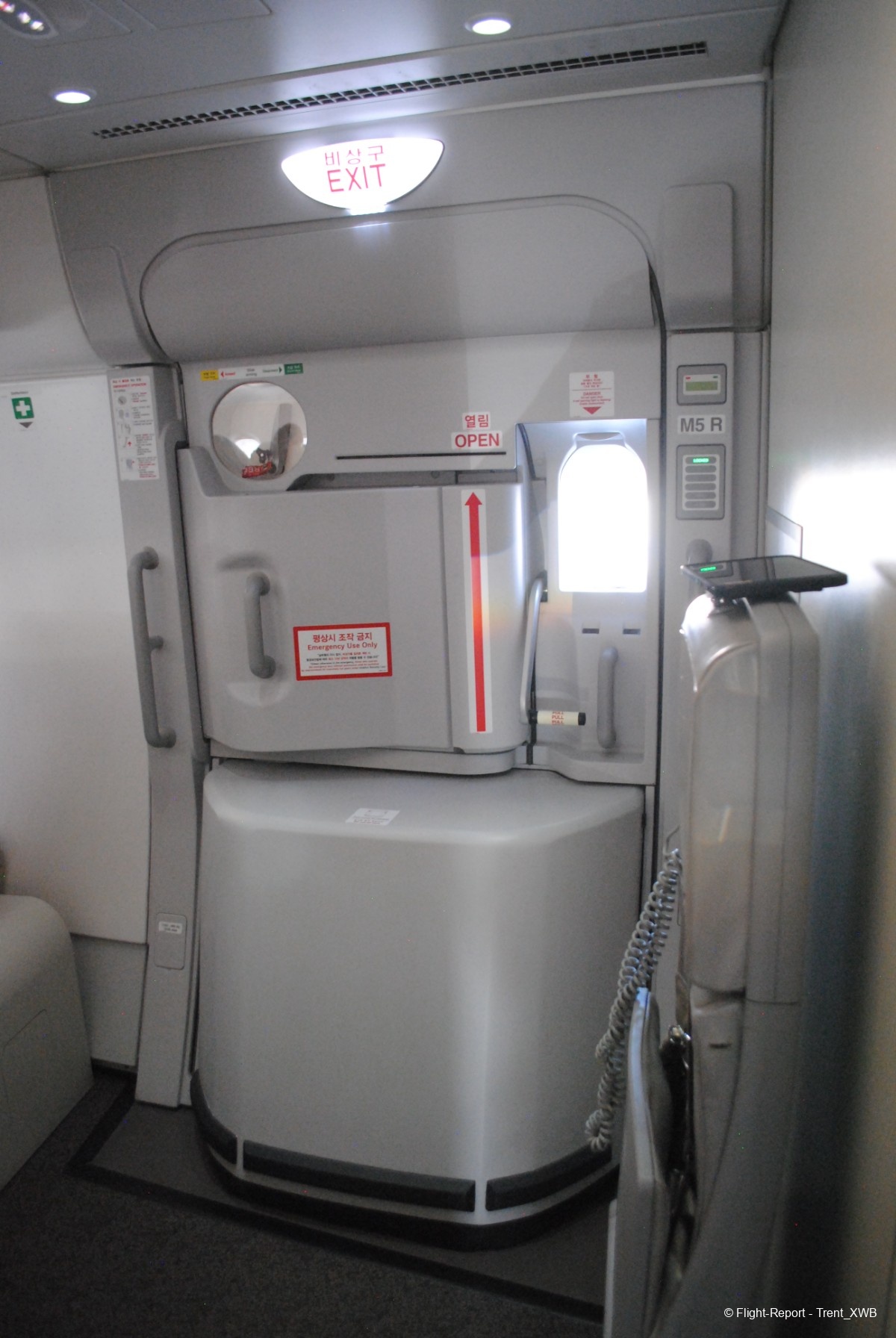
The rear lower-deck Y cabin consists of rows 54-62. The first 3 photos in the gallery taken on my previous flight on HL7640. Row 54 (exit row) feature aisle-aligned duo seats (BC and FJ), thus seats 55A/K have infinite legroom (last photo in the gallery). On the last photo one can clearly see the impressive obtuse angle of the cabin walls on the shoulder level.
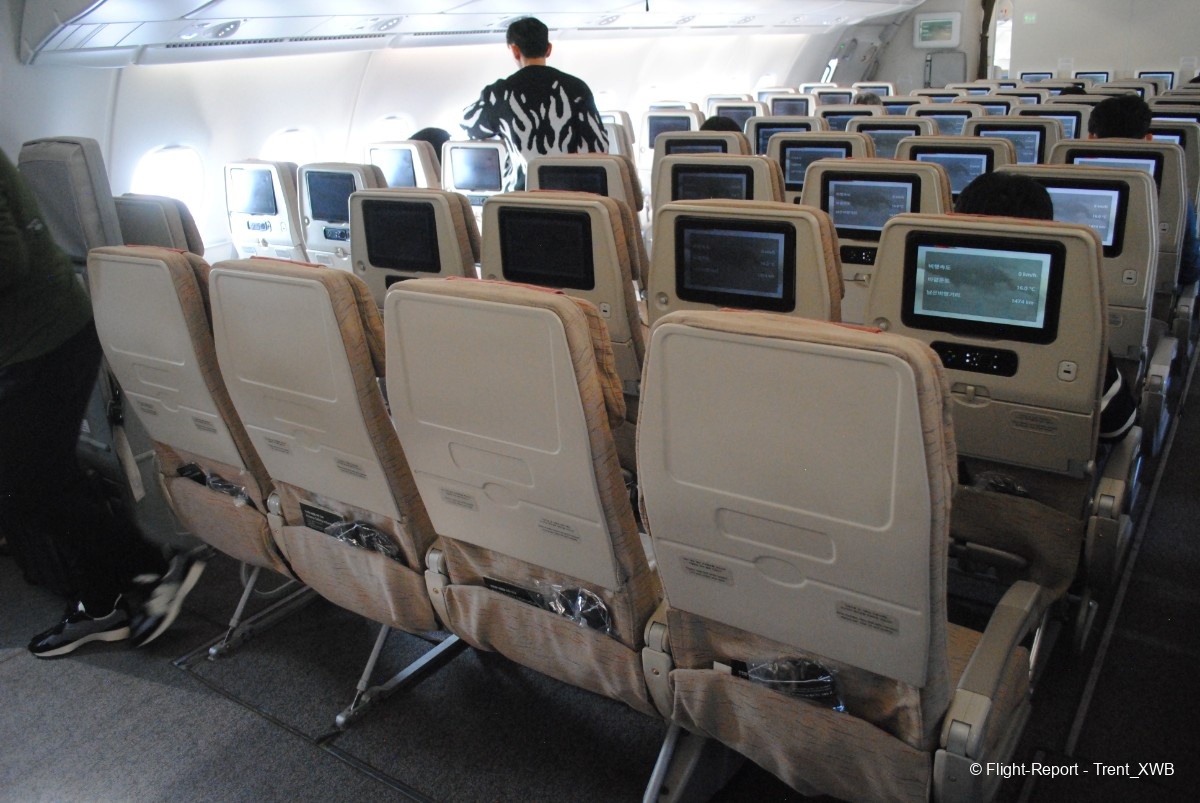
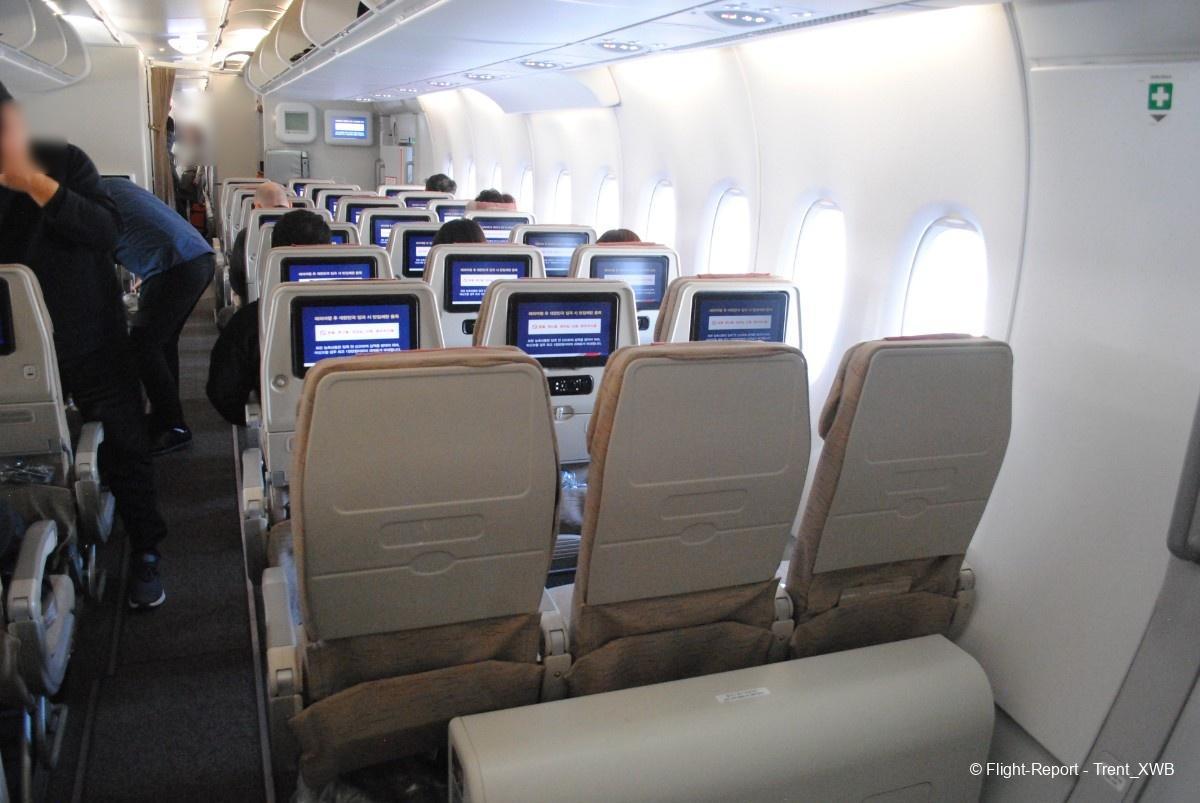
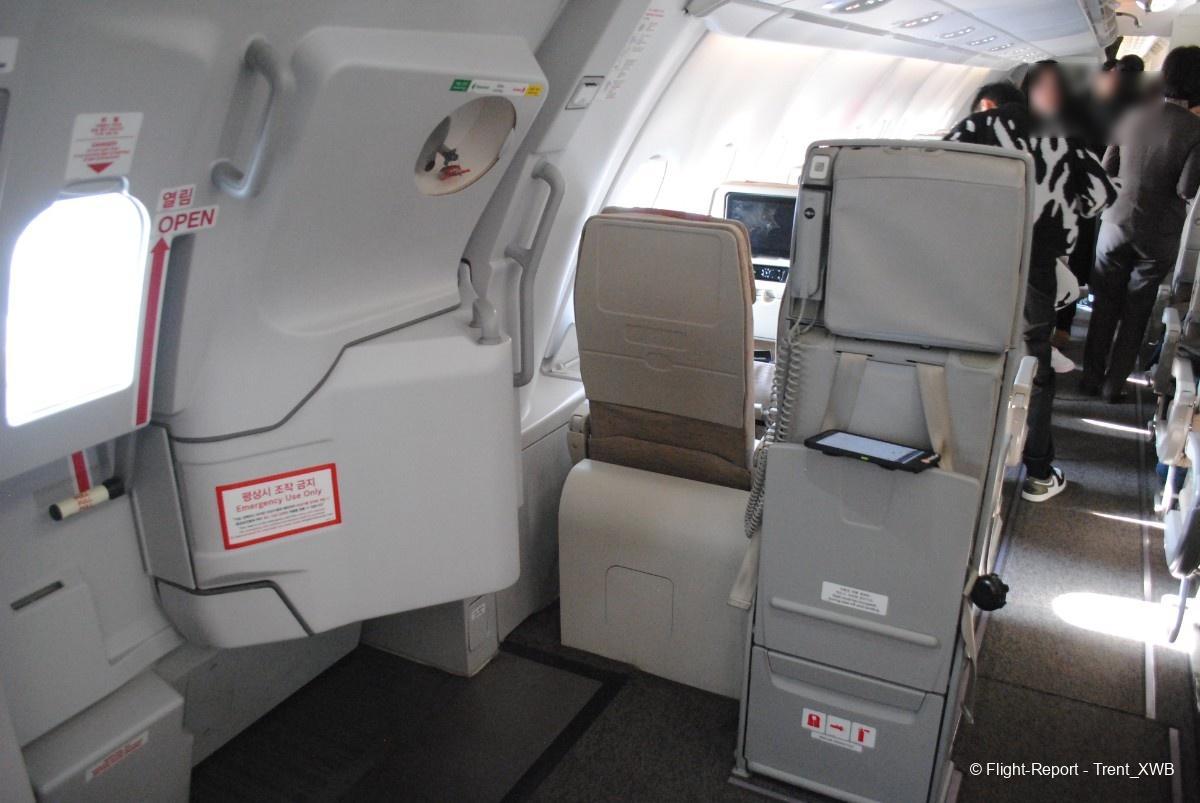
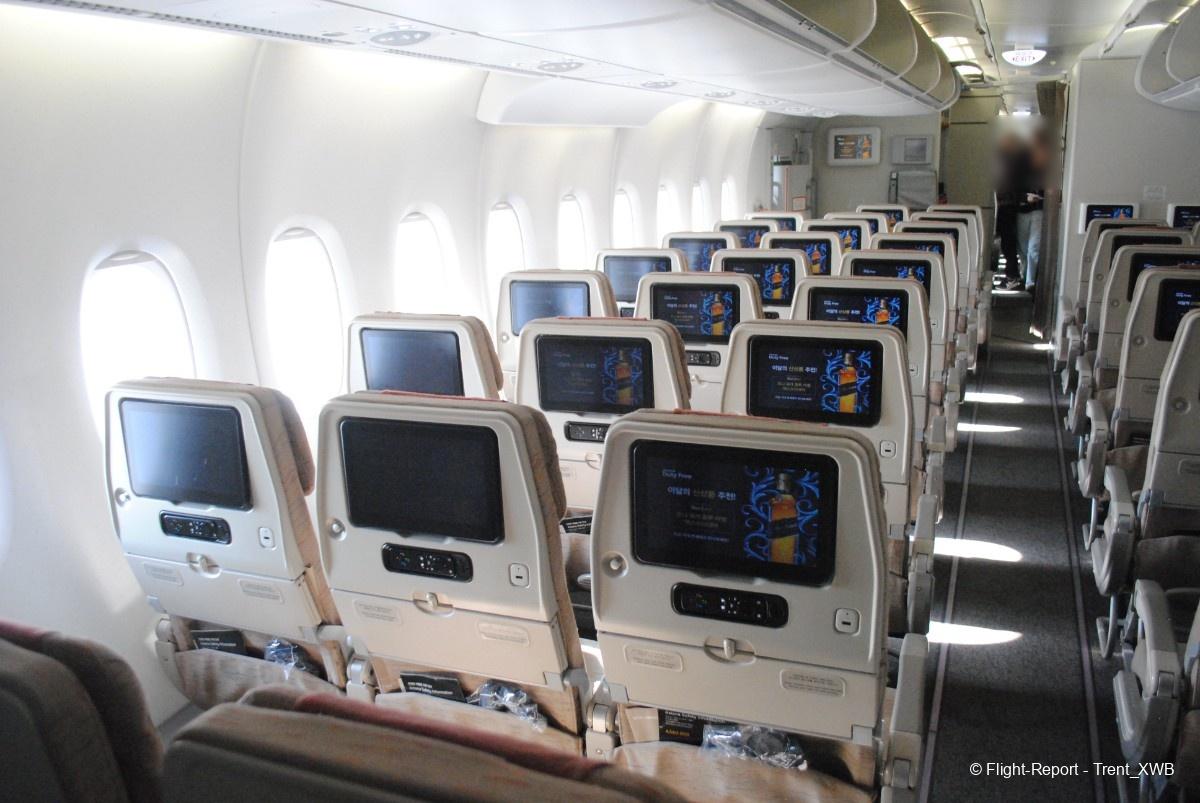
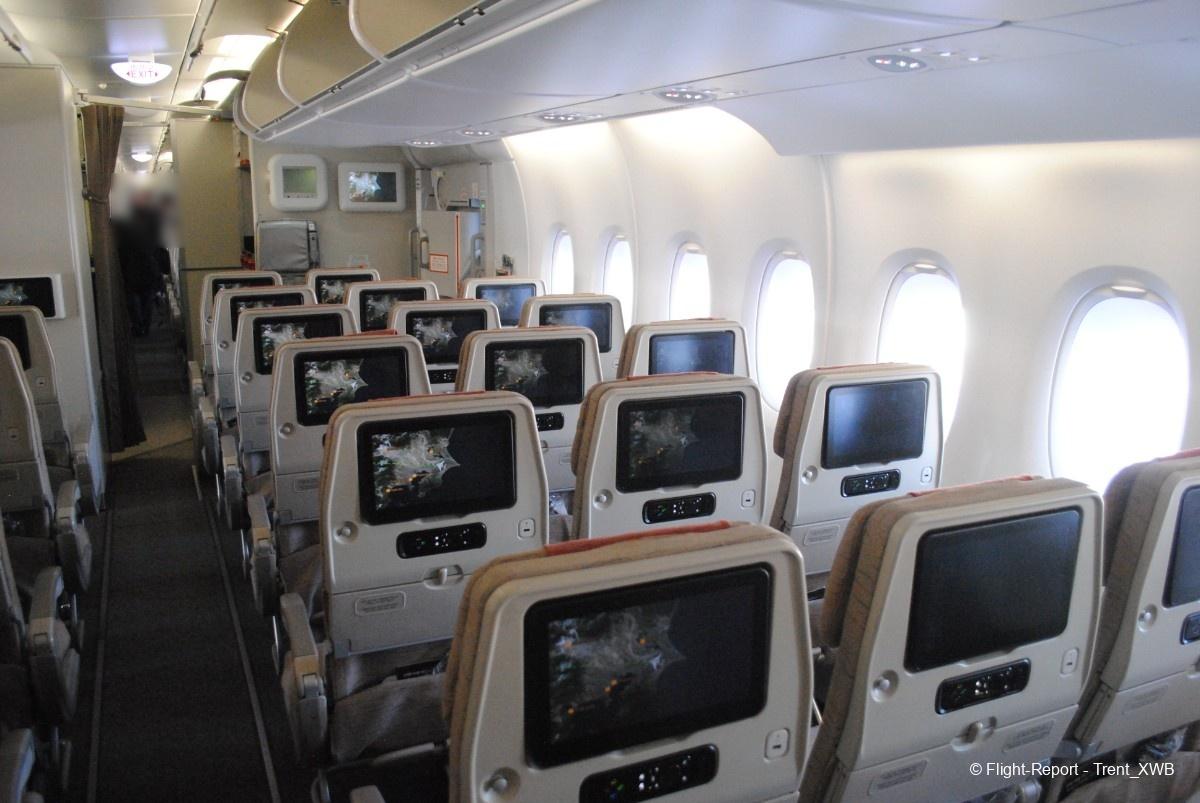
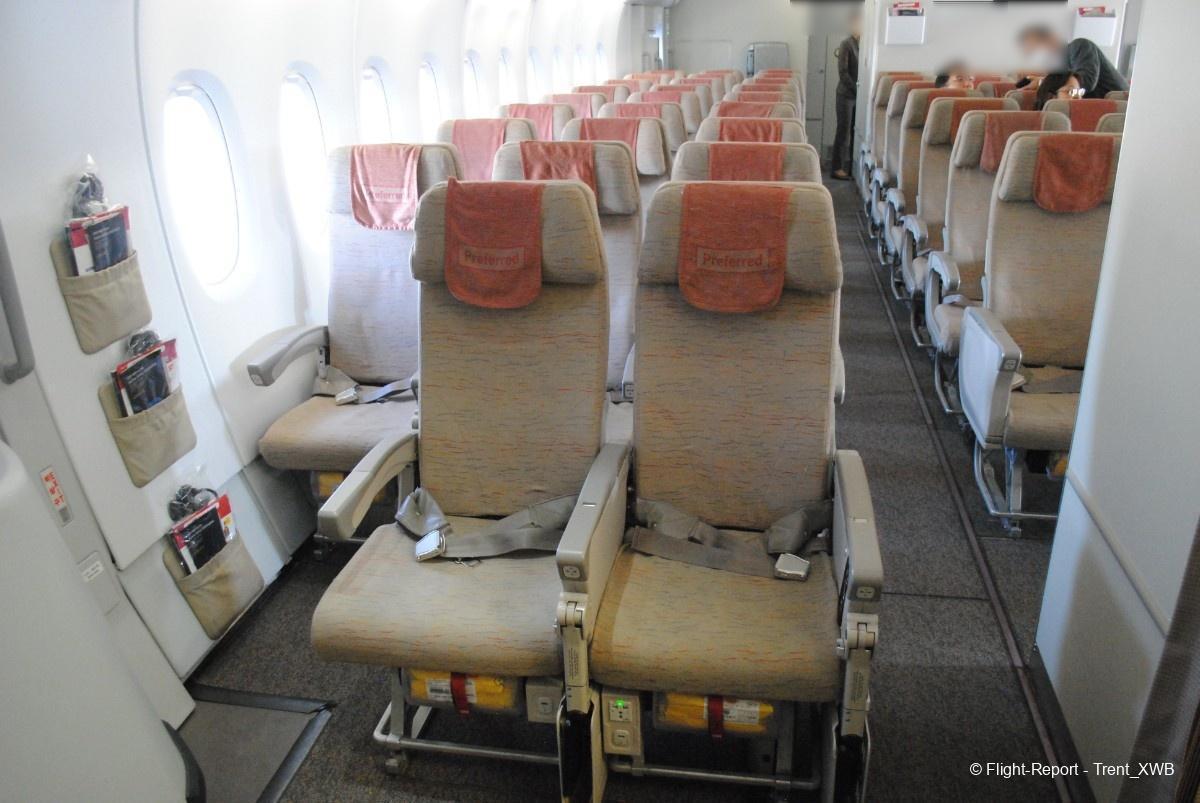
Then middle lower-deck Y cabin, which consists of rows 43-53. Interesting to note that seat 48D has extra legroom due to absense of 47D (the third photo in the gallery). Most A380s of other operators also feature absense of 1 seat in 4-seater block in this very part of the lower-deck, but EK's A380s don't. Probably it's not concerned with lower deck capacity, but with some other reasons (probably a secret small door to the cargo deck under the absent seat?)
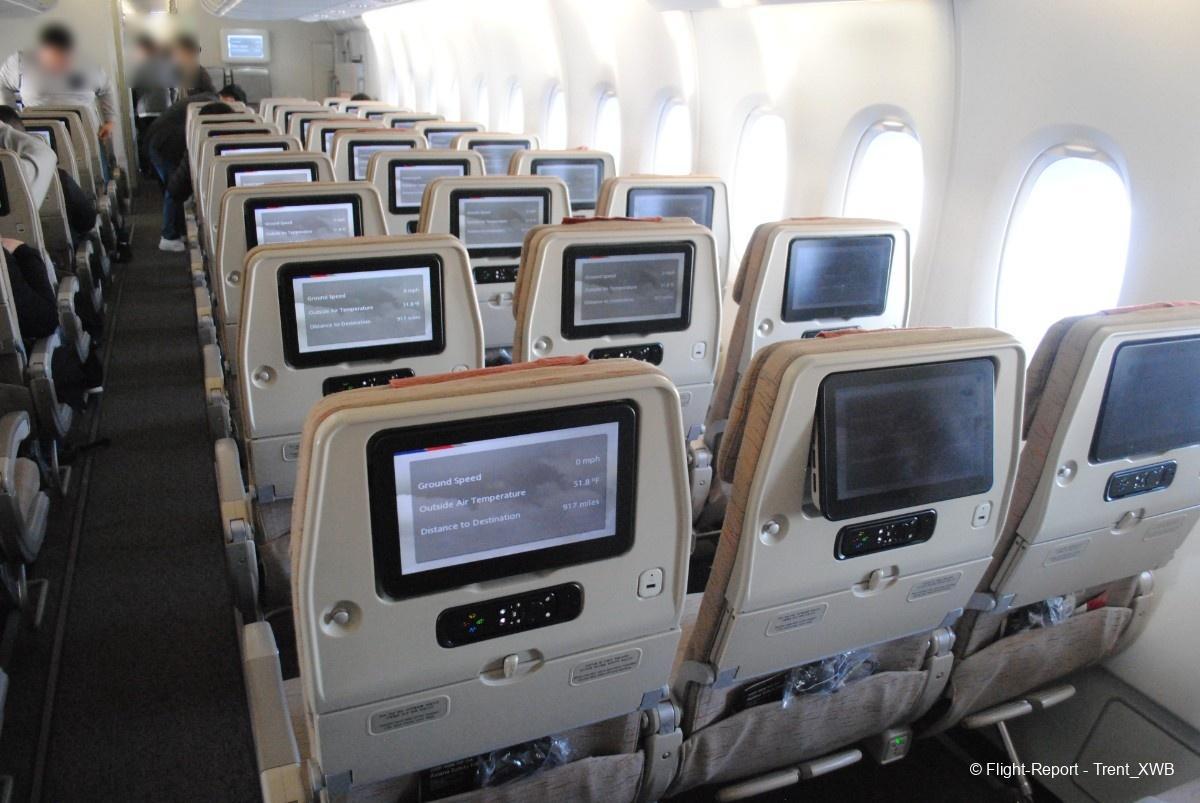
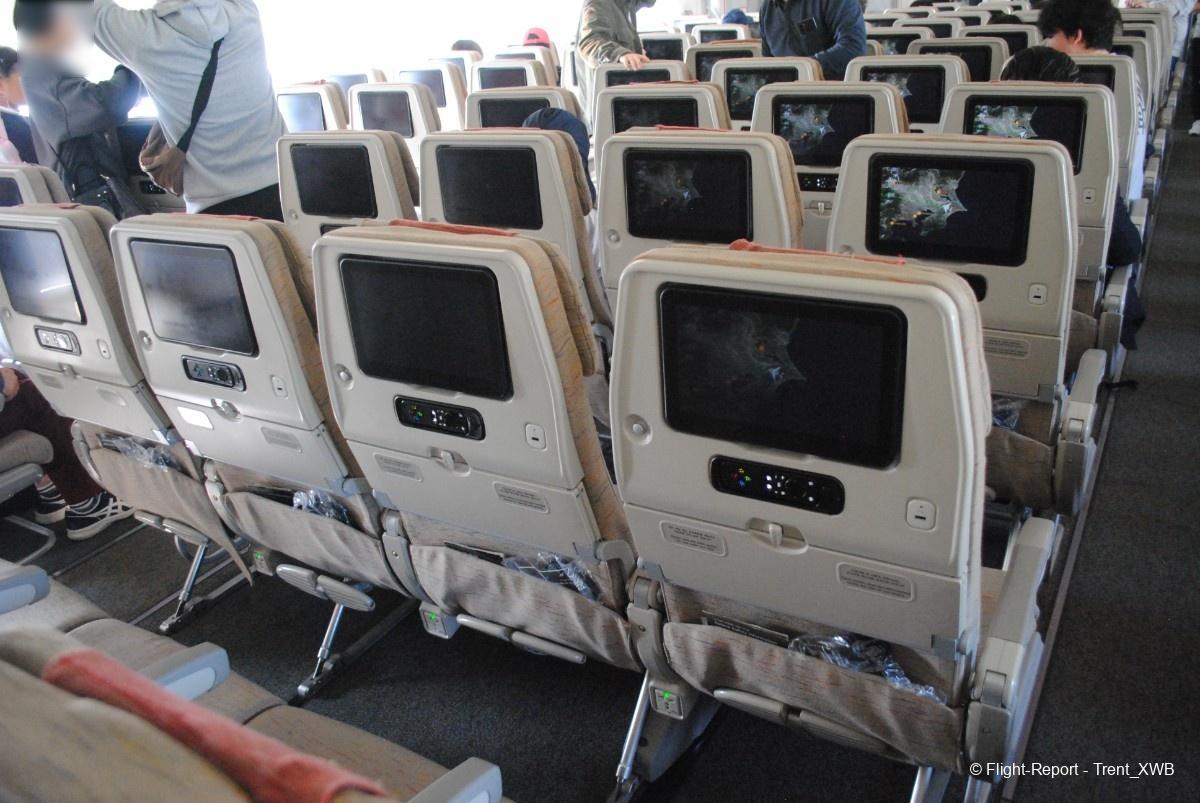
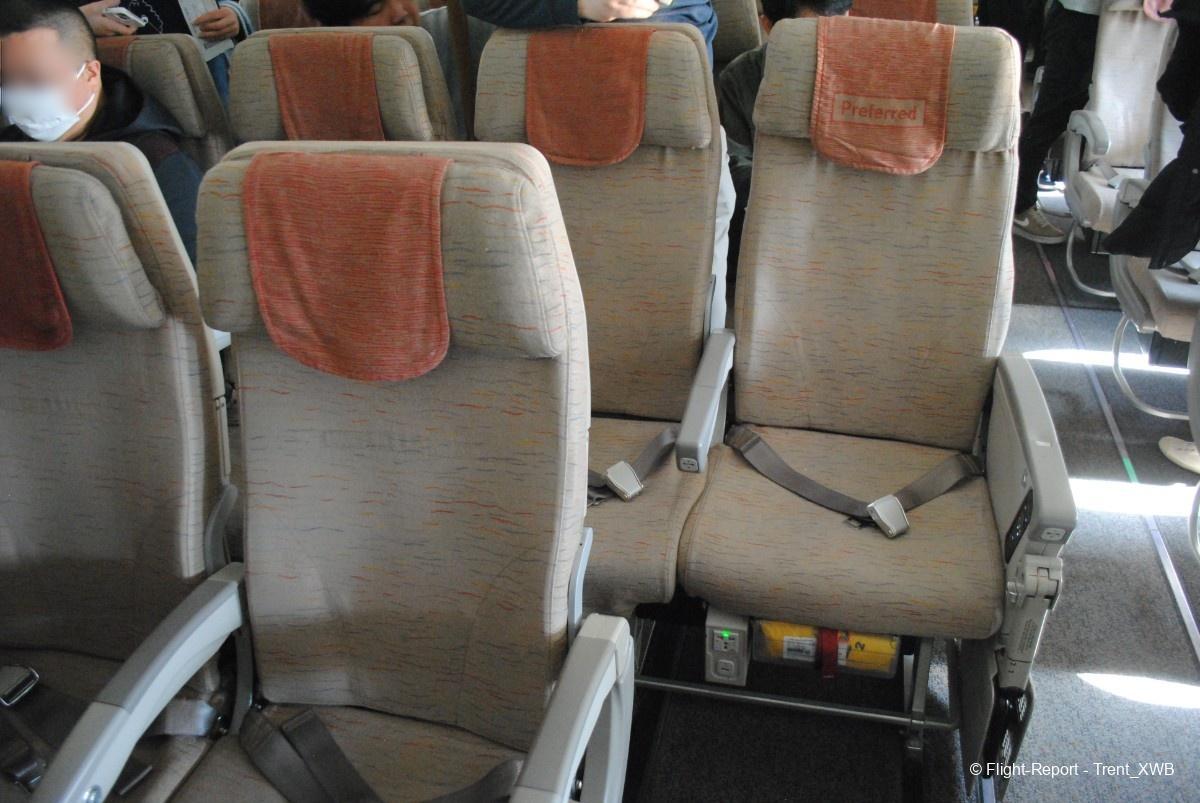
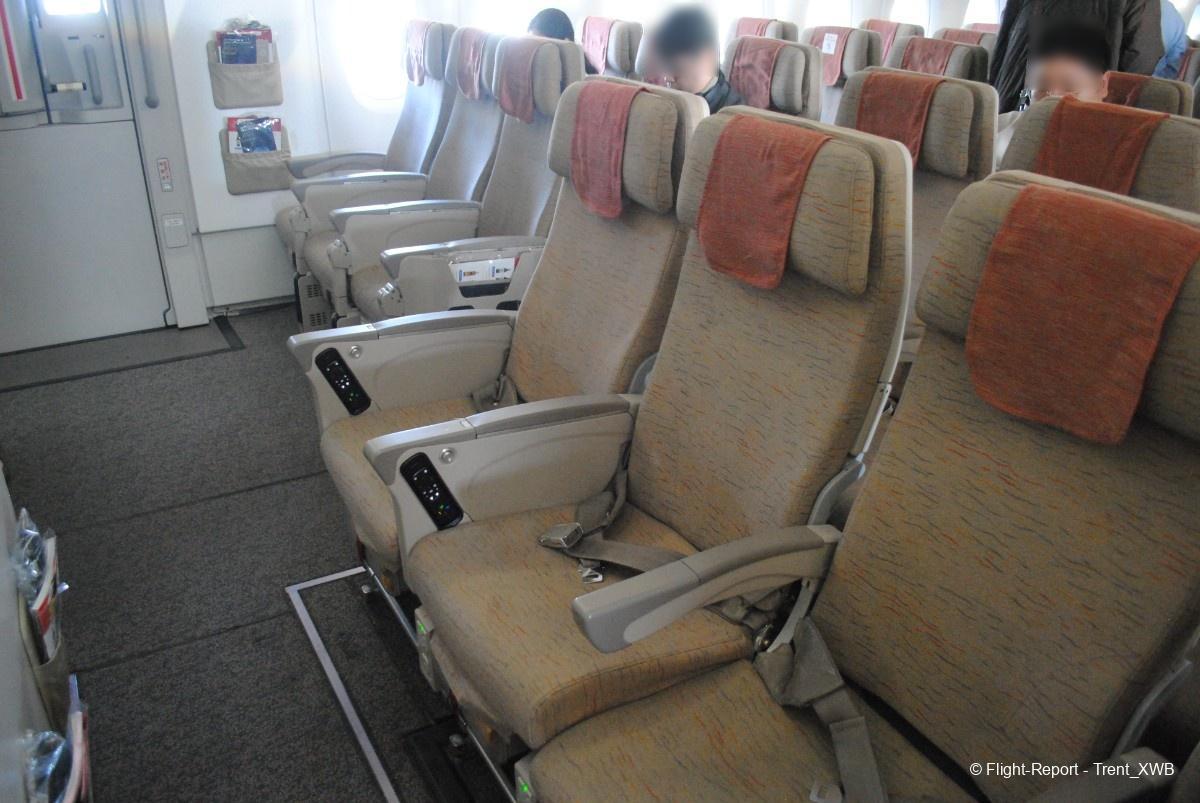
And the front lower deck Y cabin, which consists of rows 30-42. Seat 42K (the second photo in the gallery) is shown by Aerolopa as one of the pet seats (i.e. can be reserved for pets).
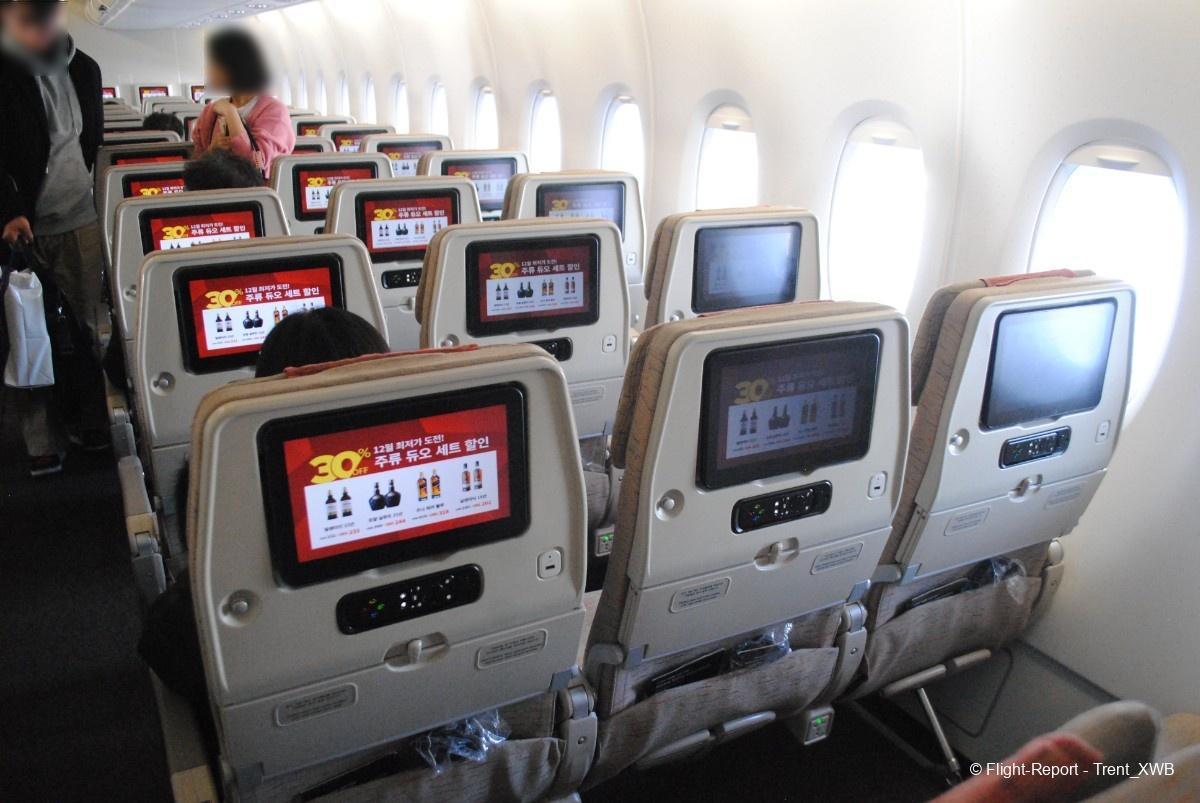
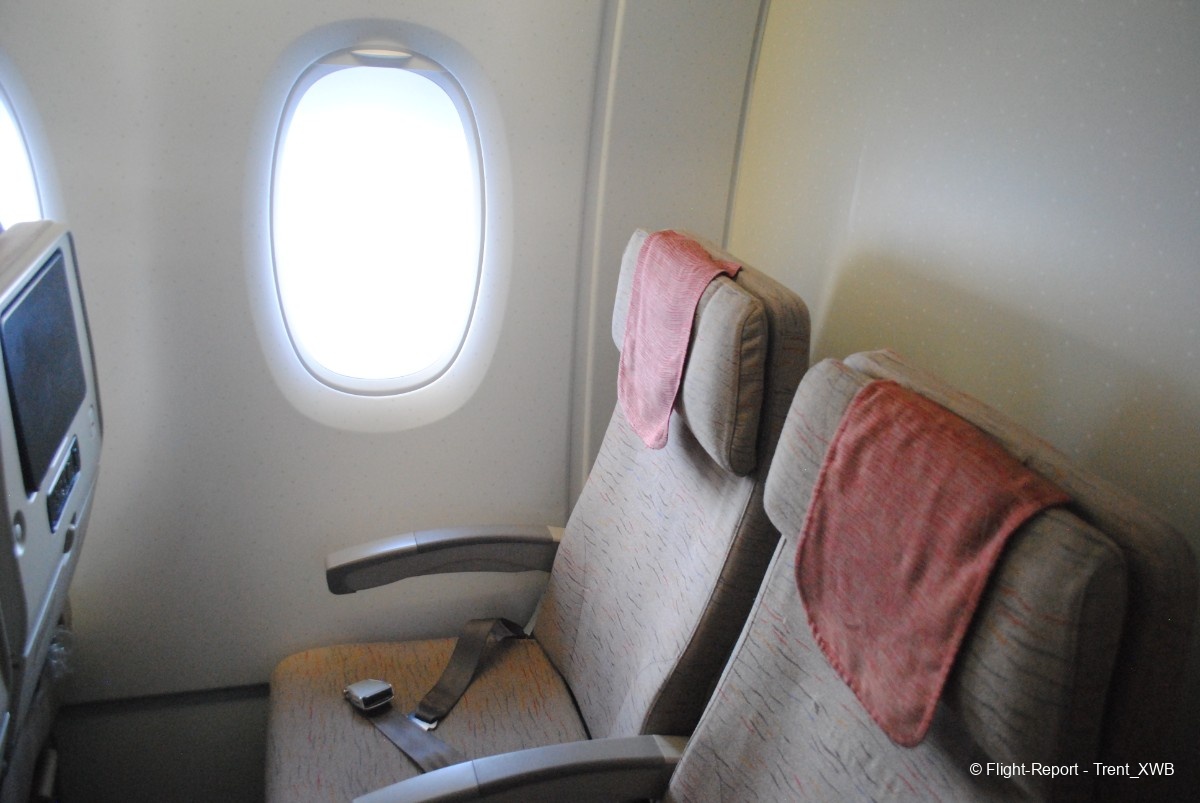
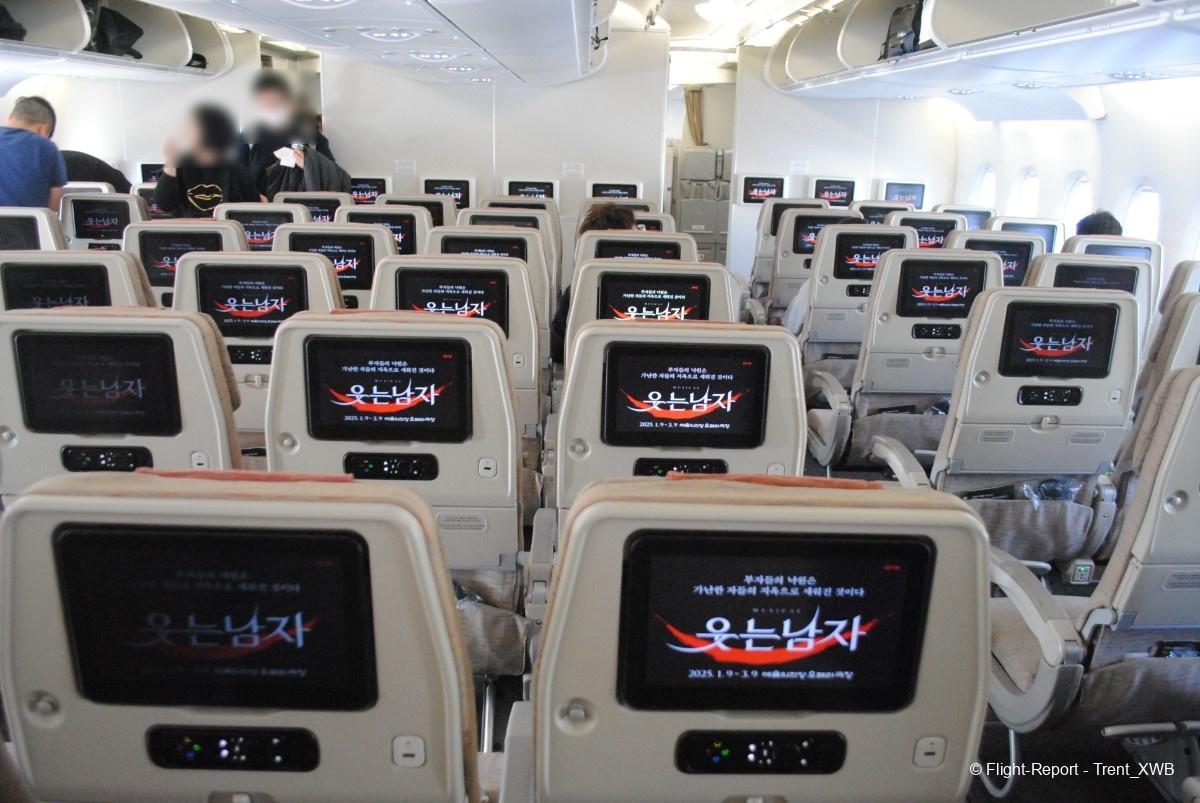
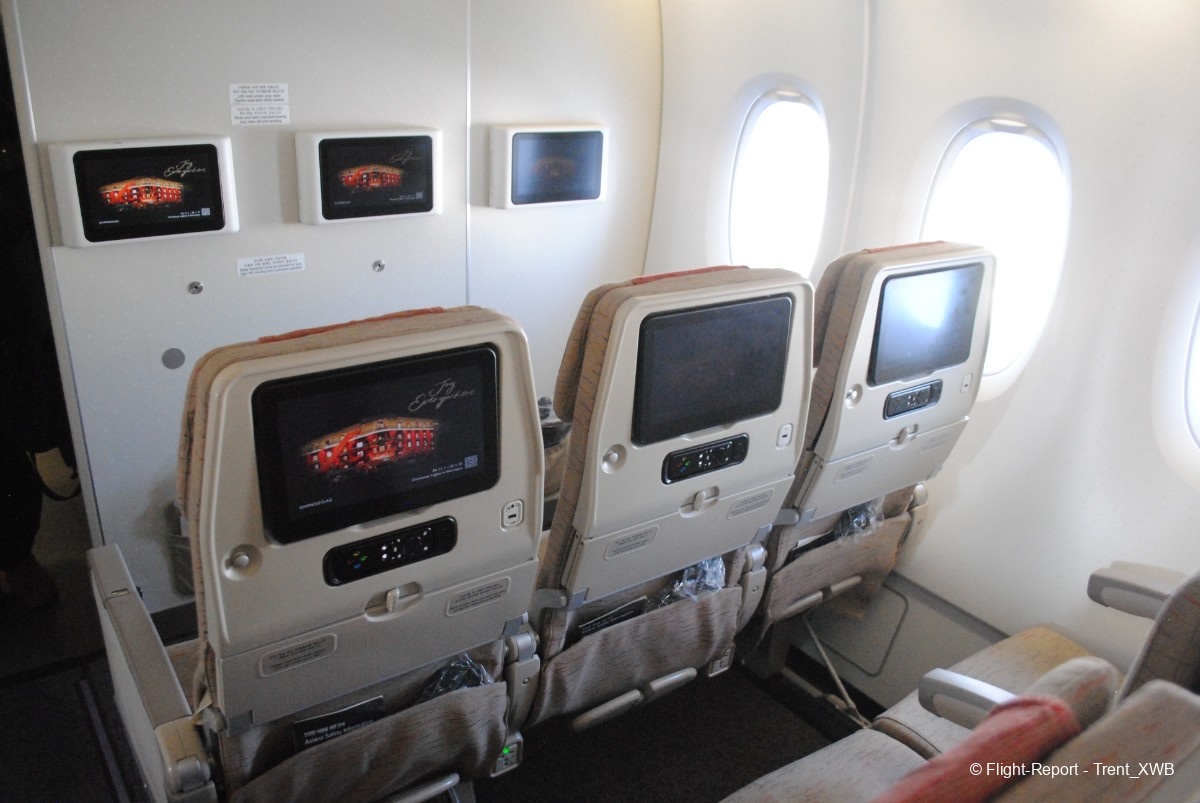
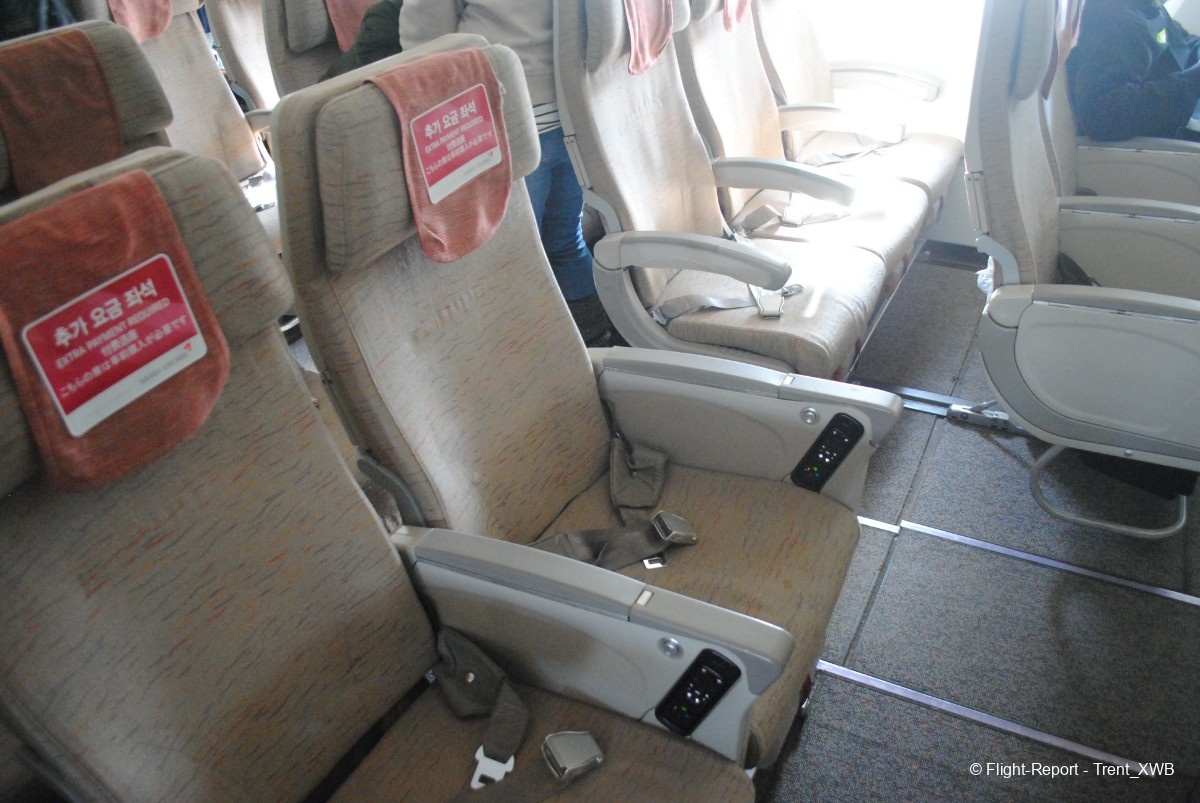
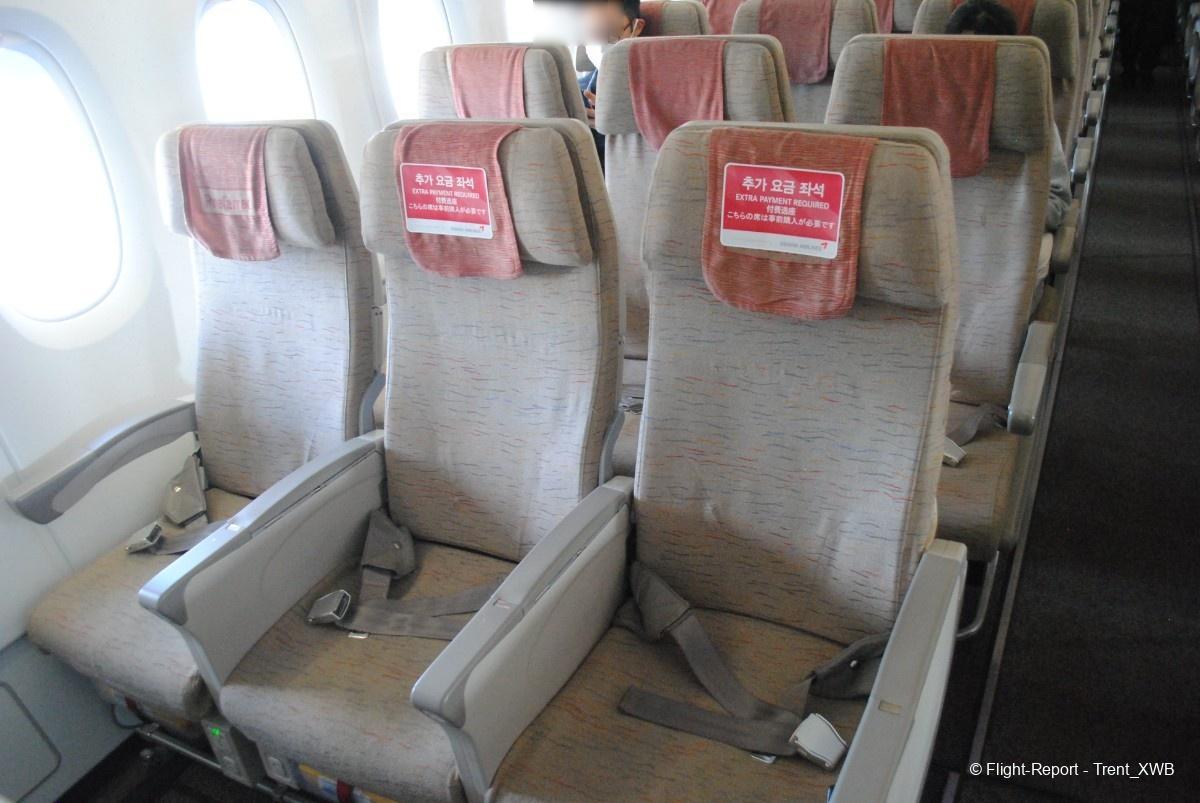
The First Class Cabin
In the very front of the lower deck there is a first class cabin, which consist of 12 1-2-1 suites (based on B/E Aerospace Oasis platform). OZ currently calls it "business suite" and sells like a kind of "business plus" without real first-class service.
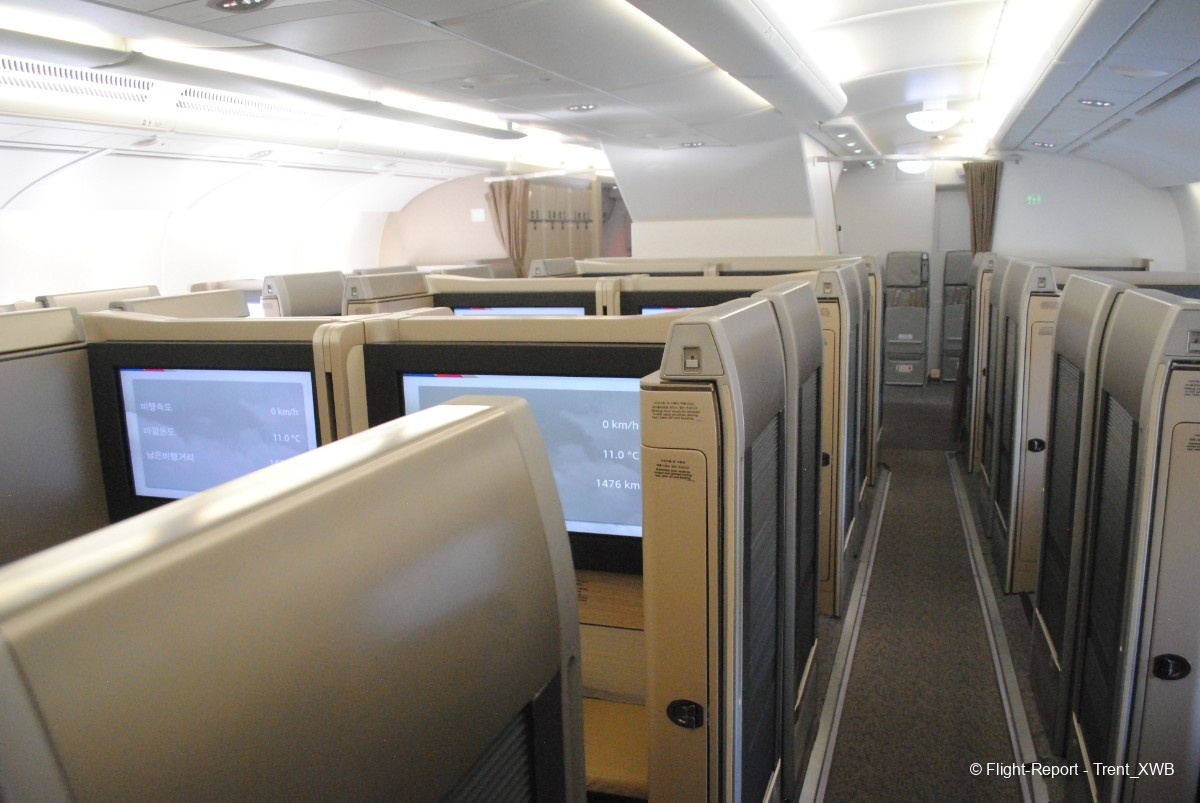
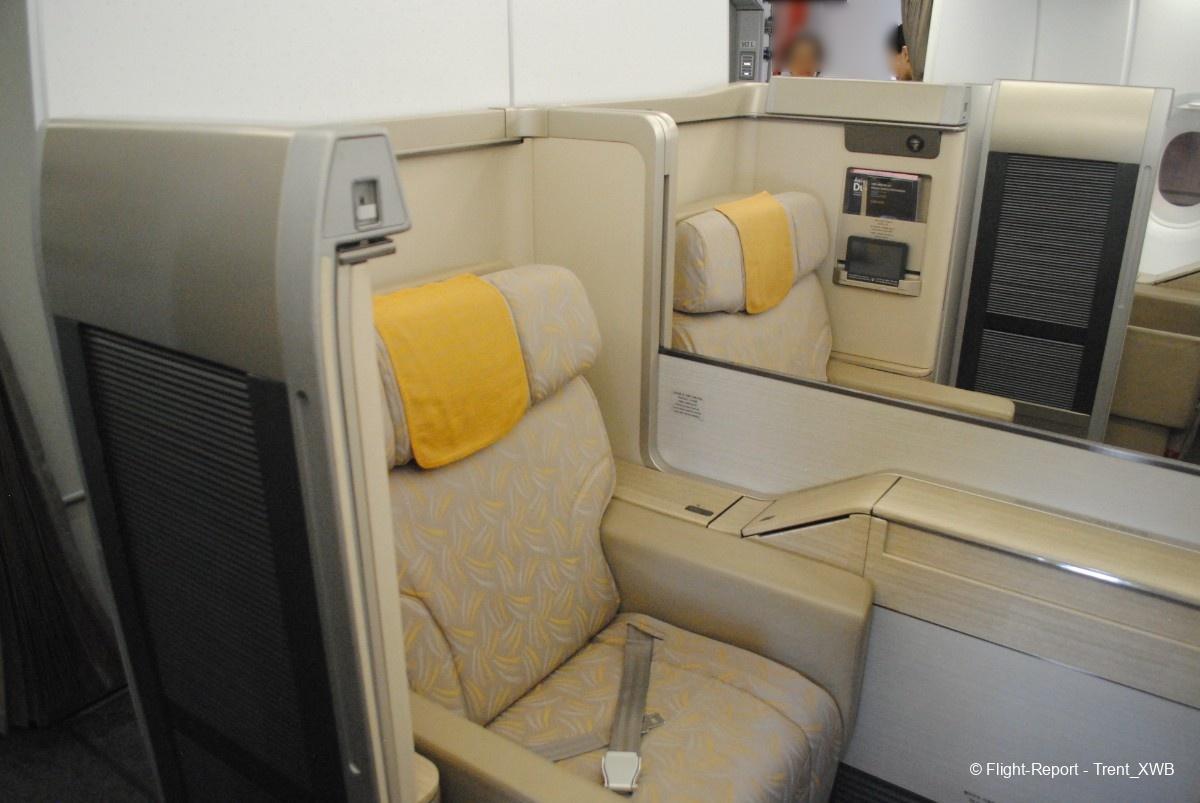
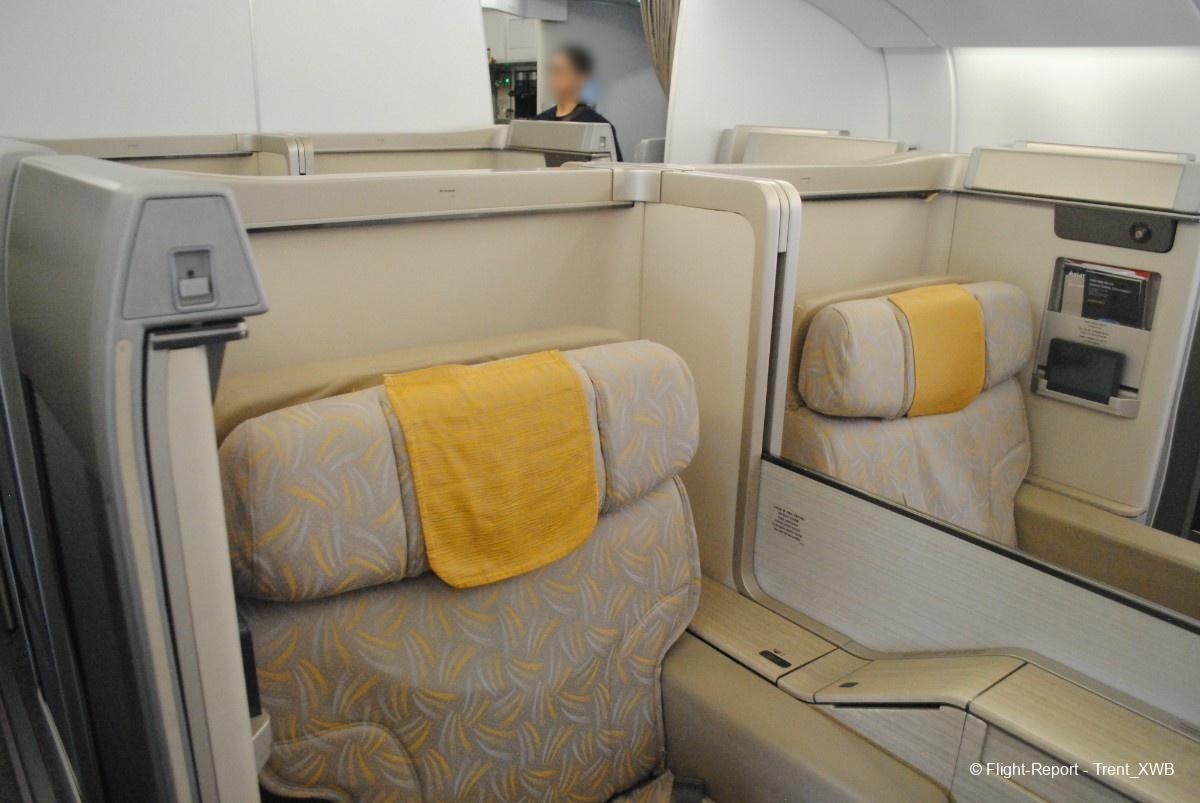
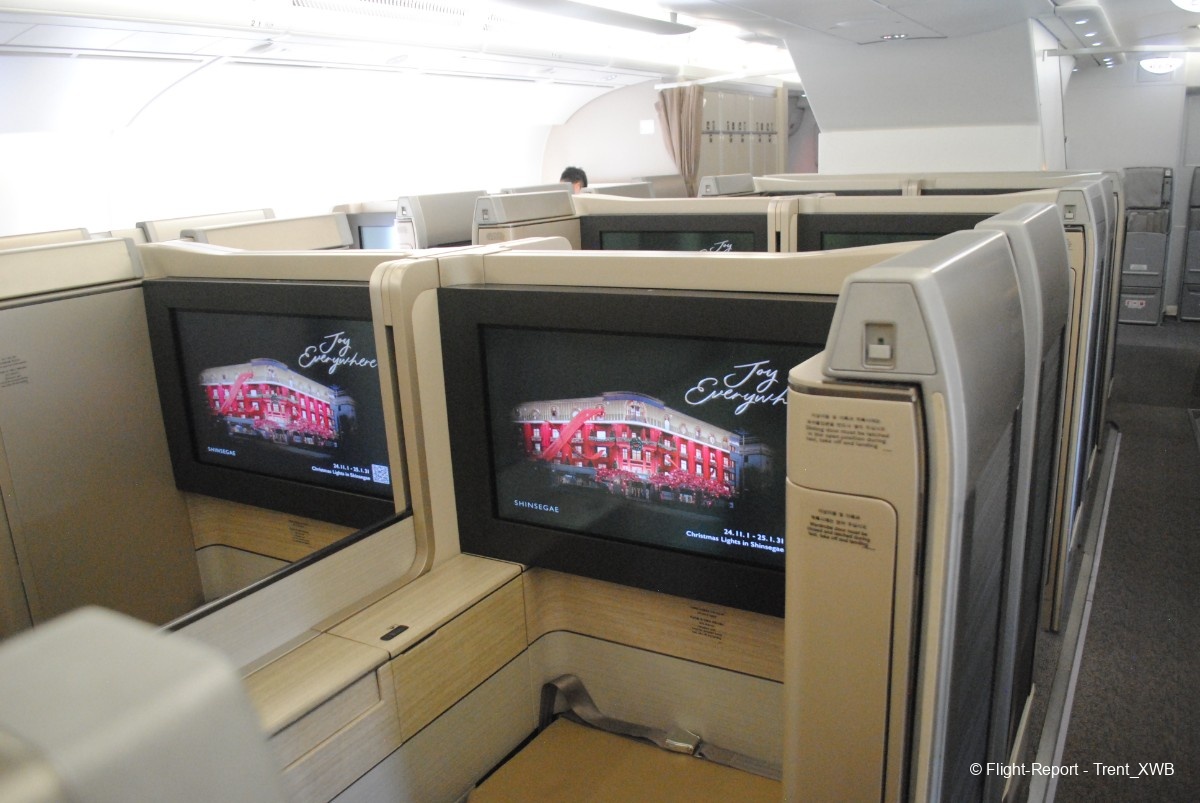
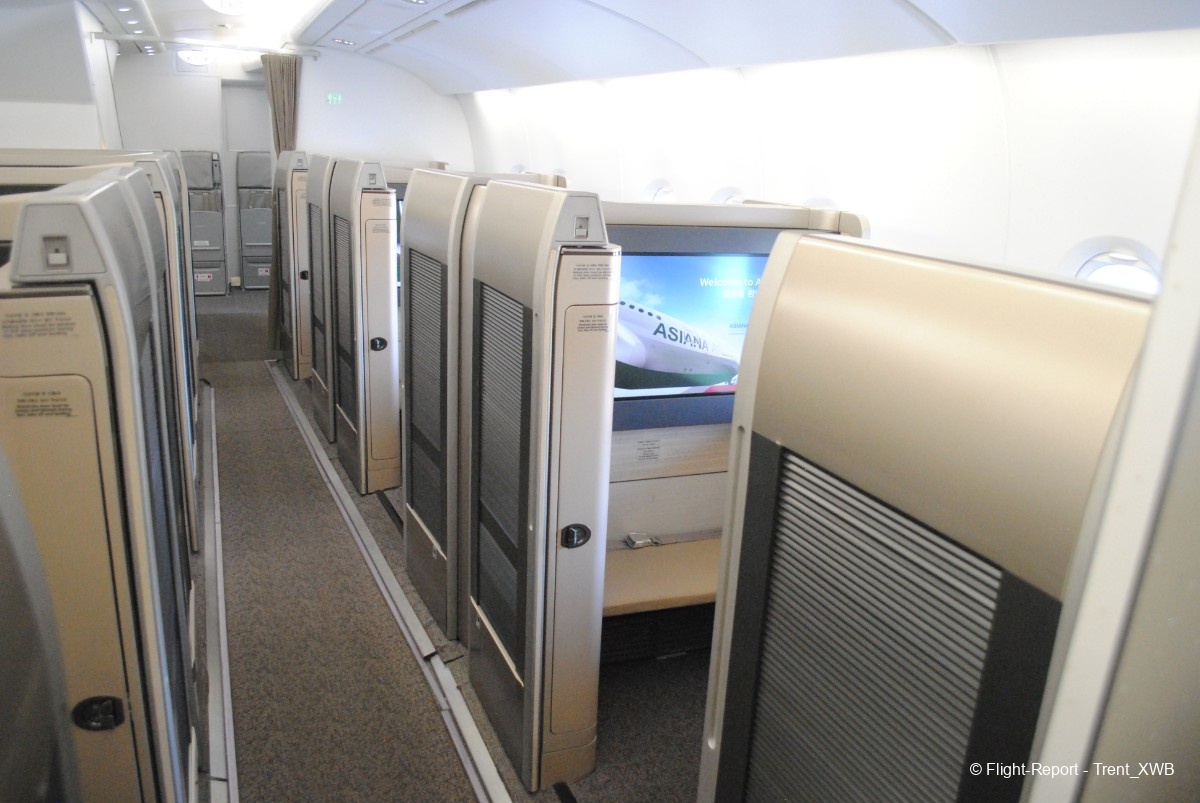
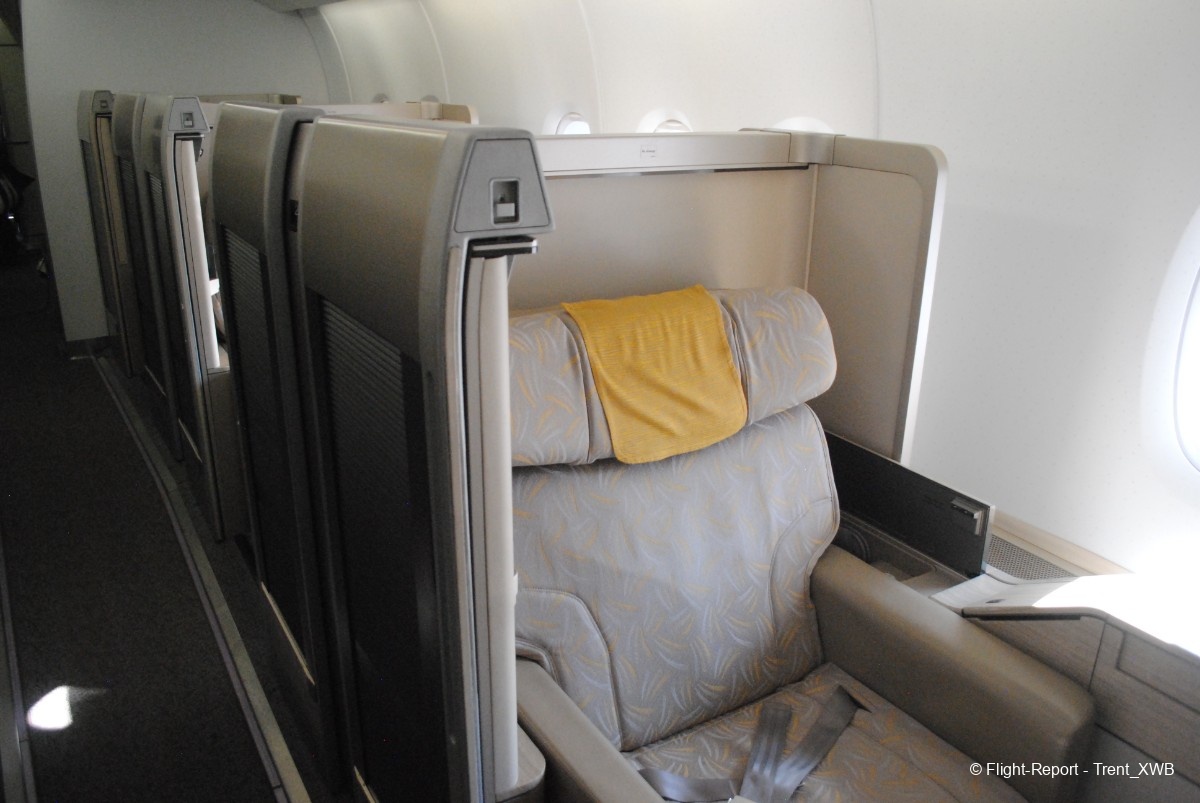
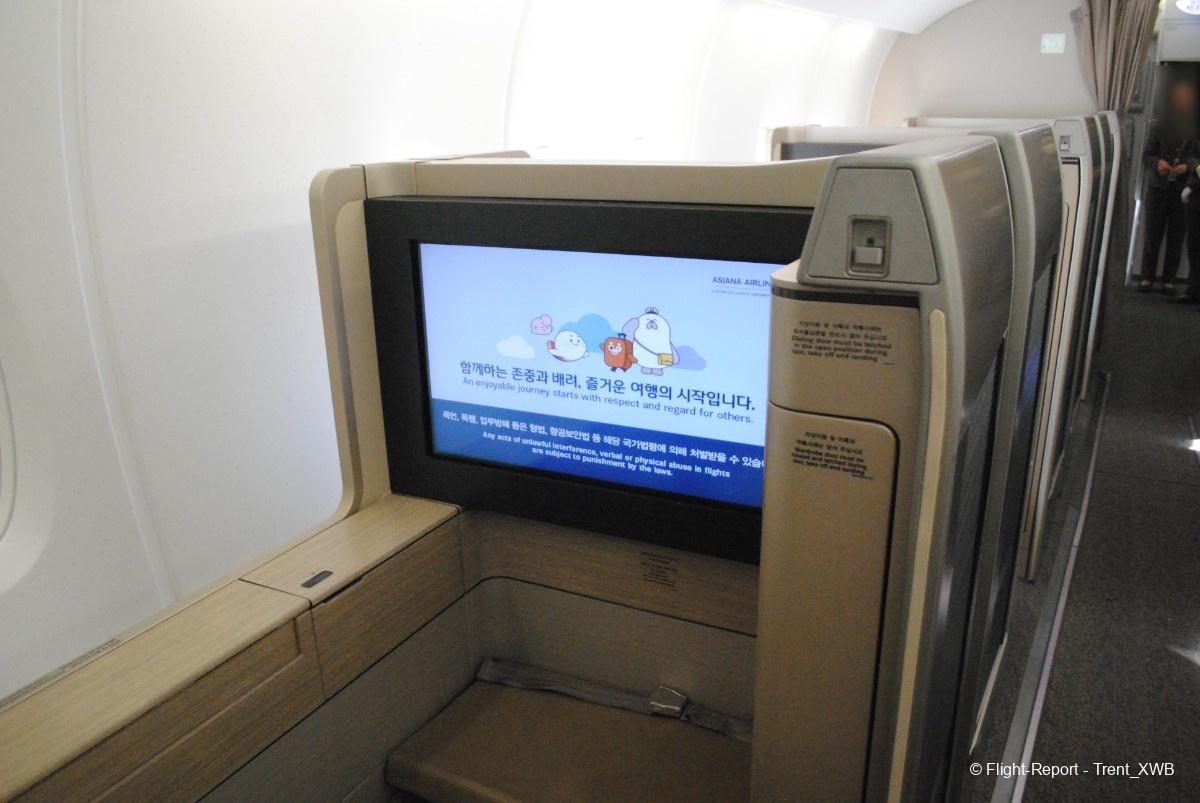
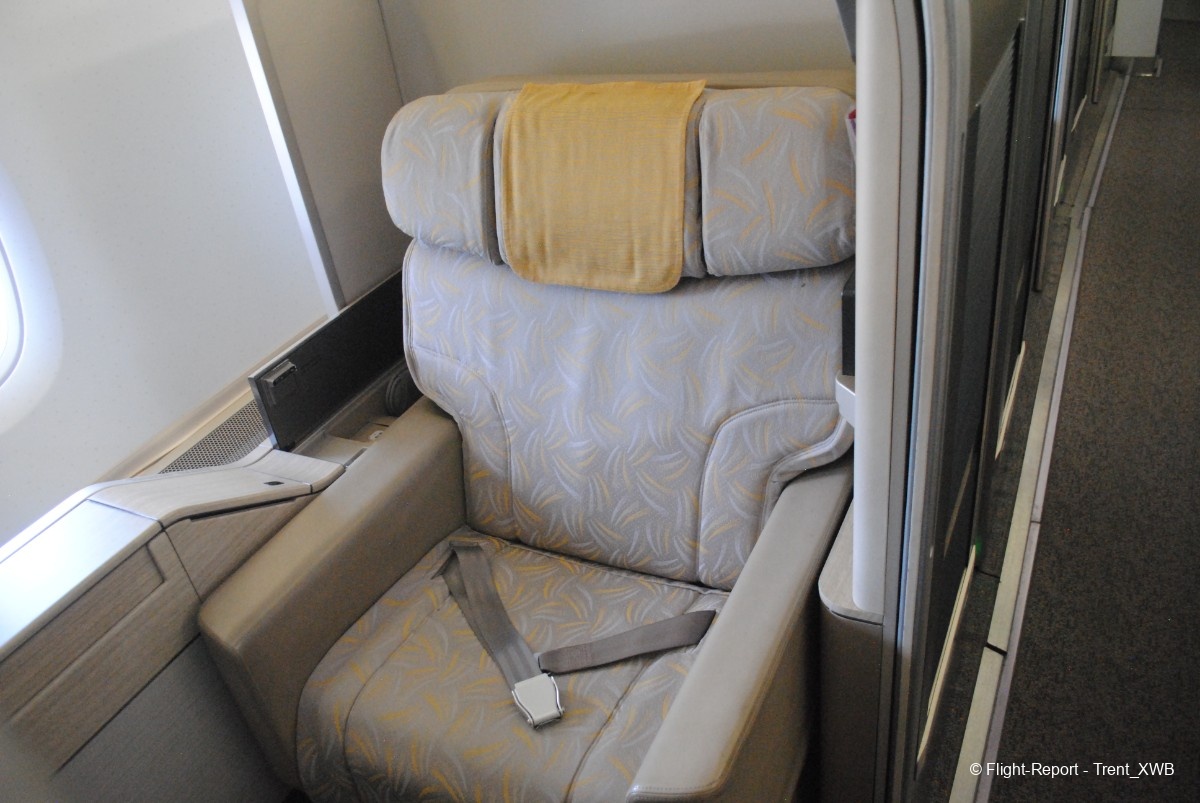
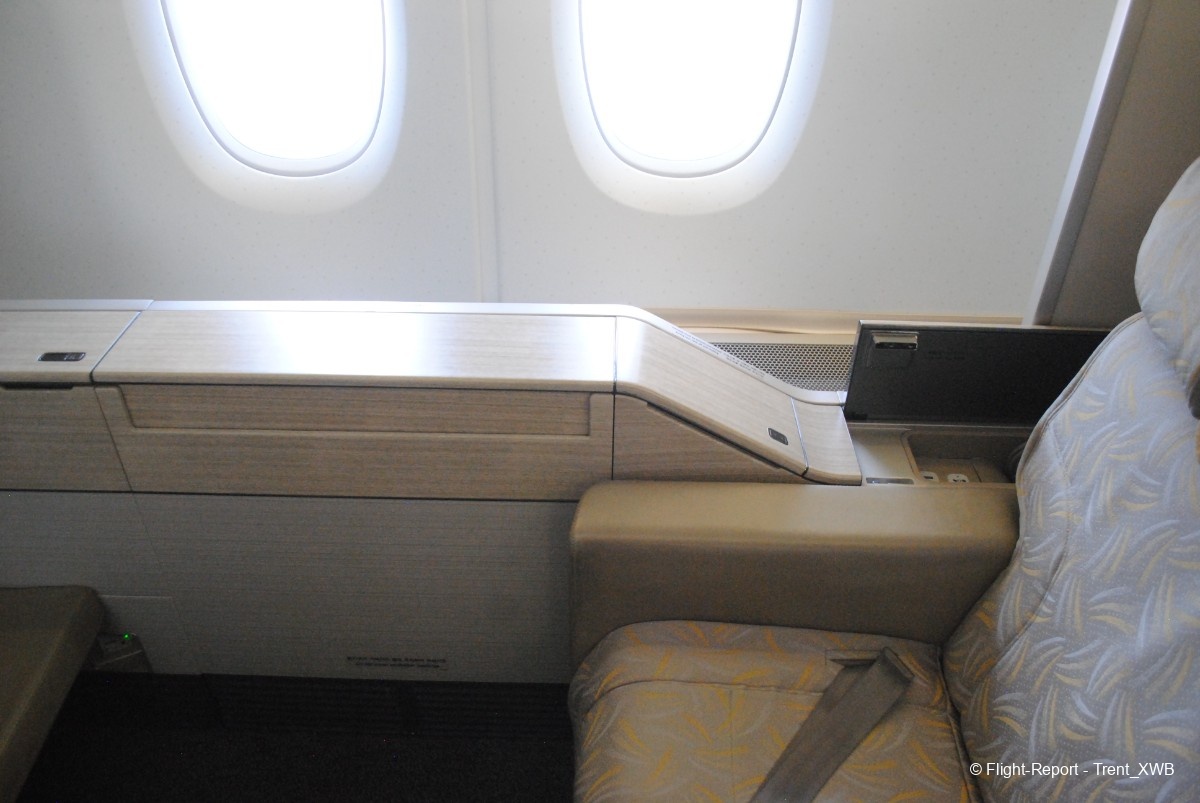
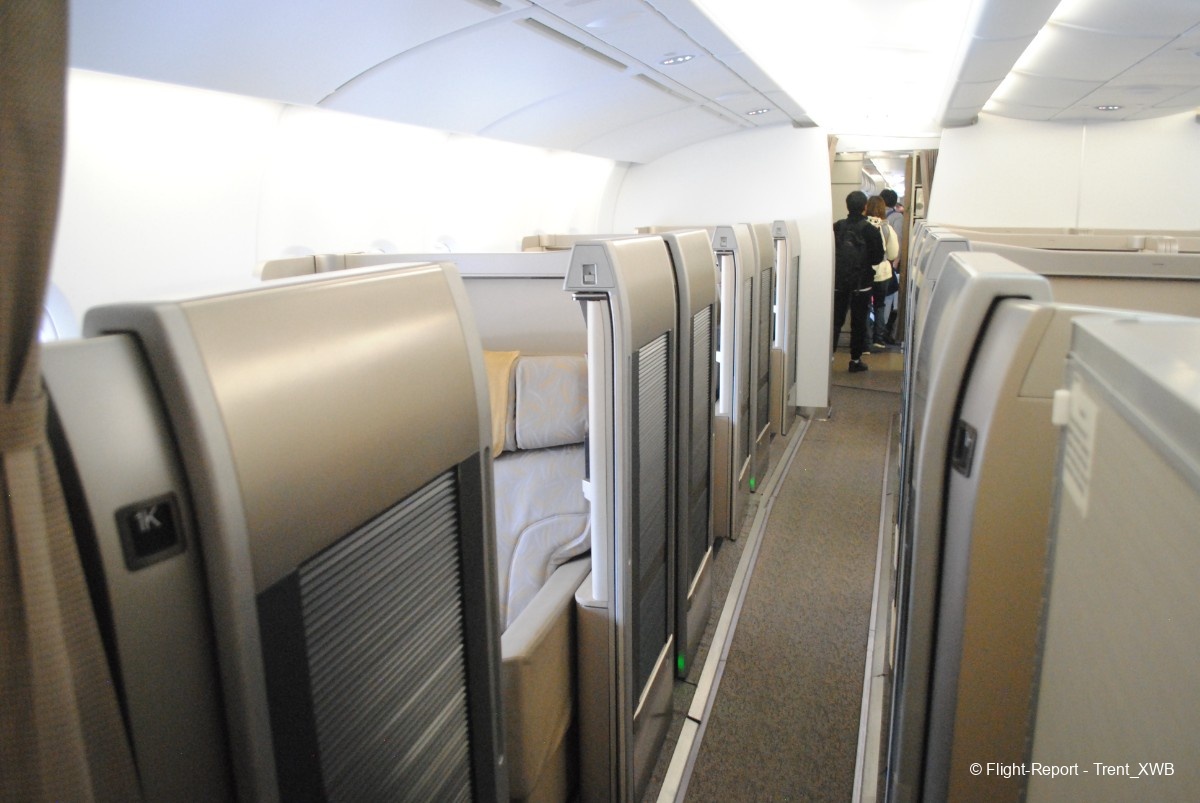
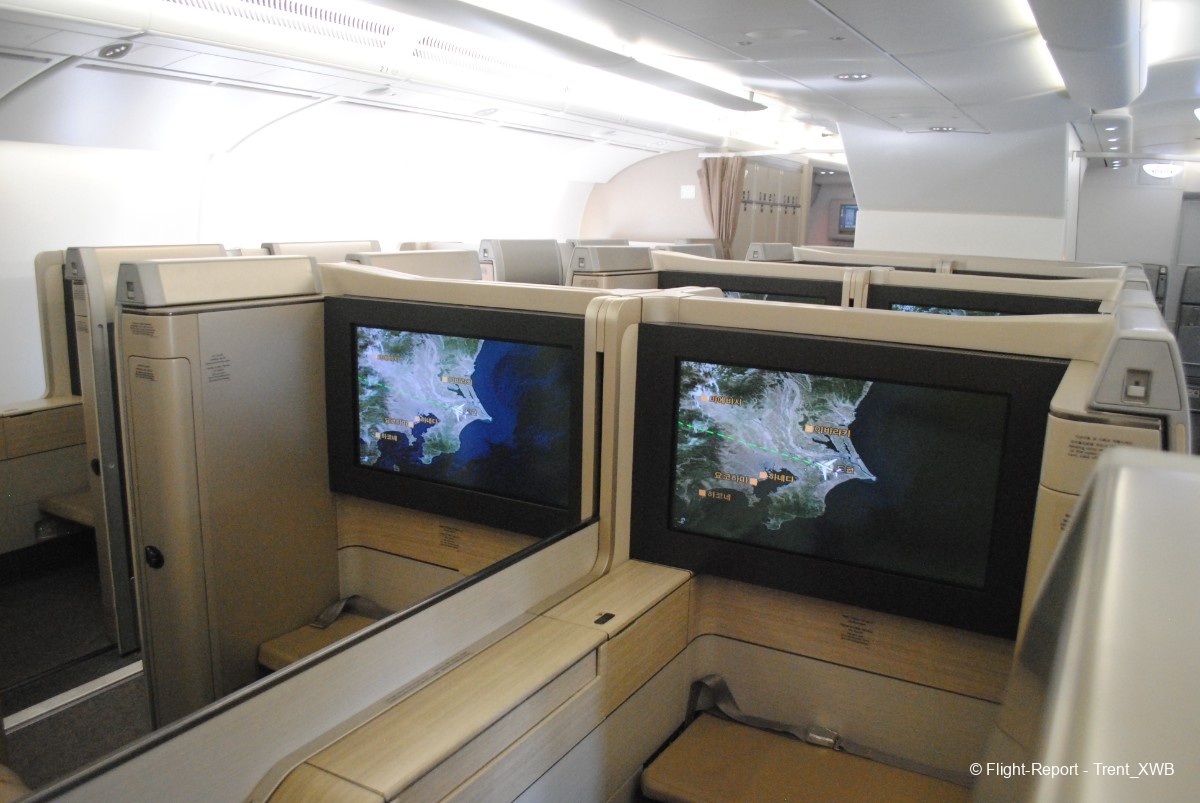
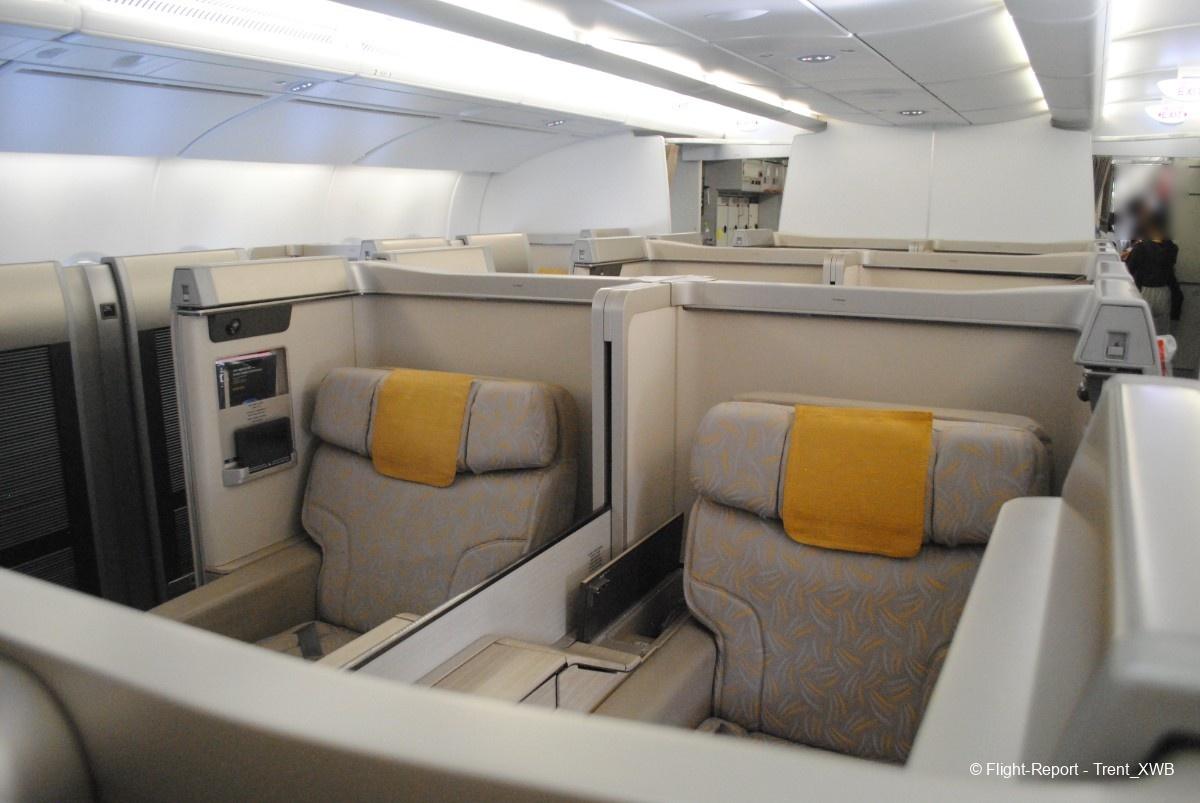
A view of starboard RR Trent 900 engines from the 3K first class seat
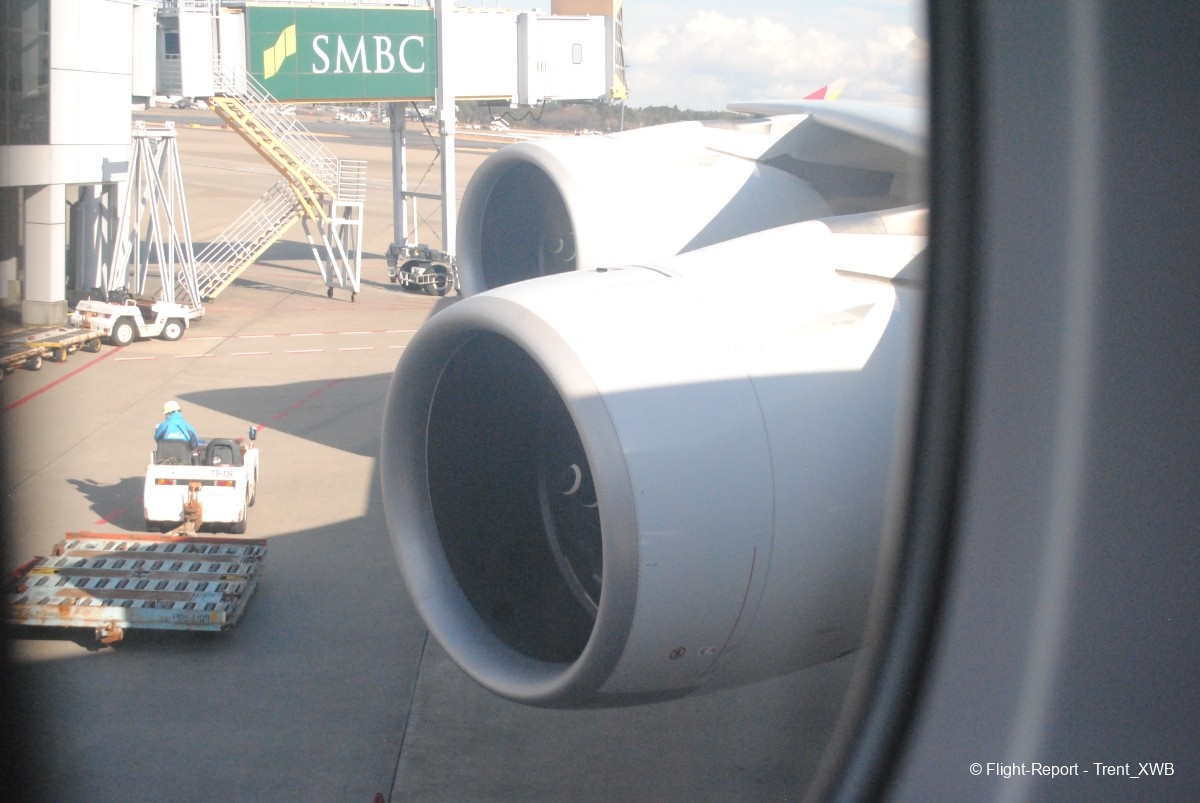
M1L door
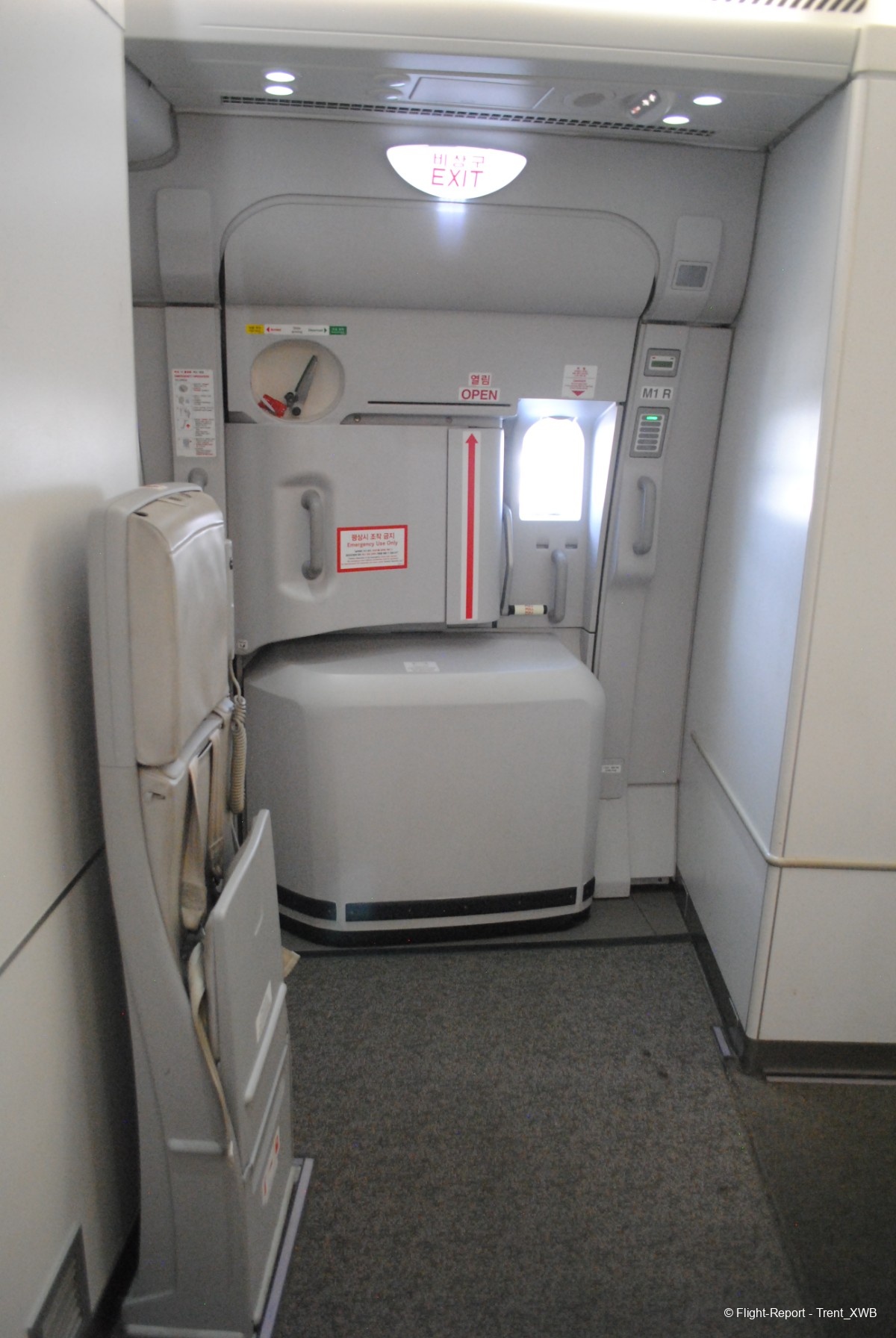
The Front Stair
The front staircase of A380 is straight in contrast to the rear one.
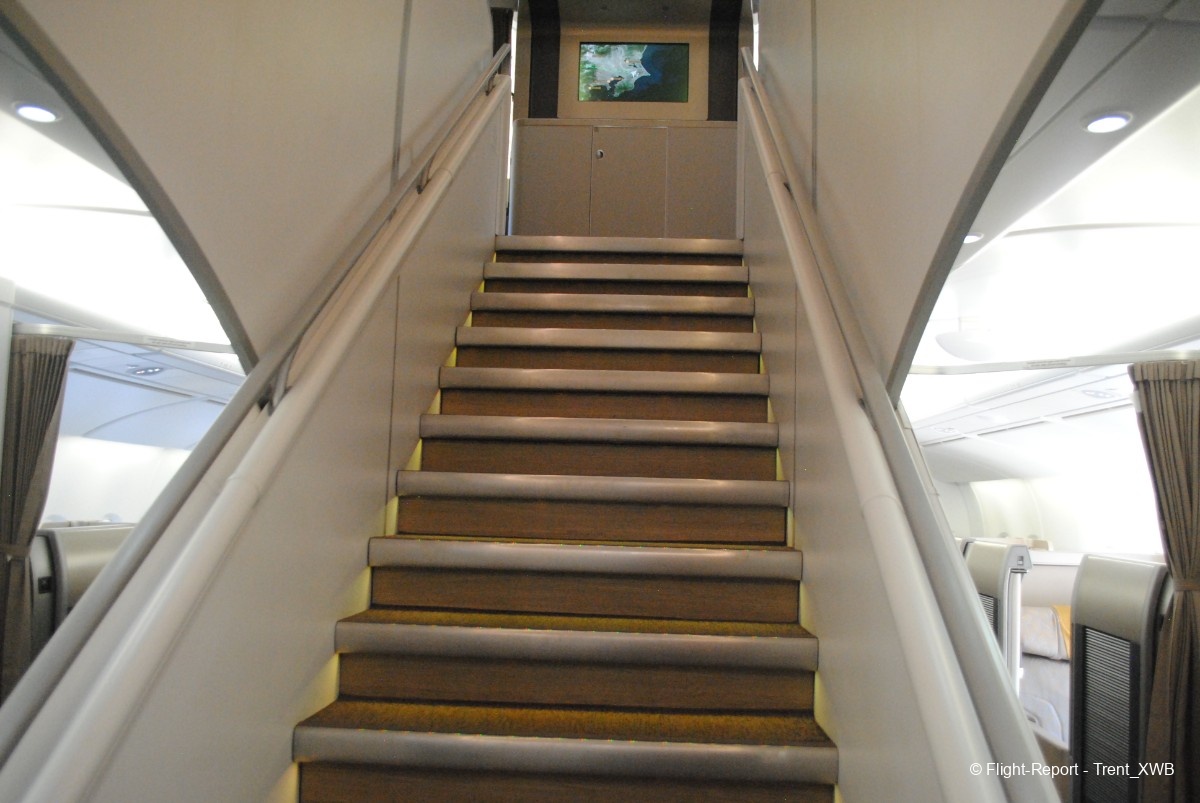
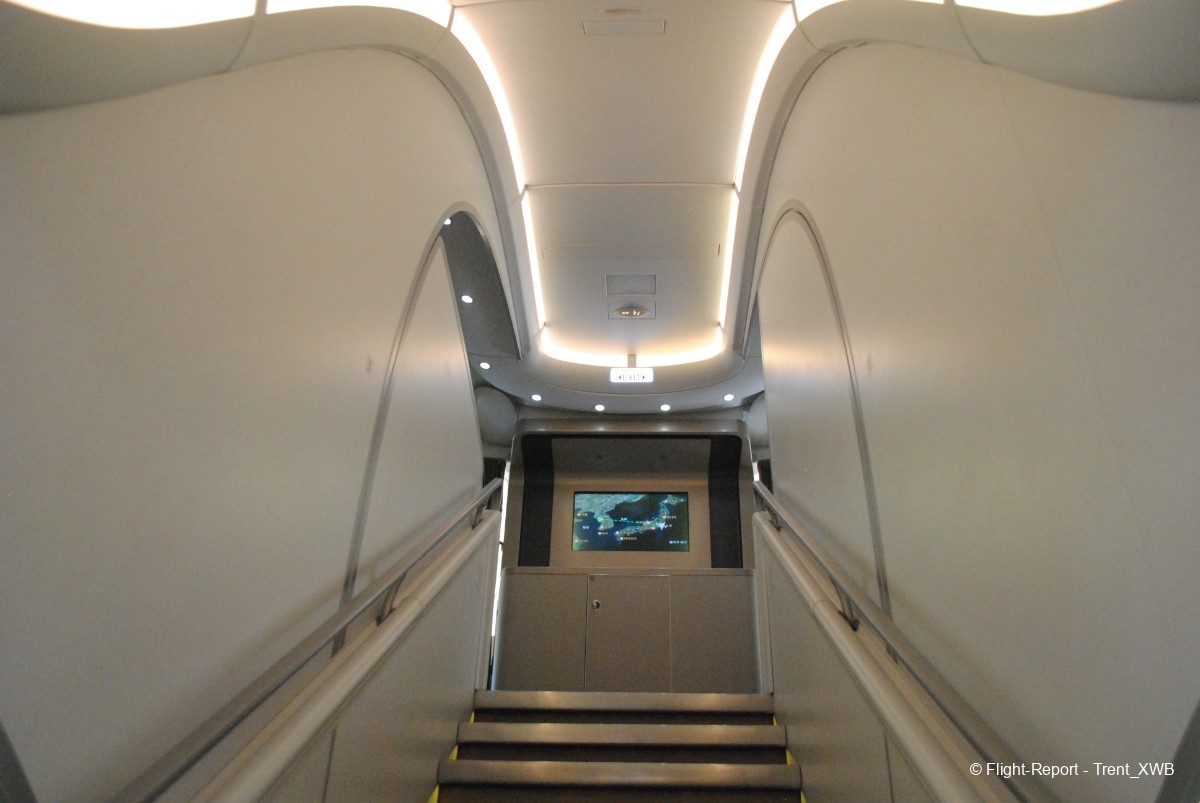
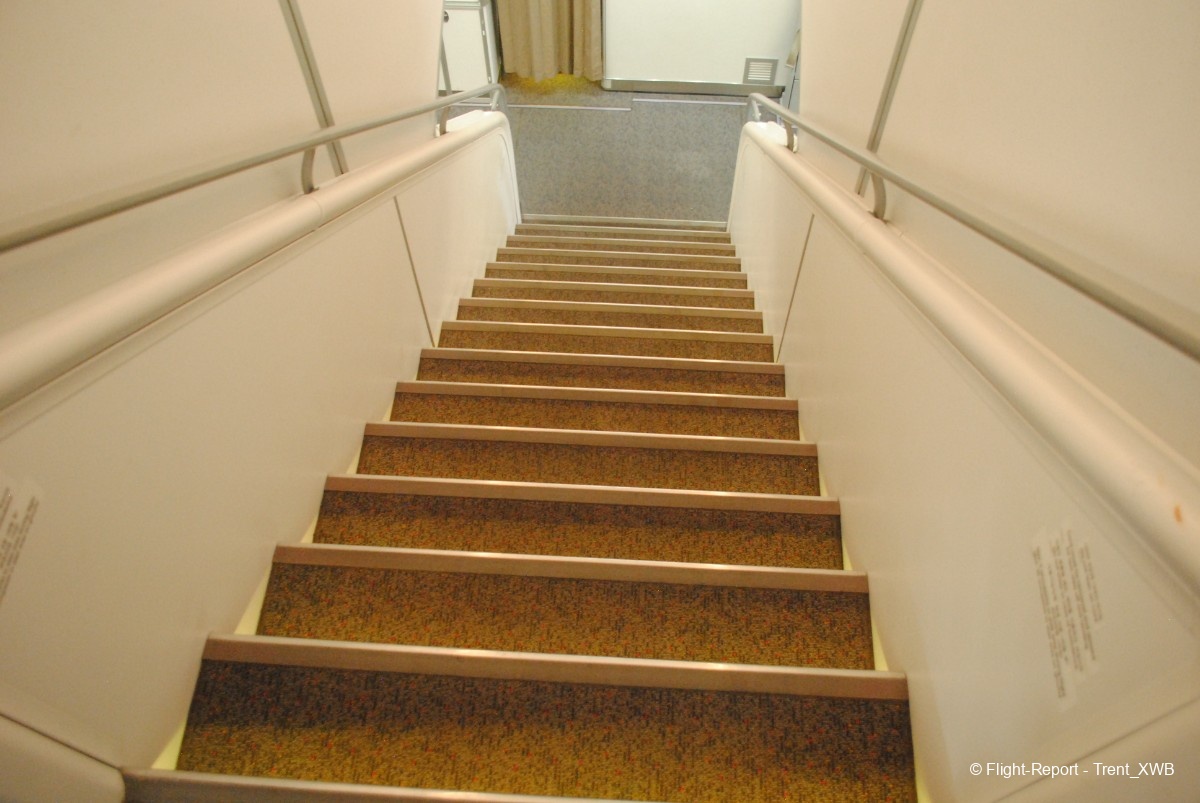
The Lounge
Upstairs there is kind of small lounge for business passengers near the front stair to the right.
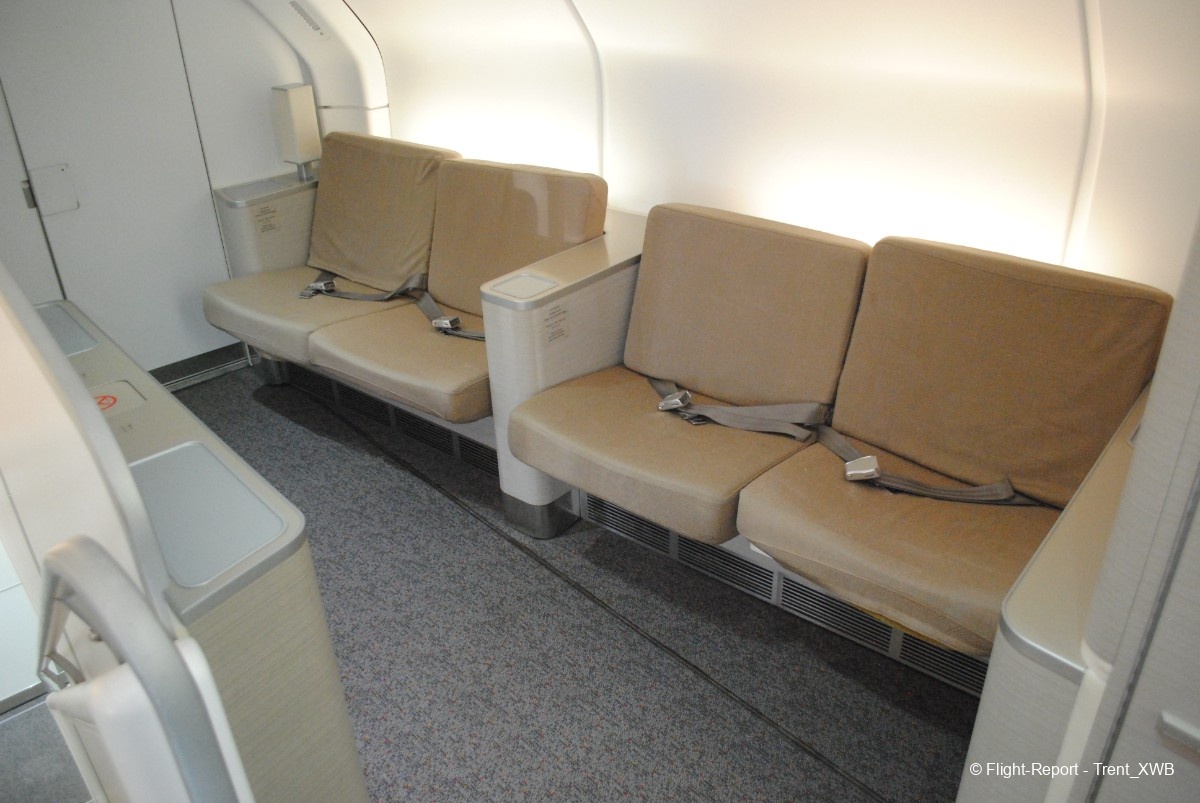
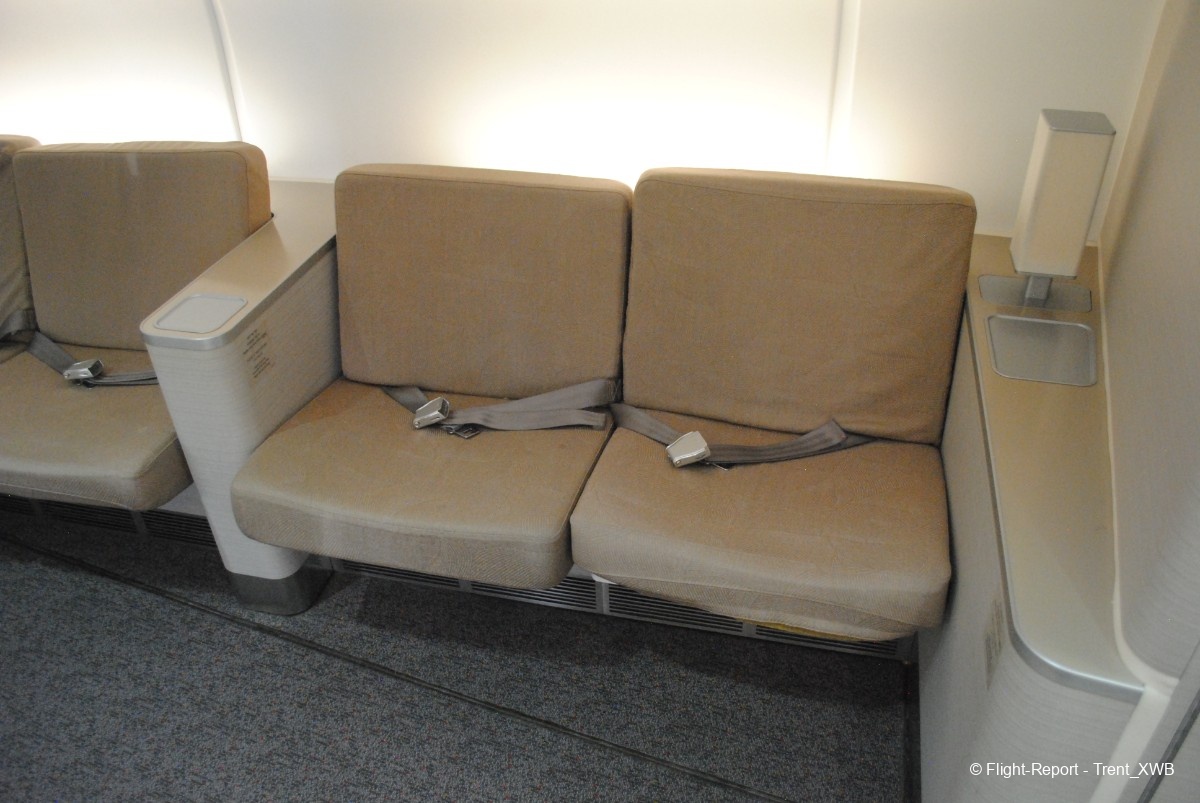
The Front Business Cabin
The front business class cabin (both business cabins are on the upper deck), consisting of 20 Stelia Solstys seats in staggered 1-2-1 pattern. They are definitely not cutting-edge and lack privacy, but have quite spacious footwells. On the last photo in this gallery you may have noticed that overhead bins here are spacious 777-style, in contrast to the economy ones. This is kind of weird, but explainable - because the allowance for carry-on size is much more generous in business than in economy. For example, Emirates A380s feature 777-style bins even in economy.
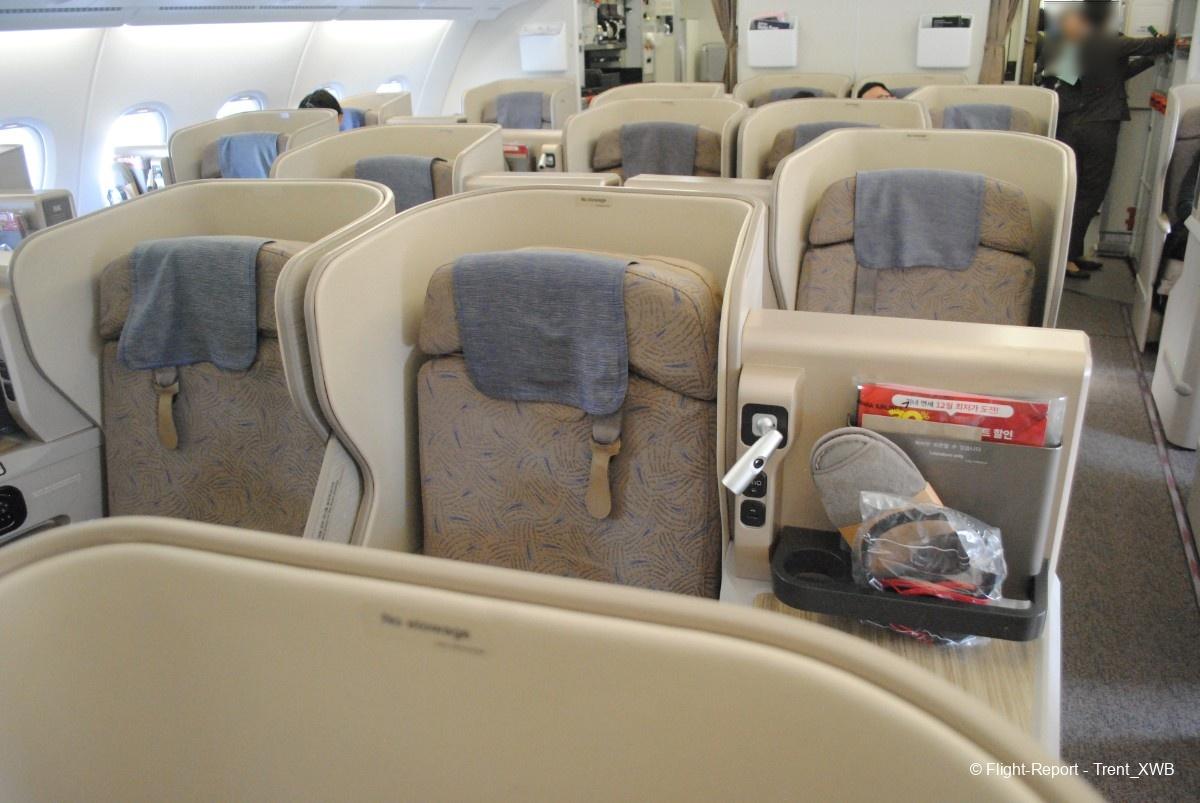
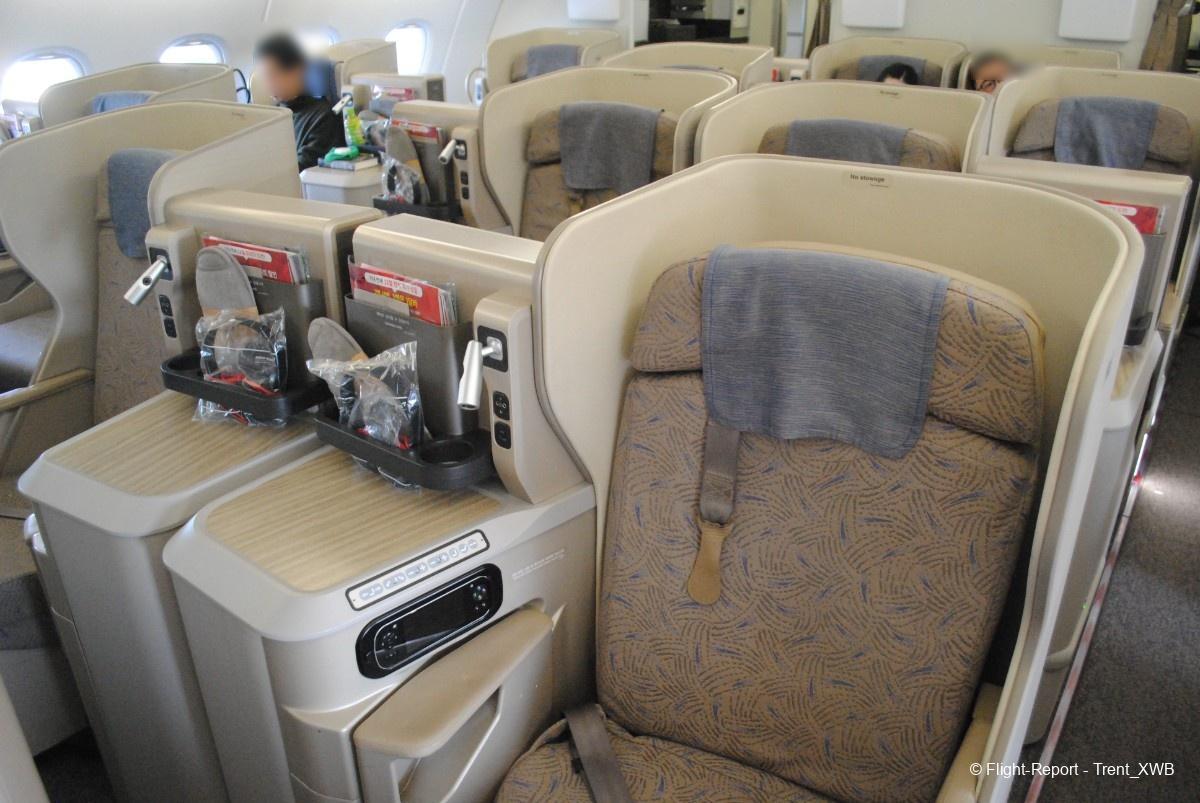
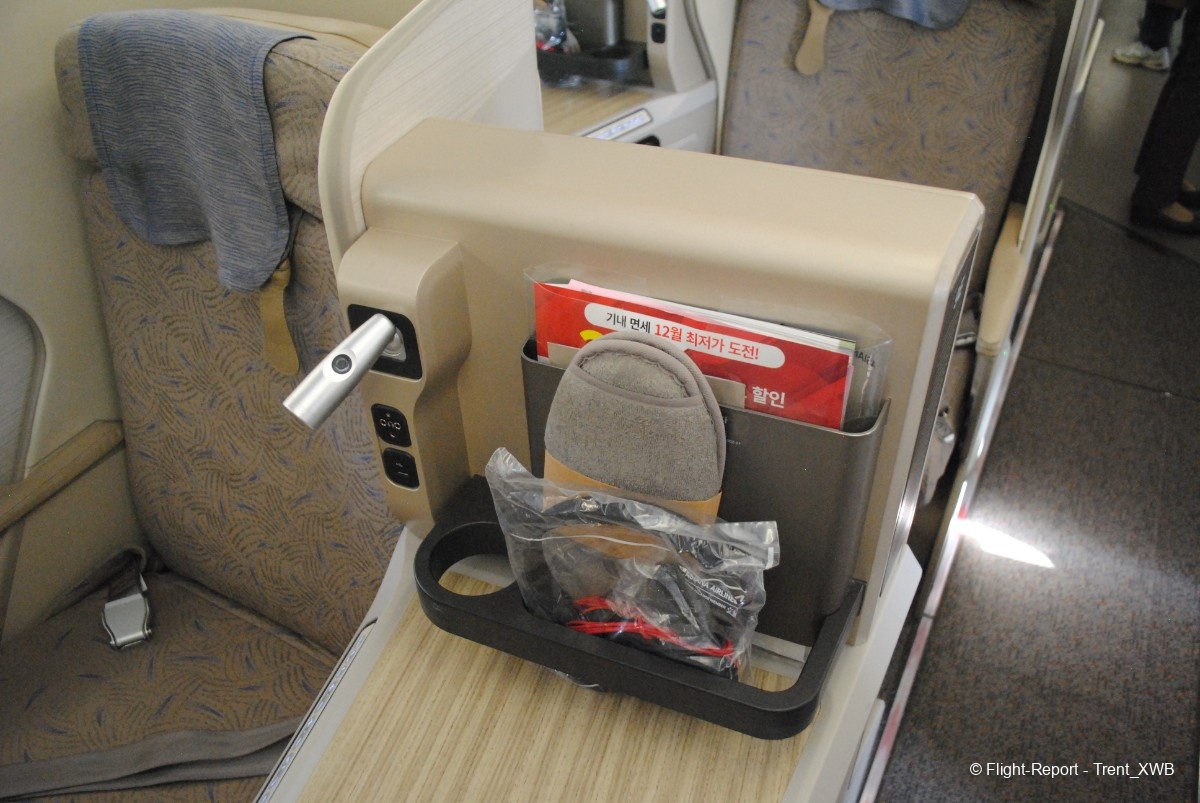
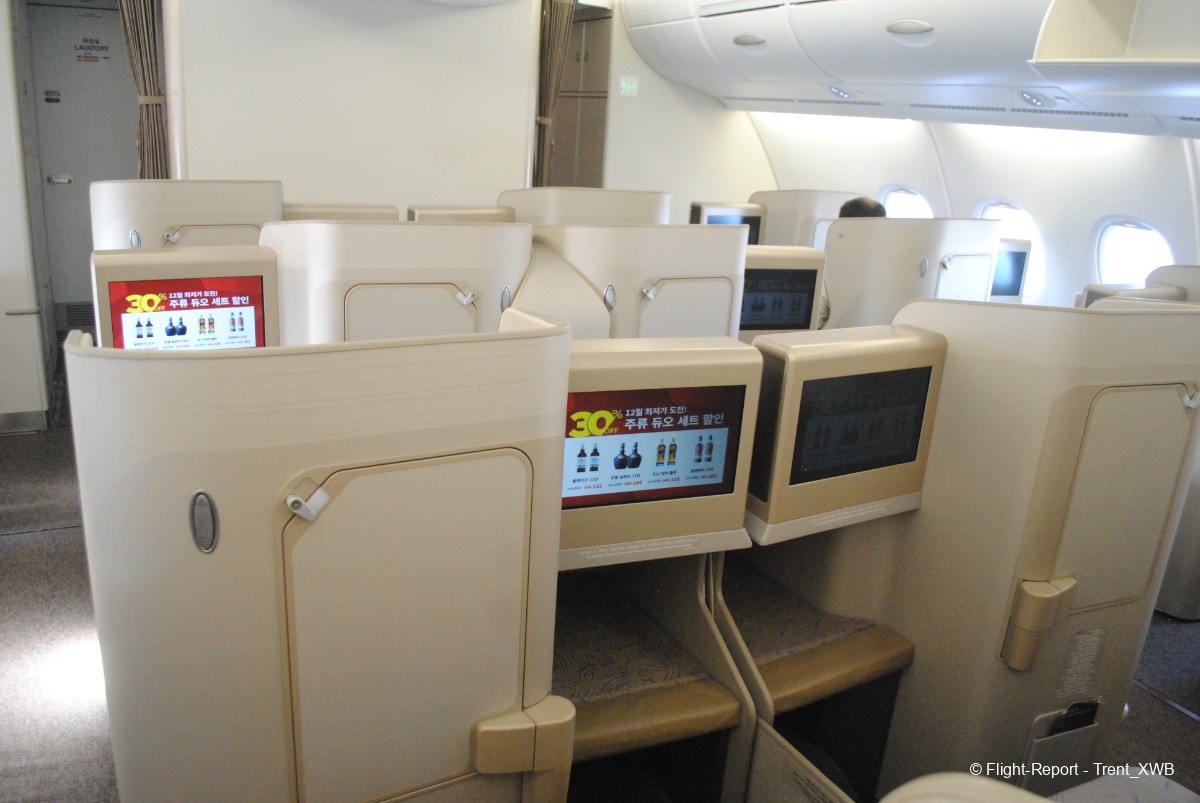
The Economy Seat
And finally it's time to settle into my seat 73A in the front part of the upper-deck economy. The seat model is well-known Safran Z300, featuring adjustable headrest and normal-size armrests. No pillow and no blanket on the seat considering the short length of the flight.
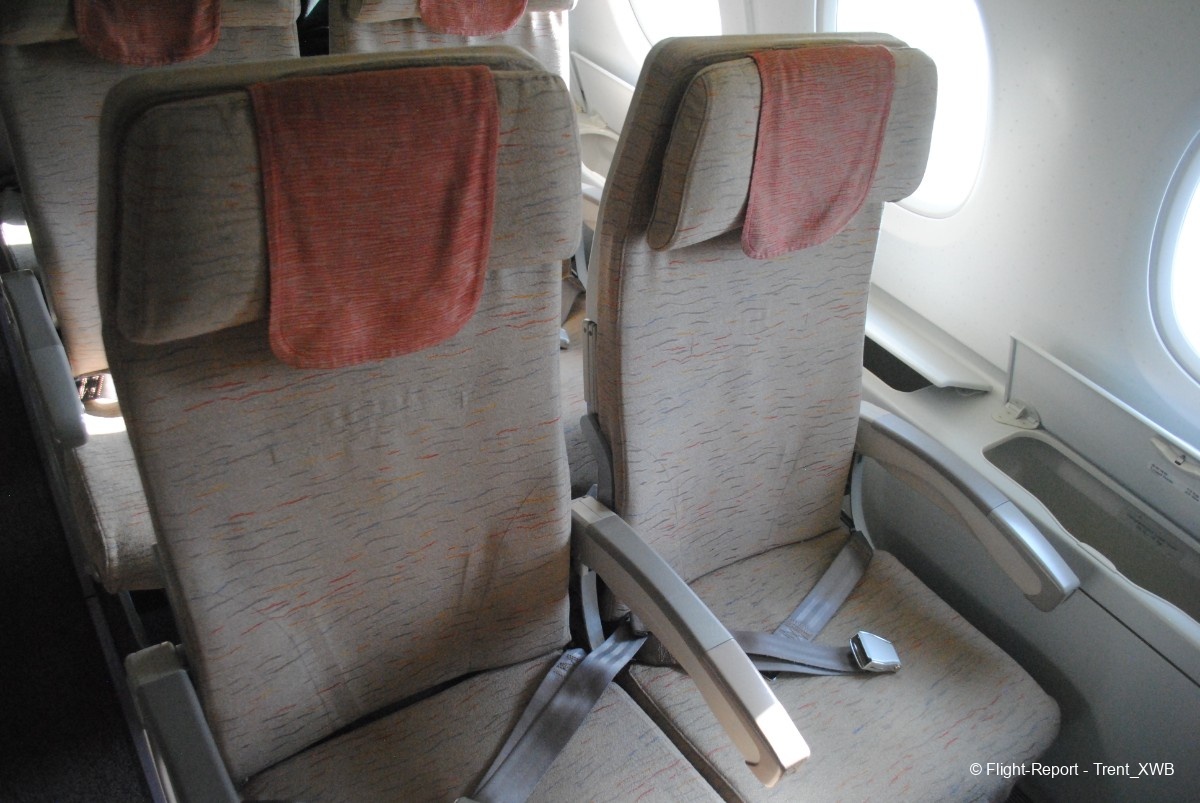
The seatwidth is whopping 48.1 cm (18.9"). 1.6" more than the same Z300 in Korean Air B747-8i. Wooow - these Z300s seem to be the world's widest economy seats! The lateral spaciousness of A380 is unparalleled. There is simply no other aircraft type that can accomodate 3-4-3 economy with the seatwidth of 18" or more, and it's honest to say that OZ A380 with its almost 19" Y seatwidth provides premium economy spaciousness even in economy! Speaking of 2-4-2 (upper-deck) layout, though, there is another a/c type with such layout and such seatwidth - JAL B789/788 in international configs with their famous "Sky Wider" economy (JL is the only airline in the world still retaining 8 abreast economy in 787s. The second was NH, but it left this club long ago for typical tight 3-3-3). Symbolically, JL's Sky Wider is based on the same Safran Z300 seats (just with some customization). So, flying OZ upper deck economy is somewhat similar to flying JL's 787.
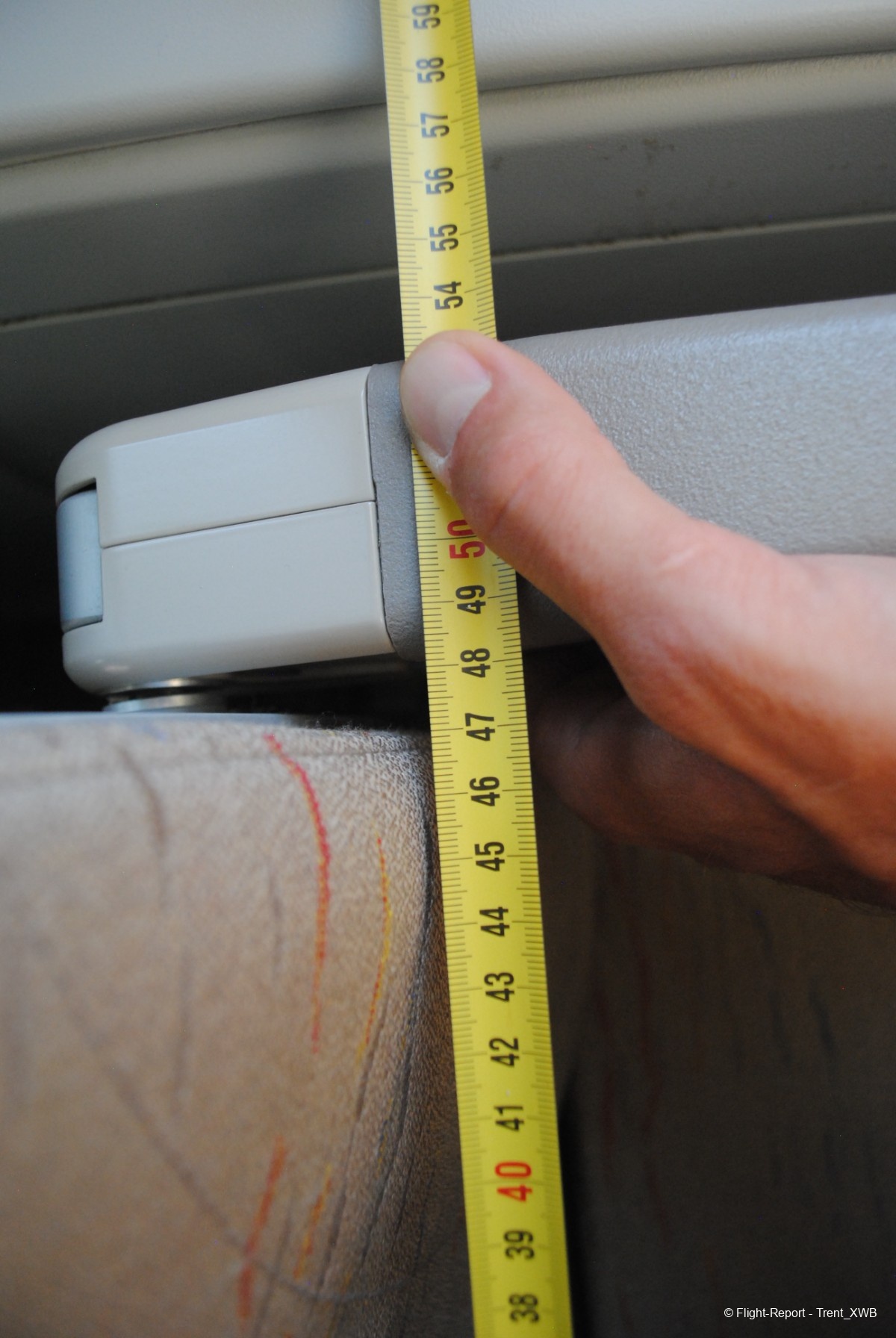
Surprisingly, there Z300s feature less padding than KE ones in B748s, but, considering the ergonomic shape of the seat, the seatback comfort is still fine. I'd easily fly in these seats 14-hours ICN-FRA flight, which OZ recently upgauged from A359 from A380. The row pitch is excellent (advertised as 32") with a lot of space for me (177 cm tall).
And there is a A380-specific feature that JL 787s don't have: the sidewall storages of the upper deck, which additionally increase already ample lateral space.
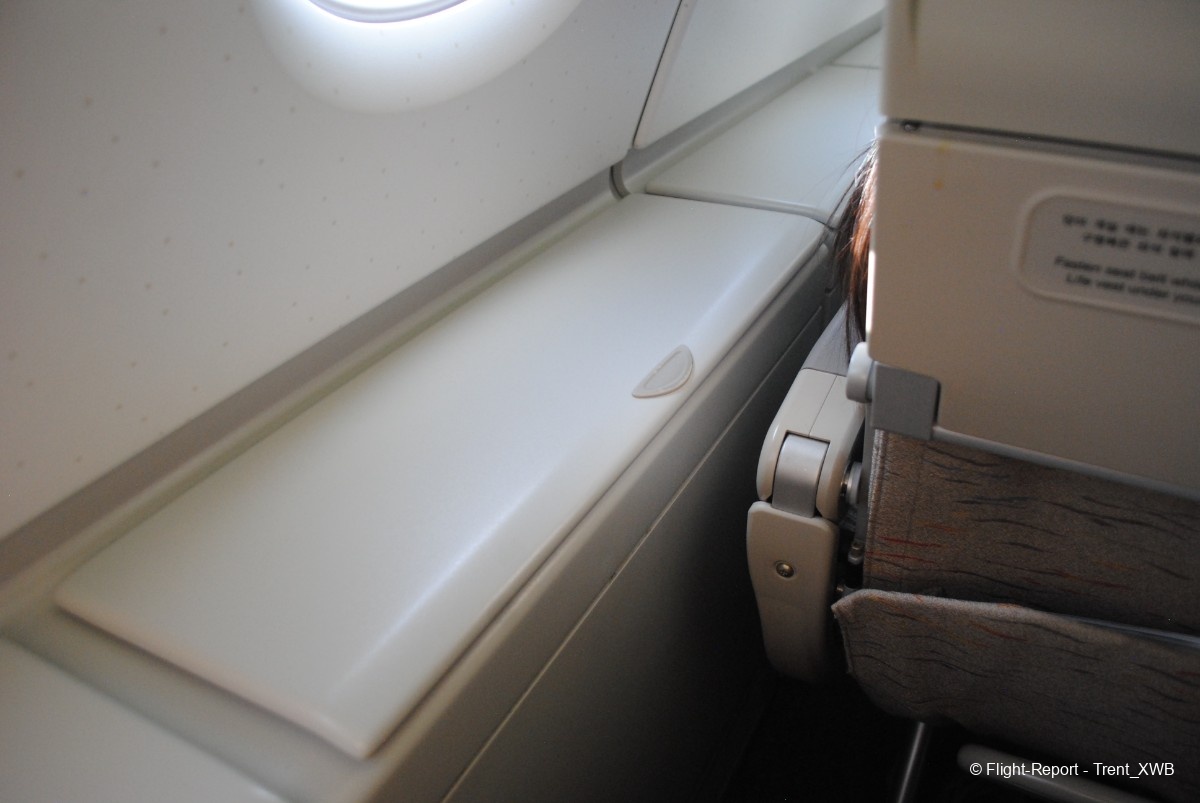
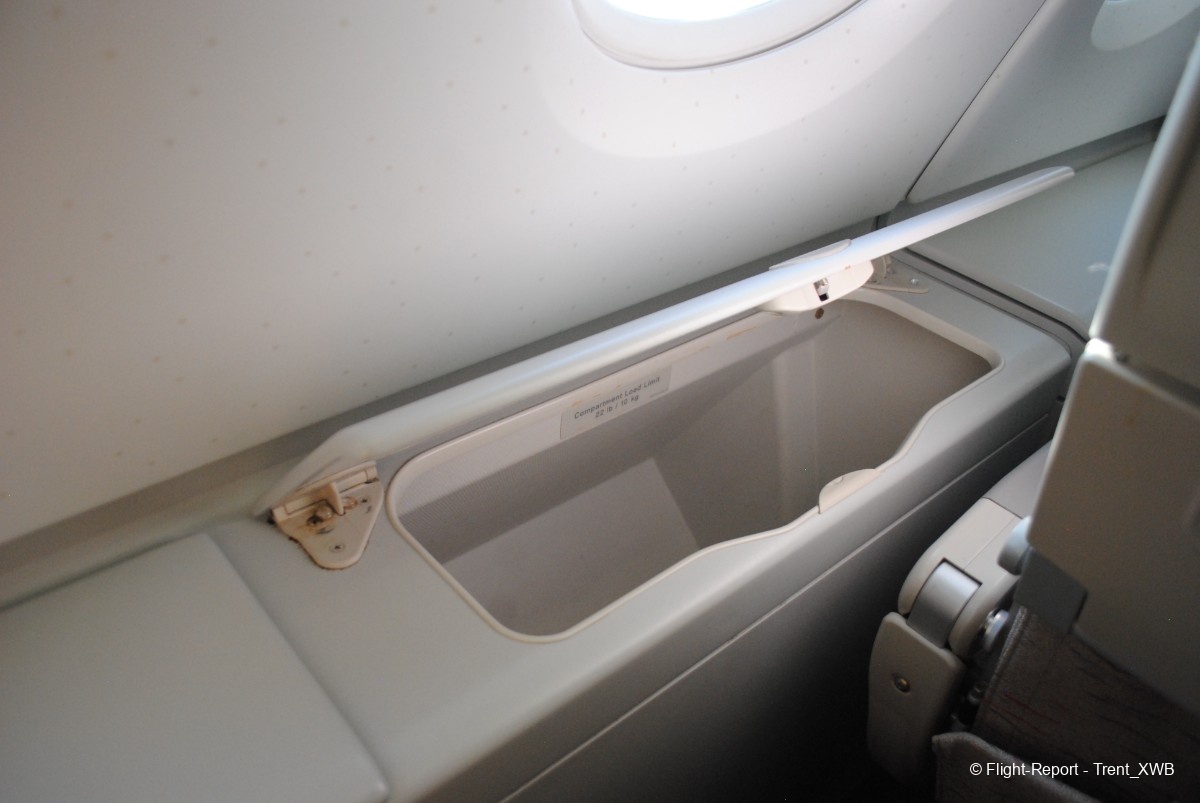
The seat features IFE with big screen and adjustable angle, remote control, USB port, coat hanger, bi-fold tray table, seat pocket, legrest and universal power socket underseat (one for a pair of seats). The headset socket is located in the armrest.
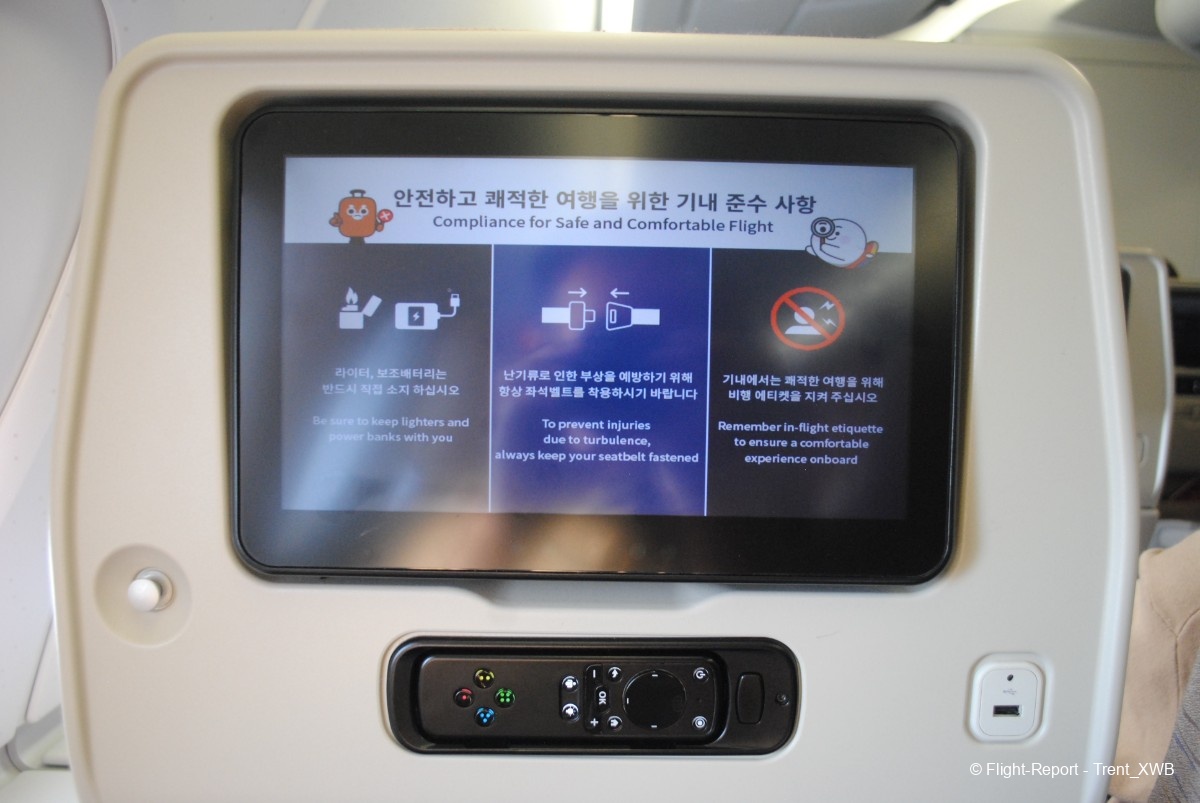
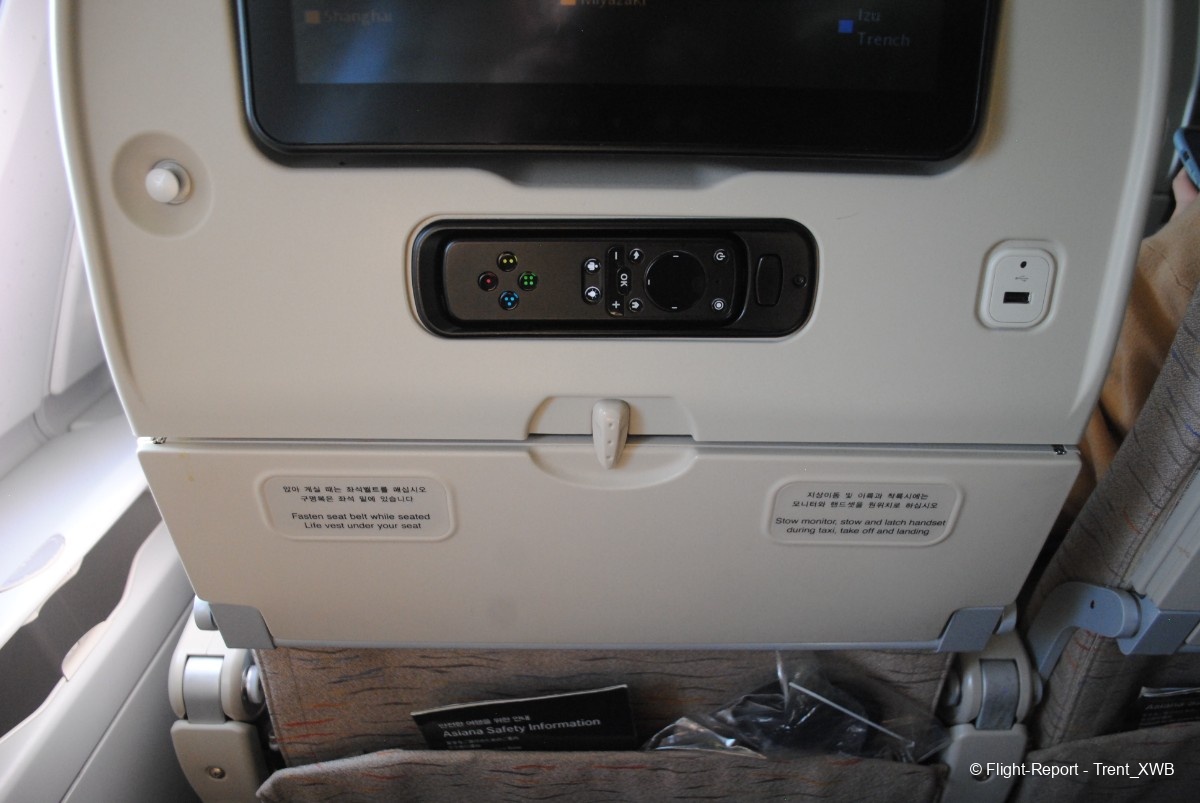
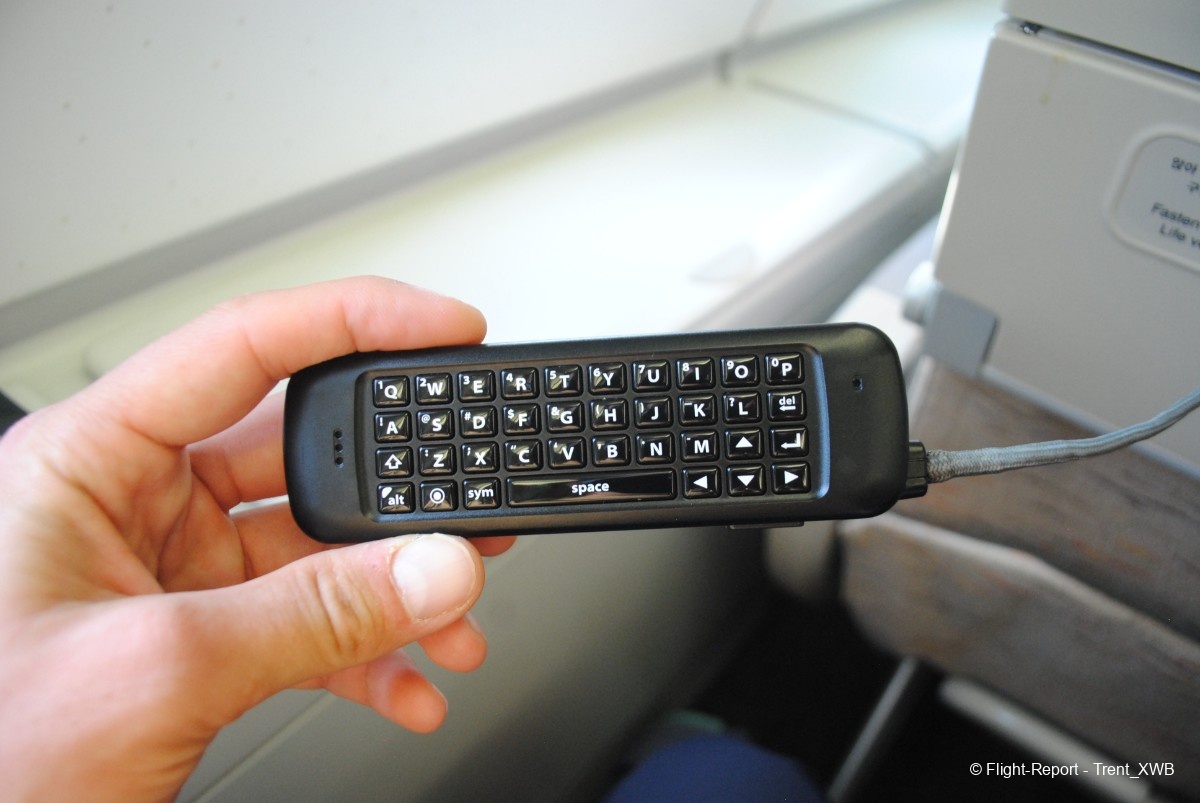
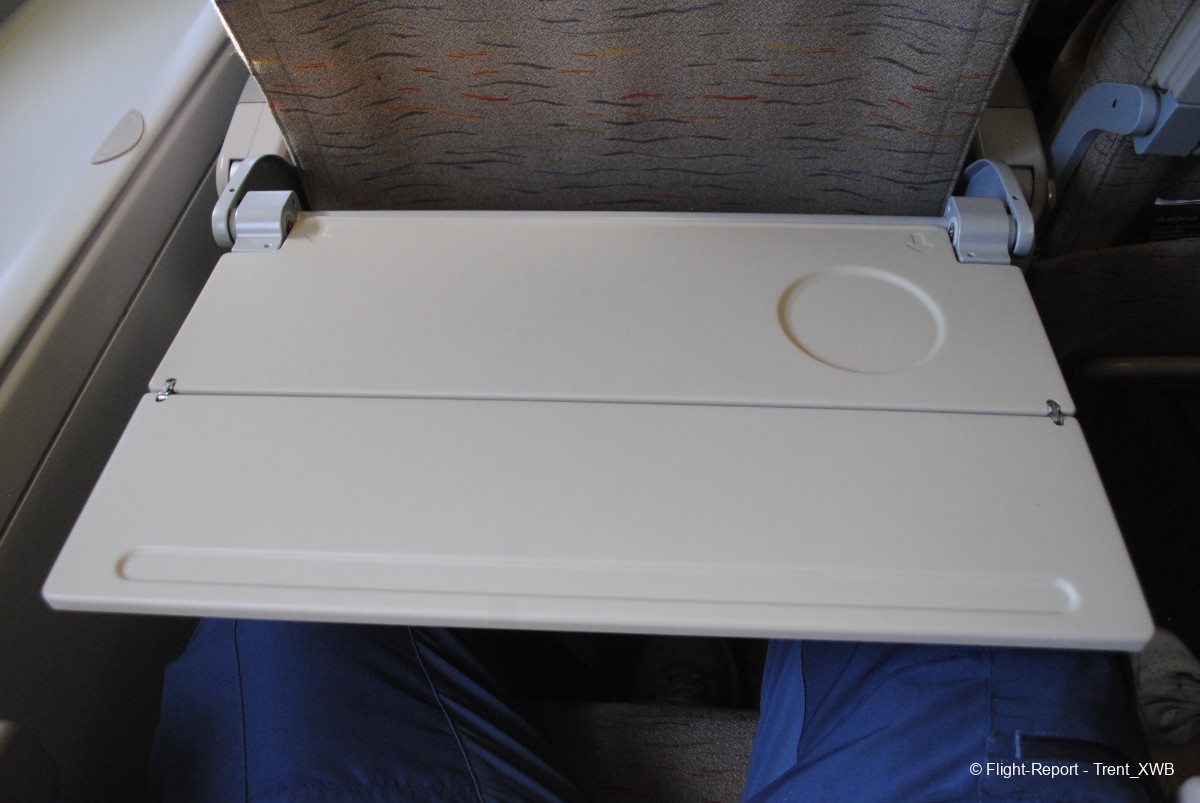
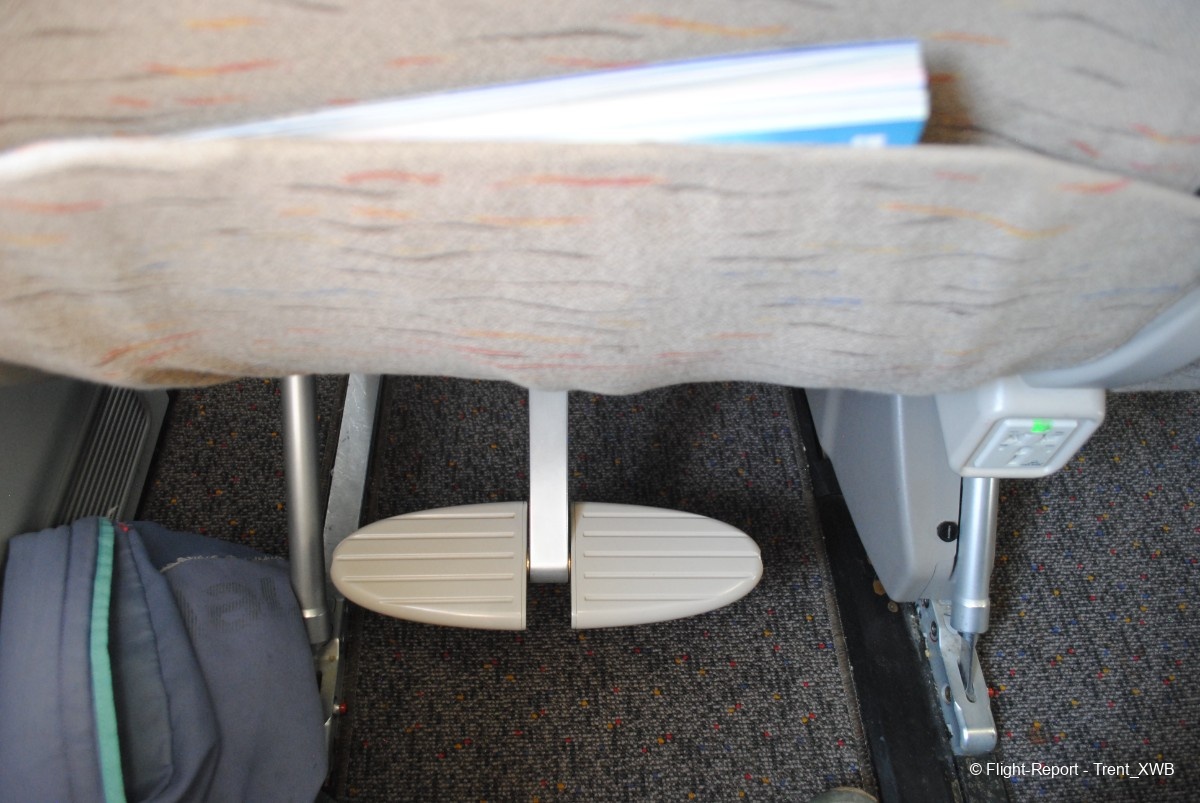
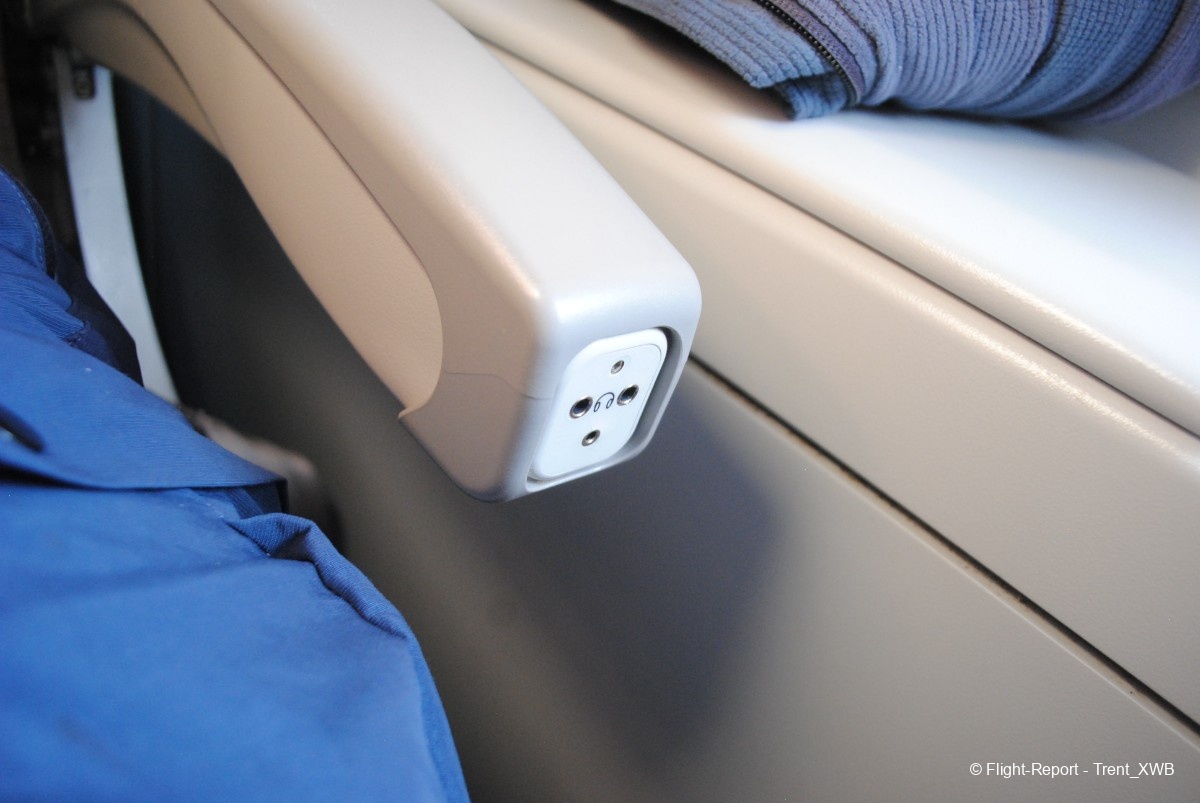
The seat pocket contains headset, safety card, duty-free magazine, waste bag and Korean immigration card.
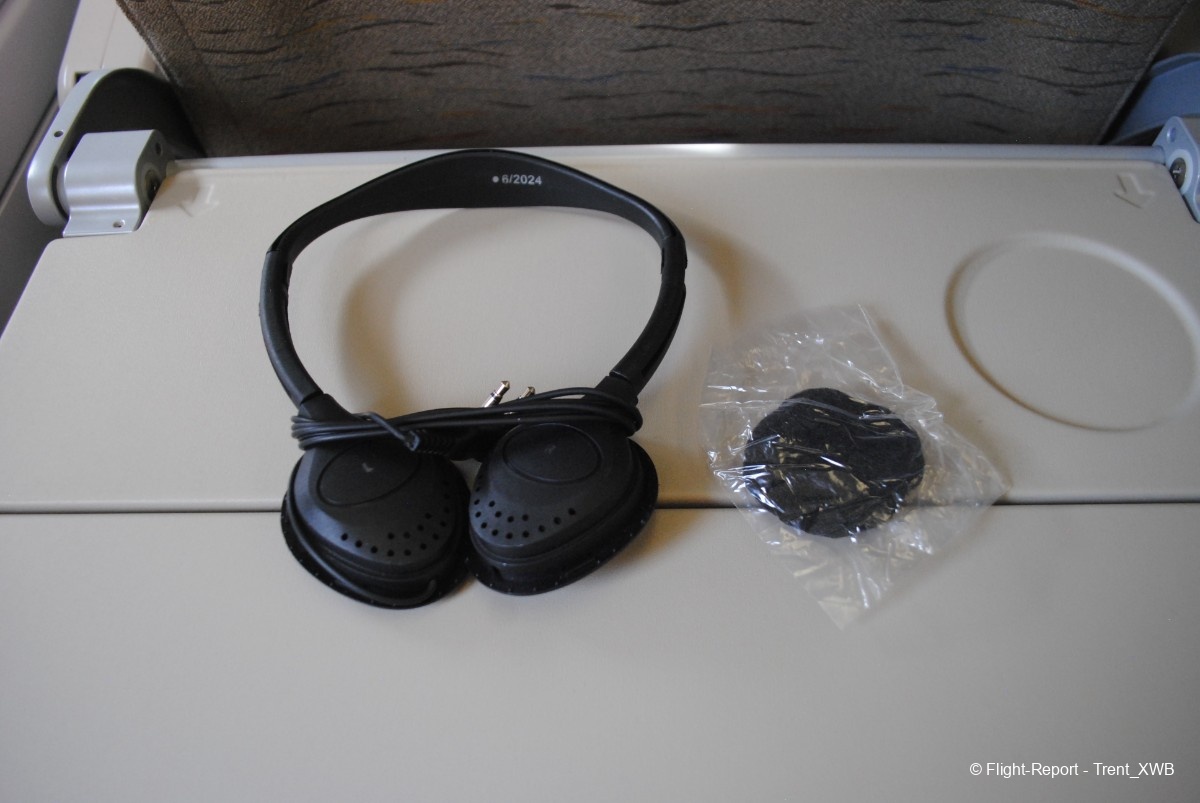
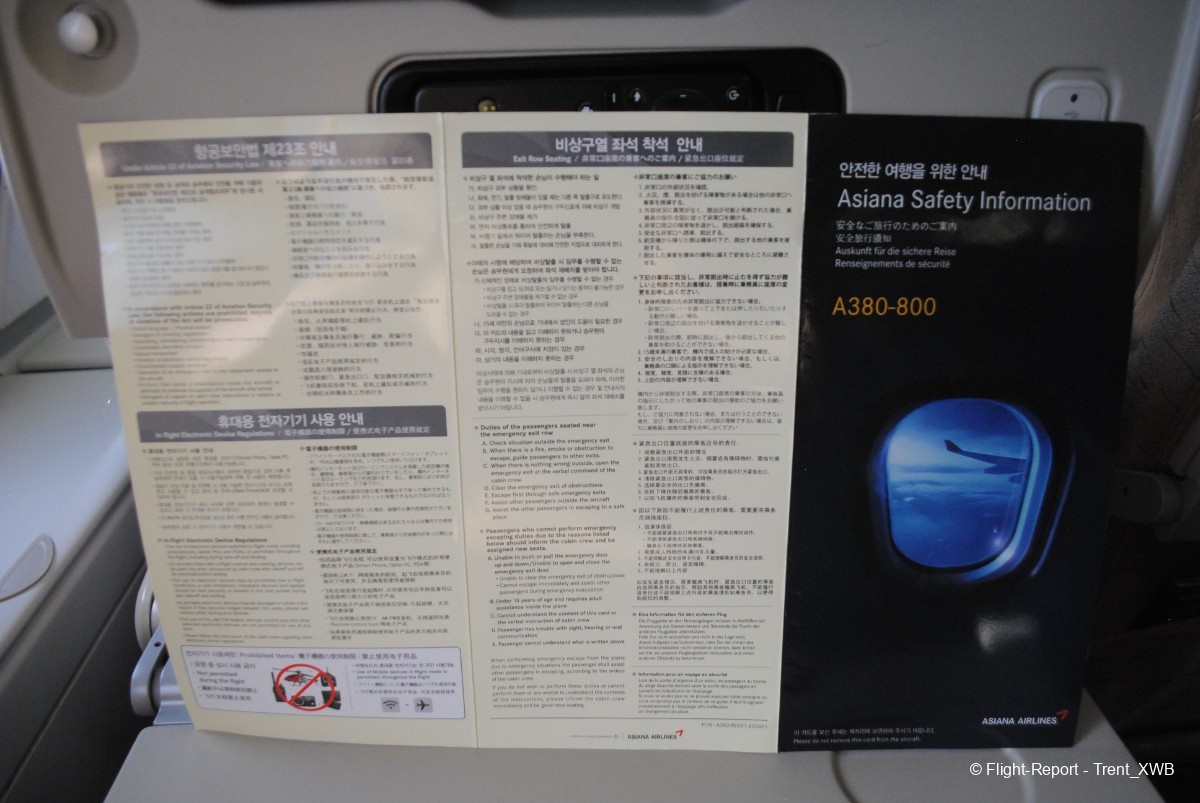
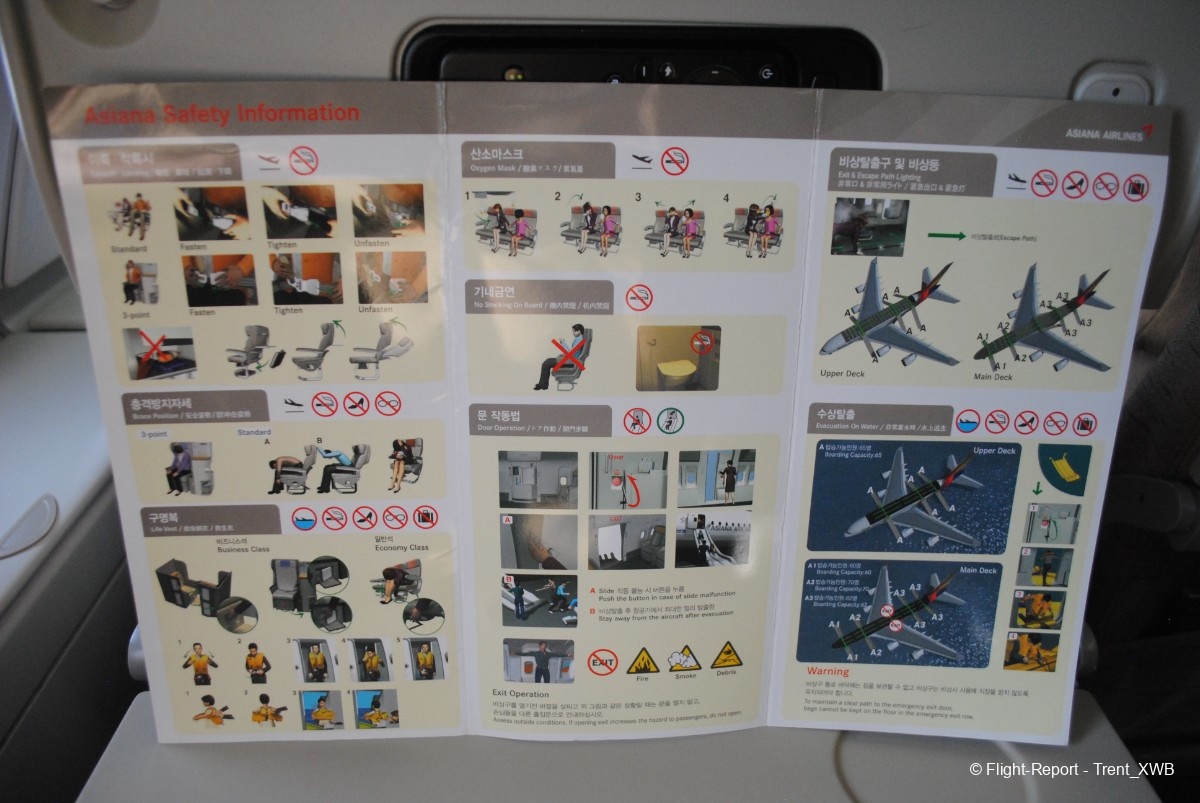
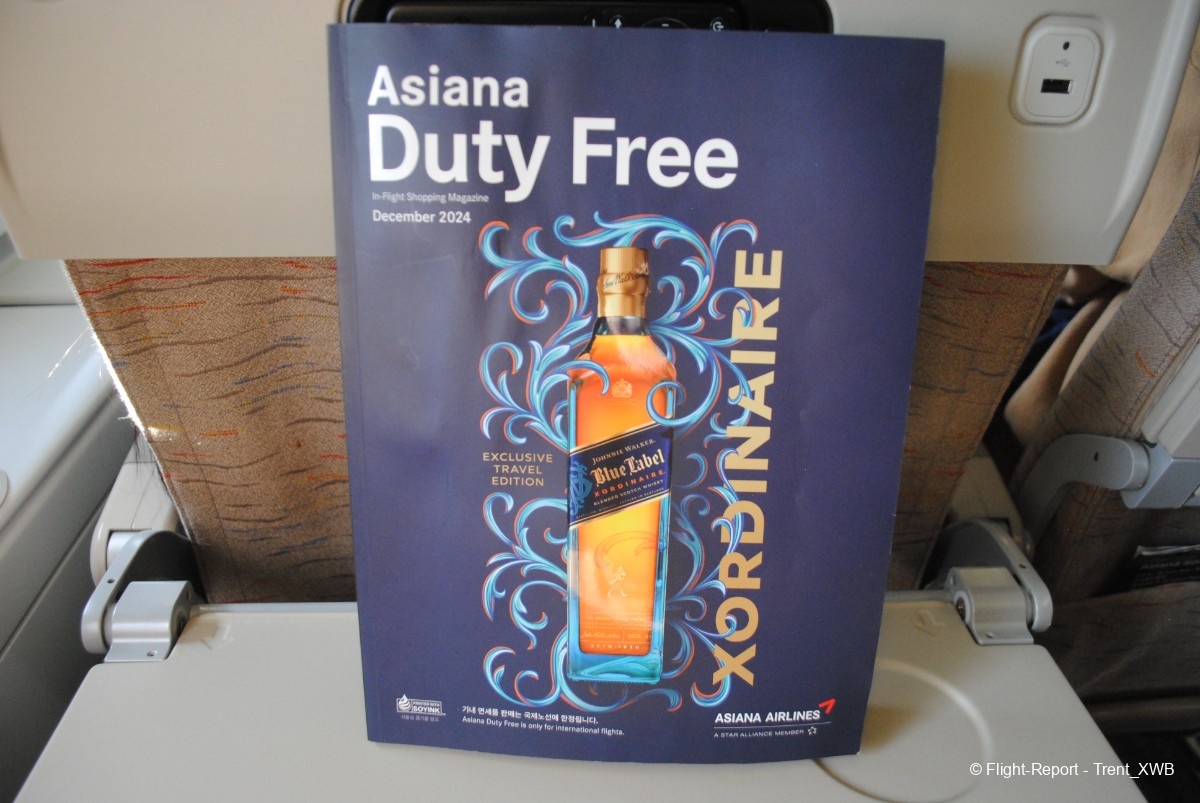
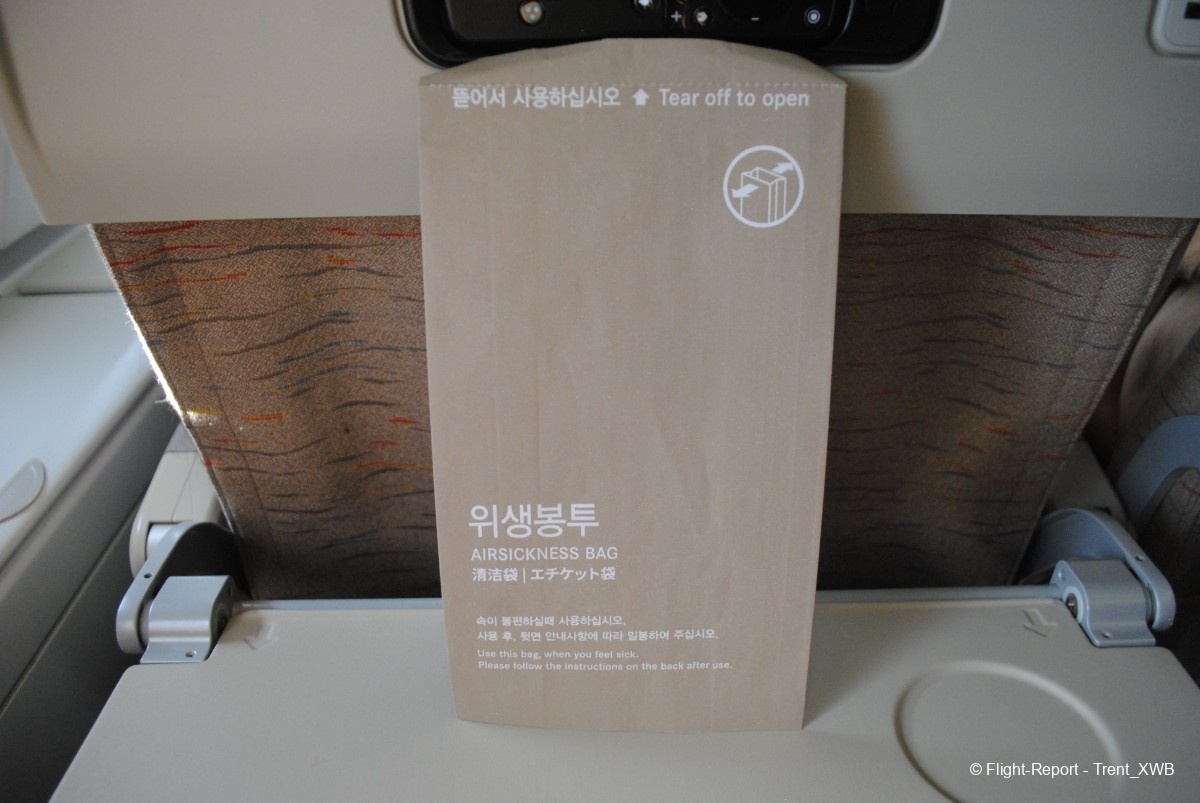
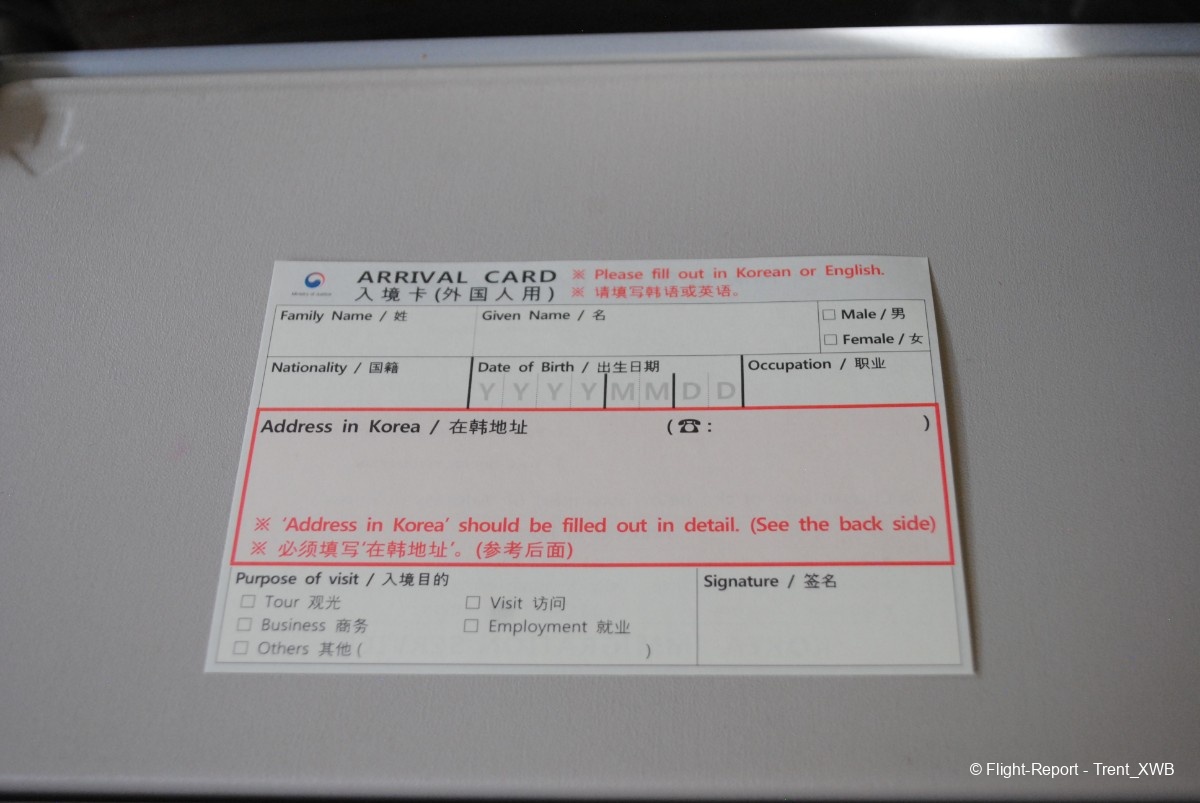
Some screenshots of OZ:Enter IFE. The most interesting part is the fleet info.
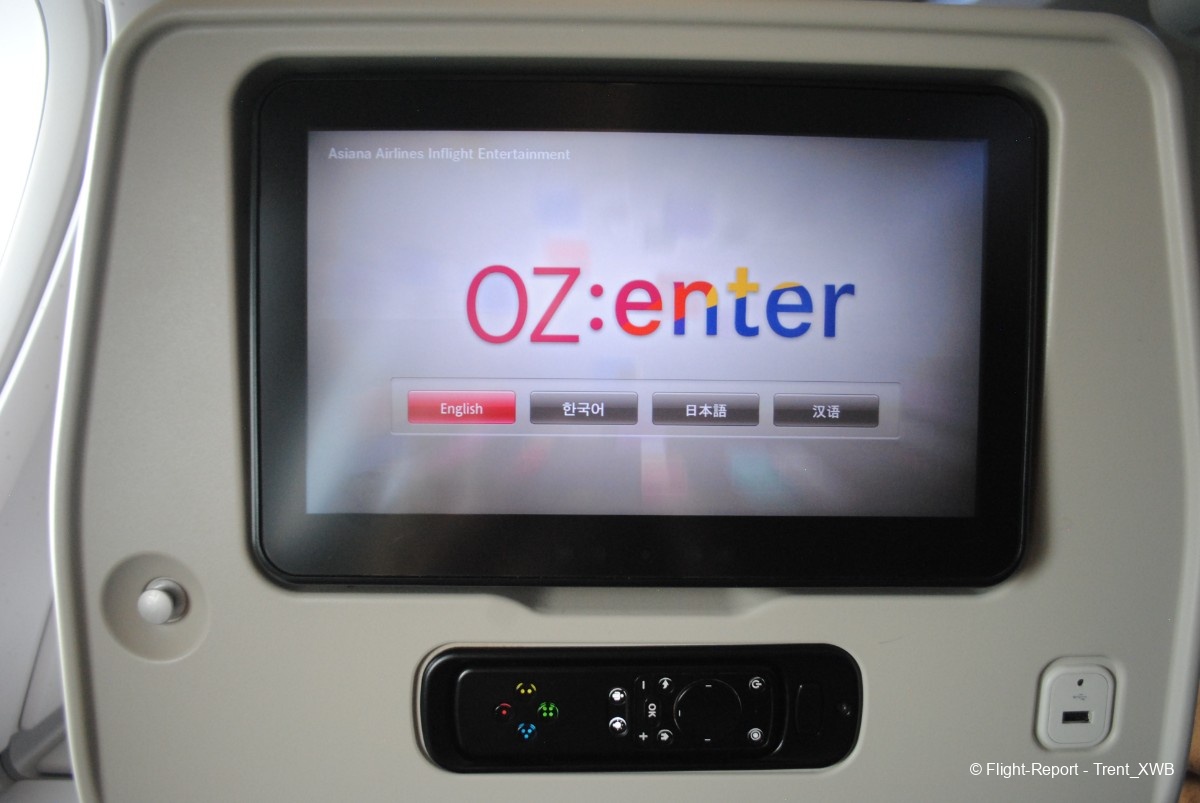
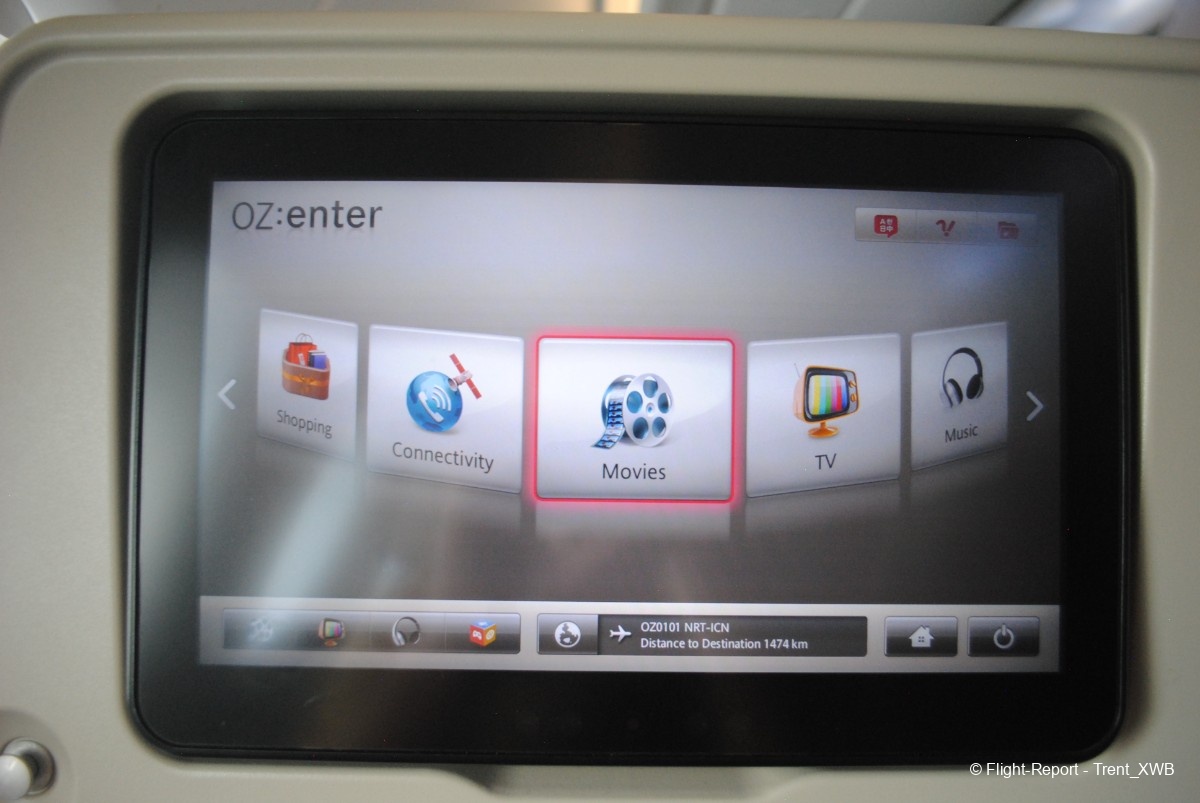
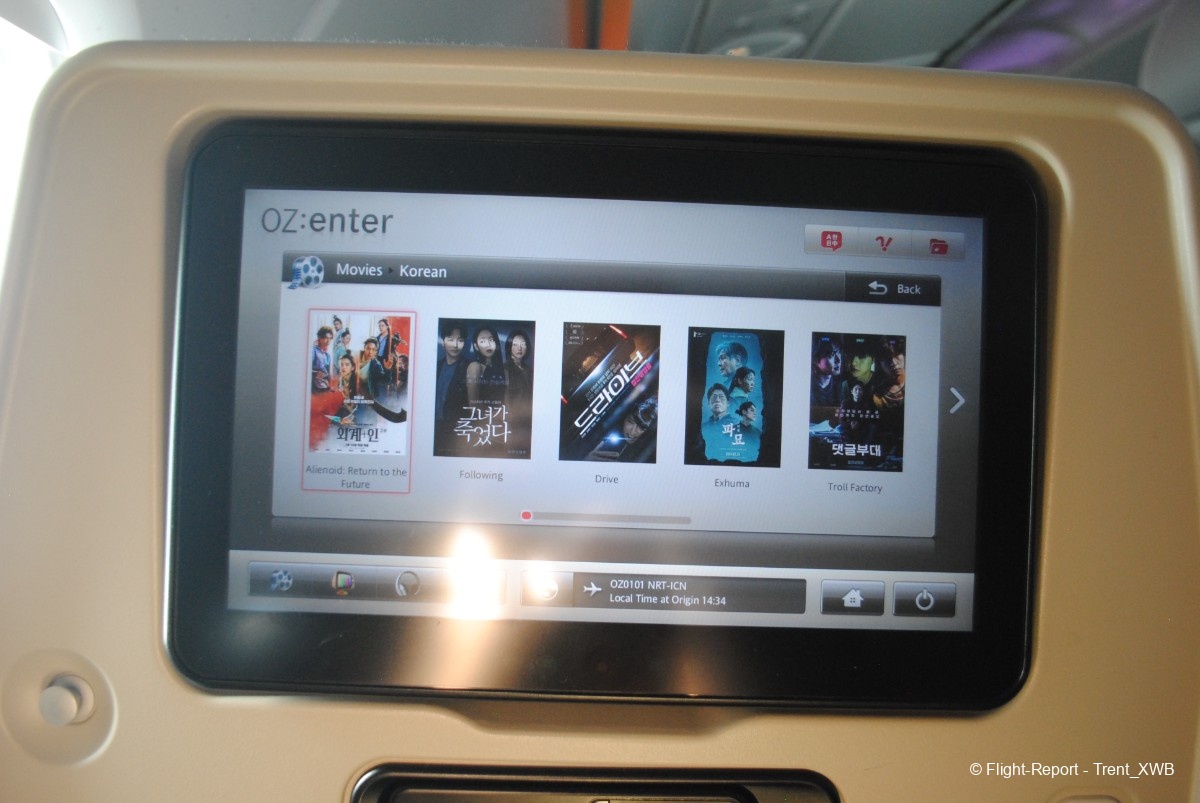
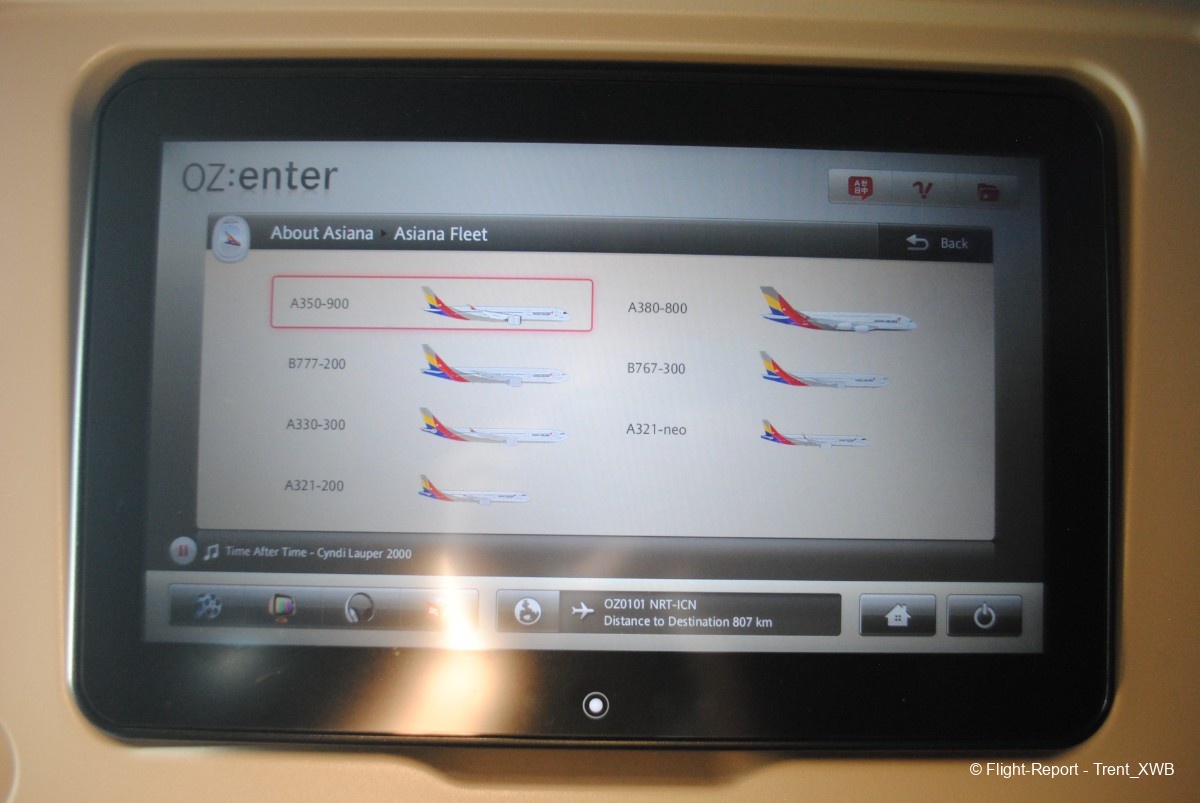
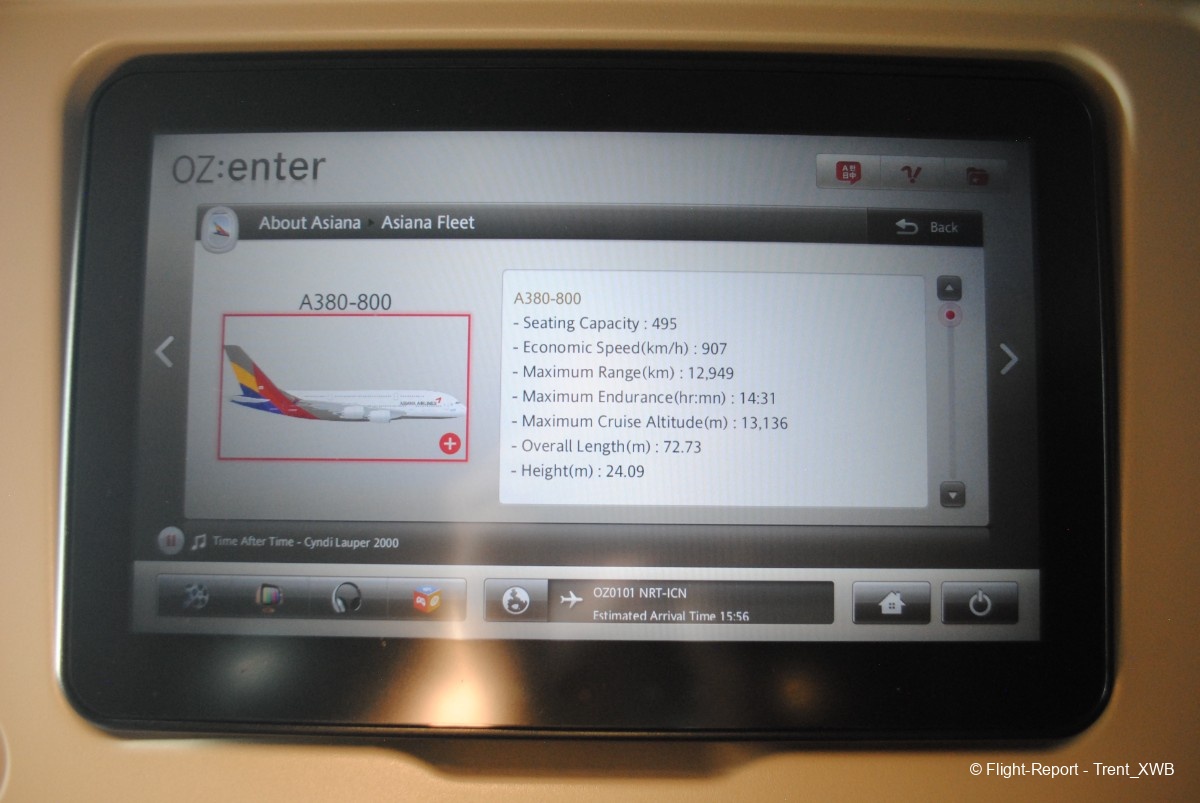
The Flight
Pushback commences (with traditional waving from the Japanese tarmac personnel)…
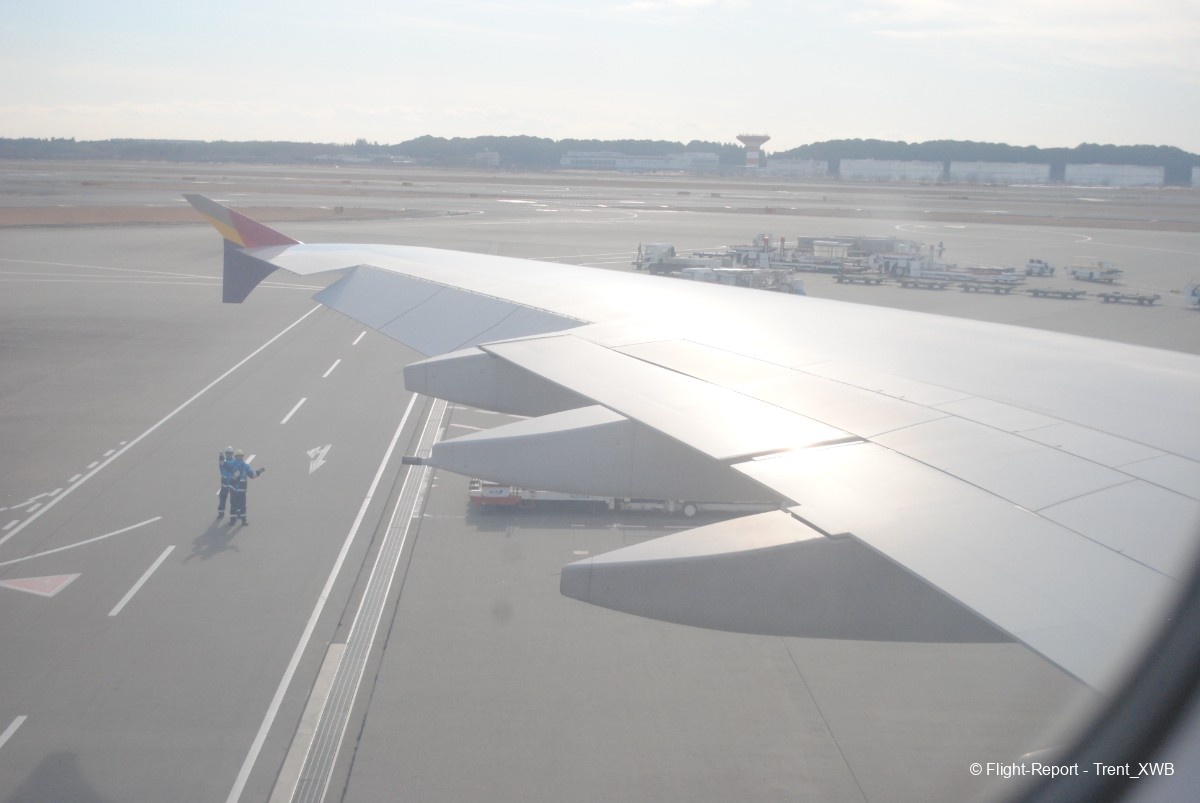
…and safety video is displayed
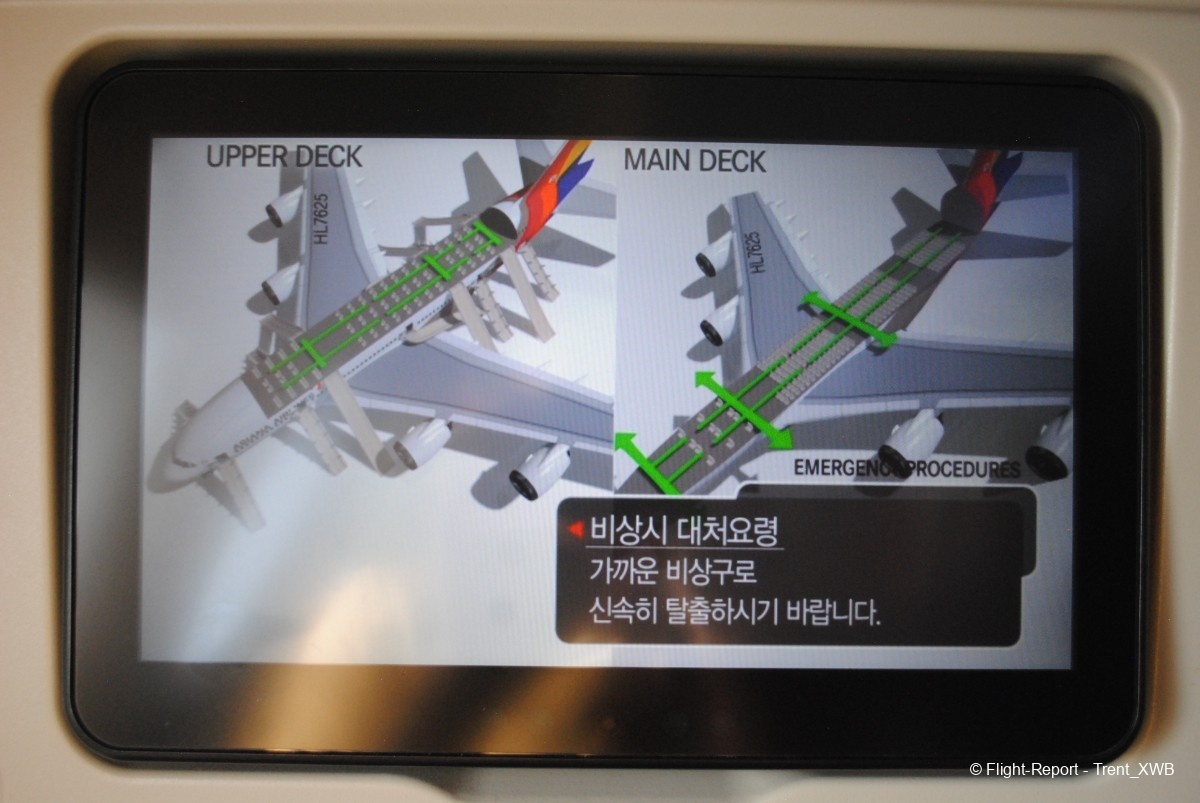
Flaps are set into takeoff mode and flight crew check spoilers.
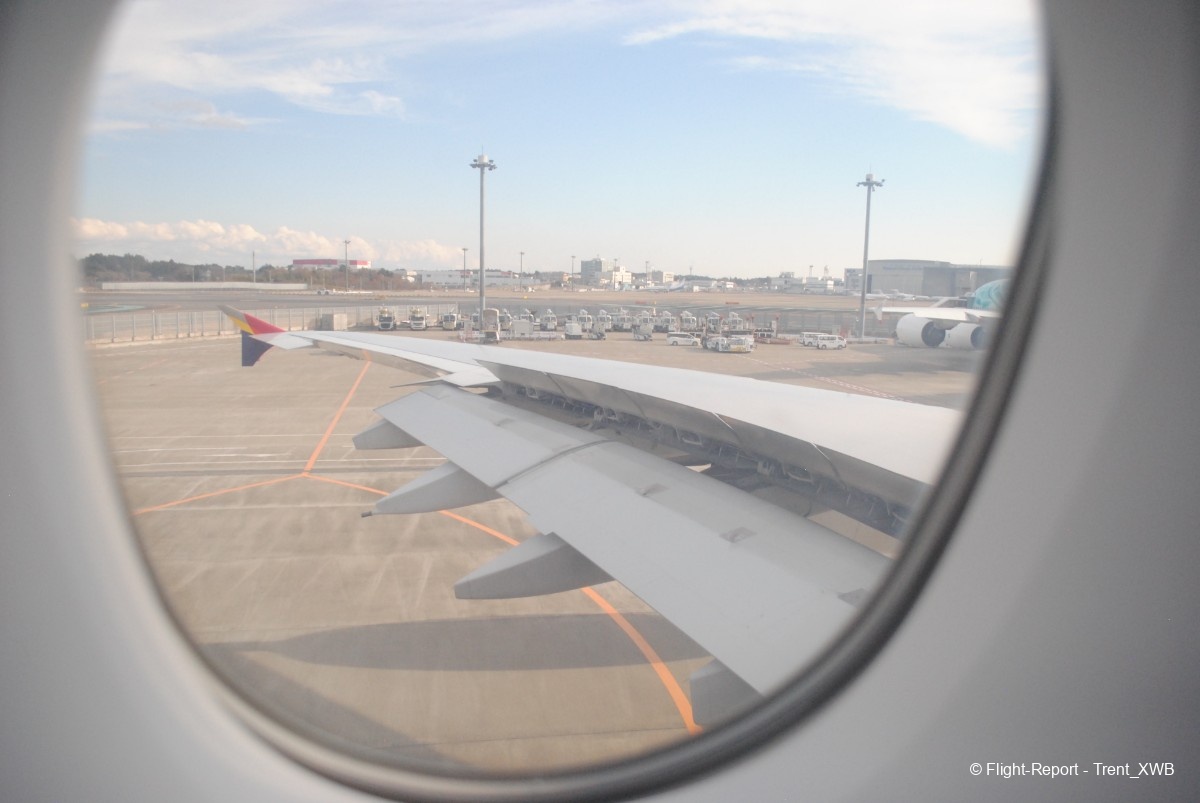
There is a camera displaying outside view, but the picture is quite blurred.
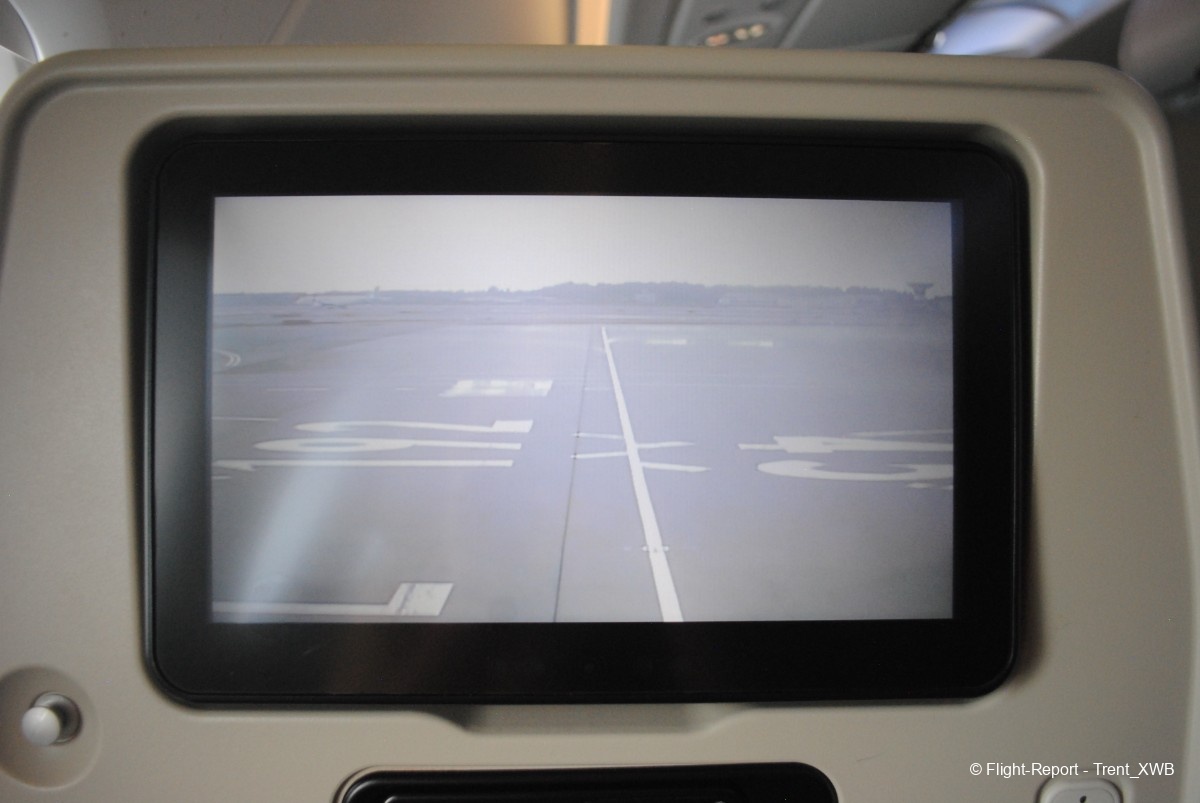
Taxiing past NH A380 (JA382A) featuring green "Flying Honu" livery.
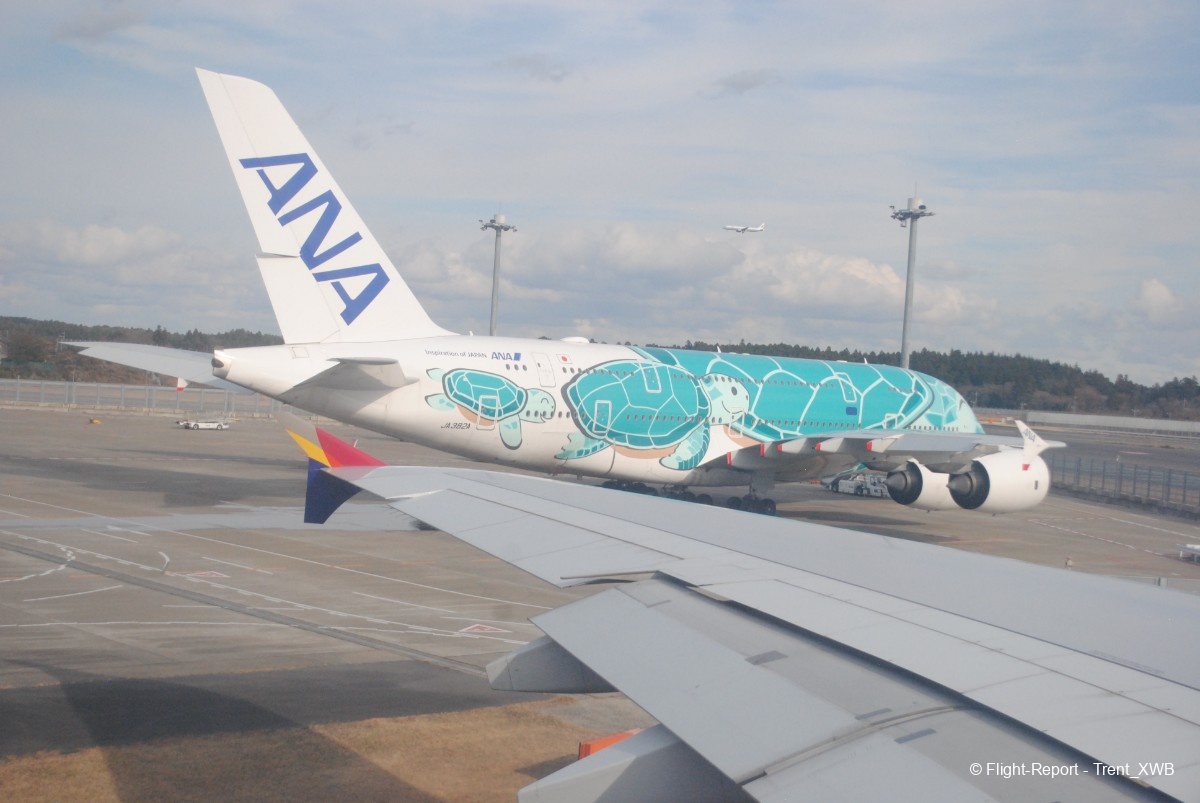
For comparison, on my previous flight on HL7640 we taxied past its fellow JA381A in blue livery. From June 2025, when OZ A380s were withdrawn from NRT flights, you can fly into or from Japan only on NH whalejets and you have to be eligible for entering US, because "Flying Honus" are deployed exclusively between Narita and Honolulu.
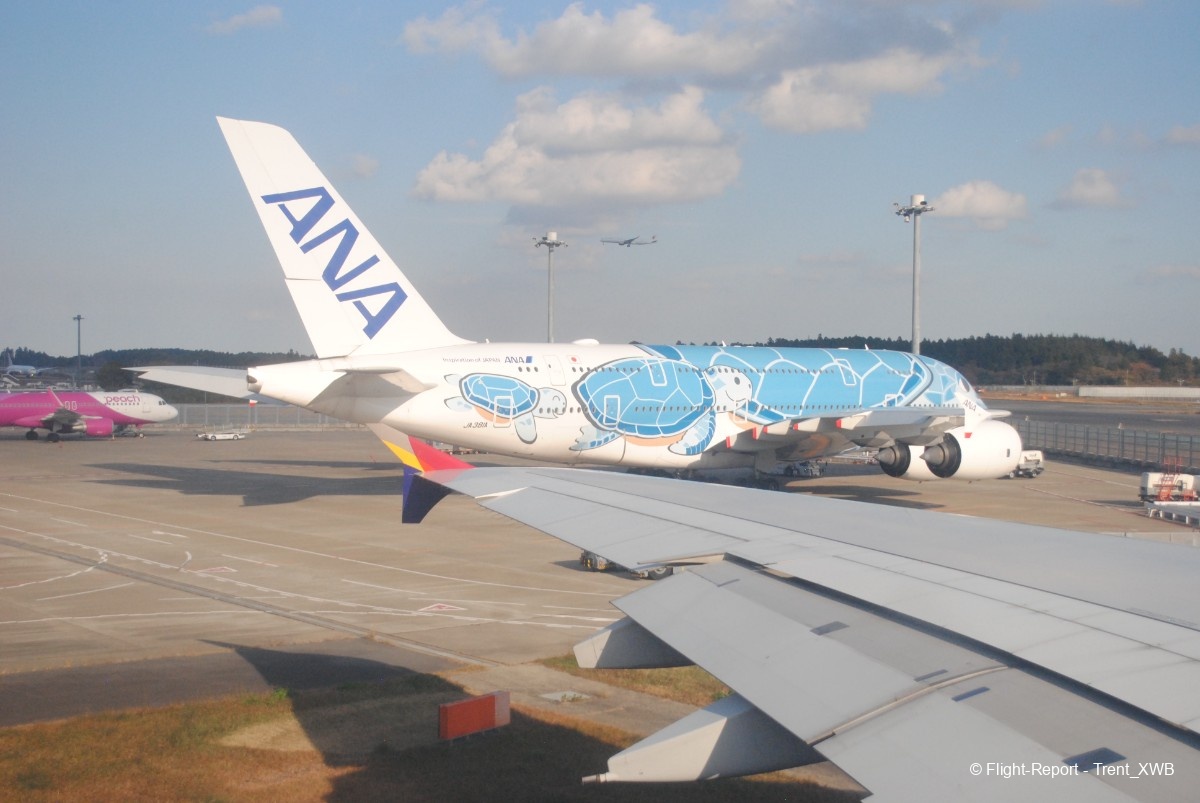
Hawaiian A332, which also arrived from HNL. Because it's just boring A332, it's much less attractive option to fly from Japan to Hawaii avgeek-wise compared to NH, but probably much cheaper.
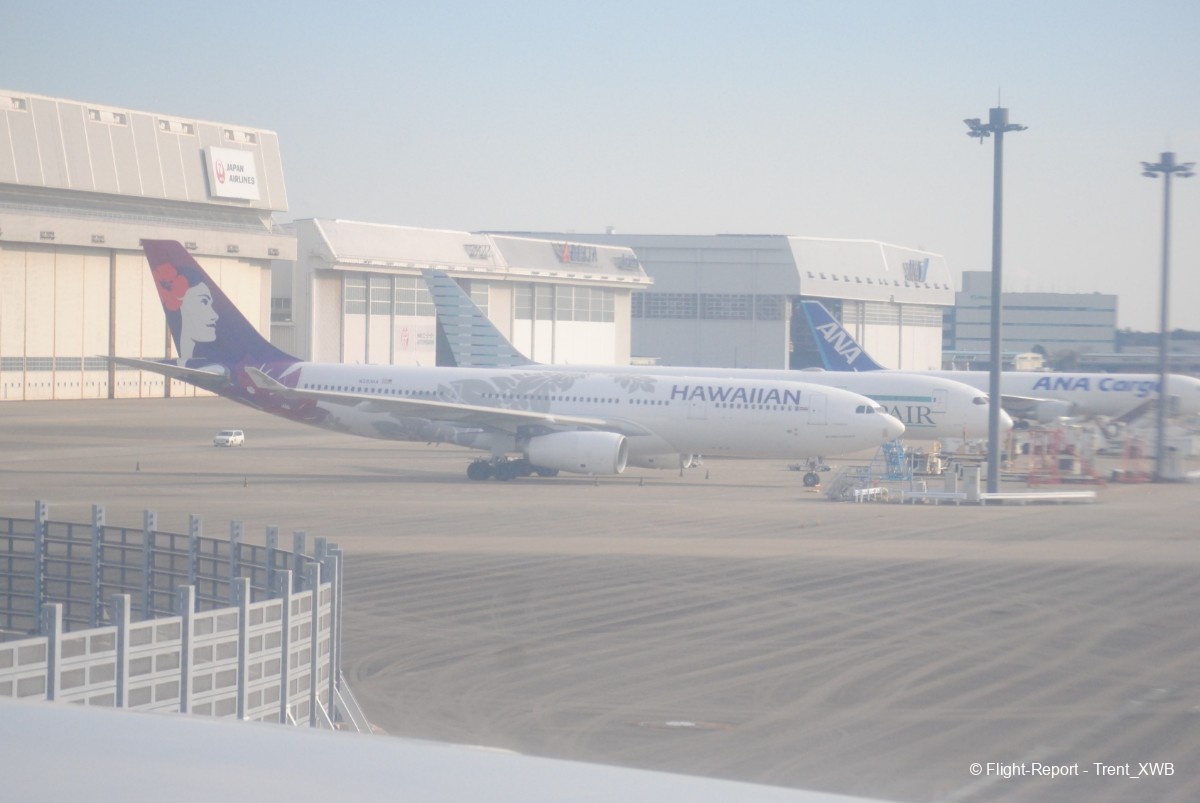
Taking off (here I use photo from my previous flight on 4 December 2024)
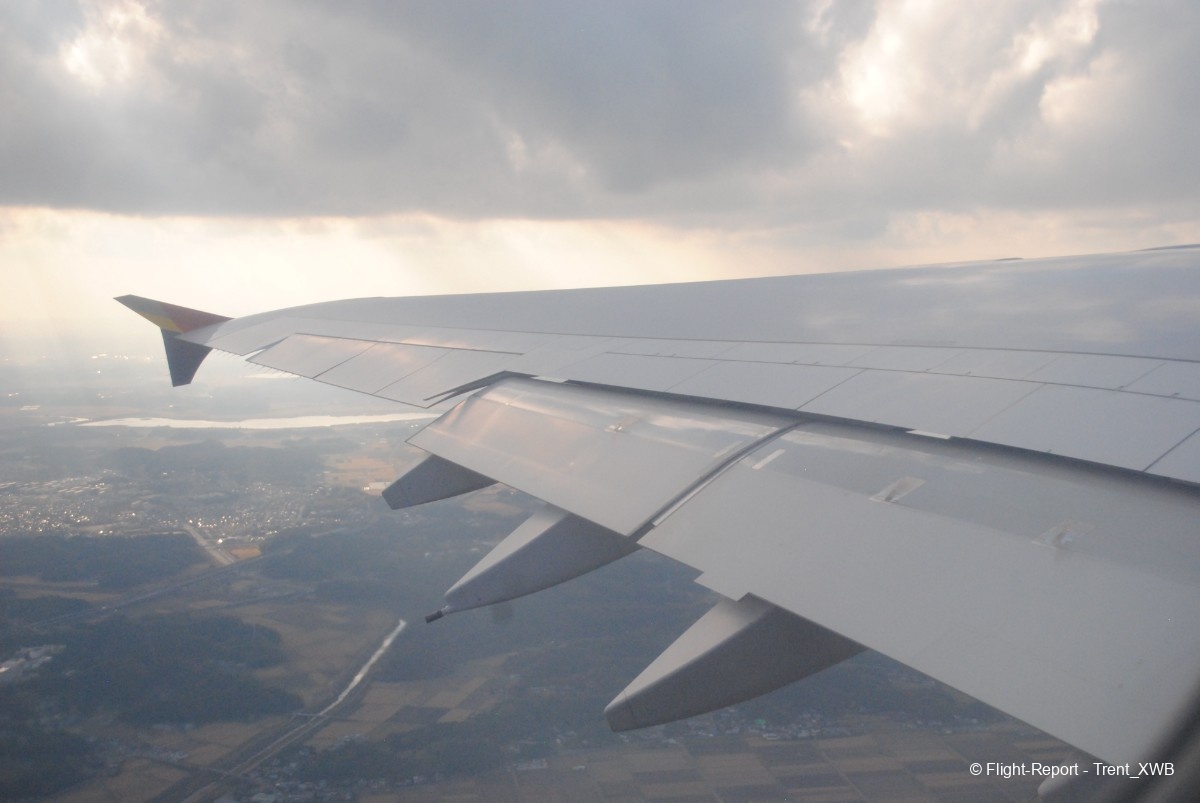
Flaps off
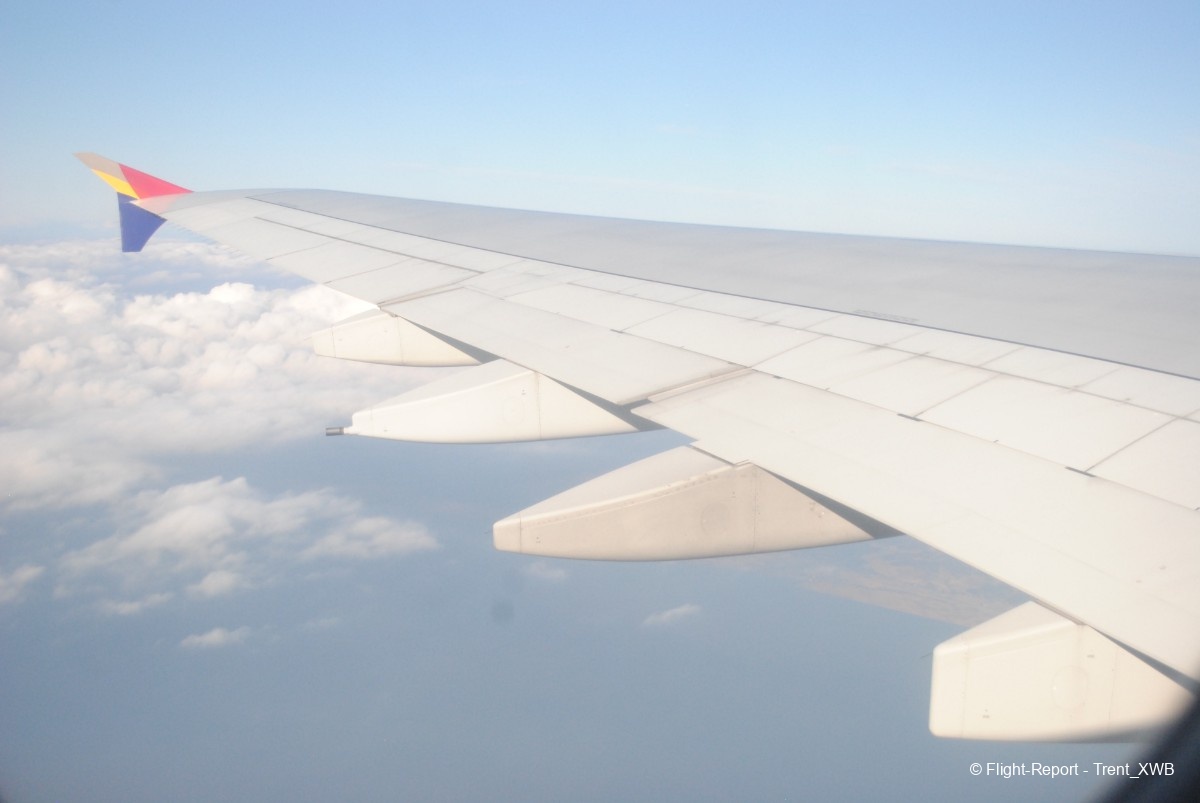
If your flight from Tokyo doesn't cross the Pacific and you're sitting on the left when departing NRT or on the right when departing HND, you have a chance to see Fuji-san if the weather conditions favor. On my previous OZ101 flight on 4 December I was able to see Fuji (and here I show its photo), but on this flight (18 December) there were too much clouds, hiding Fuji completely.
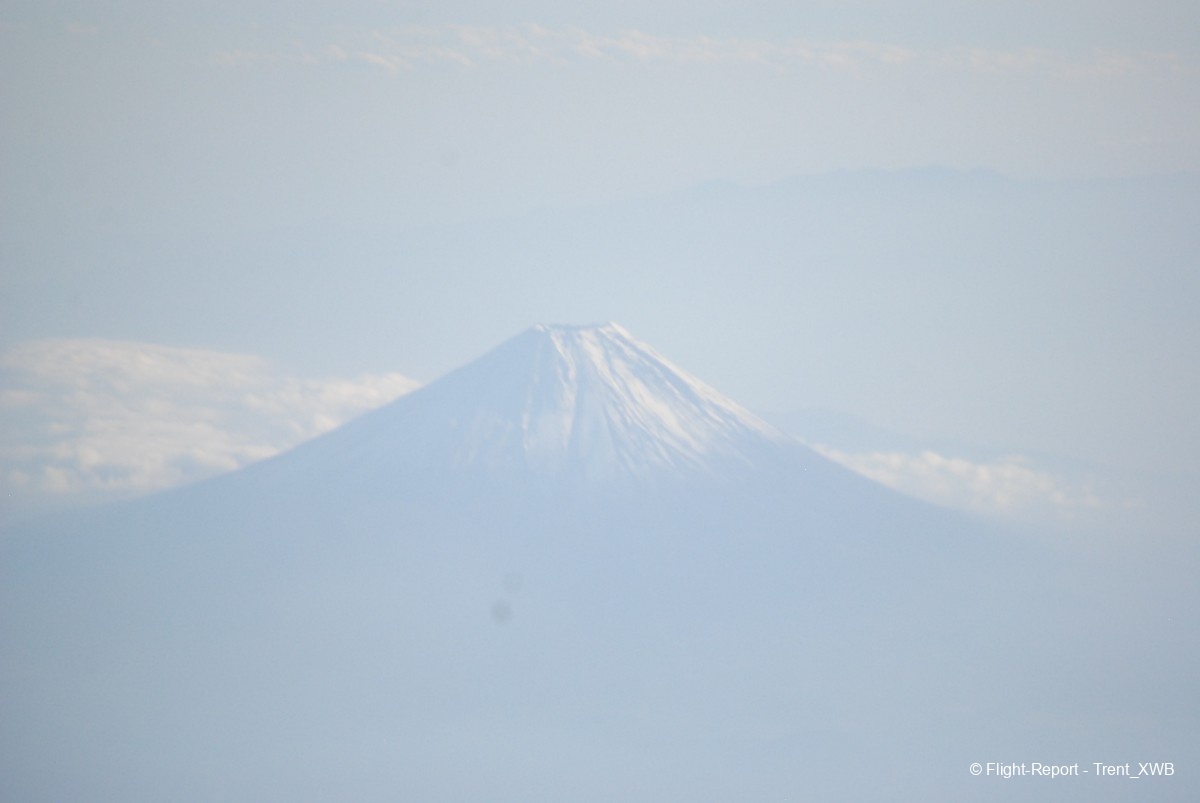
After Fuji the meal service commences. The meal consists of meat with rice and vegetables and snack box, containing hot sauce for the meat, dessert, waffle and water. Very good for a flight of this length!
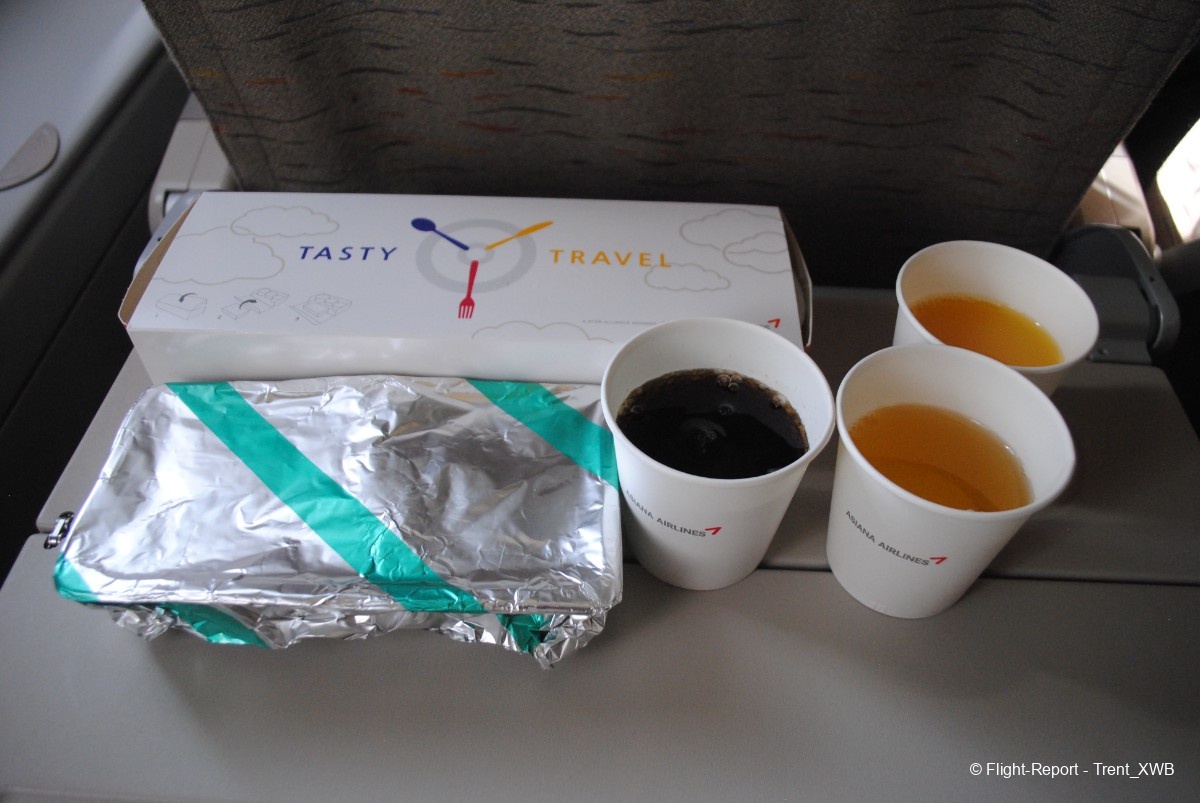
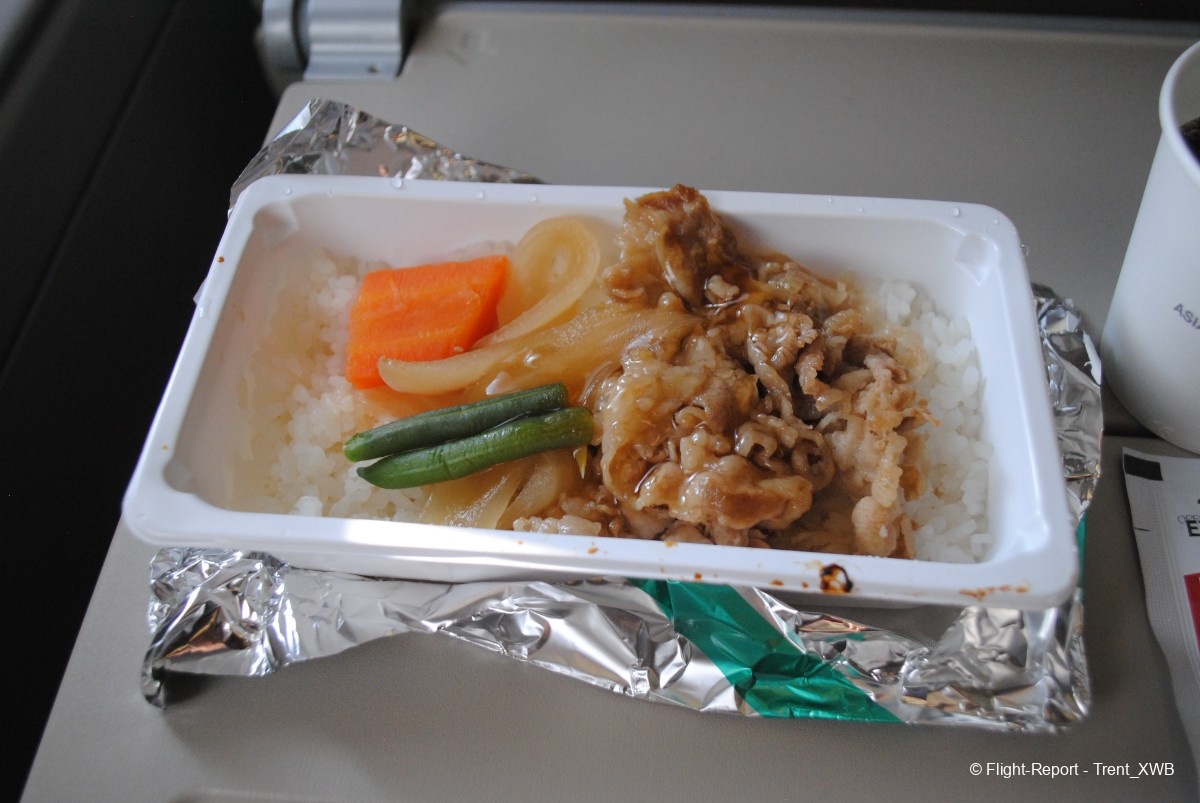
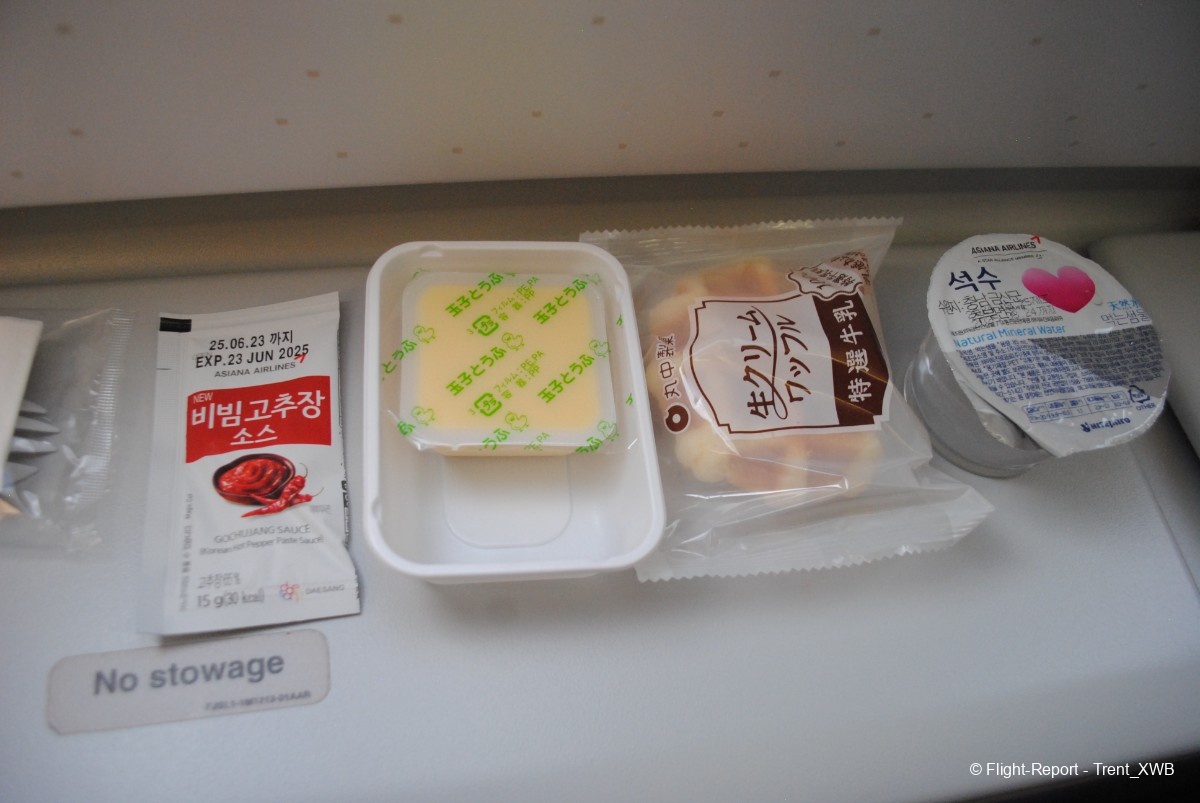
Then we cross Japanese Andes (this photo is also from 4 December when the sky was clear)…
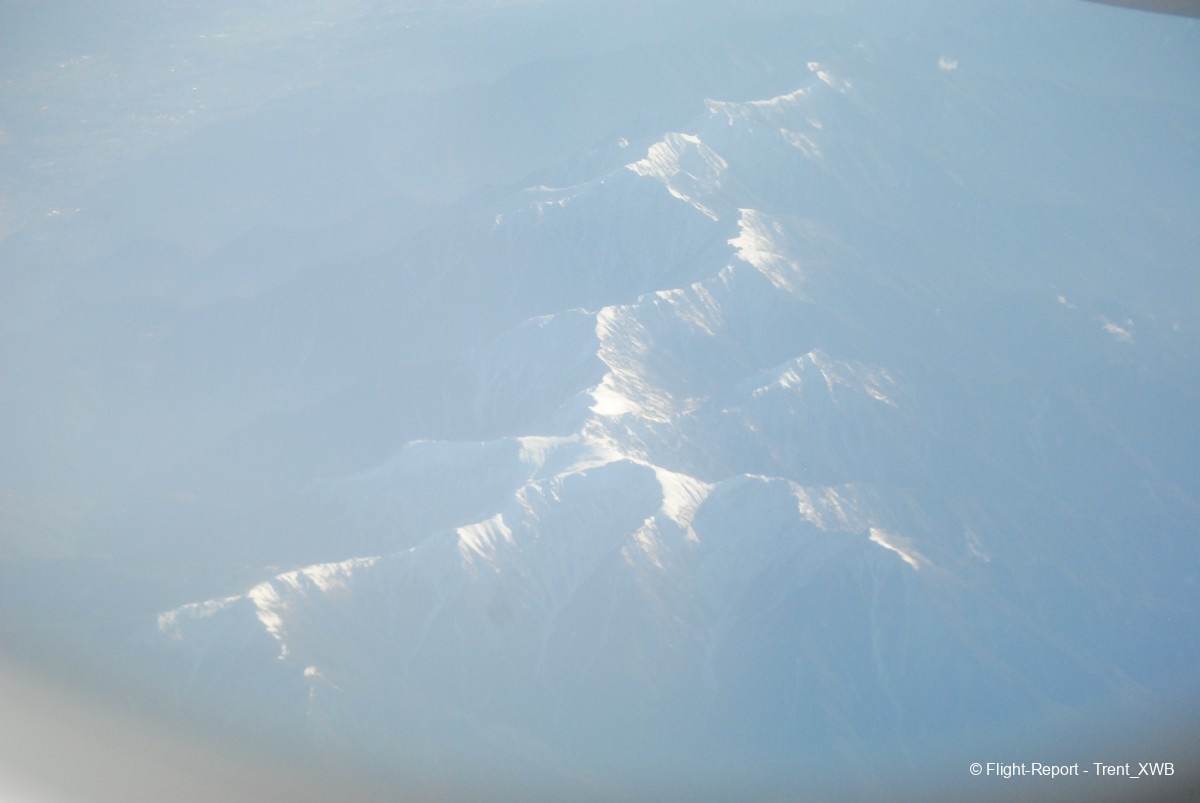
…and leaving Honshu island.
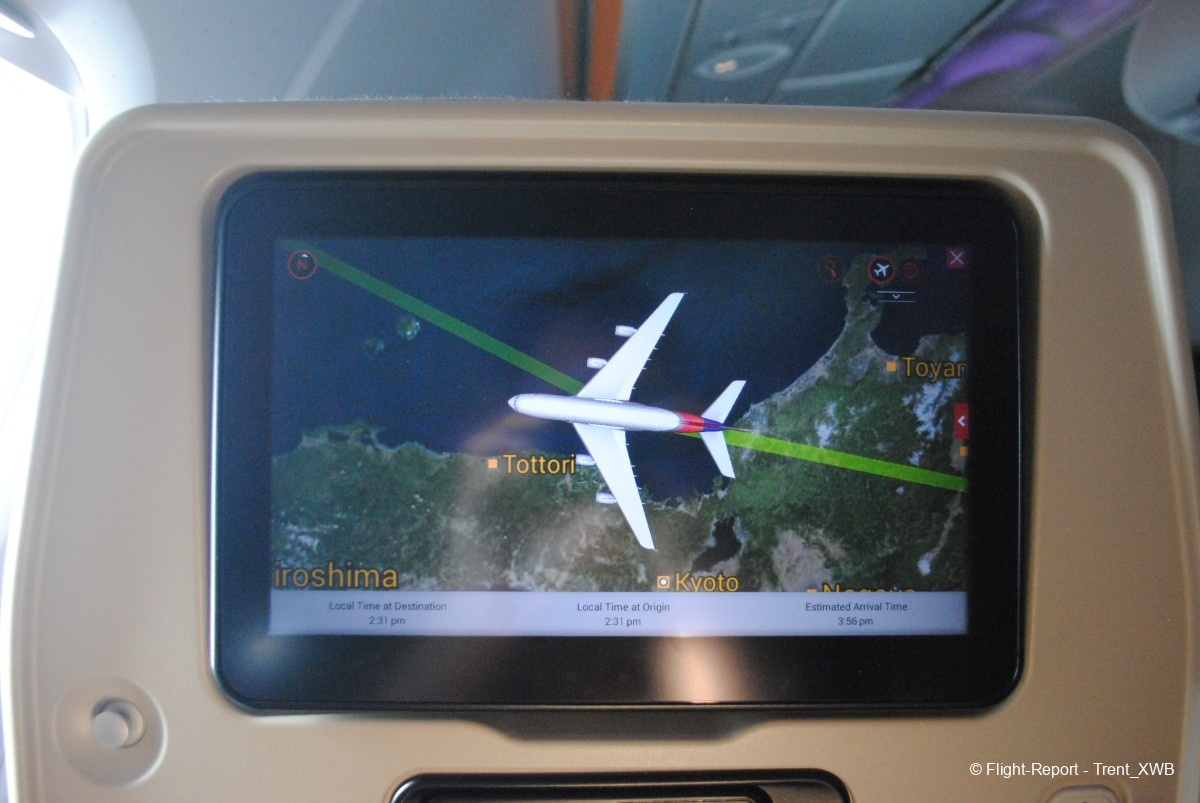
During the crossing of Japanese sea it's time to stretch the legs. General view of the upper-deck economy inflight:
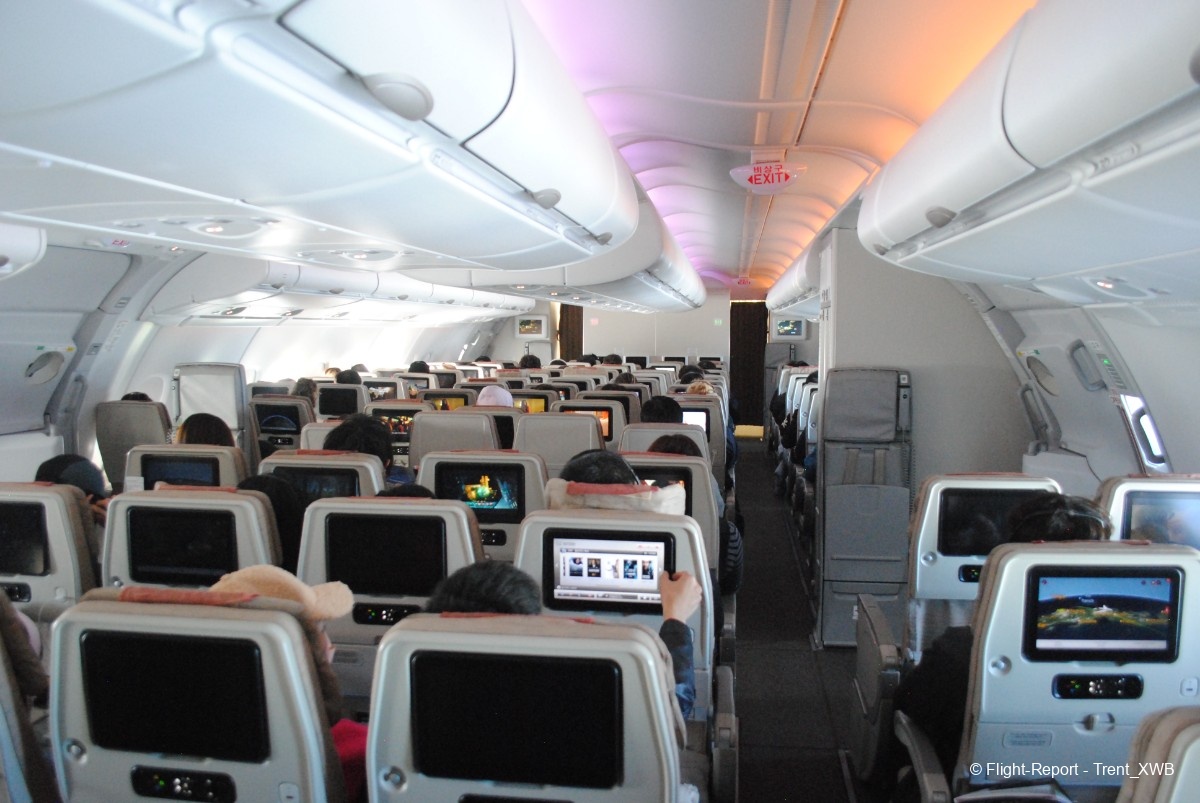
The overhead panel is very high above, giving the feeling of spaciousness. Though, there are no airvents.
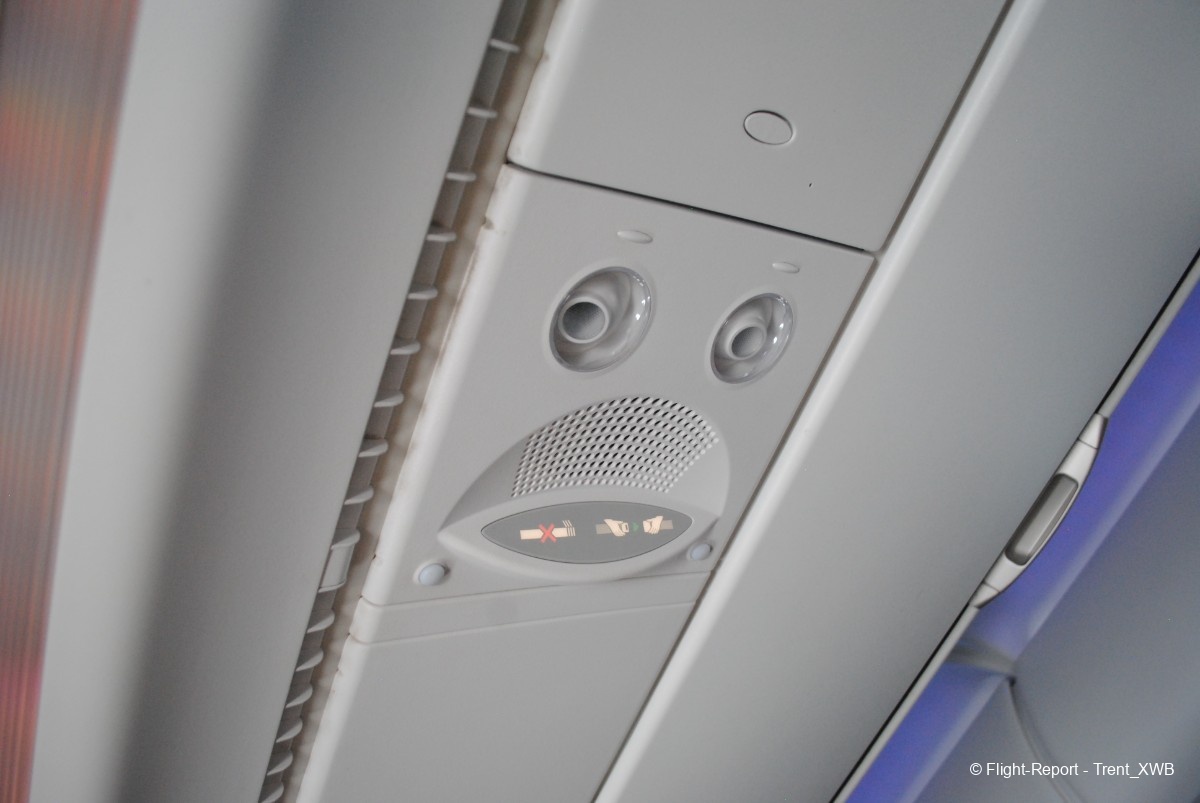
As a bonus, I'll show some photos of the empty first class cabin inflight, taken on the previous flight on HL7640 on 4 December 2024:
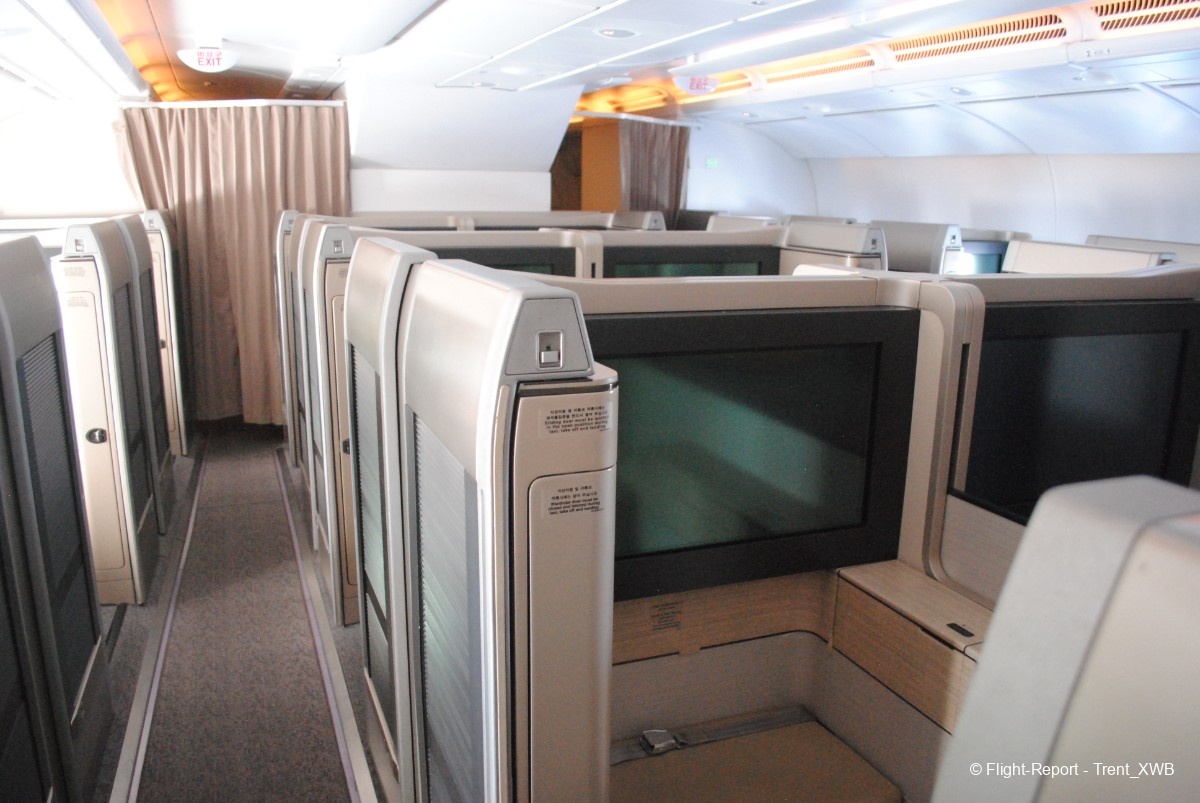
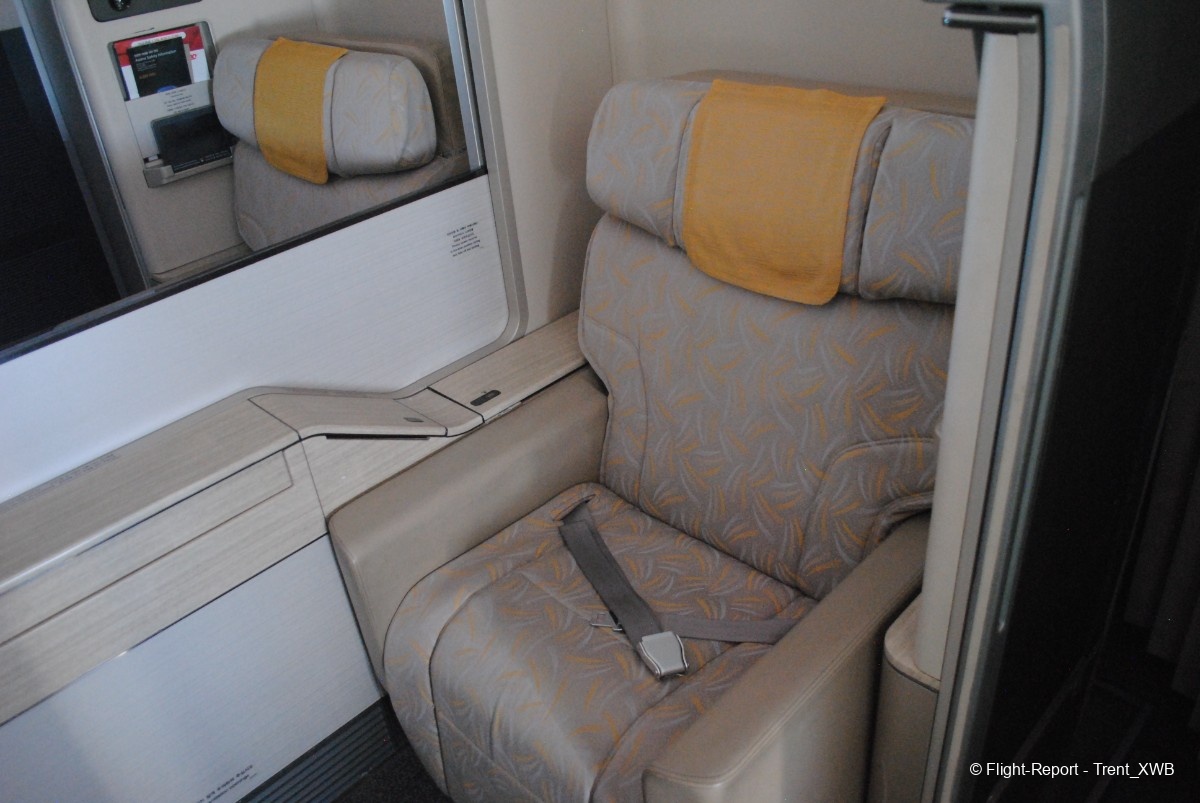
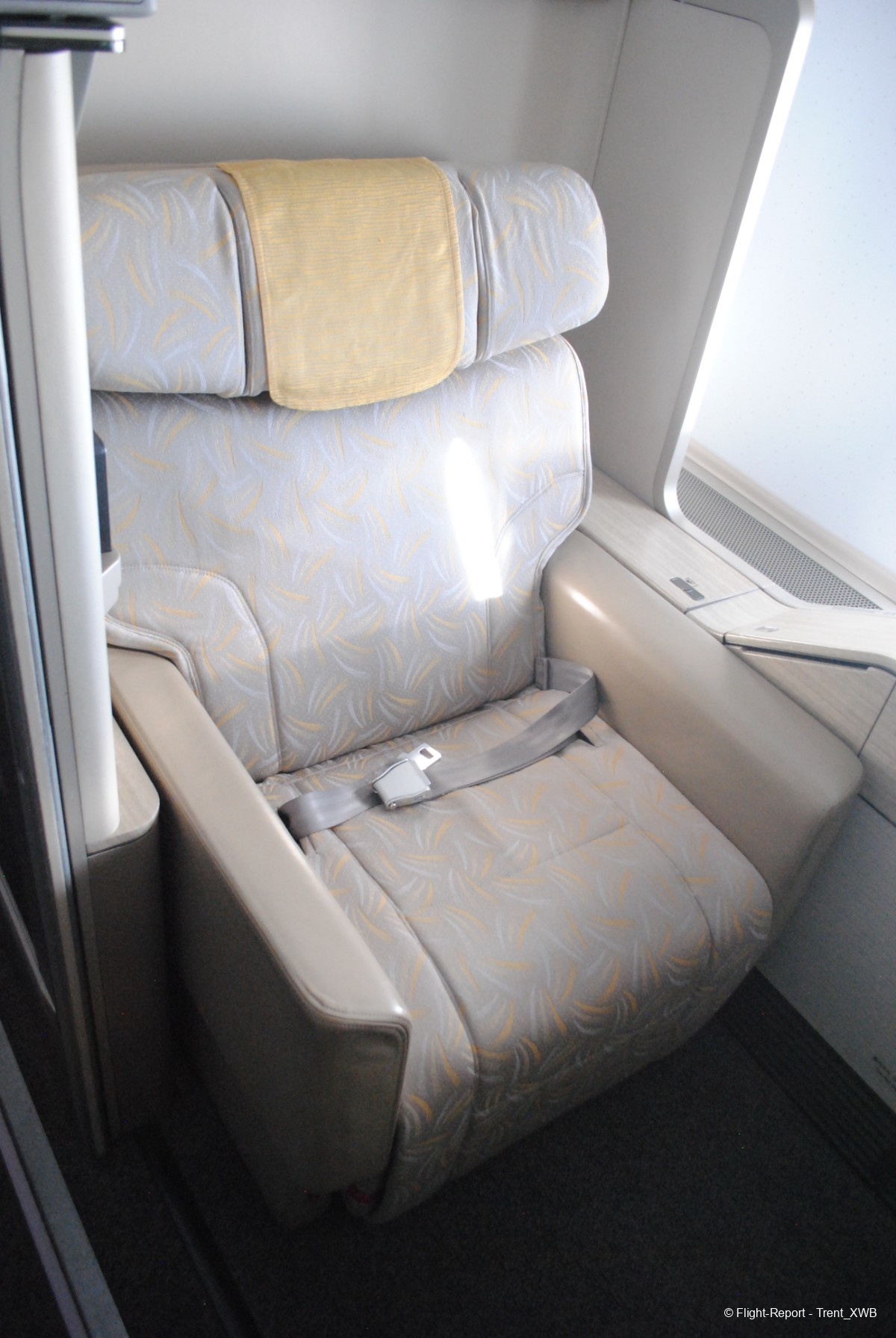
Meanwhile we are already descending over Korean peninsula.
Enter text here…
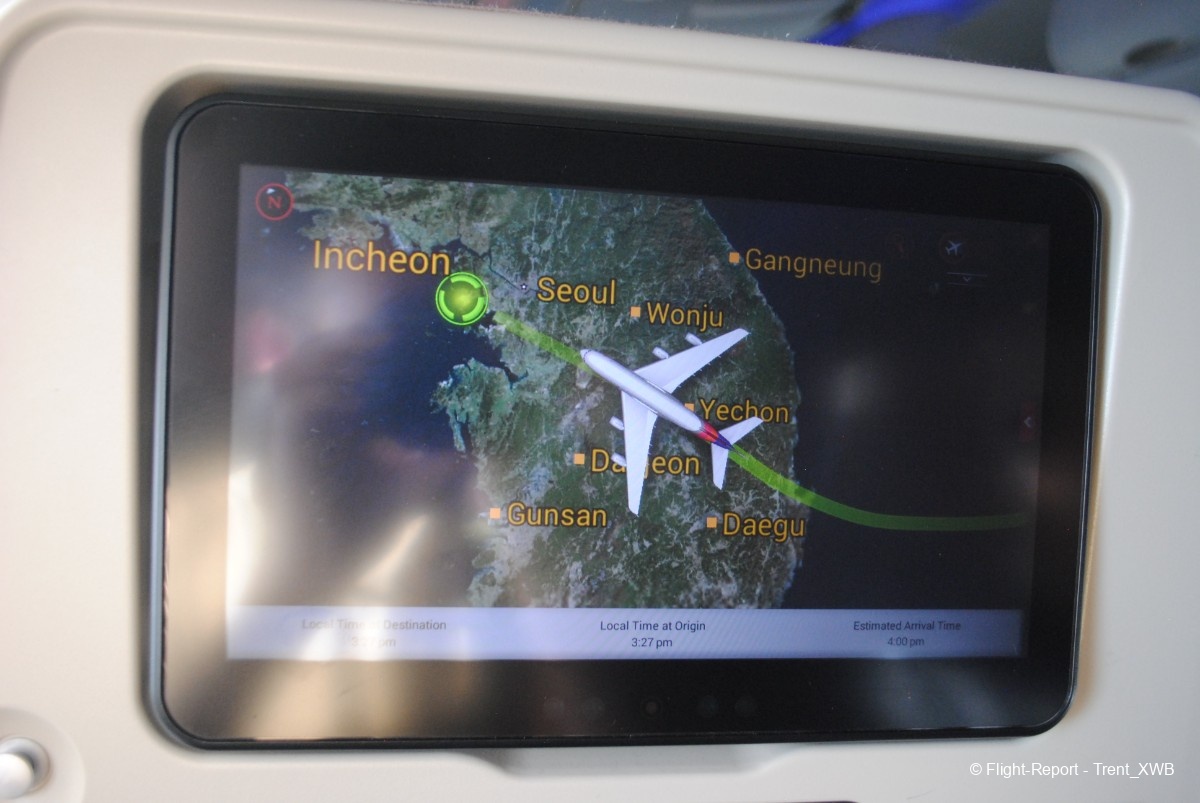
A "river of gold", lit by already evening sun.

Landing in ICN and taxiing to the Terminal 1.
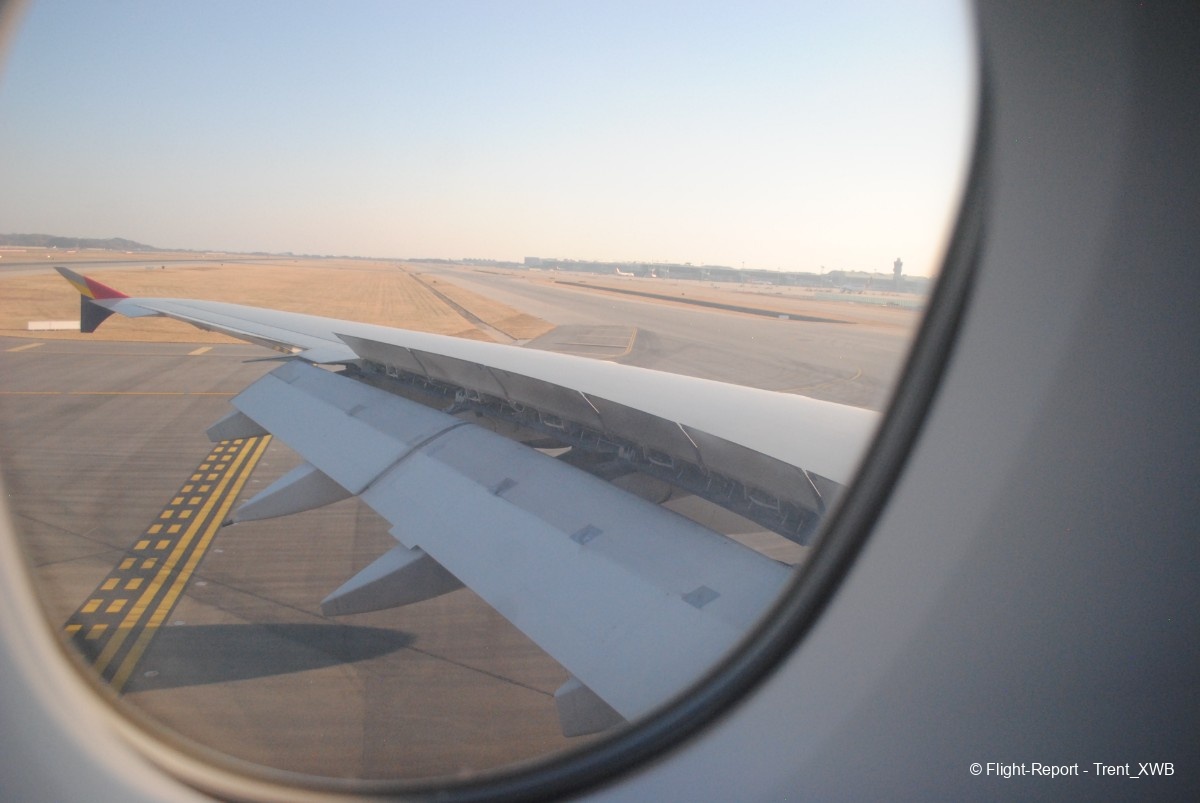
OZ B77E and A21N with Incheon bridge in sight. OZ B77Es are PW-powered and feature spacious 3-3-3 economy. But their fate is sealed (as well as the fate of A380s): KE will phase them out during the integration process (worth noting that KE already phased out their own 77Es).
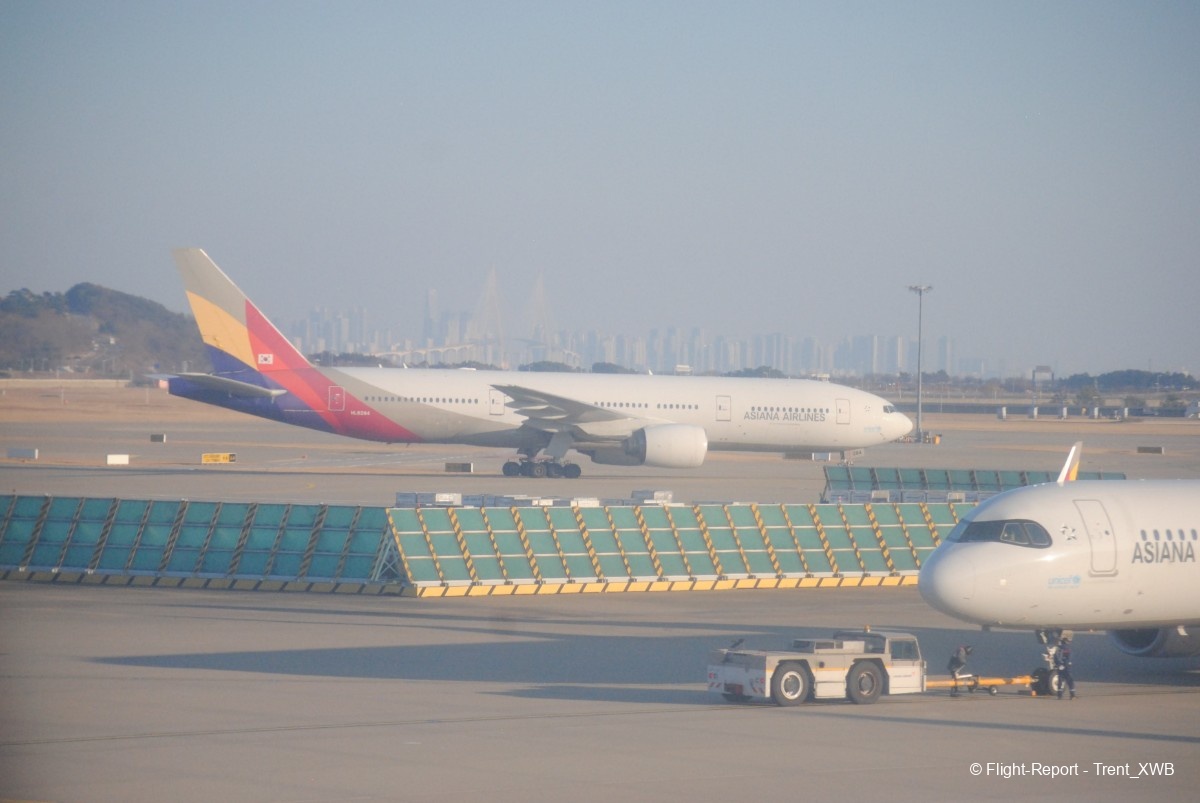
After The Flight: The Upper-Deck Economy
View of the upper-deck economy cabin after the flight. Please note that exit row seats (70AB and HK) don't have windows.
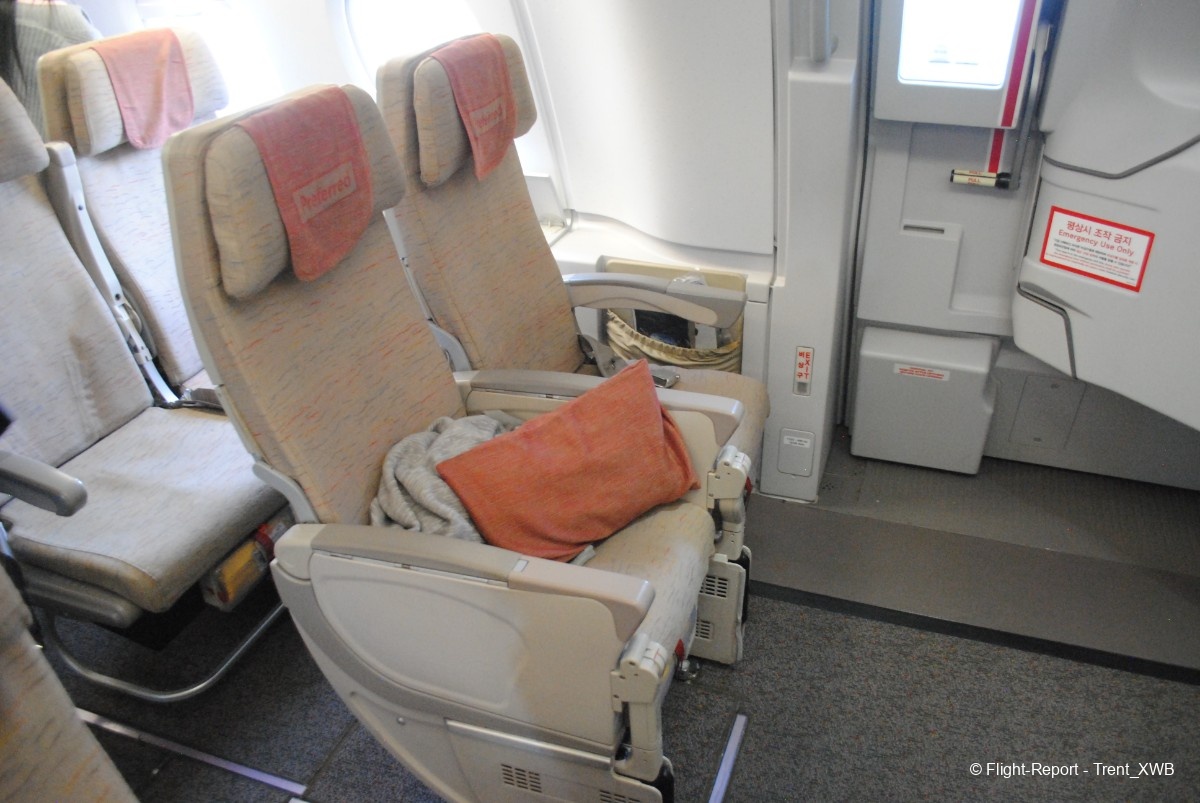
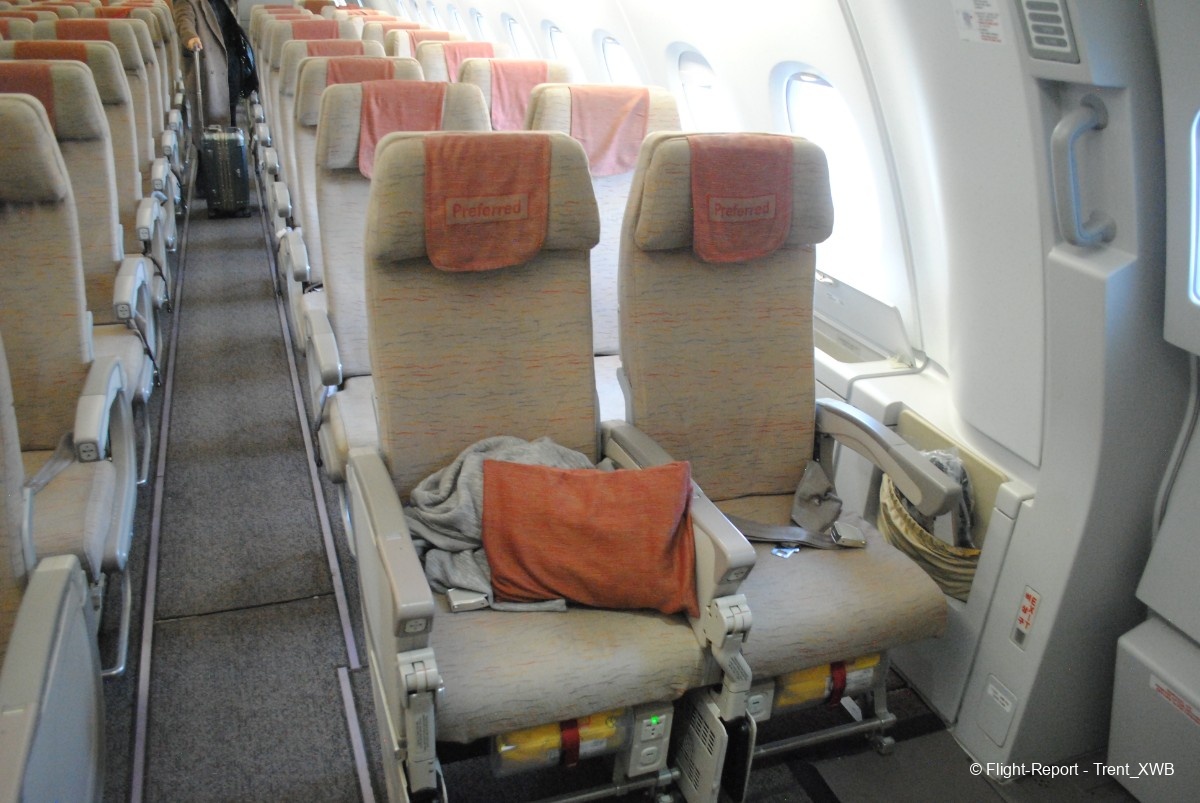
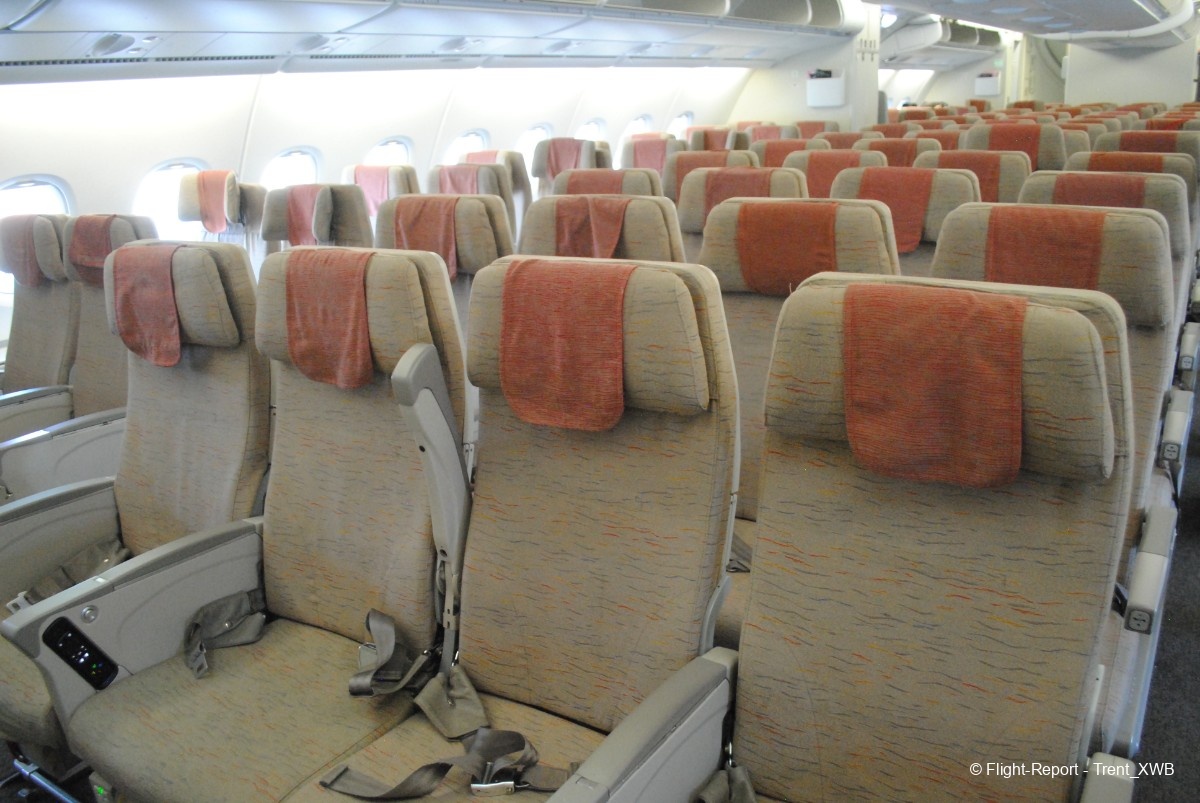
After The Flight: The Second Business Cabin
Views of the second (larger) business cabin (note again, how spacious are overhead bins here)…
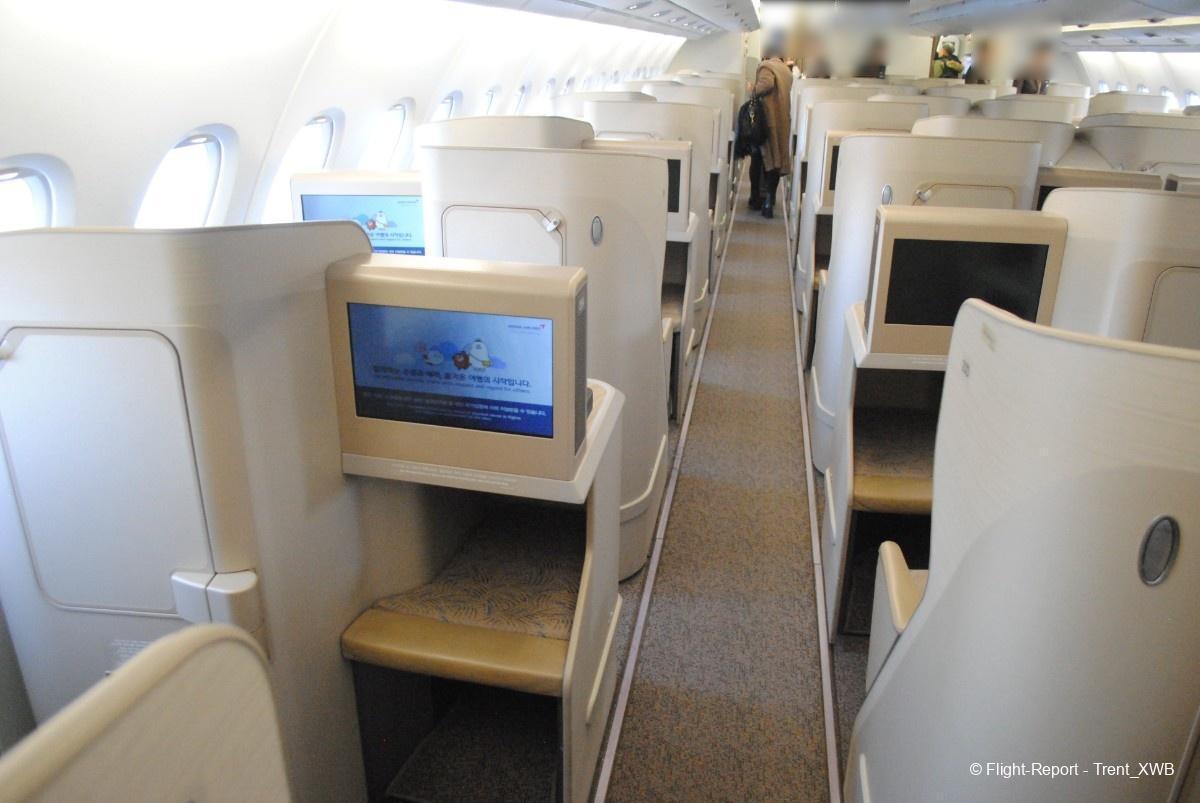
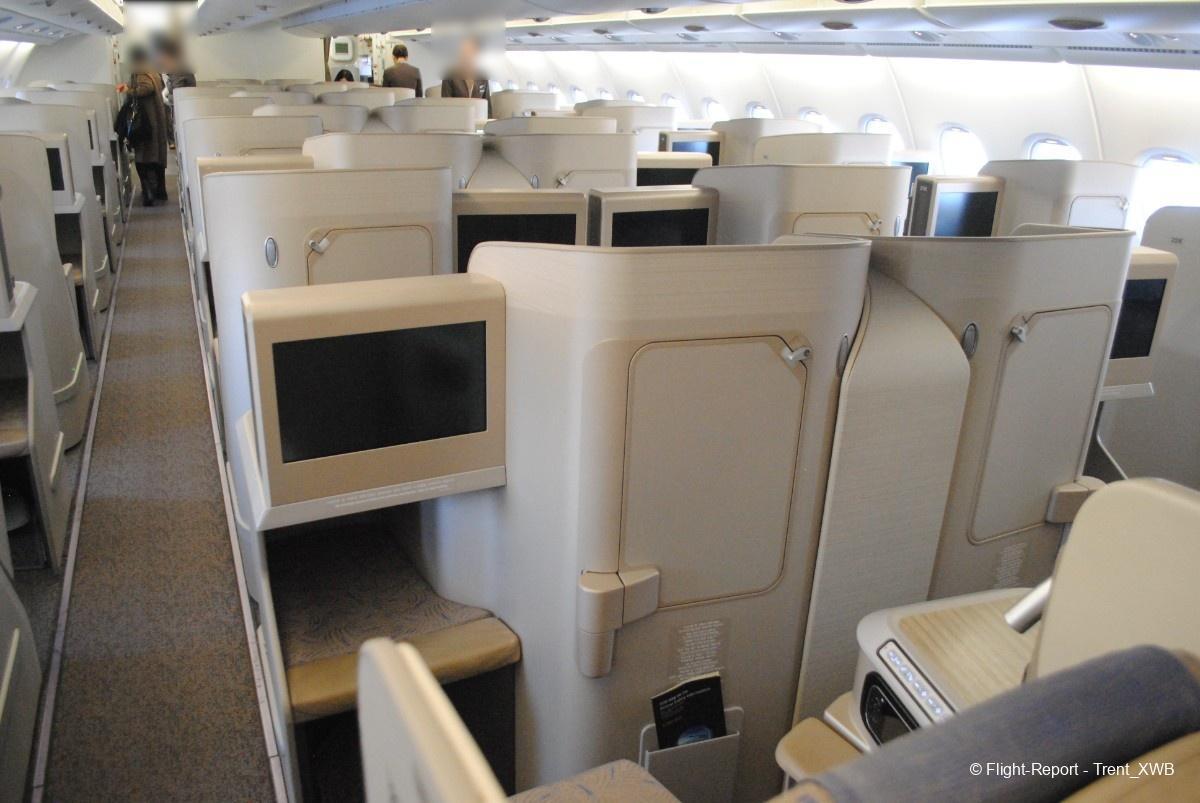
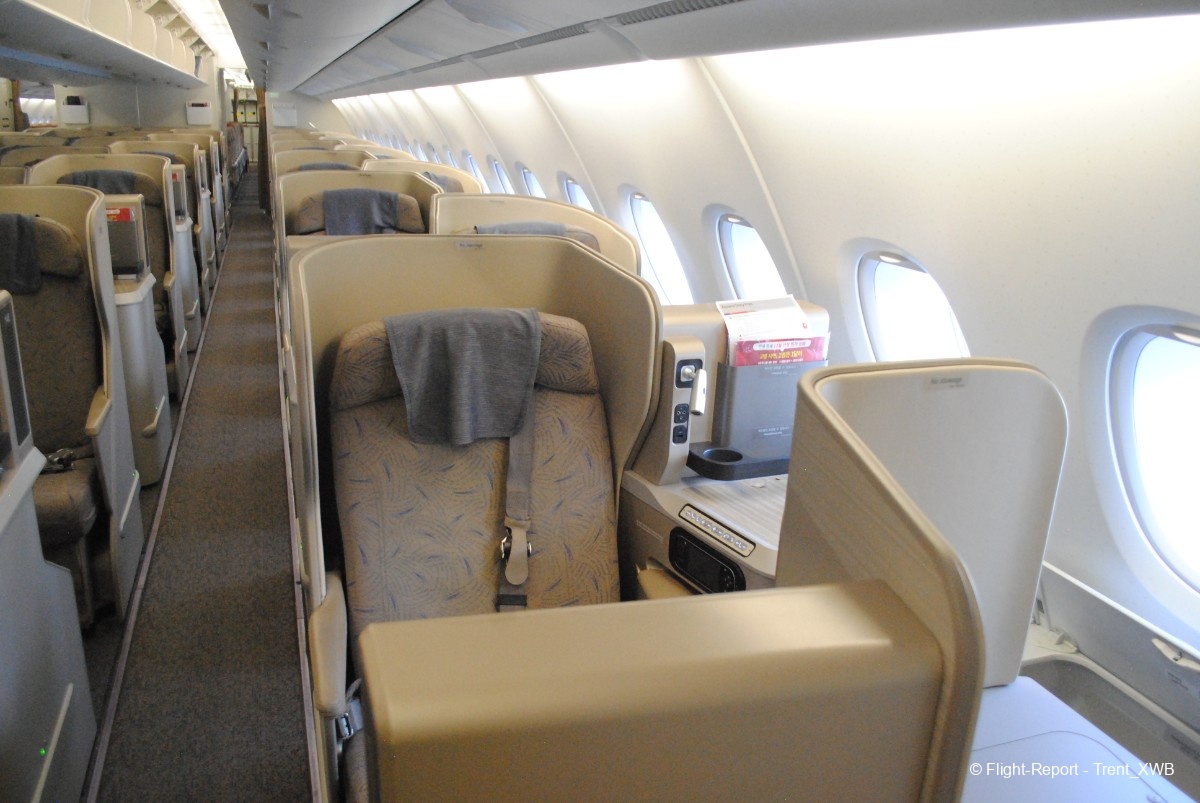
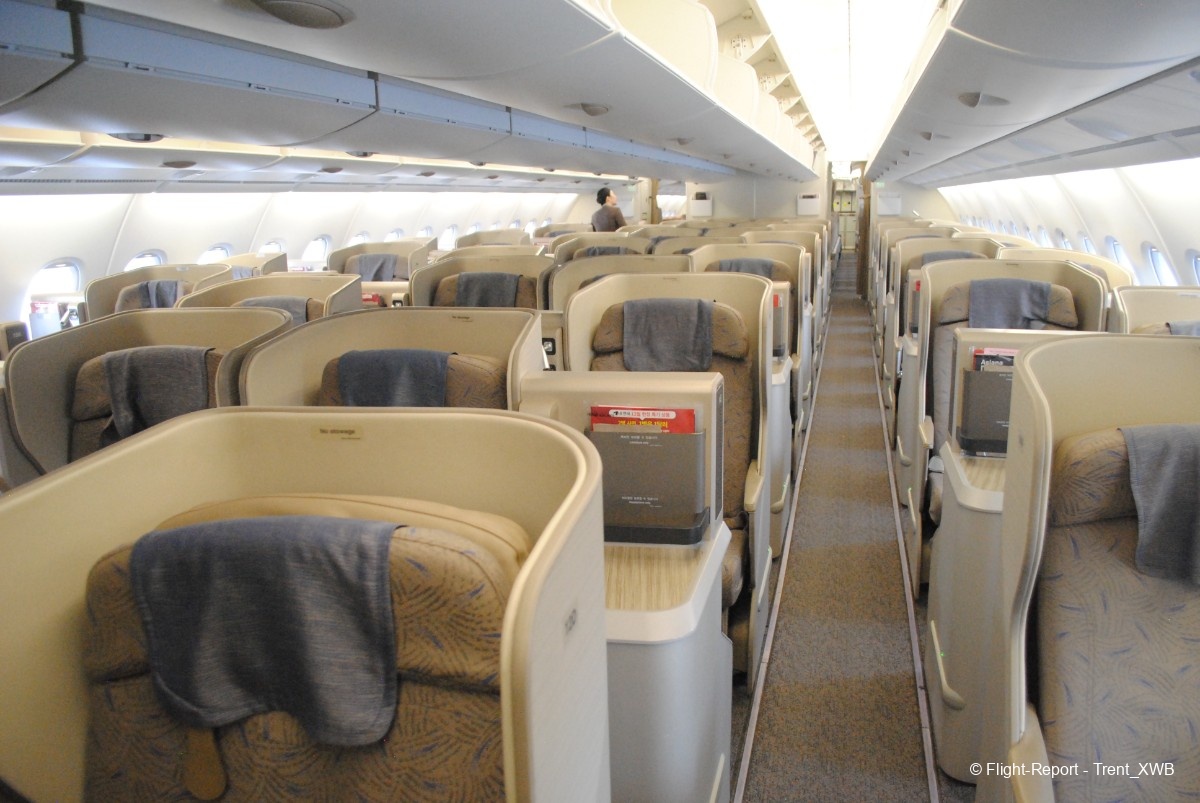
After The Flight: The Front Business Cabin
Views of the front (smaller) business cabin
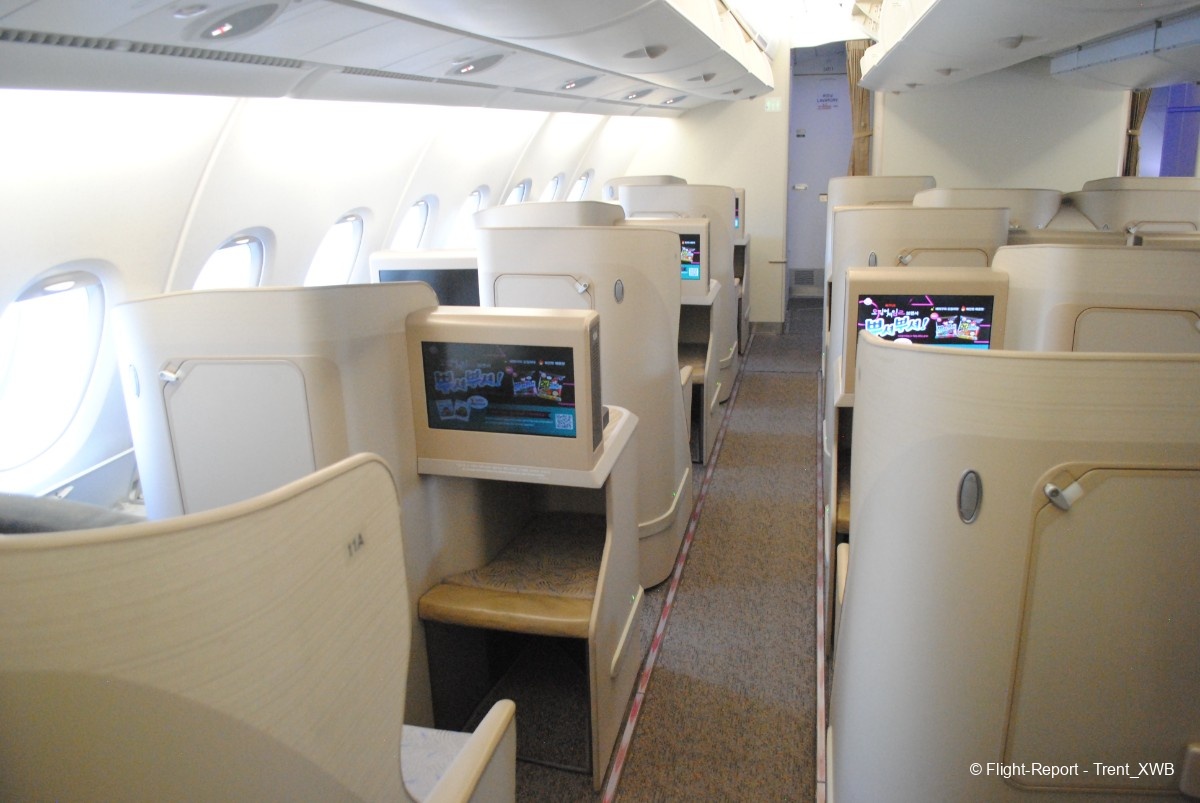
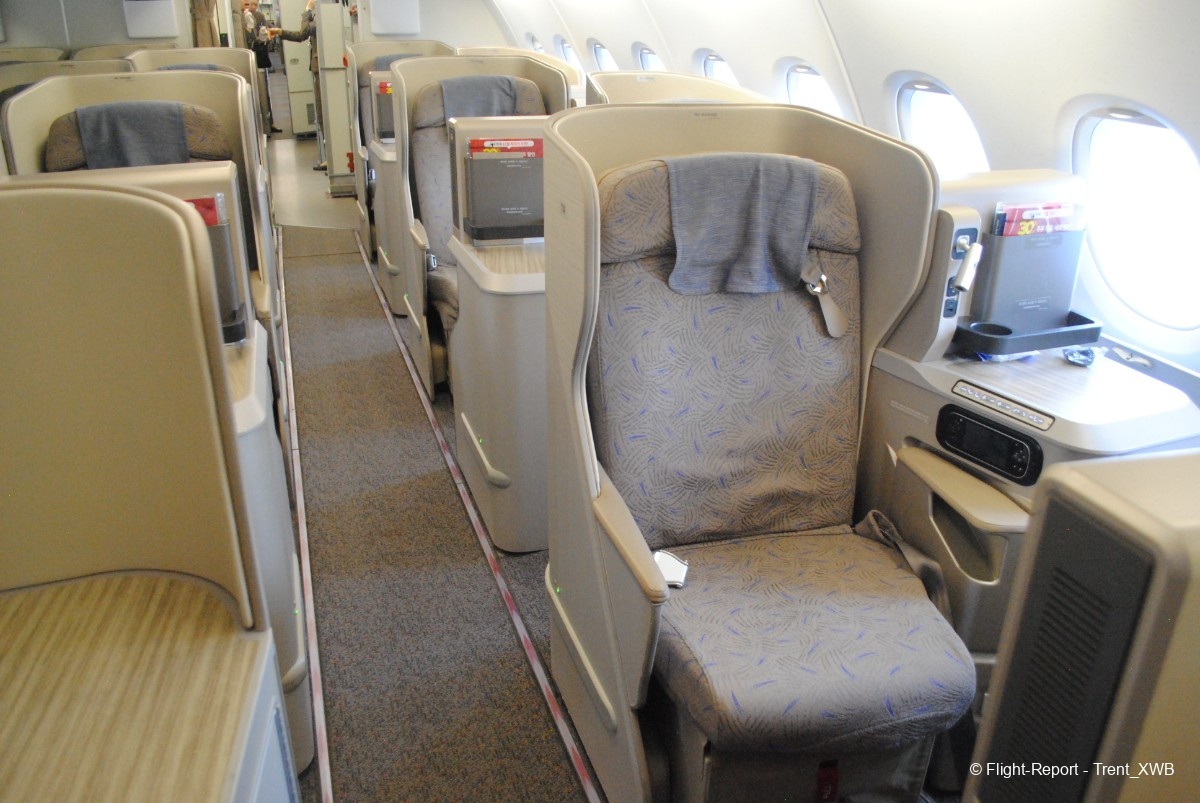
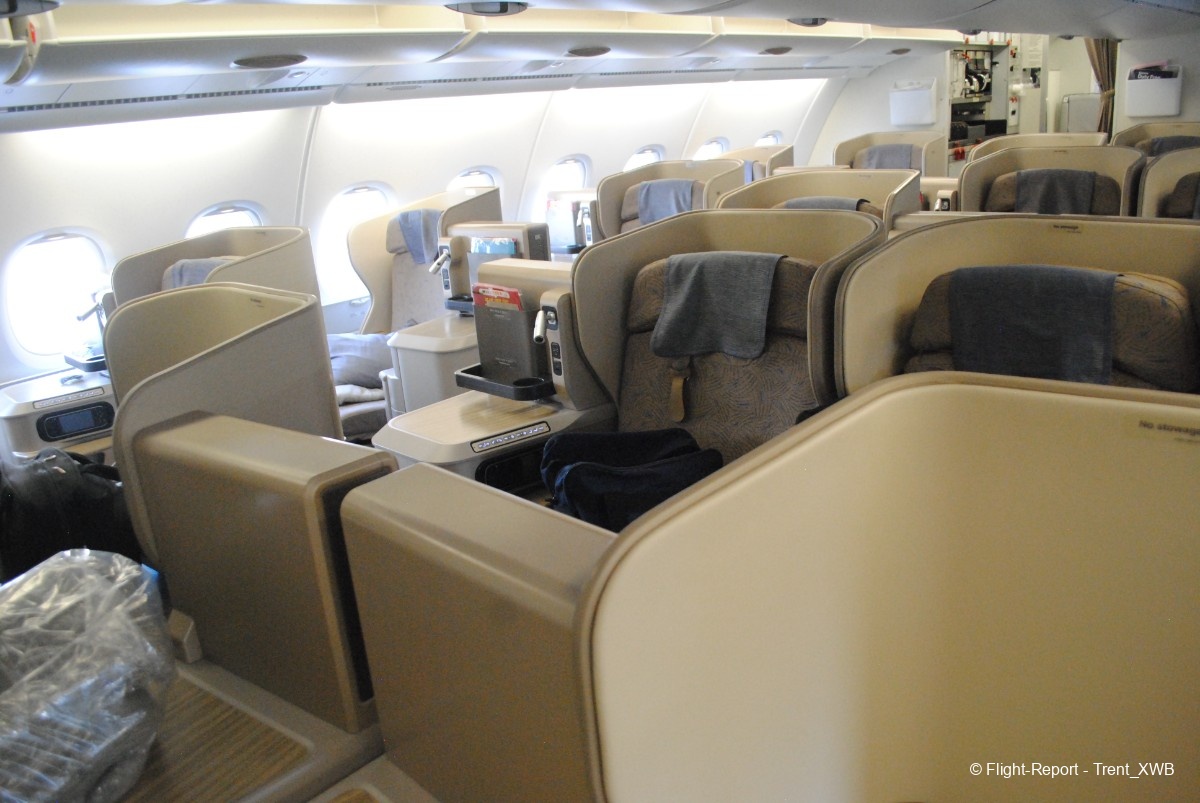
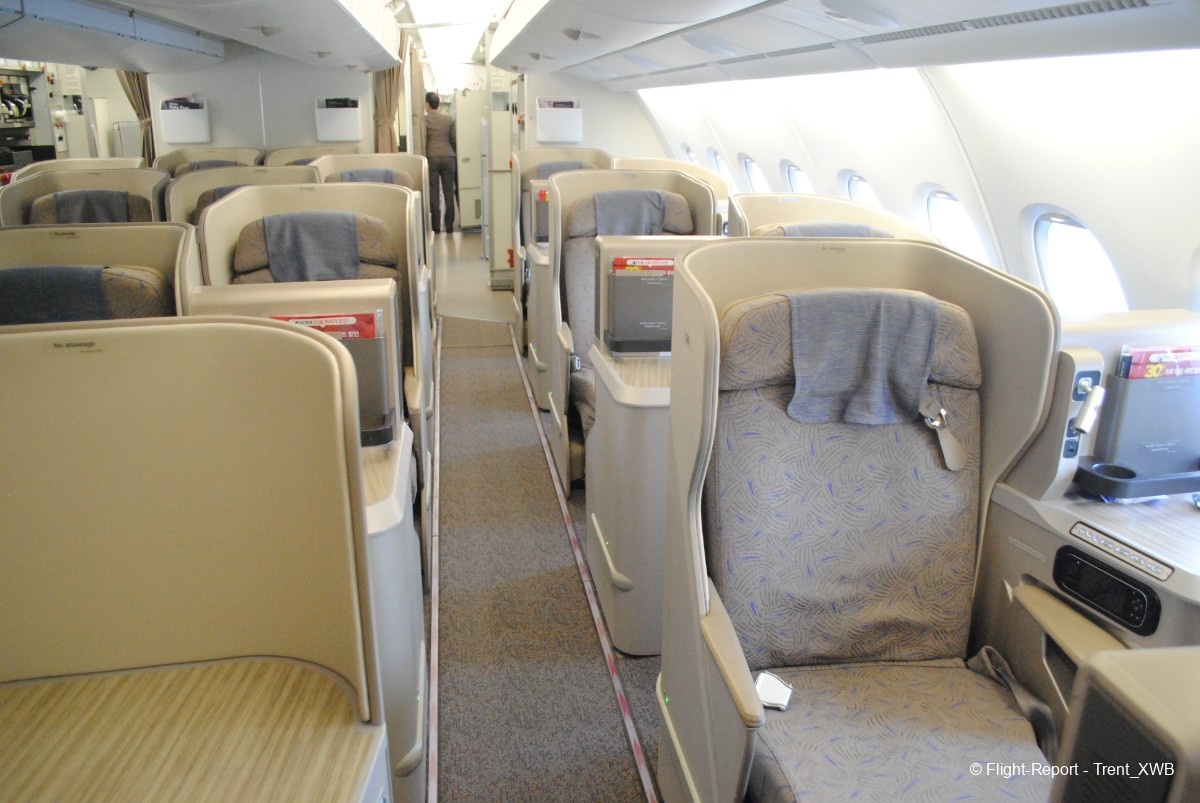
After The Flight: The Front Stair
Time to go downstairs. The front stair is lit with blue.
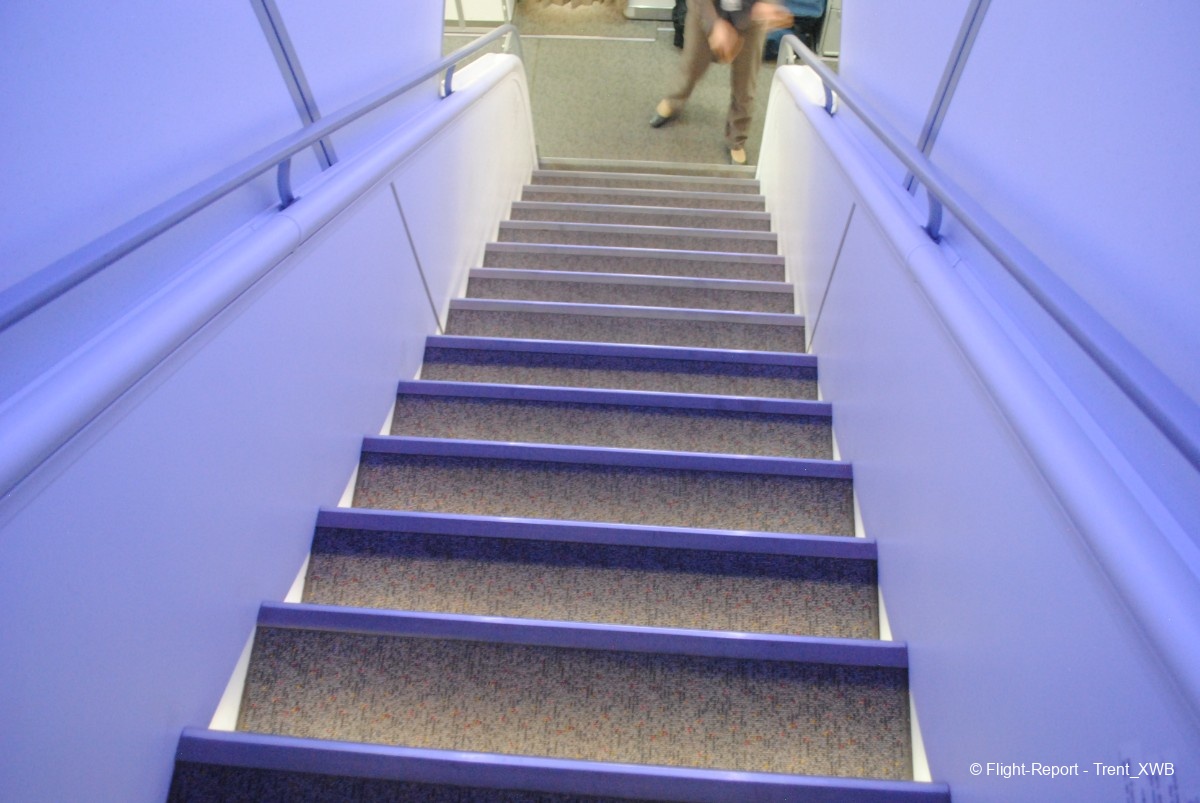
A last glance at the first class cabin from the stair side…
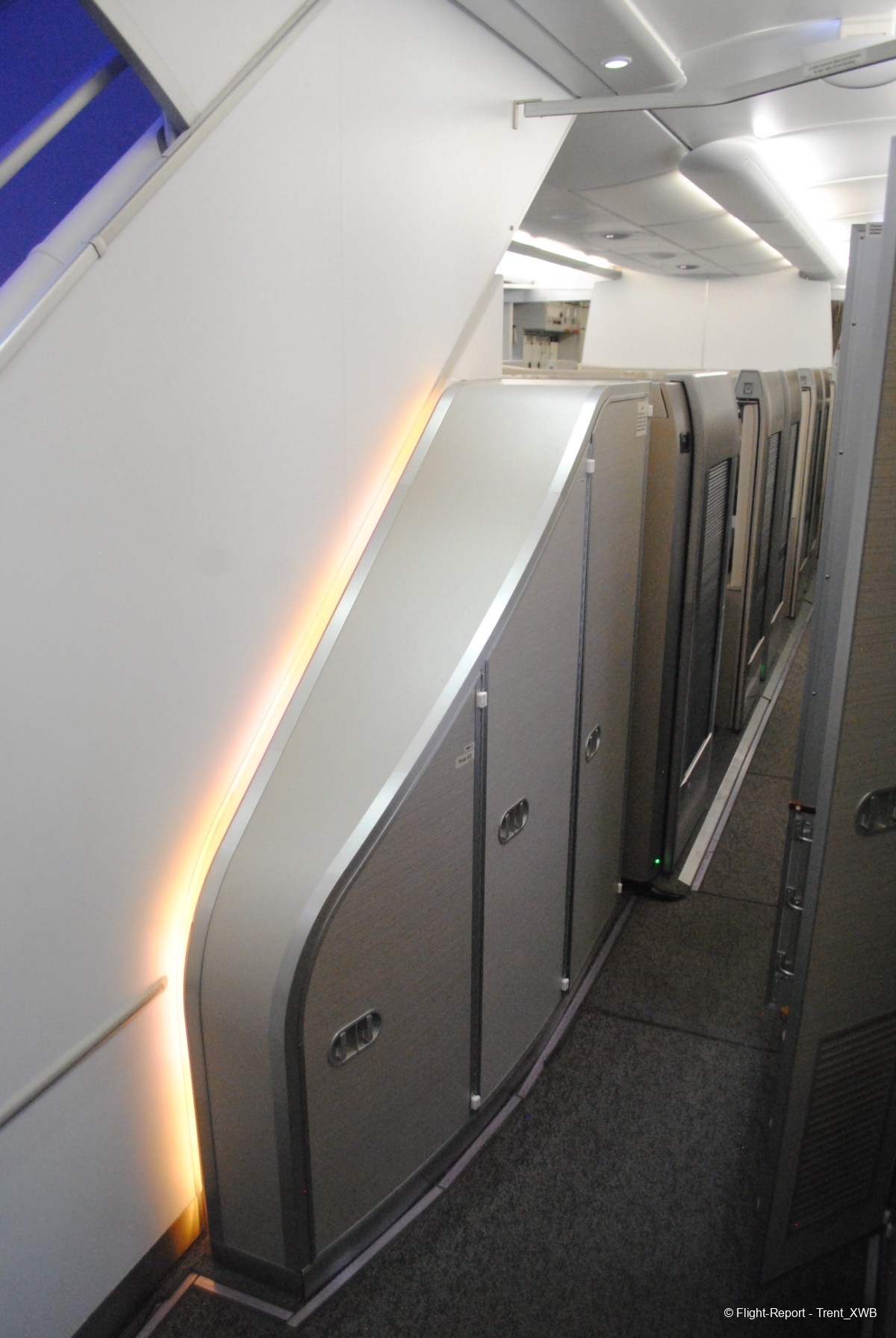
…and at the lower part of the front stair.
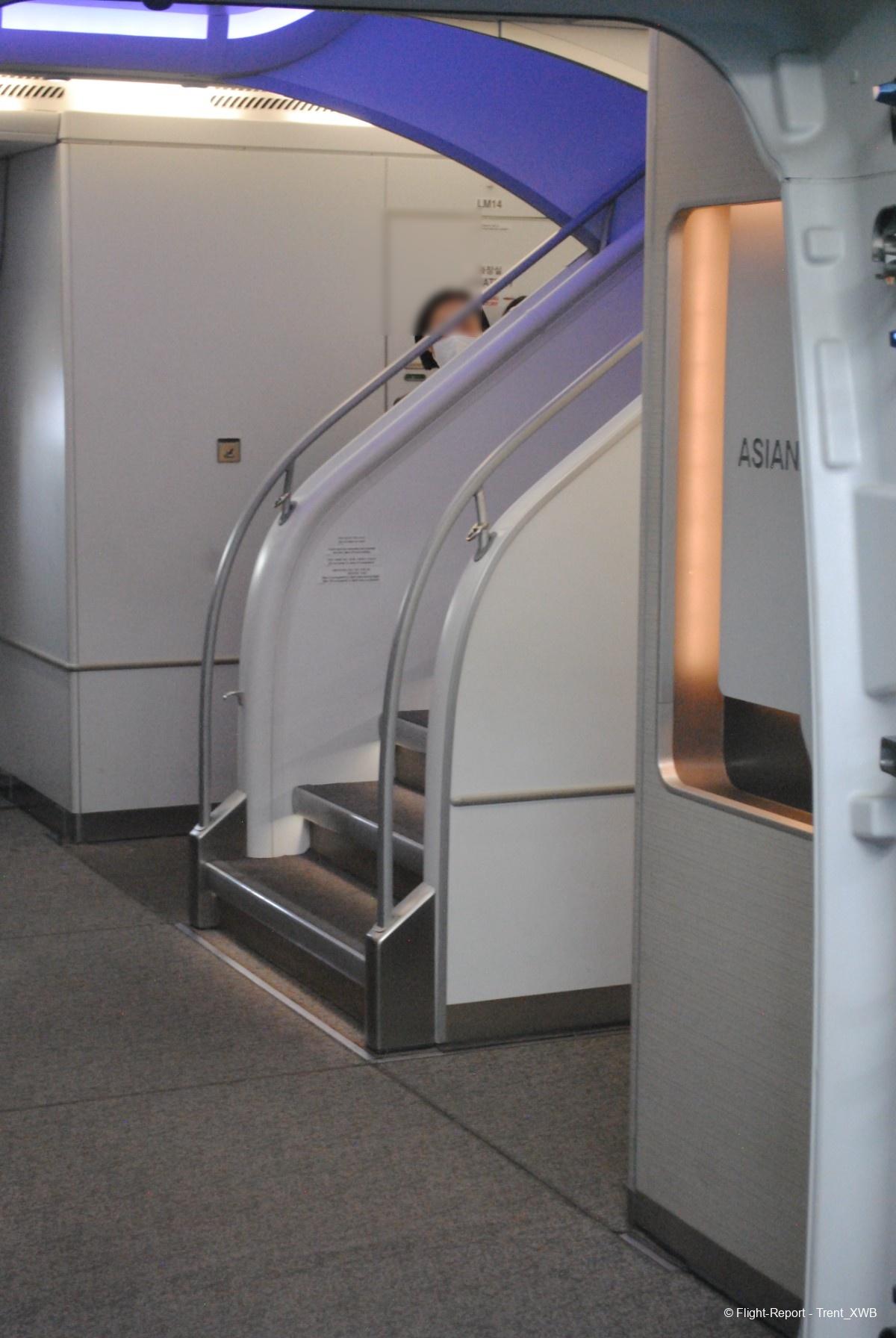
M1L door.
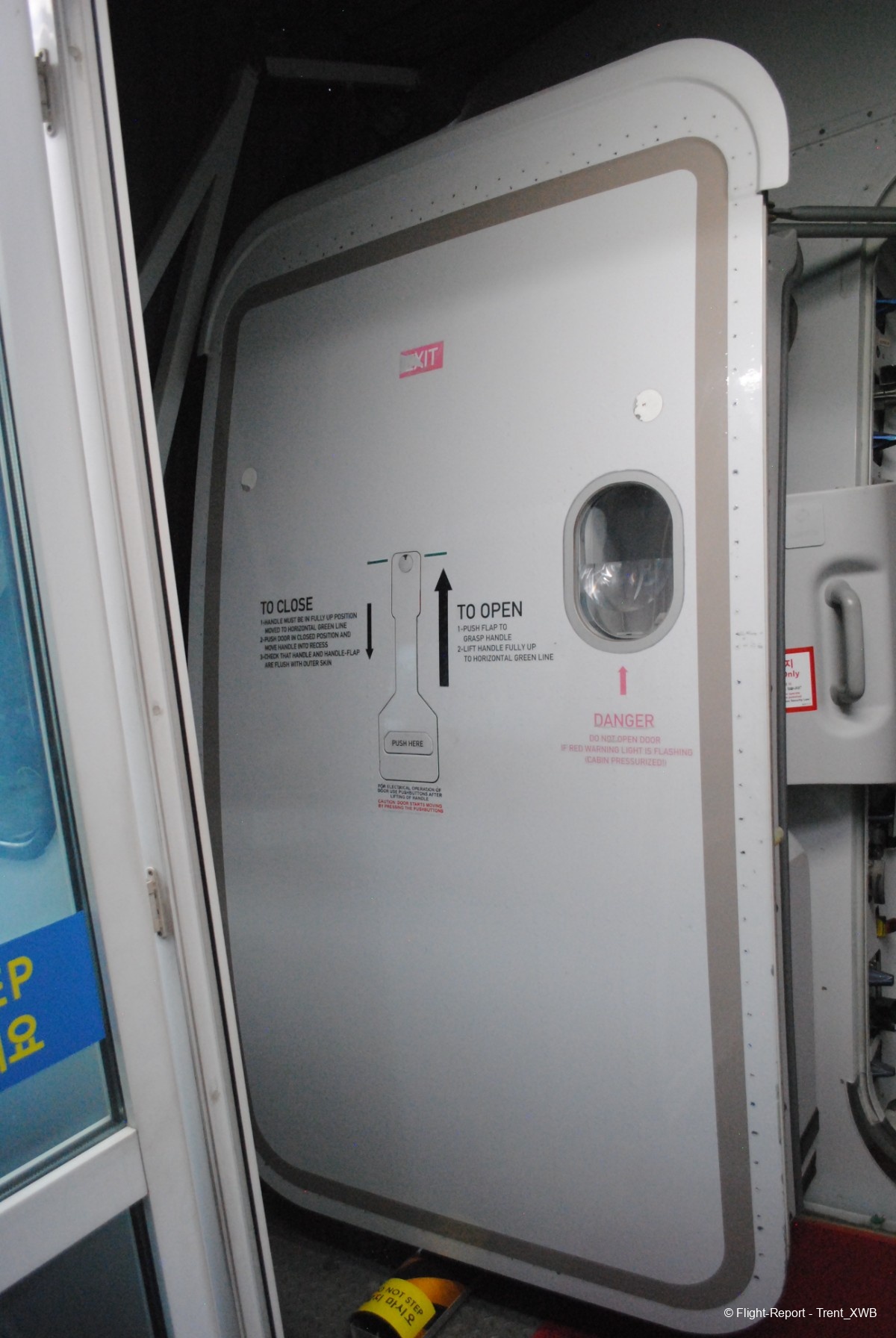
The Aircraft After The Flight
As a bonus, I'll show how A380 fuselage and port-side engines look when disembarking from upper deck via U1L door (photos taken after my previous OZ101 flight on 4 December)
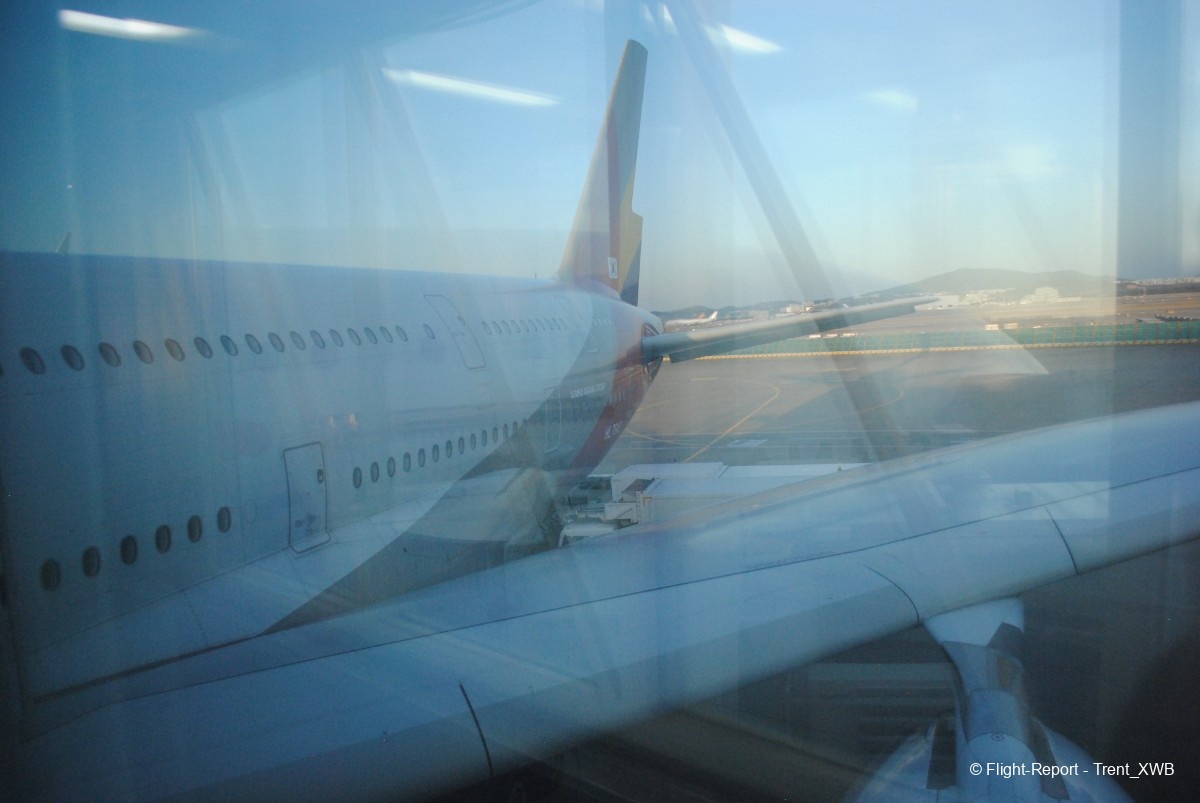
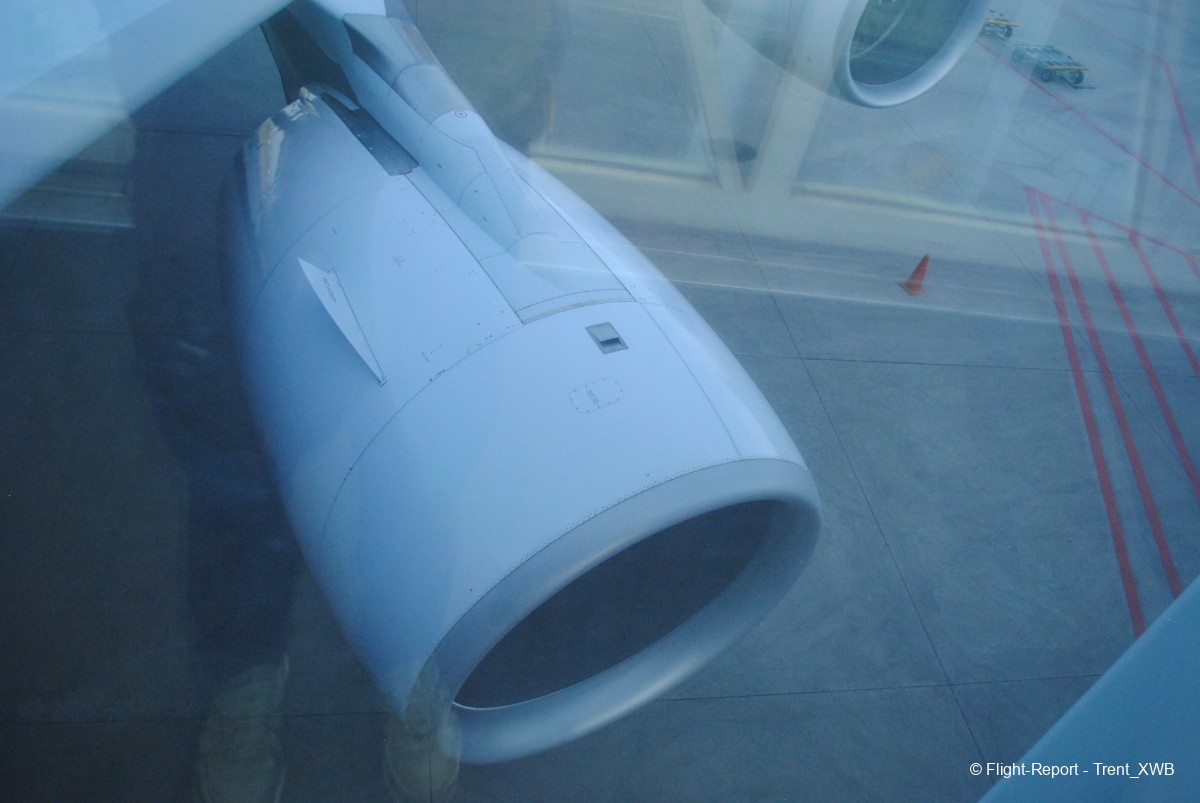
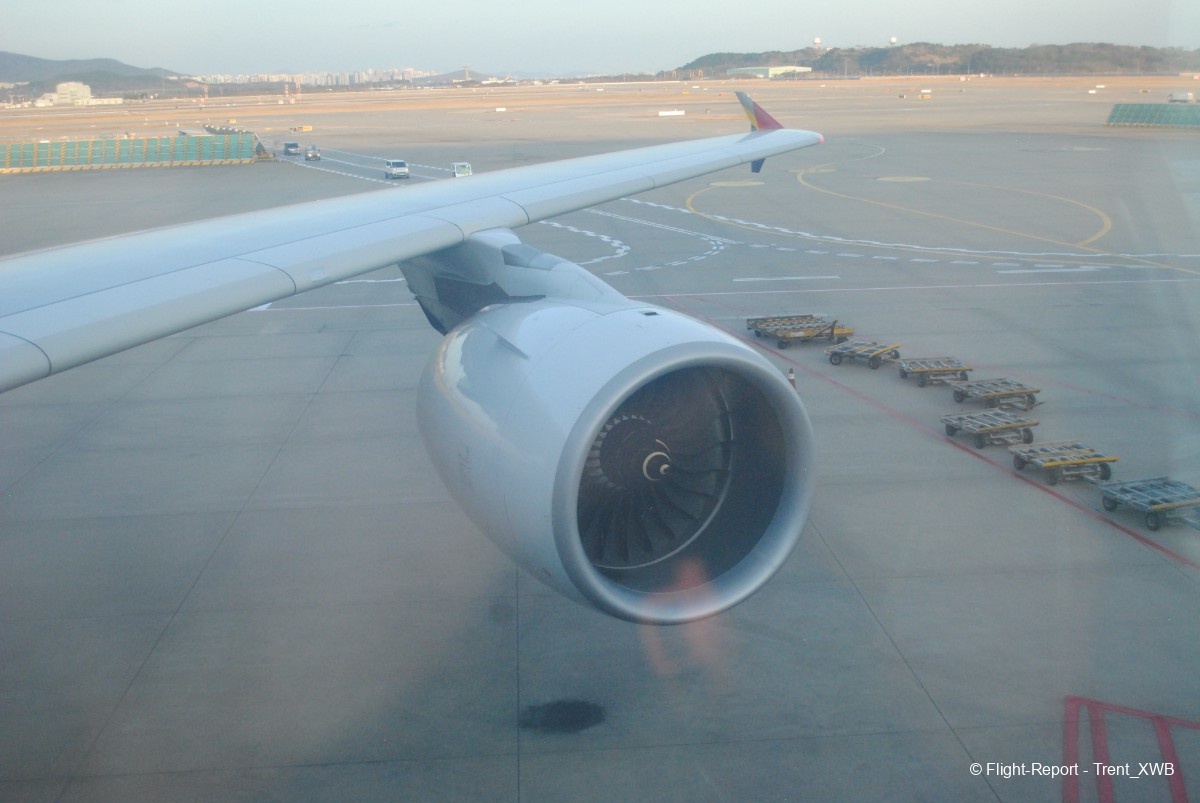
View of sunlit starboard RR Trent 900 engines and the nose of the whalejet.
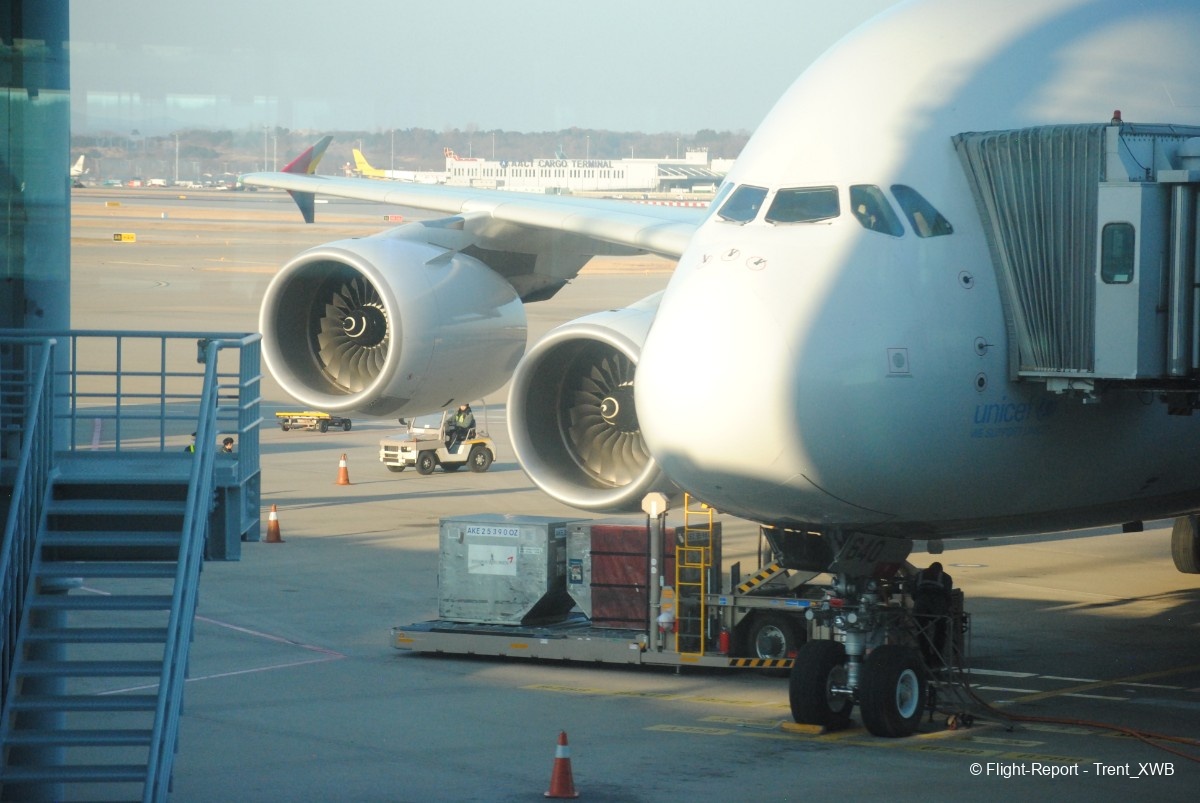
And now it's time to say goodbye to HL7640.
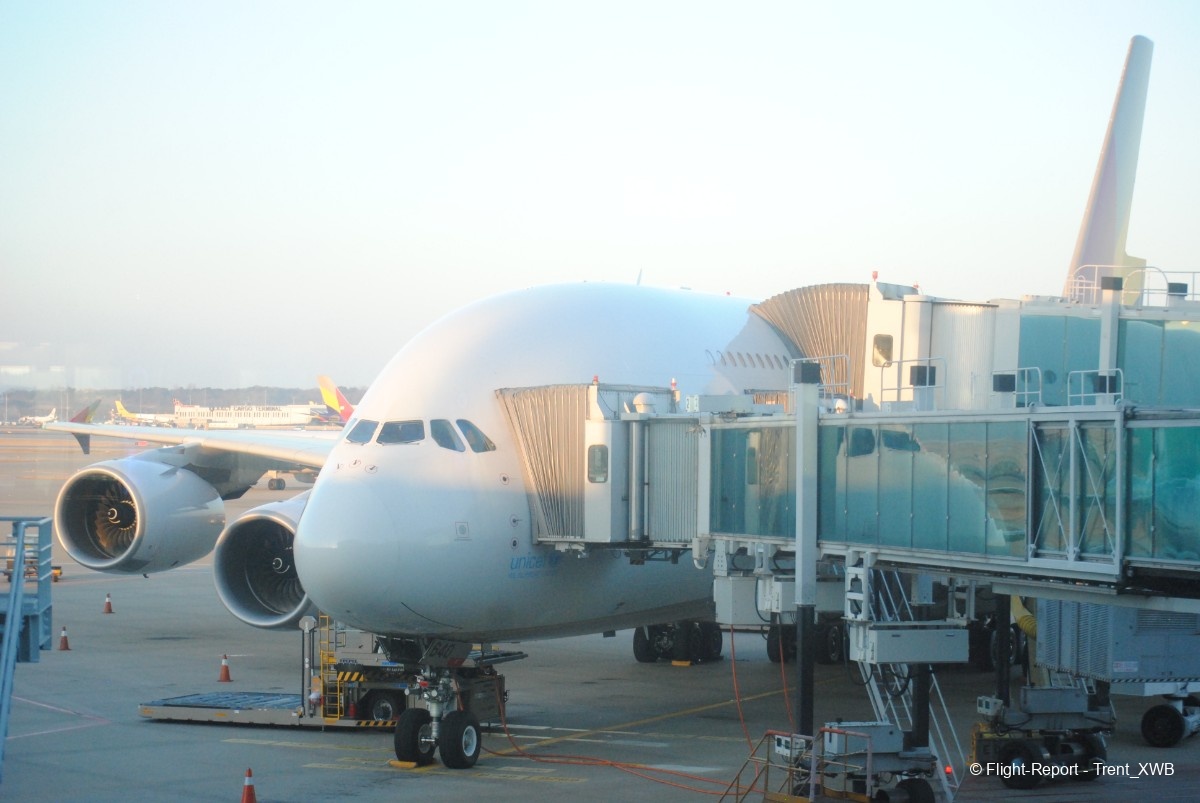
Planespotting from ICN T1
Here I'll show some interesting birds spotted from T1.
Mongolian cargo B752F
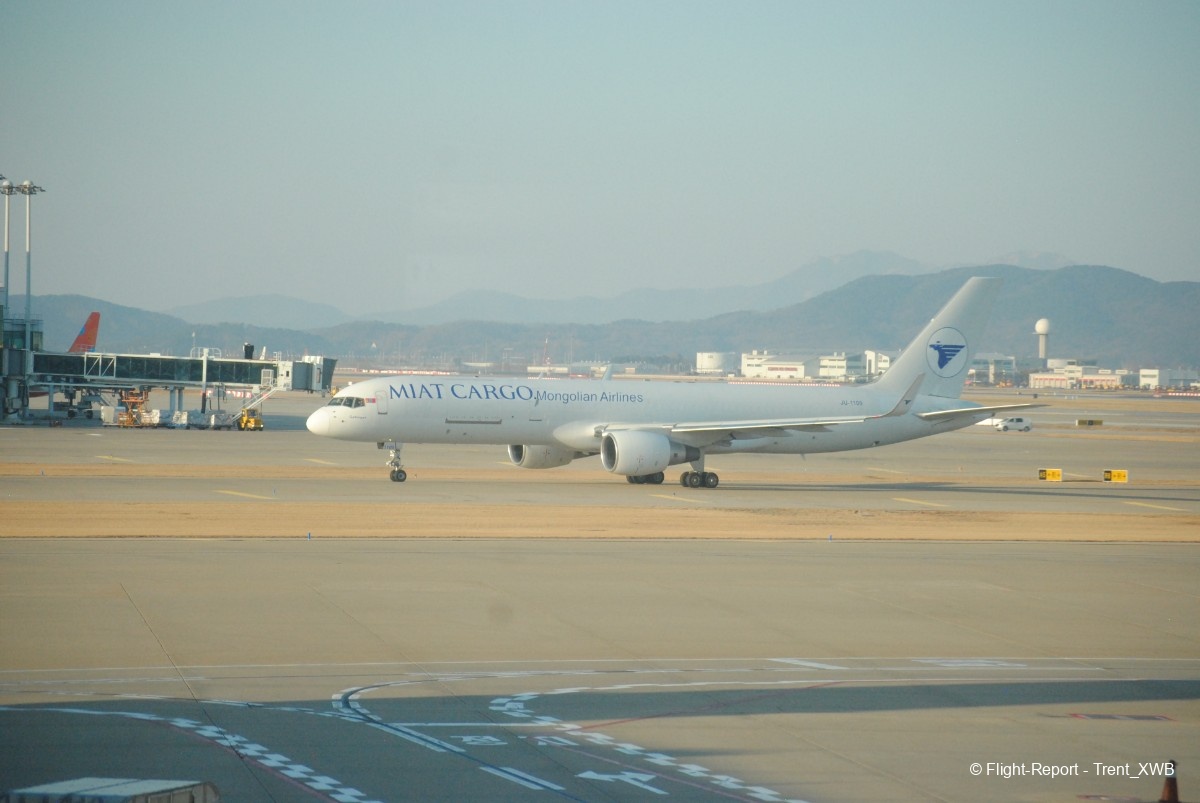
B789 Vietnam Airlines. Their livery is especially beautiful in direct evening light.
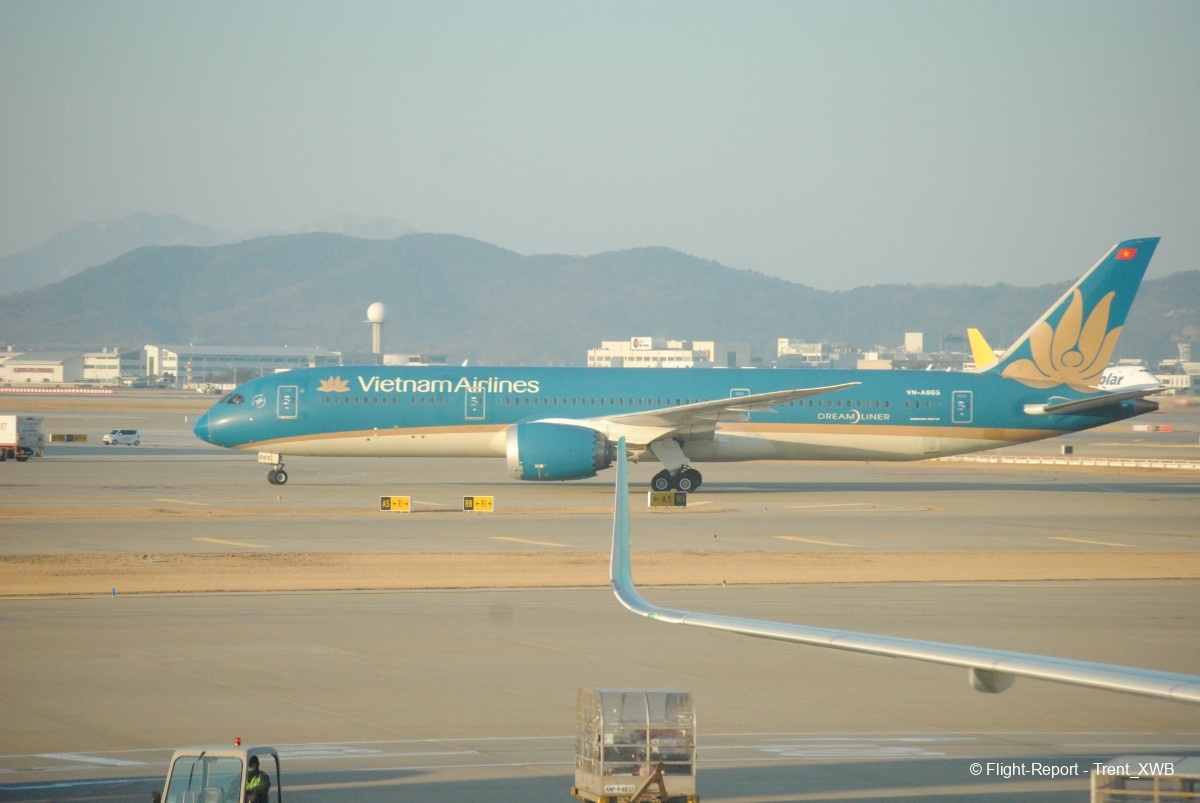
HL7626 - the 2nd OZ's whalejet in the very last rays of the sun, arriving to T1. Her next flight will be long-haul to Sydney.
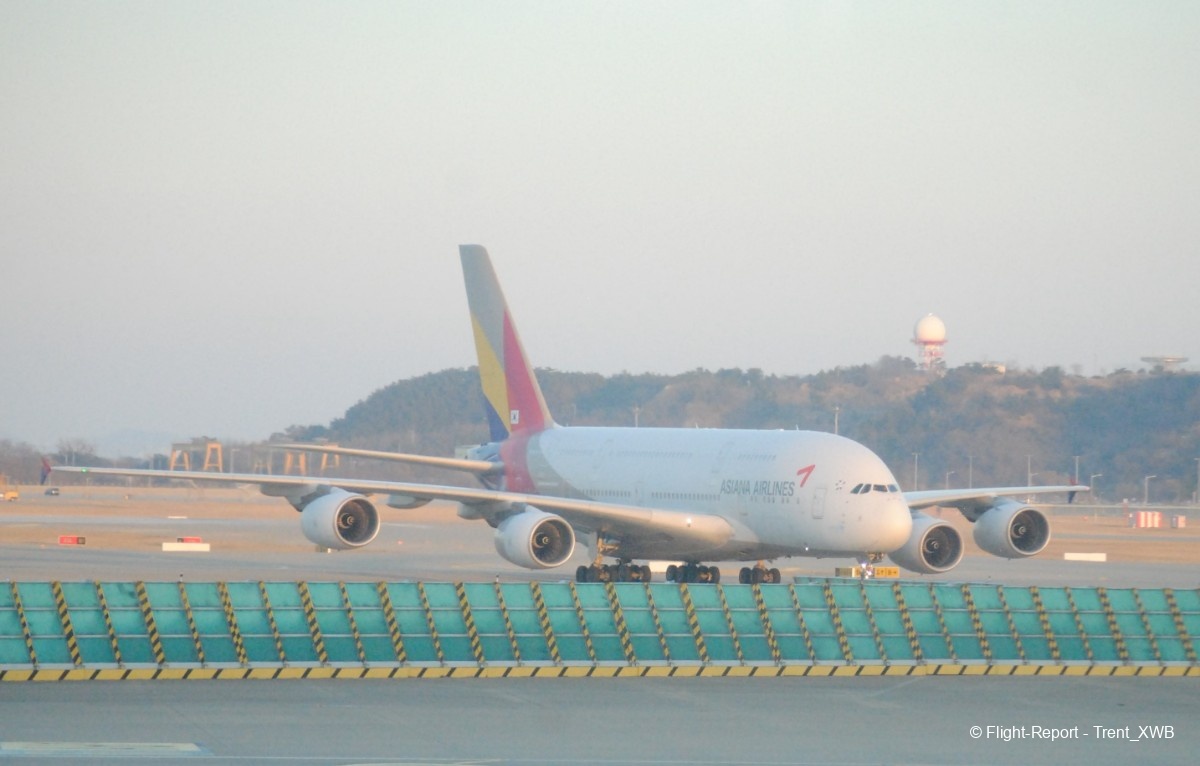
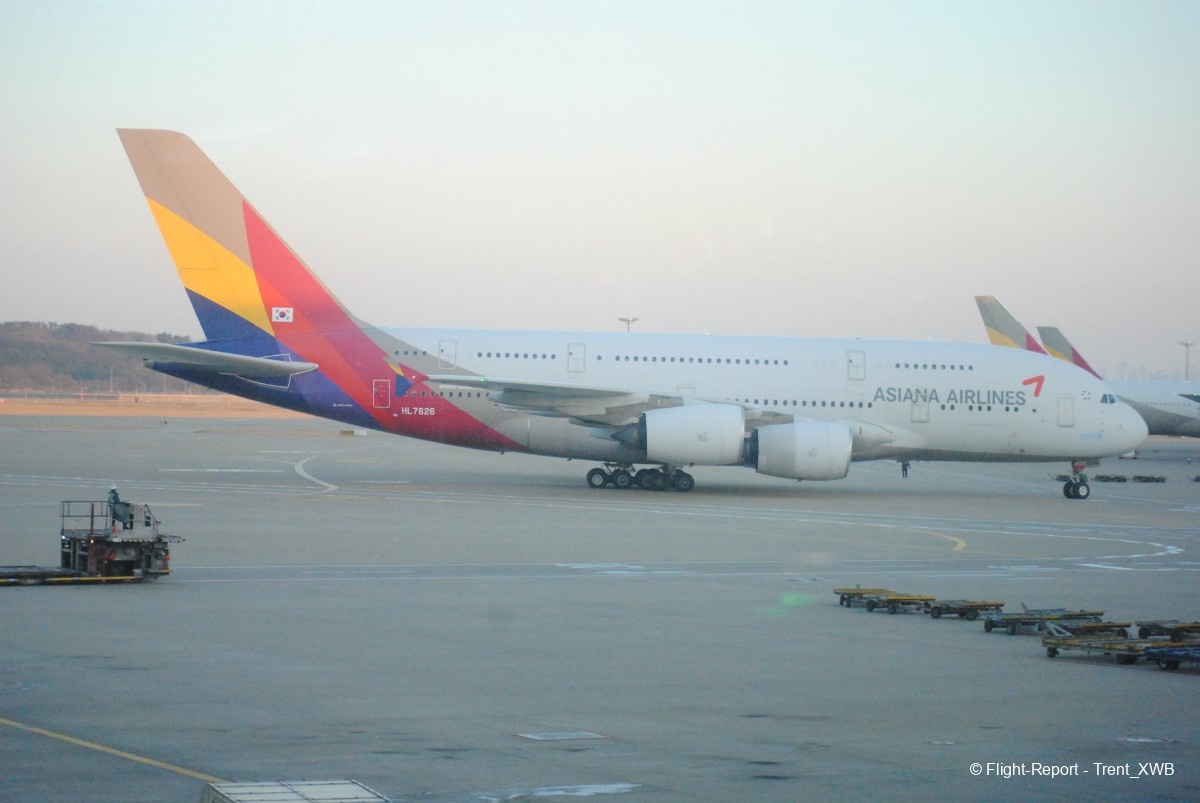
OZ A359 (HL8360). These birds definitely have strong future in the joint KE-OZ fleet.
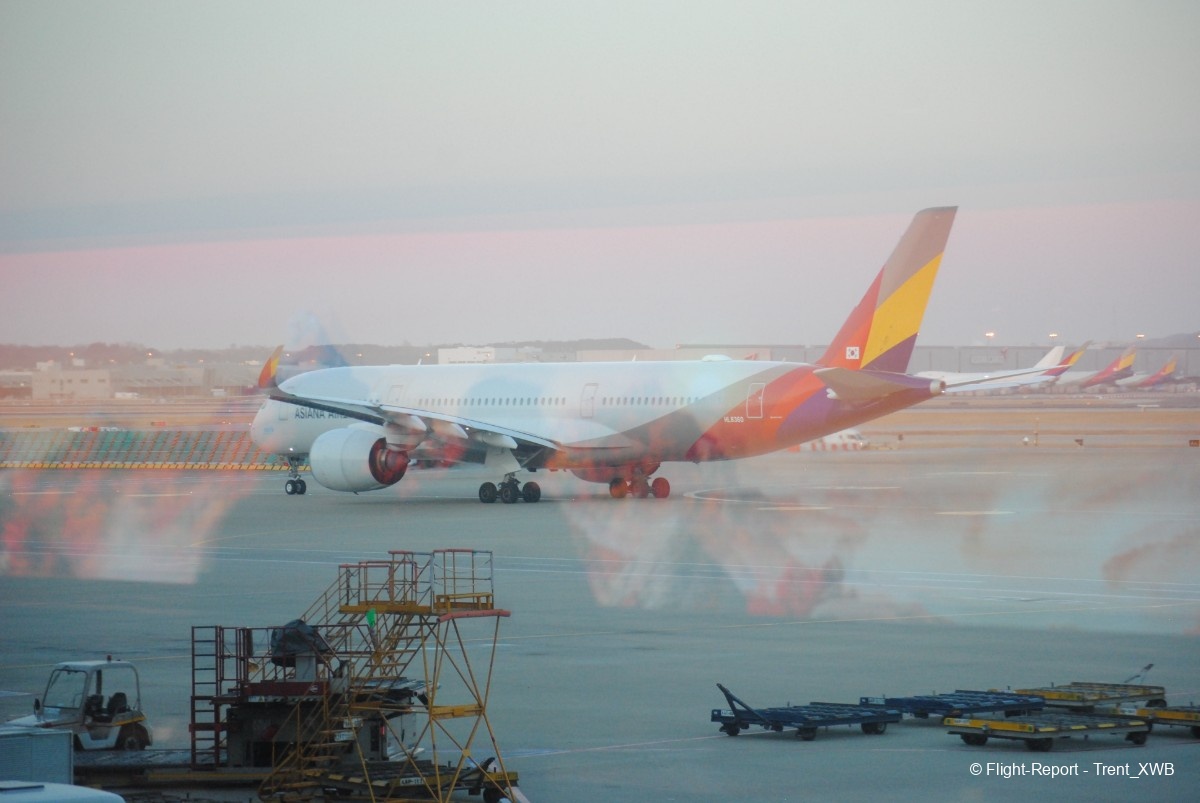
And, lastly, a bit of art on Korean history theme, shown on big long screens in the transit hall.
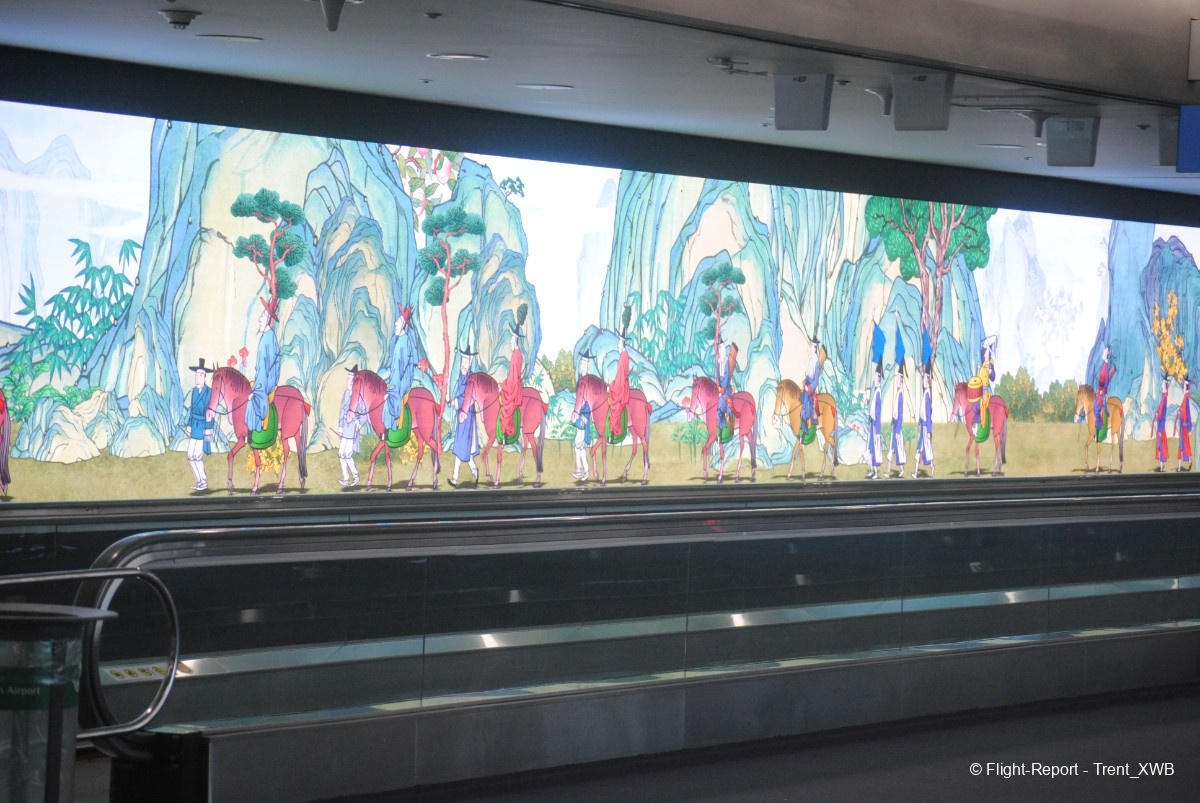
Thank you for your attention and see you in the next FRs!
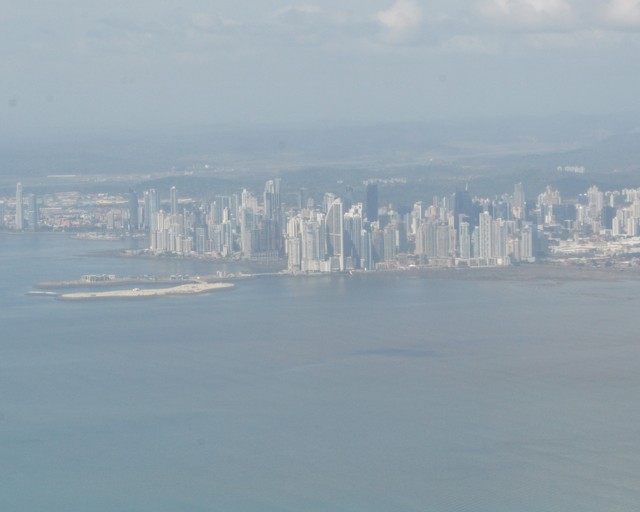
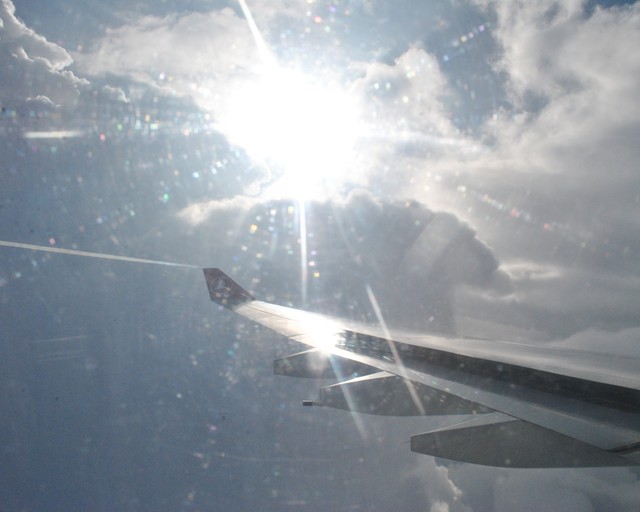
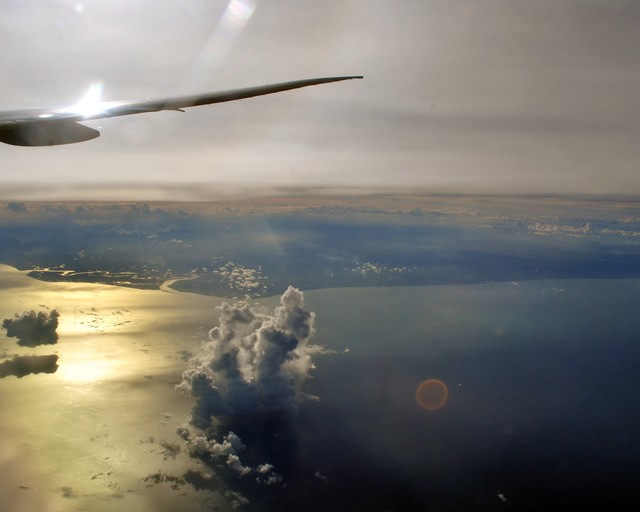
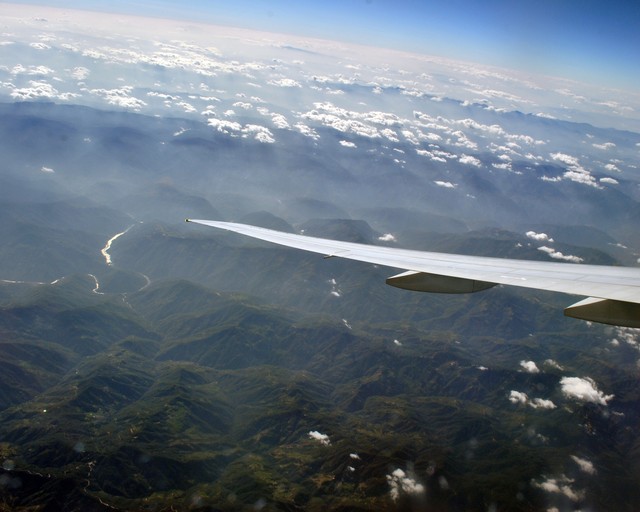
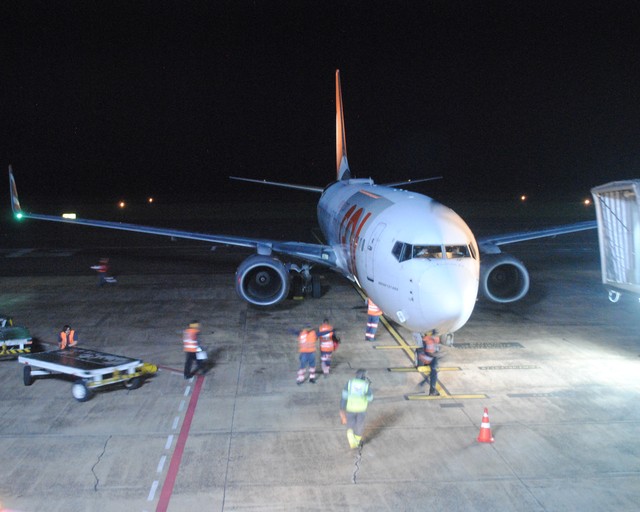
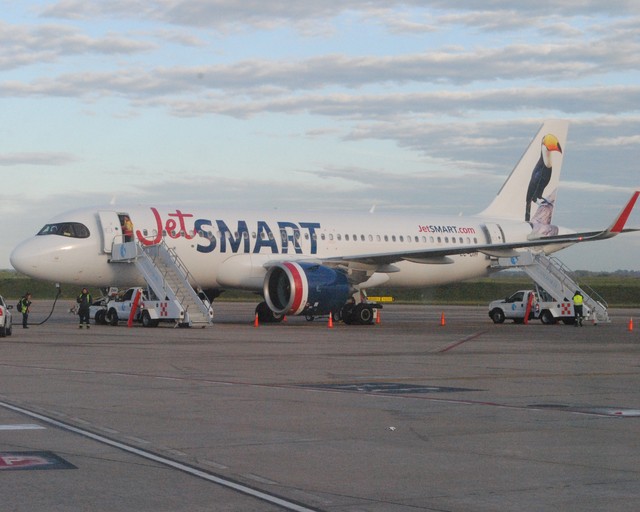

Another exceptional report! The attention to detail and the empty cabin shots; wow. Not only that, you really do notice everything from overhead bins to the seats, wow.
As for the flight; what a treat to fly on the A380, and for a 2 hour flight? Looks more than adequate with a nice meal.
On of my favorite parts of ex-Japan flights is spotting Fuji. Glad you went 1/2 on this experience, not a bad percentage 😅.
I’ve long wanted to fly the OZ “F” or business plus, since I’ve heard it’s not too much to upgrade from J. Gonna be sad to see these birds go eventually.
Anyways, thanks for your sharing your second report, I’m hooked now 😅. Looking forward to even more!
Hi, thanks a lot for the comment - I'm very pleased - and sorry for the delay with reply.
BTW, from late August 2025 OZ brought back the whalejets to OZ101/102 flights between ICN and NRT, so, probably, you have a chance to experience the business suites on these flights. Good luck.
I saw Fuji-san not only from the whalejet, but a lot of times from the ground. The colder the air, the higher the chance that there's no air convection on Fuji's slopes and thus no cloud formation. Late November or early December is the perfect time (I guess, January too).
P.S. Looked through your personal website. I'm very impressed!